INCLUDING


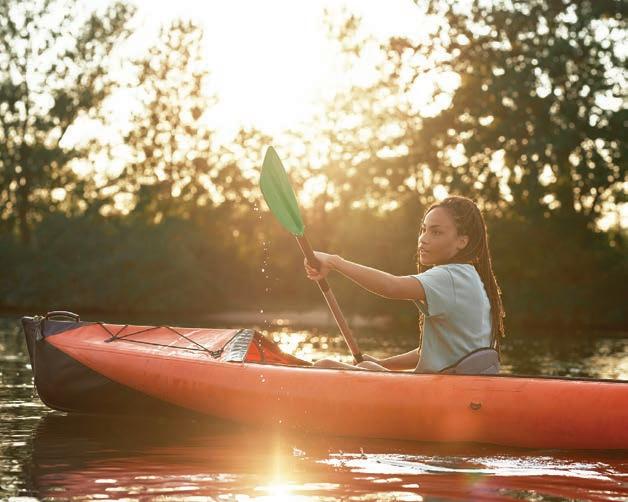


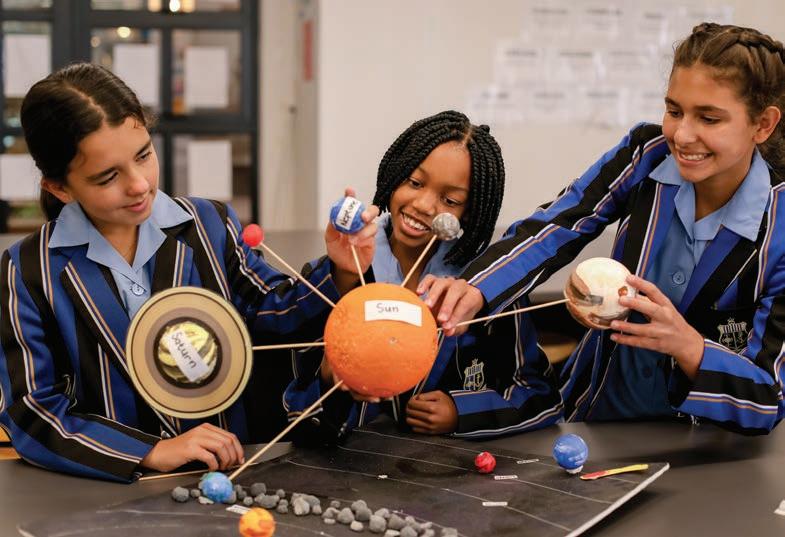

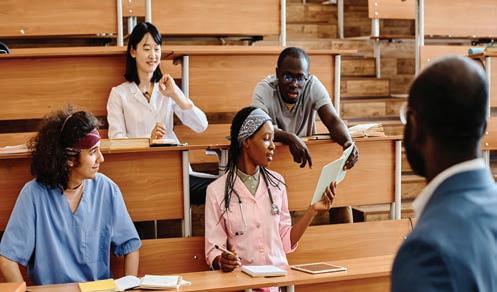
2023
TERTIARY INSTITUTIONS INSIDE : ONLINE AND HOME SCHOOL LEARNING I LIFE SKILLS I THE ARTS I SPECIAL NEEDS I OUTDOOR EDUCATION I MENTAL WELLNESS and more
and collaboration are key to a transformed education environment THE SOUTH AFRICAN SCHOOLS COLLECTION INCLUDING TERTIARY INSTITUTIONS 2023 PICASSO HEADLINE, A DIVISION OF ARENA HOLDINGS
THE FUTURE CLASSROOM Creativity
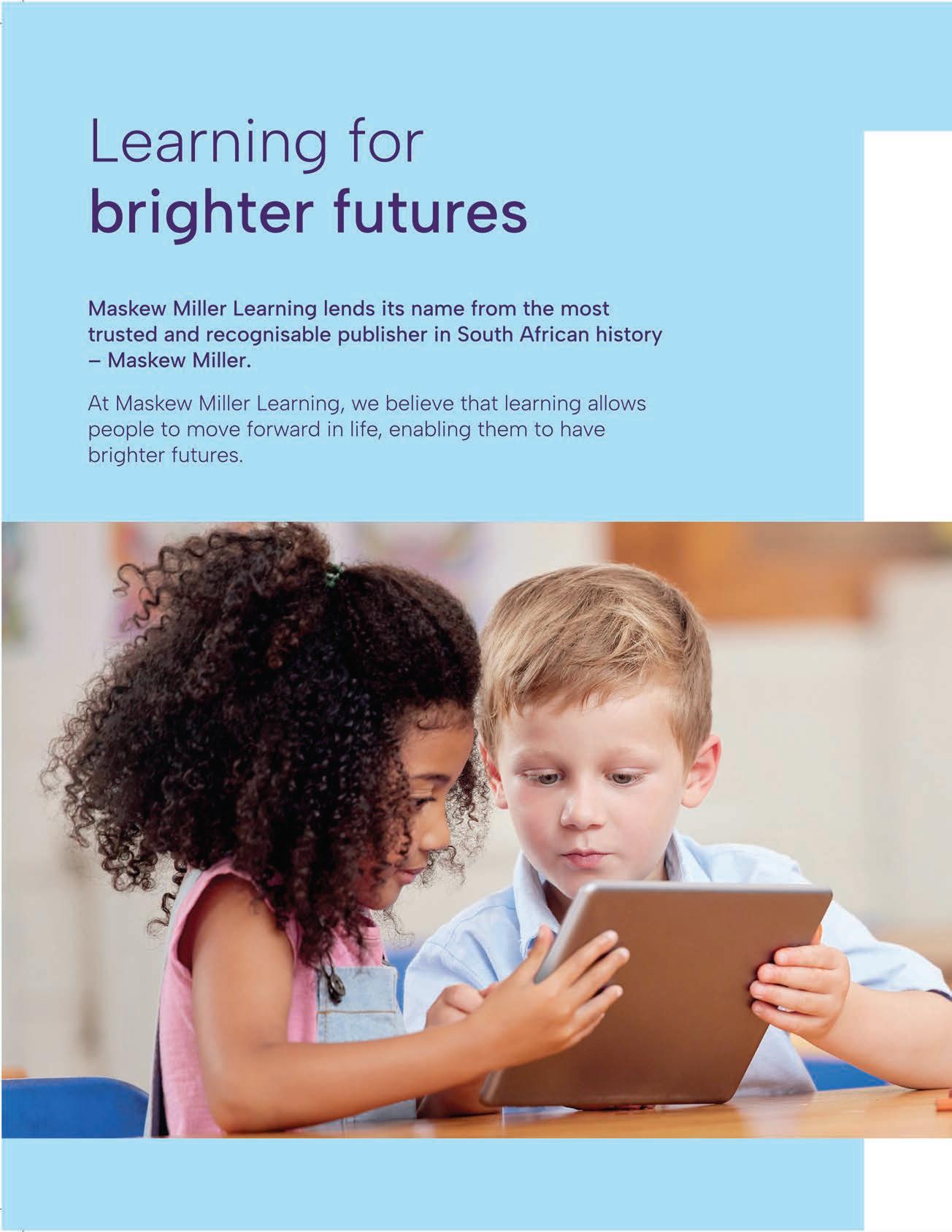
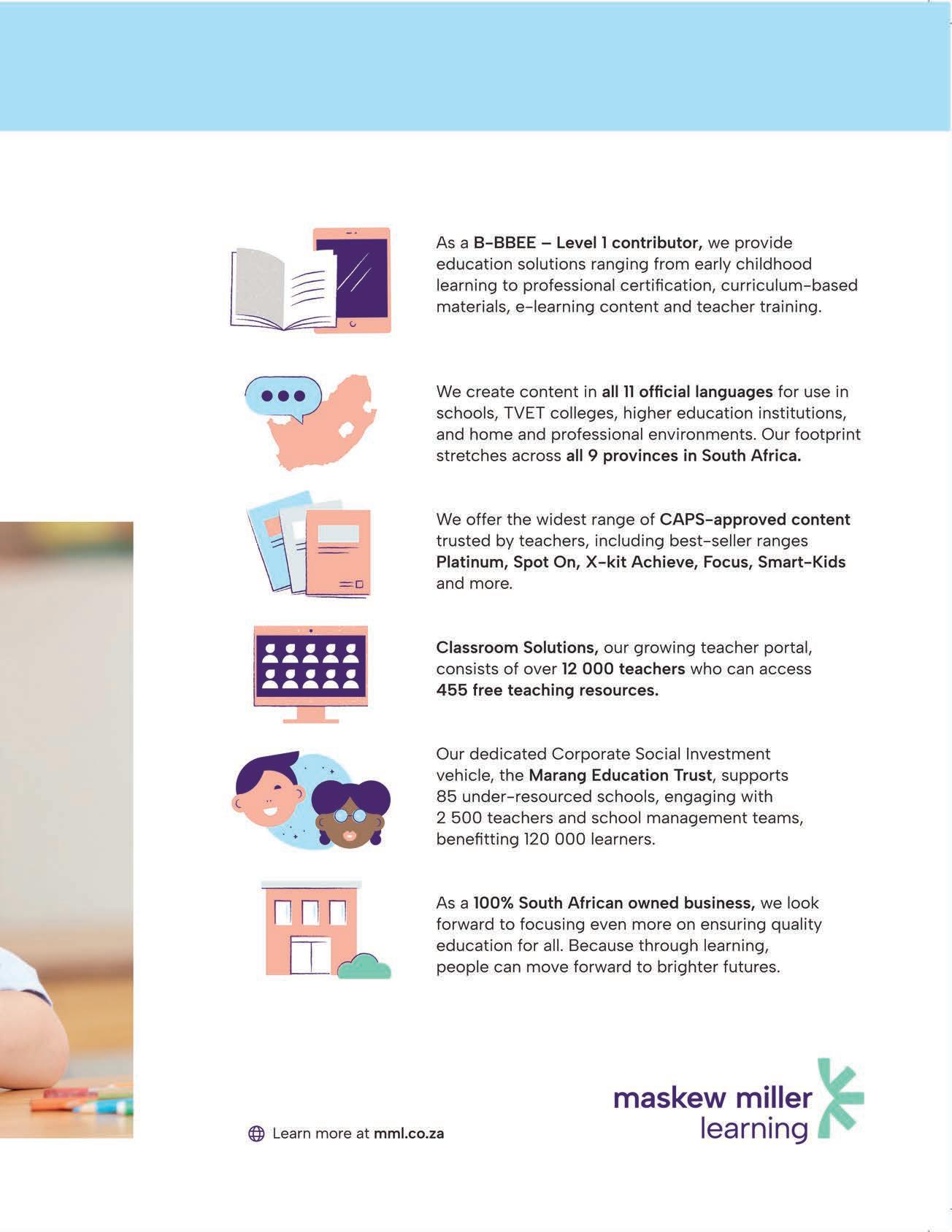
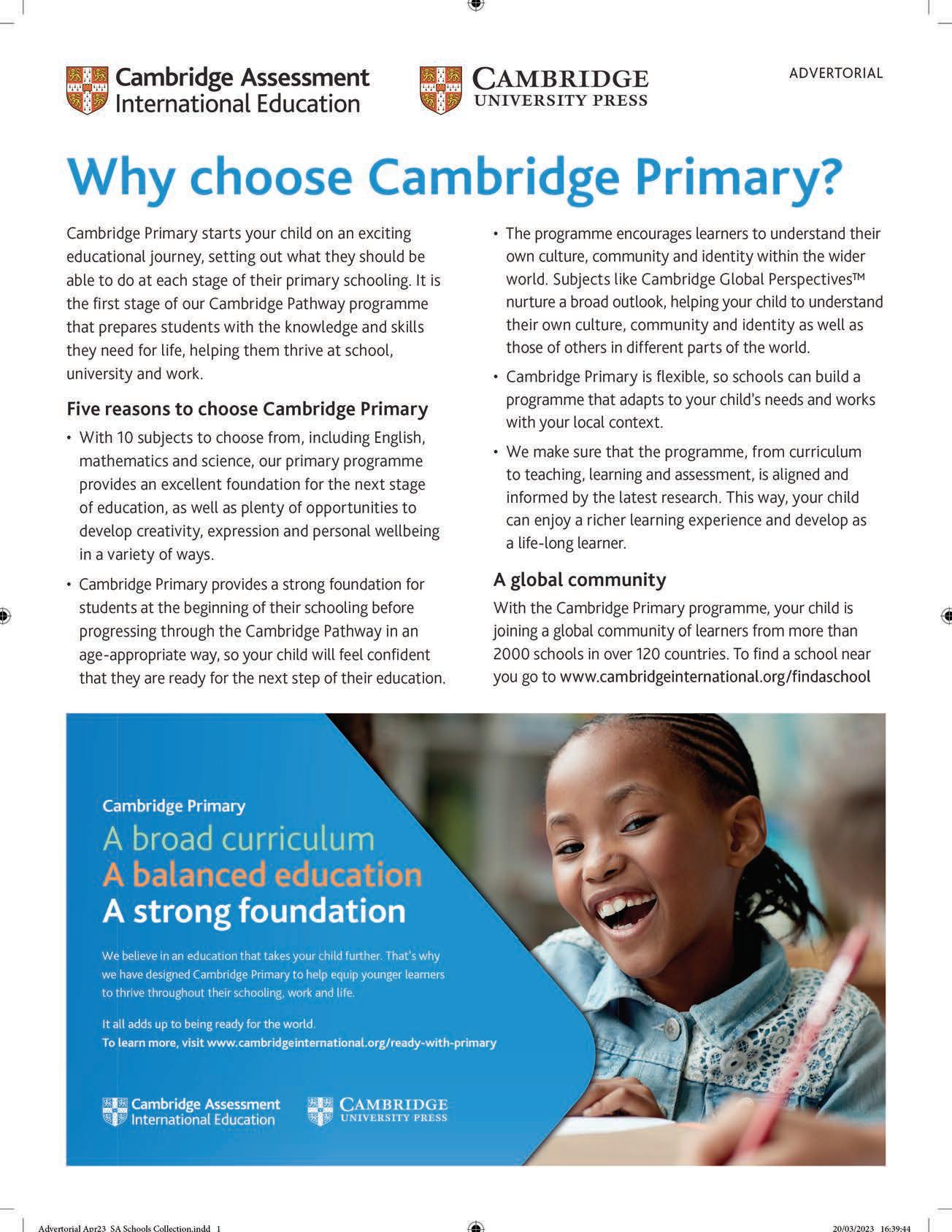
Without access to early learning opportunities, children will start school on the back foot and will struggle to catch up academically.
18
SPECIAL NEEDS
The earlier learning problems are identified, the sooner and more effectively they can be dealt with.
20
THE FUTURE CLASSROOM
The classroom is transforming rapidly, and teachers need new skills to better prepare themselves and their learners for the future.
26
MENTAL WELLNESS
Children are presenting with anxiety from an earlier age. We unpack what to look out for.
28
GENDER INCLUSIVITY
Gender neutrality is protected in the Constitution, but how does one formalise these rights at school and in the classroom?
31
ONLINE LEARNING
How to ensure you choose the right option for your child.

32 CHATGPT
ChatGPT can be leveraged by tech-savvy students, teachers and parents to enhance learning.
34
THE INNOVATIVE SCHOOL
An overview of three innovative schools offering world-class facilities and innovative approaches to learning.
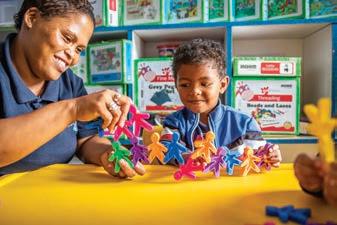
36
THE ARTS
Drama, music and art have an important role to play in developing a child’s confidence and encouraging social skills.
38
LIFE SKILLS
226 STUDYING ABROAD
We unpack the benefits of a global education.
228 STUDENT ACCOMMODATION
Luxury mixed-use student accommodation is on the rise.
OUTDOOR EDUCATION:
232
The Adventure Institute shares why outdoor experential education benefits whole-child development.
233 ALLES Centre for Excellence reflects on the developmental benefits of outdoor adventure.
234 The SA Adventure Industry Association discusses how spending a few hours in nature boosts a child’s wellbeing, mental health and motivation to learn.
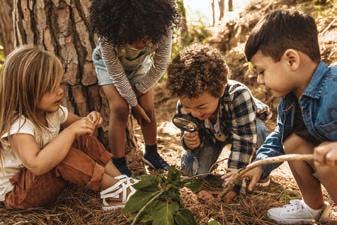
23
BULLYING
Bullying can have devastating implications for the victim and the perpetrator.
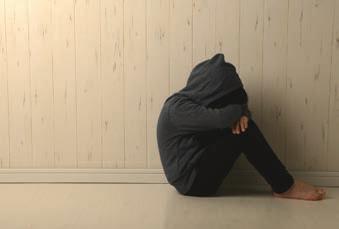
25 NUTRITION
Balanced lunchboxes encourage a healthy mind and an active body.
Teaching financial literacy at school can have a positive impact later in life.
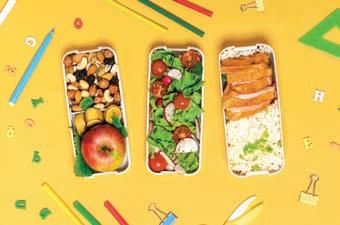
Contents Colour Guide 42 REMEDIAL AND SPECIAL NEEDS 48 ONLINE AND HOME SCHOOLS 63 NATIONAL SCHOOLS 87 EASTERN CAPE SCHOOLS 99 GAUTENG SCHOOLS 171 KWAZUU-NATAL SCHOOLS 187 LIMPOPO AND NORTH WEST SCHOOLS 199 WESTERN CAPE SCHOOLS 219 TERTIARY INSTITUTIONS 231 OUTDOOR EDUCATION image: istockphoto.com, supplied 3 The South African Schools Collection 2023
FROM THE EDITOR
never
more
EARLY CHILDHOOD DEVELOPMENT
4
A balanced learning environment has
been
important. 16
16 23 38
25
233
A balanced learning environment
never
The pandemic accelerated the shift to technology in the classroom as teachers and learners made a rapid transition to online learning out of necessity. As a result, technology has become an integral part of the classroom, but in this era of digitalisation and artificial intelligence, there is also renewed focus on the skills that teachers and learners need to navigate a rapidly evolving world.
Creativity, conflict resolution and collaboration are just some of the skills that will put learners in good stead to succeed in any career, even those that may not have been developed yet. With access to technology and platforms for online learning, teachers can become facilitators and not just deliverers of content. They should also encourage learners to use technology in all subjects, not just the STEM (science, technology, engineering and mathematics) subjects, to better prepare them for future careers.
TECHNOLOGY – THE GOOD AND THE POTENTIALLY BAD
Unless we maintain open lines of communication with our children, more time spent online could lead to social isolation. Cyberbullying is on the rise, and the anonymity and vast reach of social media mean that the impact of online bullying can be devastating, especially for adolescents who are already struggling to manage friendships and expectations. We must ensure we understand what children are experiencing and provide opportunities for activities – such as experiential learning, outdoor adventure experiences and even the performing arts – that will take them beyond their screens and virtual worlds.
We should not fear innovation. There is certainly a place for technology, and even ChatGPT, if used appropriately. But we must strike a balance and encourage our children to make the most of their opportunities without becoming overwhelmed while they develop the skills they will need to thrive in the future.
Anél Lewis Editor
PUBLISHED BY:
Picasso Headline, a proud division of Arena Holdings (Pty) Ltd Hill on Empire, 16 Empire Road (cnr Hillside Road), Parktown, Johannesburg, 2193 PO Box 12500, Mill Street, Cape Town, 8010 www.businessmediamags.co.za
EDITORIAL
Content Manager
Raina Julies rainaj@picasso.co.za
Editor Anél Lewis
Contributors
Mark Anderson, Tracey Chambers, Bonny Feldman, Deidre Forbay, Glynis Horning, Reabetjoe Mokoko, Lenore Oliver, Mona Preller, Rebecca Pretorius, Dr Jenny Rose, Dr Pieter Snyman, Jessi Sunkel, Lisa Witepski
Copy Editor

Brenda Bryden
Content Co-ordinator
Natasha Maneveldt
Digital Editor: Stacey Visser vissers@businessmediamags.co.za
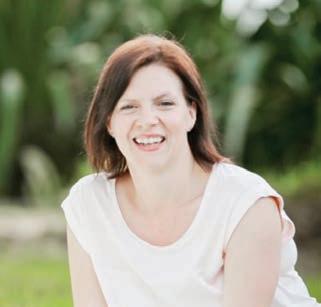
DESIGN
Head of Studio
Jayne Macé-Ferguson
Senior Designer Mfundo Archie Ndzo
Junior Designer Bulelwa Sotashe
Cover Images
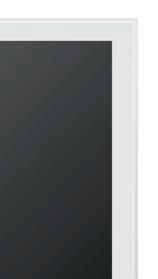
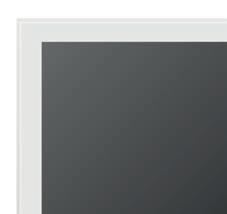
LanaStock/istockphoto.com, SeventyFour/istockphoto.com, PKpix/istockphoto.com, AnnaStills/istockphoto.com, PeopleImages/istockphoto.com, Supplied
SALES
Project Manager
Merryl Klein merrylk@picasso.co.za
Tel: +27 21 469 2446 | +27 82 895 7260
PRODUCTION
Production Editor Shamiela Brenner
Advertising Co-ordinators
Shamiela Brenner and Johan Labuschagne
Subscriptions and Distribution
Fatima Drama fatimad@picasso.co.za
Printing CTP Printers, Cape Town
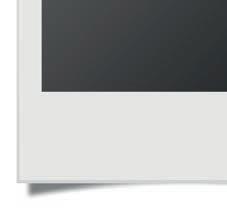
MANAGEMENT
Business Manager
Lodewyk van der Walt | lodewykv@picasso.co.za
Management Accountant
Deidre Musha
General Manager: Magazines
Jocelyne Bayer
Copyright: Picasso Headline. No portion of this magazine may be reproduced in any form without written consent of the publisher. The publisher is not responsible for unsolicited material. The South African Schools Collection is published annually by Picasso Headline. The opinions expressed are not necessarily those of Picasso Headline or any other organisation associated with this magazine. All advertisements/advertorials and promotions have been paid for and therefore do not carry any endorsement by the publisher.
4 FROM THE EDITOR South African Schools Collection 2017 The
2023
has
been more important Creativity, confl ict resolution and collaboration are just some of the skills that will put learners in good stead to succeed in any career.



LISTINGS 101
CURRO ACADEMY PARKDENE
Grades: 3 years–Grade 12
Tel: 011 014 1951
Address: Spring Close (off Riverbend Road), Parkdene, Boksburg
Email: info.parkdene@curro.co.za
Website: www.curro.co.za/schools/ curro-academy-parkdene-primaryschool/
CURRO ACADEMY PRETORIA
Grades: R–12
Tel: 087 287 9492
Address: 146 Baviaanspoort Road, East Lynne, Pretoria
Email: info.pretoria@curro.co.za
Website: www.curro.co.za/schools/ curro-academy-pretoria-high-school/
CURRO ACADEMY PROTEA GLEN
Grades: R–12
Tel: 087 087 7569
Address: Cnr Sagewood and Wild Chestnut Street, Protea Glen, Soweto
Email: info.proteaglen@curro.co.za
Website: www.curro.co.za/schools/ curro-academy-protea-glen-highschool/
CURRO ACADEMY RIVERSIDE
Grades: R–12
Tel: 087 086 4645
Address: Blue Crane Drive, Riverside View (off William Nicol Road), Riverside View, Diepsloot
Email: info.riverside@curro.co.za
Website: www.curro.co.za/schools/ curro-academy-riverside-high-school/
CURRO ACADEMY SAVANNA CITY
Grades: R–12
Tel: 011 014 1968 | 087 087 7512
Address: Central Boulevard, Savanna City, De Deur, Vereeniging
Email: info.savannacity@curro.co.za
Website: www.curro.co.za/schools/ curro-academy-savanna-city-primaryschool/
CURRO ACADEMY SOSHANGUVE
Grades: R–12
Tel: 087 285 4700
Address: Palladium Street, Block VV, Extension 6, Soshanguve East
Email: info.soshanguve@curro.co.za
Website: www.curro.co.za/schools/ curro-academy-soshanguve-primaryschool/
CURRO ACADEMY THE BLYDE
Grades: 3 years–Grade 6
Tel: 087 087 7974
Address: Tropical Road, off Bronkhorstspruit Road (next to The Blyde Estate), Pretoria
Email: info.theblyde@curro.co.za
Website: www.curro.co.za/schools/ curro-academy-the-blyde-primary-school
CURRO ACADEMY WILGEHEUWEL
Grades: 4.5 years–Grade 12
Tel: 087 087 0083 | 087 087 0077
Address: Vintage Road, Wilgeheuwel, Roodepoort
Email: info.wilgeheuwel@curro.co.za
Website: www.curro.co.za/schools/ curro-academy-wilgeheuwel-primaryschool/
CURRO AURORA
Grades: 2.5 years–Grade 12
Tel: 087 087 0355
Address: Taurus Road, Sundowner, Randburg
Email: info@aurora.co.za
Website: www.curro.co.za/schools/ curro-aurora-primary-school/
CURRO BRYANSTON
Grades: 3 months–Grade R
Tel: 087 286 8275 | 071 670 9323
Address: 87 Cambridge Road, Bryanston, Johannesburg
Email: info.bryanston@curro.co.za
Website: www.curro.co.za/schools/ curro-bryanston-preschool/
CURRO CHARTWELL
Grades: 3 months–5 years
Tel: 011 023 5010 | 072 332 5668
Address: 119 Third Road, Chartwell
Email: info.chartwell@curro.co.za
Website: www.curro.co.za/schools/ curro-chartwell-preschool/
CURRO DOUGLASDALE
Grades: 5 years–Grade 6
Tel: 087 286 8274
Address: 101 Hornbill Road, Douglasdale, Johannesburg
Email: info.douglasdale@curro.co.za
Website: www.curro.co.za/schools/ curro-douglasdale-primary-school/
CURRO EDENVALE
Grades: R–12
Tel: 011 014 1955
Address: Cnr Tech and Beukes Avenue, Highway Gardens, Edenvale
Email: info.edenvale@curro.co.za
Website: www.curro.co.za/schools/ curro-edenvale-primary-school/
CURRO FOURWAYS
Grades: 3 months–5 years
Tel: 011 027 5010 | 063 674 5778
Address: 32 Swallow Drive, Norscot
Slopes, Fourways
Email: info.fourways@curro.co.za
Website: curro.co.za/schools/currofourways-preschool/
CURRO HAZELDEAN
Grades: 18 months–Grade 12
Tel: 087 287 9380
Address: 1 Silver Lakes Drive, Hazeldean, Pretoria
Email: adminhazeldean@curro.co.za
Website: www.curro.co.za/schools/ curro-hazeldean-primary-school/
CURRO HELDERWYK
Grades: 2 years–Grade 12
Tel: 087 097 0844
Address: 46 Tandelsberg Street, Helderwyk Estate, Helderwyk, Brakpan
Email: info.helderwyk@curro.co.za
Website: www.curro.co.za/schools/ curro-helderwyk-primary-school/
CURRO JEWEL CITY
Grades: 8–11
Tel: 087 087 7960 | 062 139 3881
Address: 248 Commissioner Street, Jewel City, Johannesburg
Email: info.jewelcity@curro.co.za
Website: www.curro.co.za/schools/ curro-jewel-city-high-school/
CURRO KRUGERSDORP
Grades: 3 months–Grade 12
Tel: 010 492 2988
Address: Norden Road, Rangeview, Krugersdorp
Email: info.krugersdorp@curro.co.za
Website: www.curro.co.za/schools/ curro-krugersdorp-primary-school/
CURRO MIDRAND HALFWAY
GARDENS
Grades: R–7
Tel: 087 232 1383
Address: 48 Harry Galaun Drive, Halfway Gardens, Midrand
Email: info.midrand@curro.co.za
Website: www.curro.co.za/schools/ curro-midrand-halfway-gardensprimary-school/
CURRO MIDRAND SAGEWOOD
Grades: 4 years–Grade 12
Tel: 087 723 3130
Address: Sagewood Avenue (off Liebenberg Road), Noordwyk, Midrand
Email: info.sagewood@curro.co.za
Website: www.curro.co.za/schools/ curro-midrand-sagewood-primaryschool/
CURRO NEW ROAD
Grades: 8–12
Tel: 087 087 7600
Address: 223 Alexandra Avenue, Halfway House, Midrand, Johannesburg
Email: info.newroad@curro.co.za
Website: www.curro.co.za/schools/ curro-new-road-high-school/
CURRO OAKDENE
Grades: 2.5 years–Grade 5
Tel: 087 086 4632 / 083 297 7675
Address: Cnr Rifle Range Road and Oakdene Parks Drive, Oakdene, Johannesburg South
Email: info.oakdene@curro.co.za
Website: www.curro.co.za/schools/ curro-oakdene-primary-school/
CURRO RIVONIA
Grades: 3 years–Grade 12
Tel: 087 287 9551
Address: 43 Homestead Road, Rivonia, Sandton
Email: info.rivonia@curro.co.za
Website: www.curro.co.za/schools/ curro-rivonia-primary-school/
CURRO ROODEPLAAT
Grades: 18 months–Grade 12
Tel: 087 287 2568
Address: Kameelfontein Road, Kameeldrift, Pretoria
Email: info.roodeplaat@curro.co.za
Website: www.curro.co.za/schools/ curro-roodeplaat-primary-school/
CURRO SERENGETI
Grades: 3 months–Grade 12
Tel: 087 284 7170
Address: Serengeti Golf and Wildlife
Estate, Cnr R21 and R23, Kempton Park
Email: adminserengeti@curro.co.za
Website: www.curro.co.za/schools/ curro-serengeti-primary-school/
CURRO THATCHFIELD
Grades: 3 months–Grade 12
Tel: 012 652 2906 | 087 286 8268
Address: Cnr Barbet Street and Brakfontein Road, Thatchfield Hills, Centurion
Email: info.thatchfield@curro.co.za
Website: www.curro.co.za/schools/ curro-thatchfield-primary-school/
CURRO VANDERBIJLPARK
Grades: R–12
Tel: 011 014 1954
Address: 1174 Hendrik van Eck
Boulevard, Vanderbijlpark
Email: info.vanderbijlpark@curro.co.za
Website: www.curro.co.za/schools/ curro-vanderbijlpark-primary-school/
CURRO VICTORY PARK
Grades: 8
Tel: 087 330 4966
Address: 53 Ley Road, Victory Park, Randburg, Gauteng
Email: info.victorypark@curro.co.za
Website: www.curro.co.za/schools/ curro-victory-park-high-school/
CURRO WATERFALL
Grades: 2 years–Grade 12
Tel: 087 287 9469
Address: Waterfall Country Village, Waterfall Drive (opposite gate 4), Midrand
Email: info.waterfall@curro.co.za
Website: https://curro.co.za/schools/ curro-waterfall-primary-school/
DDAINFERN COLLEGE
Grades 0–12 IEB and Cambridge AS and A Level
Telephone: 011 469 0635
Address: 96 Broadacres Drive, Dainfern, Johannesburg, RSA
Email: enrol@dainferncollege.co.za
Website: www.dainferncollege.co.za
DE LA SALLE HOLY CROSS COLLEGE
Grade: RR–12
Junior School Address: Cnr 13th
Street and Braemar Road, Victory Park
High School Address: 2–22 Road No 3, Victory Park
Telephone: 011 782 4896
Email: marketing@dlshcch.co.za
Website: www.delasalleholycrosscollege.co.za
DEUTSCHE INTERNATIONALE SCHULE PRETORIA
Grades: 3 months–Grade 12
Tel: 012 803 4106
Address: Simon Vermooten Rd, The Willows, Pretoria
Email: dsp@dsp.gp.school.za
Website: www.dspretoria.co.za
DEUTSCHE INTERNATIONALE SCHULE JOHANNESBURG
Grades: 18 months–Grade 12
Tel: 011 726 6220/1
Address: 11 Sans Souci Road, Parktown, Johannesburg
Email: dsj@dsjmail.co.za
Website: www.dsj.co.za E
EAGLE HOUSE SCHOOL
Grades: 8–12
Tel: 010 590 0680
Address: 73 Lawrence Road, Poortview, Roodepoort
Email: admissions@eaglehouse.co.za
Website: www.eaglehouse.co.za
ESCA SCHOOL WANDERERS
Grades: 4–12 and A Levels
Tel: 010 035 3600
Address: 21 North Street, Illovo
Email: ernst@esca.org.za
Website: www.ESCA.org.za
G
GREENSIDE HIGH SCHOOL
Grades: 8–12
Tel: 011 646-0113
Address: Geers Avenue, Greenside, Johannesburg
Email: admissions@greensidehigh.co.za
Website: www.greensidehigh.co.za (currently under construction)
H
HERON BRIDGE COLLEGE
Grades: 3 years–Grade 12
Tel: 011 540 4800
Address: No 36 on R114, Nietgedacht, Fourways
Email: info@heronbridge@curro.co.za
Website: www.curro.co.za/schools/ heronbridge-college www.heronbridge.co.za
HOLY ROSARY SCHOOL
Grades: 0–12
Tel: 011 457 0900
Address: 113 Horwood Street, Edenvale
Email: admissions@holyrosaryschool.co.za
Website: www.holyrosaryschool.co.z
J
JAN CELLIERS LAERSKOOL EN PREPRIMÊR
Grades: Playschool–Grade 7
Tel: 011 646 3336
10 South African Schools Collection 2017 The South African Schools Collection 2023
Address: Lower Park Drive, Parkview, Randburg, South Africa
Email: bemarking@jancelliers.co.za
Website: www.jancelliers.co.za
K
KRUGERSDORP HIGH SCHOOL
Grades: 8–12
Tel: 011 954 1009
Address: Cnr Cornelius Moll, Monument Extension, Krugersdorp
Email: info@krugersdorphigh.co.za
Website: www.krugersdorphighschool.co.za
KYALAMI GROUP OF SCHOOLS
Grades: 000–12
Tel: 010 591 5004
Address: Block 1, Ground floor, Kyalami Office Park, Midrand
Email: info@kyalamischools.org
Website: www.kyalamischools.org
L LORETO SCHOOL QUEENSWOOD
Grades: R–7
Tel: 012 333 4384
Address: 1161 Woodlands Drive, Queenswood, 0186
Email: tania.auret@loretosa.co.za
Website: wwwloretoschoolqueenswood.co.za
M
MAGIC BEINGS NURSERY SCHOOL
Grades: Birth–5 years
Tel: 011 023 8821/2/3/4
Address: 211 Church Street, Northriding, Randburg
Email: info.magicbeings@curro.co.za
Website: www.curro.co.za/schools/ magic-beings-preschool/
MERIDIAN COSMO CITY
Grades: 5 years–Grade 12
Tel: 087 285 4691/4
Address: Cnr South Africa Drive and Tennessee Road, Cosmo City, Roodepoort
Email: info.cosmocity@curro.co.za
Website: https://www.curro.co.za/ schools/meridian-cosmo-cityprimary-school/
MICHAEL MOUNT WALDORF SCHOOL
Grades: 4 months–matric
Tel: 011 706 6125
Address: 40 Culross Road, Bryanston
Email: waldorf@michaelmount.co.za
Website: www.michaelmount.co.za
N
Tel: 011 476 1544
Address: Mountainview Drive, Blackheath Ext. 3, Johannesburg
Email: info@northcliffhigh.co.za
Website: www.northcliffhigh.co.za
NORTHRIDING COLLEGE
Grades: 2 years–Grade 11
Tel: 087 087 7586
Address: 358 Valley Road, Northriding AH, Randburg
Email: info.northriding@curro.co.za
Website: www.curro.co.za/schools/ northriding-college-primary-school/
ORBAN SCHOOL
Grades: 4 months–Grade 7
Tel: 011 726 6036
Address: 43 Winchester St, Westdene
Email: fin@orban.co.za
Website: www.orban.co.za
PRETORIA HIGH SCHOOL FOR GIRLS
Grades: 8–12
Tel: 012 430 7341
Address: 949 Park Street, Arcadia, Pretoria, 0083
Email: info@phsg.org.za
Website: www.phsg.org.za
PRO ARTE ALPHEN PARK
Grades: 8–12
Tel: 012 460 6221
Address: 145 Roeline St, Alphen Park
Email: market2@proarte.co.za
Website: www.proarte.co.za
R ROEDEAN SCHOOL (SA)
Grades: 0–12
Tel: 011 647 3207
Address: Princess of Wales Terrace, Parktown, Johannesburg
Email: roedean@roedeanschool.co.za
Website: www.roedeanschool.co.za
RUIMSIG ACADEMY
Grades: 0000–9
Tel: 010 109 5009
Address: 4b Chestnut Road Road, Tres Jolie, Ruimsig, Johannesburg
Email:
admissions@ruimsigacademy.co.za
Website: www.ruimsigacademy.co.za
S SAHETI SCHOOL
Grades: Playschool–matric
Tel: 0861 724 384
SHARONLEA CHILDCARE AND PRE-PRIMARY
Grades: 3 months–5 years
Tel: 087 087 7570
Address: 73 Ebbehout Street, Sharonlea, Randburg
Email: info-sharonleachildcare@curro.co.za
Website: www.curro.co.za/schools/ sharonlea-childcare-and-pre-primary
ST ALBANS COLLEGE
Grades: 8–12 (Form 1–5)
Tel: 012 348 1221
Address: 110 Clearwater Rd, Lynnwood Glen
Email: admissions@stalbanscollege.com
Website: www.stalbanscollege.com
ST ANDREW’S PRESCHOOL AND ST ANDREW’S SCHOOL FOR GIRLS
Grades: 3 months–Grade 12
Tel: 011 453 9408
Address: St Andrew’s Avenue, Senderwood, Bedfordview
Email: admissions@standrews.co.za
Website: www.standrews.co.za
ST CATHERINE’S SCHOOL
Grades: 000–12
Tel: 011 827 4102
Address: 31 Piercy Avenue, Parkhill
Gardens
Email: admissions@stcatherines.org.za
Website: www.stcatherines.org.za
ST DUNSTAN’S COLLEGE
Grades: 0000–12
Tel: 011 746 6500
Address: 54 Millburn St, Rynfield, Benoni
Email: admissions@stdunstans.co.za
Website: www.stdunstans.co.za
ST DOMINIC’S CATHOLIC SCHOOL FOR GIRLS, BOKSBURG
Grades: 2 years–Grade 12
Tel: 011 917 5150
Address: Kruger Street Boksburg
Email: marketing@stdominics.co.za
Website: www.stdominics.co.za
ST JOHN’S SIXTH FORM
Grades: Cambridge AS and A Levels
Tel: 010 492 0300
Address: St David Rd, Houghton
Email: sixthform@stjohnscollege.co.za
Website: www.stjohnscollege.co.za
ST JOHN’S COLLEGE AND ST
Tel: 011 435 0380
Address: 4 East Road, The Hill, Johannesburg
Email: marketing@stmartin.co.za
Website: www.stmartin.co.za
ST MARY’S DSG PRIMARY AND SENIOR SCHOOL
Grades: 0–12
Tel: 012 36605000
Address: 186 Duxbury Rd, Hillcrest, Pretoria
Email: dsg@stmarys.pta.school.za
Website: www.stmarys.pta.school.za
ST MARY’S SCHOOL, WAVERLEY
Grades: 000–12
Tel: 011 531 1800
Address: 55 Athol Street, Waverley
Email: admissions@stmary.co.za
Website: www.stmarysschool.co.za
ST PAULUS PRE-PRIMARY AND PRIMARY SCHOOL
Grades: 00–7
Tel: 012 804 9670
Address: 23 Boekenhout Street, Brummeria, Pretoria
Email: admissions@stpaulus.co.za
Website: www.stpaulus.co.za
ST PETER’S BOYS PREP SCHOOL
Grades: 0–7
Tel: 011 705 3423
Address: 105 Witkoppen Rd, Paulshof, Sandton
Email: reception@stpeters.co.za, admissions@stpeters.co.za
Website: www.stpeters.co.za
ST PETER’S GIRLS PREP SCHOOL
Grades: 0–7
Tel: 011 367 6631
Address: 105 Witkoppen Rd, Paulshof, Sandton
Email: girlsreception@stpeters.co.za, admissions@stpeters.co.za
Website: www.stpeters.co.za
ST PETER’S COLLEGE
Grades: 8–12
Tel: 011 807 5315
Address: College Lane of Maxwell Drive, Sunninghill, Sandton
Email: info@stpeterscollege.co.za, admissions@stpeterscollege.co.za
Website: www.stpeterscollege.co.za
ST TERESA’S SCHOOL
Grades: 000–12
Tel: 011 442 6235
SUMMERHILL SCHOOL
Grades: IEB 0000–12; Cambridge
IGCSE A Level
Tel: Nursery and Preparatory 011 468 1414; College 011 468 5986
Address: Cnr 8th and 10th Roads, Erand, Midrand
Email: info@summerhill-school.co.za
Website: www.summerhill-school.co.za
THE RIDGE SCHOOL
Grades: 0–7
Tel: 011 481 5800
Address: 26 Woolston Rd, Westcliff
Email: marketing@ridgeschool.co.za
Website: www.ridgeschools.co.za
THE KINGS SCHOOL LINBRO PARK
Grades: 4 years–Grade 12
Tel: 010 443 3395
Address: 133 First Road, Linbro Park, Sandton
Email: info.kingsschool@curro.co.za
Website: www.curro.co.za/schools/ the-kings-school-primary-school/
W
WATERSTONE COLLEGE
Grades: 3 years–Grade 12
Tel: 087 285 4740
Address: Main Service Road, Kibler Park, Johannesburg
Email: info.waterstonecollege@curro.co.za
Website: www.curro.co.za/schools/ waterstone-college-primary-school/
WOODHILL COLLEGE
Grades: 2 years–Grade 12
Tel: 087 288 4289
Address: De Villebois Mareuil Drive, Pretoria East
Email: info.woodhill@curro.co.za
Website: www.curro.co.za/schools/ woodhill-college-primary-school/
KWAZULU-NATAL C
CANAAN COLLEGE
Grades: R–12
Tel: 031 941 4620
Address: 17 Isilo Dr, Umlazi V, Umlazi
Email: marketing@canaan.co.za
Website: www.canaancollege.co.za
CRAWFORD INTERNATIONAL LA LUCIA
Grades: 0000–12
Tel: 031 562 0057
NATIONAL SCHOOL OF THE ARTS
Grades: 8–12
Tel: 011 339 6539
Address: 17 Hoofd Street, Braamfontein, Johannesburg
Email: admin@artschool.co.za
Website: www.artschool.co.za
NORTHCLIFF HIGH SCHOOL
Grades: 8–12
Address: Civin Drive, Senderwood, Bedfordview
Email: admissions@saheti.co.za
Website: www.saheti.co.za
SCHOOL OF MERIT PRIVATE SCHOOL
Grades: 0–12
Tel: 011 454 2083
Address: 5 Seventh Avenue, Edenvale
Email: mwatson@schoolofmerit.co.za
Website: www.schoolofmerit.co.za
JOHN’S PRE-PREPARATORY
Grades: 000–post-matric
Tel: 010 492 0300
Address: St David Rd, Houghton
Email: communications@ stjohnscollege.co.za
Website: www.stjohnscollege.co.za
ST MARTIN’S SCHOOL, THE HILL, JOHANNESBURG
Grades: 000–matric
Address: 18 Keyes Avenue, Rosebank, Johannesburg
Email: stteresas@stteresas.co.za
Website: www.stteresas.co.za
STEYN CITY SCHOOL
Grades: 000–12
Tel: 010 597 1250
Address: Cnr Douw Steyn Drive and Cedar Road, Fourways, Johannesburg
Email: info@steyncityschool.co.za
Website: www.steyncityschool.co.za
Address: 79 Armstrong Avenue, La Lucia
Email: lalucia@crawfordinternational.co.za
Website: https://www. crawfordinternational.co.za/la-lucia
CRAWFORD INTERNATIONAL NORTH COAST
Grades: 000–12, including boarding
Tel: 032 943 3684
Address: Watson Highway, Tongaat
LISTINGS 101
O
P
T
11
The South African Schools Collection 2023
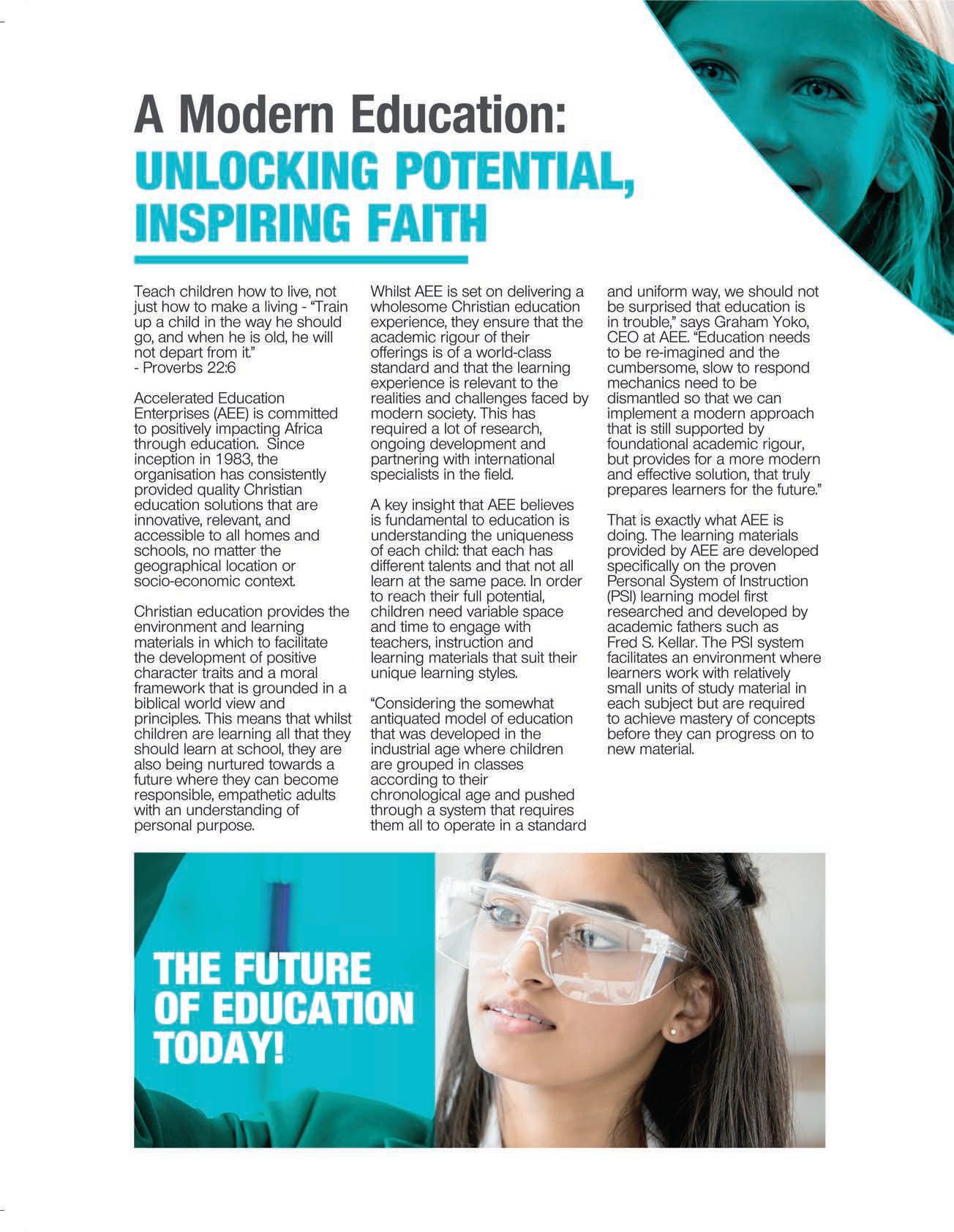
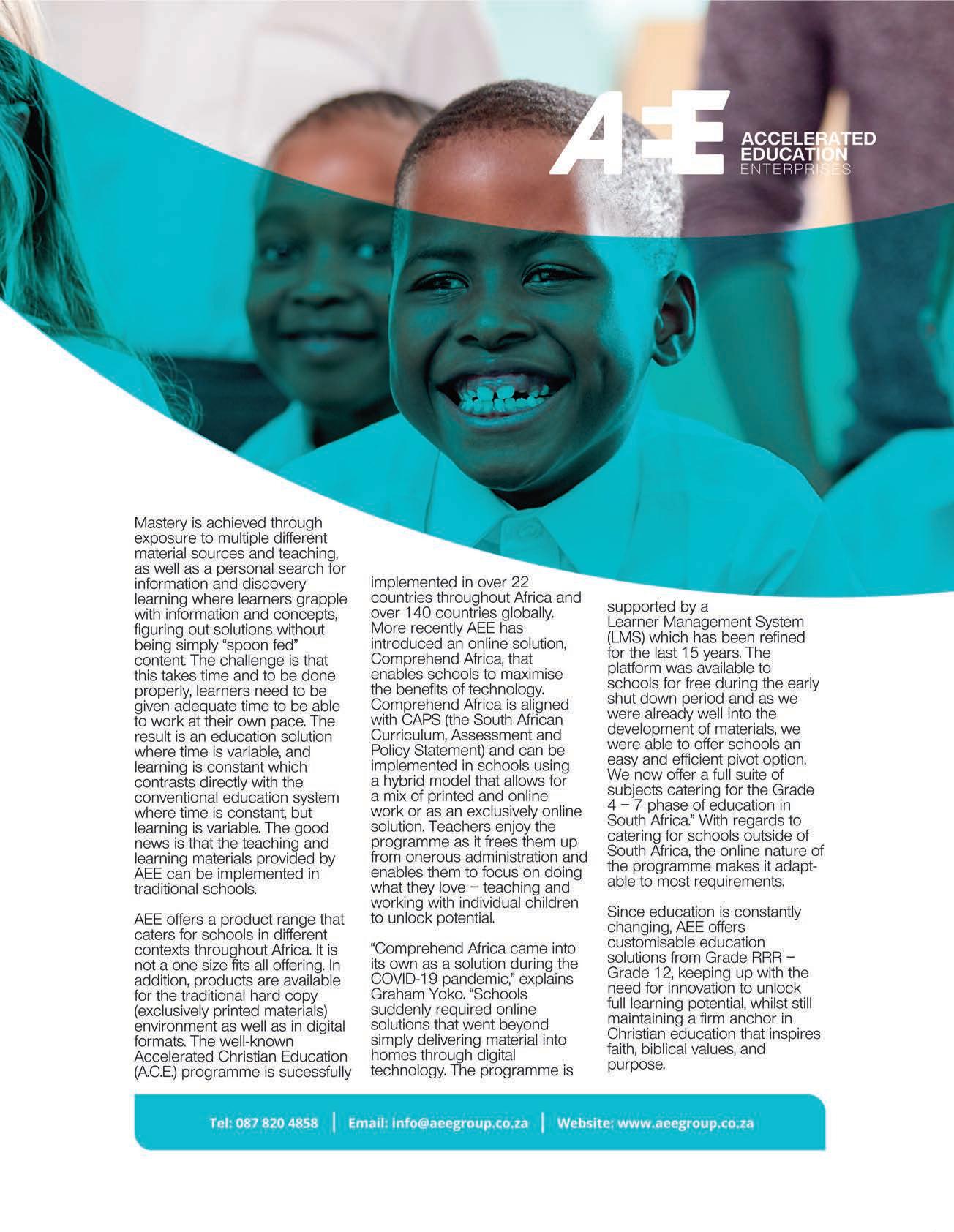
Level the academic playing field with quality early learning
CHOOSING THE RIGHT ECD CENTRE
Always try to send your child to the best early childhood development (ECD) facility you can afford. Apply the following checklist:
• Are the teachers qualified in early learning development?
• Is the school facility safe? Look at access control, stairs and other facilities. Check that the kitchen is separate and children are not exposed to hot water or electricity, the building structure is safe and teachers have done CPR training.
• Does the school offer an approved daily programme (curriculum) that develops your child?
• Does the school have a structured routine that includes snacks, nap time, toilet breaks, play and reading?
GETTING YOUR CHILD READY FOR “BIG” SCHOOL
The transition to Grade R can take a little while, and there may be ups and downs. But a little preparation can make a big difference in how your child feels about starting school.
Speak to your child as much as possible from their rst day. Read to your children and play with them as much as possible. Play will help a child develop essential cognitive skills.
FAST FACT
Once they are about to go to Grade R, practise Grade R skills. Do activities at home that your child will be doing in class. This includes forming letters (a to z), holding a pencil, and cutting shapes.
Set clear bedtime and morning routines. Before school starts, run through the morning routine with your child. Practise having your child wake up on time, get dressed, and eat breakfast. 1 2 3
South Africa has 42 420 early learning programmes (about 60 per cent are urban and 40 per cent are rural). Of the staff, 22 per cent have no teaching qualifications.

Source: ECD census (2021)
• What type of equipment does the school have? Is there enough for all the children and is it good quality?
• Are the school owners and teachers passionate and excited about unlocking your child’s potential?
• How many children are there per class and teacher? Does it meet government requirements?
• How does the school communicate with parents –for example, WhatsApp groups or letters?
• Does the school offer snacks or food? Ask about the menu and what they serve.
• Does the school do professional learner assessments to track your child’s development?
Source: www.growecd.org
16 The South African Schools Collection 2023
Tracey Chambers, co-founder of GROW, a nonprofit enterprise that supports early childhood development centres, shares some valuable insights into preparing your child for Grade R
4 5 6
Make following directions fun. Have your child do activities with one- and two-step directions before school starts. You can play new games or you could have your child help when you’re cooking.
Ask how your child is feeling. Grade R is different from other grades because there are a lot of rsts. Ask questions, such as “what do you want to know about Grade R or big school?” or “you seem a little nervous. What are you thinking about?”.
Practise asking for help. Your child may be nervous about needing help at school, including personal things such as going to the bathroom independently or getting ready to leave at the end of the day. Explain that the teacher is always there to help if there’s a problem – and that it’s okay to ask.
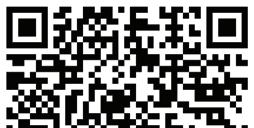
7 8

Grade R is still a place for lots of play. But your child will also be learning the basics in subjects such as reading, writing and maths. Reading to your child as often as possible helps lay the foundation for learning. It also helps prepare kids for listening time in the classroom.
Remind your child of their strengths. Explain that Grade R is all about trying new things and working to improve at old things. Talk about things your child has done and learned in the past.
THRIVE BY FIVE
Initiated by FNB and Innovative Edge in collaboration with the Department of Basic Education and supported by the United States Agency for International Development (USAID) and ECD Measure, the Thrive by Five Index released in April 2022, is the largest survey of preschool child development ever undertaken in South Africa.

The index reports how well 4–5-year-old children are doing in three key developmental domains – early learning, physical growth and social-emotional functioning.
Research reviewed for the Thrive by Five Index has consistently found that early language and mathematics skills, cognition and executive functioning, fine motor co-ordination and visual-motor integration at 4–5 years of age are predictive of children’s performance in the foundation phase of schooling and beyond. Social and emotional functioning are predictive of adjustment to school and achievements in the primary phase.
THE EARLY LEARNING ADVANTAGE
The first five years of a child’s life, according to Thrive by Five, are the most important because that is when the human brain is growing fastest and is most responsive to its environment, care and opportunities for learning. During this period, not only does the brain learn best, but the neurological foundations are also established for lifelong learning.
Experiences during early childhood shape the architecture of the developing brain. Children who are nourished and nurtured in their earliest years and who have opportunities for learning in the home and in early learning programmes are more likely to start school on track in key areas of development. Starting school on track sets children up for greater success.
17
The South African Schools Collection 2023
THOUGHT LEADERSHIP: EARLY CHILDHOOD DEVELOPMENT
THRIVE BY FIVE RESEARCH FINDING
TRACEY CHAMBERS
Time and space to learn at their own pace
CHOOSING A TUTOR
If your child needs a little help with certain subjects, you may find that focused assistance from a tutor is all that’s needed.

Don’t simply ask the university student living next door to help out. While this may be adequate if you’re looking for nothing more than supervision, you’ll only achieve results with a qualified tutor, says Gemay van Heerden from Edify Maths Tutoring.
“Your tutor should refer to past work while also checking on the direction of the syllabus. This will help them place the current work in context and help them build on it.” She adds that it’s important to look for a tutor who is a subject specialist. “Of course, personal fit is also crucial. Children can’t learn if they don’t feel they are in a safe environment.” The best test of your tutor? Ask them to explain a question or two to you – if you don’t understand, your child won’t either.
Asquare peg in a round hole. That’s how Sandra Wiesner, principal of Oakley House Plumstead Preparatory School, describes a child experiencing learning difficulties and trying to progress through a mainstream school.
“Typically, learning issues come across as a struggle to keep up with classroom peers,” Wiesner explains. “Children start to lose confidence as the gap widens; they want to know why they can’t do the same things their friends can do easily.” Then again, issues aren’t always academic: sometimes, a child may be struggling socially, battling to forge and sustain friendships and feeling as though they don’t fit in.
BARRIERS TO LEARNING
This illustrates that learning difficulties are far broader than the academic issues we usually think of. Lindsay Fisher, principal of Craiglands Remedial School, explains the five broader elements of barriers to learning.
Physical barriers include impairments such as visual and auditory, while mental or cognitive barriers may refer to conditions such as dyslexia, ADHD, long-term memory retrieval. Meanwhile, it may not be immediately apparent how social barriers (which relate to factors such as the family structure and school climate) impact learning, but Fisher explains that this plays a role in how children get on with others.
Emotional issues may inhibit their ability to learn and take in new information.
“Emotional barriers are often a major factor,” she notes, “because a child cannot ably process and retain information if they are stressed. This is often the case with children from mainstream schooling who were not able to cope with the pace
and expectations. When they reach their remediation journey, they often arrive feeling vulnerable with coping mechanisms and avoidance tactics.” Finally, cultural barriers may make it difficult for a child to relate to their environment, especially, if it contains unfamiliar elements. This may impact their ability to grasp concepts more readily.
Often, it is the cognitive barriers that first alert parents that there may be a learning issue. Wiesner says several such issues present while a learner is still at primary school. These range from dyslexia, where children struggle to read, to dyscalculia, where the difficulty lies in decoding mathematical concepts. Dyspraxia refers to problems with movement, while ADHD is a disorder where children struggle to remain focused. Wiesner says that Oakley House is also noticing an increase in admissions of children on the autism spectrum.
18 The South African Schools Collection 2023
“Children frequently experience anxiety as a comorbidity to learning conditions and suffer from low self-esteem as a result of their negative experiences at mainstream schools.”
– Sandra Wiesner
The earlier learning problems are identified, the sooner – and more successfully – they can be addressed.
By Lisa Witepski
“These are children who can access the academic curriculum successfully, but have trouble with social dynamics and working with language on a more abstract level.”
Many parents struggle with the notion that their children should attend a remedial school, Fisher acknowledges. “There is an element of uncertainty and fear because parents tend to think that this automatically translates into a difference for their child, and their plans of tertiary study and a career must be shelved. This is not the case at all,” she insists.
“Remediation is simply a form of assisted learning that gives children time and space to learn at their own pace. Many children are able to rejoin a mainstream school at some point, especially as one of our many aims is to provide the tools and values to build independence and encourage perseverance.”
REMEDIAL OR SPECIAL NEEDS
There is a difference between remedial and special needs schools, Fisher adds. While a remedial school follows the same curriculum as a mainstream school “albeit at a slower pace and with fewer frills,” as Wiesner puts it, a special needs school would have a different programme adapted to learners’ more intense requirements.
One of the major differences between a remedial school and a mainstream school is the support provided. In most cases, remedial schools offer a range of therapies through on-site practitioners. “One of the most important support structures we offer is counselling,” Wiesner says. “This is crucial, as children frequently experience anxiety as a comorbidity to learning conditions and suffer from low self-esteem as a result of their negative experiences at mainstream schools.”
REMEDIATION RESOURCES
Many children will be advised to work with an occupational therapist who will help them develop executive functioning skills that assist with organisation, planning and self-monitoring. “Occupational therapy is a key part of the journey for many children with learning difficulties. It helps them manage themselves as they go about their day with all its demands,” Wiesner explains.
Speech and language therapy is another frequently used tool. This isn’t only intended to address articulation (although that can
be the case); many children benefit from the focus on the language aspect as it helps them develop their expressive and receptive language skills.
Physiotherapy may also be recommended to help build fine and gross motor skills. This will also develop upper body strength, which is important as a weak core impacts a child’s ability to sit and focus for the full duration of a class.
The school should also offer or accommodate a facilitator – an individual who generally smoothes the child’s path. “For example, if a child struggles with executive functioning, a facilitator would assist them in a targeted way by giving them strategies to work with in the moment,” Wiesner says. An educational psychologist is also usually on hand to provide assessments and offer recommendations based on the outcomes.
Then there are remedial therapists who target specific areas of the curriculum where a child may need a little extra assistance. Wiesner refers to these layers of support as “scaffolding”, adding to a structure that has already been carefully designed to help bring out the best in each child.
Class sizes are considerably smaller than in mainstream schools. “Traditionally,
teachers in mainstream schools work to a class average. At our school, work is first pegged at the individual’s current pace and eventually evolves for the learner to reach their full potential. This alleviates much of the pressure that contributes to learning problems,” Fisher says. “I’m often asked if, instead of sending their child to a remedial school, a child can go to a small private school, but it’s this type of remediation, experience and targeted goals that makes our schools so much better suited to a child who is struggling.”
CHOOSING THE RIGHT SCHOOL
When it comes to selecting the right school for your child, the usual principles apply: is it close to home? Does it fit your budget? Are the school’s values and ethos in line with your own?
Other factors to consider include the infrastructure and the teacher-learner ratio. Wiesner says parents should ask about the programme on offer and the homework programme. “One of the areas many learners struggle with is balancing classwork with homework and extracurricular activities, so it’s a good idea to know how the school aims to help them fit these all together.”
CONCESSIONS, ACCOMMODATIONS AND ASSESSMENTS
Educational psychologist Jolene Knowles says knowing when it’s time for intervention varies from child to child. But generally speaking, if they are experiencing difficulty in a range of areas, it might be time to ask for an assessment from an educational psychologist. “For example, if your child is struggling to make friends, you can consider counselling rather than going the remedial route. Similarly, if they are grappling with maths but doing well in all other subjects, they may simply need extra lessons. But if there is a question mark over several learning areas and the teacher has exhausted all other options, there may be a barrier to learning.”
Knowles explains that the assessment comprises three parts: a cognitive test that looks at a range of abilities, from verbal comprehension to working memory, a scholastic or educational test to gauge skills in reading, writing and maths, and an emotional assessment.
“The psychologist’s recommendations – including concessions and accommodations – will be informed by this assessment,” Knowles says. These may include assigning a reader or scribe for the child or providing extra time during tests.
19 SPECIAL NEEDS The South African Schools Collection 2023
“Remediation is simply a form of assisted learning that gives children time and space to learn at their own pace.”
– Lindsay Fisher
Prepare for the future with real-world learning
1. ONGOING ASSESSMENT
The way we assess children is no longer relevant. The current approach of having several assessments based on rote memorisation is encouraging children to develop hard skills. This is really just teaching them to copy, much like artificial intelligence (AI).
Teachers should rather encourage creativity and problem-solving. In traditional education, the whole class writes the same test, at the same time based on a set body of work. But, I believe assessments should rather look at how students are learning.
Ongoing assessment alleviates much of the anxiety associated with one-off assessments. In traditional schooling, the child has one shot at success, and when the results are in, the class will move on to the next section of work. This means children often miss an opportunity to understand why they performed poorly.
It’s also important to have age-appropriate assessments. Children (of six and seven) don’t have the psycho-emotional maturity to handle assessments.
2. A REDEFINITION OF THE RELATIONSHIP BETWEEN CONTENT AND LEARNING
When teachers become facilitators instead of content deliverers, they are able to concentrate more on the needs of their class. The focus shifts from what is being studied to how it is being learned.
3. REAL-WORLD LEARNING
Traditional education often does not mimic the real world. You should be able to look at content and ask how it presents in the real world. We want learners to use the tools they would use in the real world.
FAST FACT
MARK ANDERSON
INTEGRATE TECHNOLOGY INTO THE CLASSROOM
The integration of technology in education is critical, says Dr Corrin Varady, CEO of ed-tech platform IDEA. Technology is no longer a nice-to-have in the classroom. It should be integrated into every aspect of learning so that learners develop the skills they need to meet the demands of the fourth industrial revolution. “The focus in education must shift from the infrastructure to digital learning – the way we optimise or activate the technology we have.”
Instead of simply introducing e-books and other tech resources as add-ons in the classroom, these resources should be used to enhance learning. Gamified and interactive learning environments can help improve numeracy and literacy. IDEA uses filmed experiments, virtual laboratories, interactive 2D and 3D animations, diagrams, photographs, motion graphics and relevant case studies to teach science, English and maths. Technology should also not be limited to STEM (science, technology, engineering and mathematics) subjects. It should be integrated into every aspect of the curriculum so that children can learn how to apply their skills in their chosen careers when they leave school, says Dr Varady.
Technology can also stimulate play, an important aspect of learning, says Bez Sangari, CEO of education solutions company Sangari South Africa. “Games and competitions, such as CoderZ, have been developed specifically to teach curriculum subject matter while playing with robots in a virtual world. Learners access the information required to be successful and learn at their own pace while being closely monitored through a learner management system.”
Some examples of tech resources for classrooms include CoderZ, an online learning environment, similar to gaming software, that can programme real and virtual robots. “It leverages technology to maximise the four Cs of education: critical thinking, collaboration and communication,” says Sangari.

Edukite Learning has developed a free-to-download app with learning material designed from the CAPS curriculum for Grades 4 to 12. It uses 2D and 3D animated videos to make learning more engaging and simplify complex concepts.
Many of these tech resources, such as CoderZ, have training programmes for teachers.
According to the outcome of HP’s education-focused survey 2022, 95 per cent of educators believe technology can have a positive benefit in the teaching environment and can raise learners’ engagement in lessons.
20 The South African Schools Collection 2023
Mark Anderson, principal and founder of Koa Academy outlines four key features of “School 2.0” – a future-forward version of the traditional classroom
The content should also be presented to the teacher in a real-world scenario. For example, a class studying business can present their start-up ideas to a panel of angel investors.
4. SOFT SKILLS ARE ESSENTIAL, NOT A NICE-TO-HAVE
Soft skills are really “key skills” because they are not just an important part of education, but rather the core of education. It’s the focus of developing a young person. These skills include collaboration, leadership, creativity and lateral thinking. Soft skills are transferable and will prepare you for any business.
Soft skills won’t come from curriculum changes. We should not expect the Department of Basic Education to introduce classes dedicated to soft skills. We must rethink education so that soft skills are inherent in how we teach and how children learn.
School 2.0 does not remove learning obstacles, but it does allow for greater flexibility and individualisation.

TEACHERS AS “LEARNING ARCHITECTS”
“We believe that teachers are at the heart and tipping point of the education system, which is why we offer a range of courses on a gamified, professional development platform to inspire and empower teachers with the skills they need to future-proof their classrooms,” says Lindsay Wesner of PurpleZA, a professional development platform for teachers. She adds that teachers also need to have access to local examples of curriculum-based, innovative teaching to be inspired. Wesner shares her recommendations to empower teachers to reimagine their classrooms.
1. Teachers should think of themselves as “learning architects”. They need to make learning adventures possible for their class and involve students in resolving realworld problems. Students’ learning must be at the forefront of what is happening in the classroom. Learning is more important than merely covering the curriculum.
2. Putting labels on students places limitations on their growth. Don’t let a child say they can’t do something, rather let them say, “I can’t do this yet.” We need to shift language in classrooms. When we change the language we use, we can change the classroom’s culture. The words we use have a powerful impact.
3. Students have powerful voices, and teachers need to allow them to be heard in class. They have important things to say. Microsoft Flip, for example, is an app that allows students to post videos and clips to share with the class. If the teachers do all the talking, there is less opportunity for students to learn.
4. There’s too much duplication of resources in schools. We need to be smarter in how we collaborate with teachers in the same grade and even with other schools. We need spaces where teachers can share ideas and think creatively about lessons. There is scope for redesigning and sharing content. We can’t compete in education, we must collaborate.
5. Think of teaching as a craft and invest time designing creative content. For teaching inspiration, visit www.purpleza.co.za/stories
21 THOUGHT LEADERSHIP: THE FUTURE-PROOF CLASSROOM The South African Schools Collection 2023

When words and deeds hurt as much as sticks and stones
The South African Federation for Mental Health defines bullying as behaviour that is intended to be hurtful and targets a person or a group of people more than once. It can take place in the classroom, on the sports field or online.
Bullying assumes many forms. Childline South Africa refers to verbal and physical bullying, bullying by social exclusion, material bullying – stealing personal belongings, mental bullying – threatening a person, and cyberbullying, which takes place in the digital space.
Zamo Mbele, a clinical psychologist and head of clinical operations at Panda, a tech-based wellness platform, says bullying appears to be increasing partly because it is garnering more attention and being acknowledged as having a significant impact on mental health and also because of the way the world has evolved.
“We are seeing more self-parenting and isolation as much of our interaction with the world has moved online,” he says.
FAST FACT
This leaves children to their own devices to model the behaviour they see on TikTok and other platforms, instead of learning from their parents or interacting with their peers. Social media is creating more opportunities for people to bully or be bullied. Social media also lacks parameters. “It’s a place where anything goes. There are (few) consequences and greater anonymity for perpetrators.”
OPEN THE LINES OF COMMUNICATION
Mbele urges parents to speak to their children about bullying. Explain the different types of bullying and unpack concepts such as teasing, trolling and shaming. How you respond to a bullying incident, whether your child is the victim or the bully, will affect how they deal with the situation. Be mindful of how you deal with issues or situations where you could potentially be considered a bully, advises Mbele. Children will emulate your actions and behaviour. “A lot of adult bullying gets filtered down to the child.”
A PLATFORM TO BULLY
Cyberbullying, which involves posting comments about a person on social media or using online platforms to harass or intimidate someone, is particularly pervasive, says Rachelle Best, techpreneur and founder of monitoring app FYI play it safe. “Studies have shown that about one in three teenagers has experienced it.” She adds that recent interviews with tweens revealed that children as young as eight or nine are bullied online. “With social media and other platforms, bullies can easily target their victims, and being able to hide behind anonymity makes it even harder to stop them.”
PROTECTING THE VICTIM
Confirm that it is not your child’s fault and confirm privacy settings and change passwords, advises Dr Marlena Kruger, digital wellness expert and coach. “It is also wise to block the perpetrator, take screenshots of the negative messages and save them on another platform.”
Consider consulting a professional therapist or wellness coach/counsellor to address the possible negative consequences of the bullying and to improve digital wellness.
HELP FOR THE ONLINE BULLY
Best recommends the three-question principle of “Is it true?”, “Is it necessary?” and “Is it kind?”. If the answer is no to any of these, the child should not be doing it. This applies to posting a comment on a photo or video, a message to a friend, or something said in a chat group. Encourage positive behaviour and model kindness. Other recommendations include having an open and honest conversation about their behaviour and explaining the negative impact of bullying on others. Remind your child that cyberbullying can have legal consequences, adds Dr Kruger.
“Monitor their online activity, this includes checking social media accounts, text messages and other online communication,” says Best. Automated tools, such as FYI play it safe, make it easier to watch their online engagement. Set clear consequences for cyberbullying.
“A 2021 survey of 200 South African parents found that 51.5 per cent of their children had been cyberbullied and 54 per cent had accessed inappropriate content via digital platforms. This data is likely under-represented due to children’s reluctance to talk about an attack they experienced, or they may be the perpetrator themselves.” – Dr Marlena Kruger, digital wellness expert and coach

Finally, seek professional help, especially if the bullying behaviour is severe or persistent, advises Best. “Therapy or counselling can help address any underlying issues contributing to the behaviour.”

23 BULLYING The South African Schools Collection 2023
Bullying can have devastating implications for the victim and the perpetrator. Anél Lewis asks the experts to share ways to help both parties deal with bullying behaviour
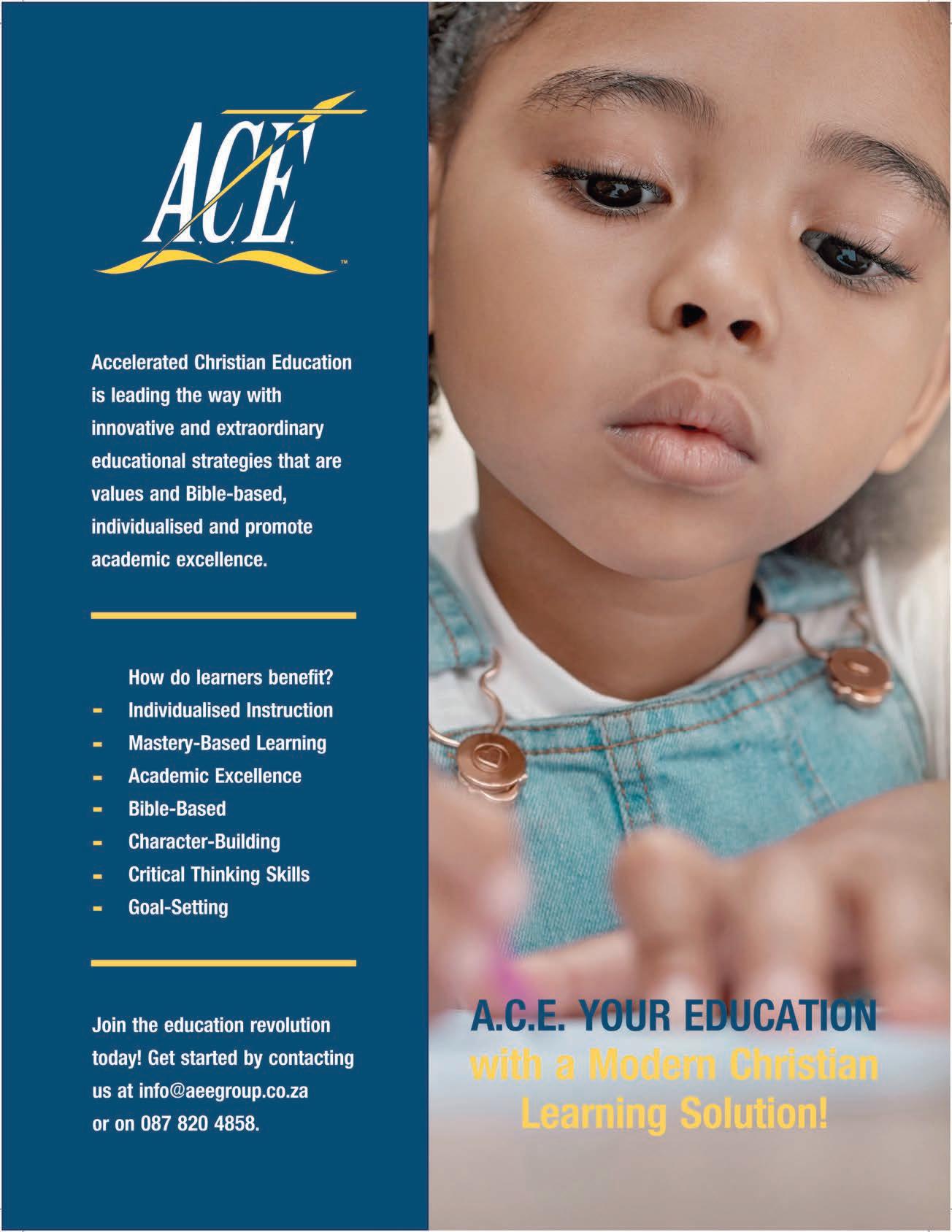
Healthy children “eat a rainbow”
Obesity, especially childhood obesity, is on the rise in South Africa. As a country, we seem to be adopting convenience foods that often are not the healthiest options. A culture of convenient eating is becoming more pervasive, from the meals we eat as a family to the food we pack into our children’s lunchboxes.
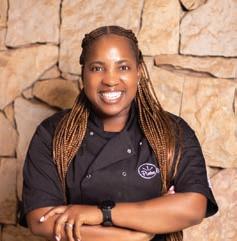
There’s a misconception that healthy food is more expensive. However, if done correctly, balanced eating does not have to break the budget. It is about making daily changes that will contribute to a healthier lifestyle. Buy brown instead of white bread, grill or stew your meat instead of frying it, and try to use less sugar and salt in food.
There are also ways to ensure that children’s lunchboxes are healthy yet affordable. Pack leftovers that are suitable for lunchboxes. For example, make extra pasta that can easily be packed into a lunchbox the next day or use extra chicken from a roast to make a chicken mayonnaise sandwich for school.

Buy fruits that are in season. Not only are they more affordable, but they will also have a higher nutritional value. Instead of buying prepacked snacks, such as peanuts and
pretzels, buy in bulk and portion them into smaller bags for lunchbox portions.
PACK A RAINBOW
Lunchboxes should include all the different food groups: wholegrain starches, protein, fresh fruits, vegetables, dairy and some healthy fats.
Brown bread and rolls, rice and pasta are some easy and affordable starches. Fruits and vegetables can be incorporated as fillings for burgers or wraps or cut into pieces for easy snacking. To up the protein portion, use peanut butter on sandwiches or pack a few boiled eggs. Instead of sugary drinks, pack a container with milk or yoghurt. Cheese is also a good source of
dairy. Healthy fats can be found in avocado, peanut butter and nuts. Including a variety of fruits and vegetables adds colour to lunchboxes. We need to encourage children to eat food that is packed with vitamins and minerals.
WHAT TO AVOID
Try to stay away from food with empty calories. These items, for example, chocolate, sweets, cakes, crisps and sugary drinks, have very little nutritional value and are usually high in sugar and fat. Overconsumption of these foods will encourage weight gain and even obesity. Instead of throwing a packet of crisps in the lunch bag, rather offer homemade popcorn. Replace sweets with raisins or dried cranberries. Rather than sugary drinks, give your children water or milk. Digestive biscuits are as tasty as sugary alternatives, but far more nutritious.
Children need a healthy and balanced diet to perform optimally at school, both in the classroom and on the sports field.
LUNCHBOX-FRIENDLY YOGHURT BERRY GRANOLA BARS
Ingredients:
• 100ml full-cream plain yoghurt
• 2 cups oats, uncooked
• ½ cup berries, fresh and mashed
• ¼ cup honey
Method:
• Preheat the oven to 1800 Celsius.
• Mix the yoghurt, oats and berries in a bowl and add the honey.
• Line a 25 x 30cm baking dish with baking paper.
• Pour the granola bar mixture into the lined baking tray and press it down with a wooden spoon till it is flat and even.
• Bake in the preheated oven for 20–25 min or until golden brown.
• Once baked and golden in colour, remove from the oven and leave the mixture to cool down fully.
• Cut into equal bars.
Source: The Cooking Dietitian for Rediscover Dairy
25 NUTRITION The South African Schools Collection 2023
Reabetjoe Mokoko, aka The Cooking Dietitian, explains why eating a rainbow has many health benefits
REABETJOE MOKOKO
Open your eyes to your child’s struggle
Children are presenting with anxiety from an earlier age, says Dr Jenny Rose, clinical psychologist and parent-child expert
Without a doubt, any mental healthcare worker will tell you that the demand for intervention and treatment to support and assist children and adolescents is higher than we have ever seen. In my practice, in particular, I have seen an influx of presentations of anxiety. We are seeing high levels of anxiety in children and teens. It is as if they are completely overwhelmed with what life expects of them. Several factors attribute to higher levels of anxiety among young children.
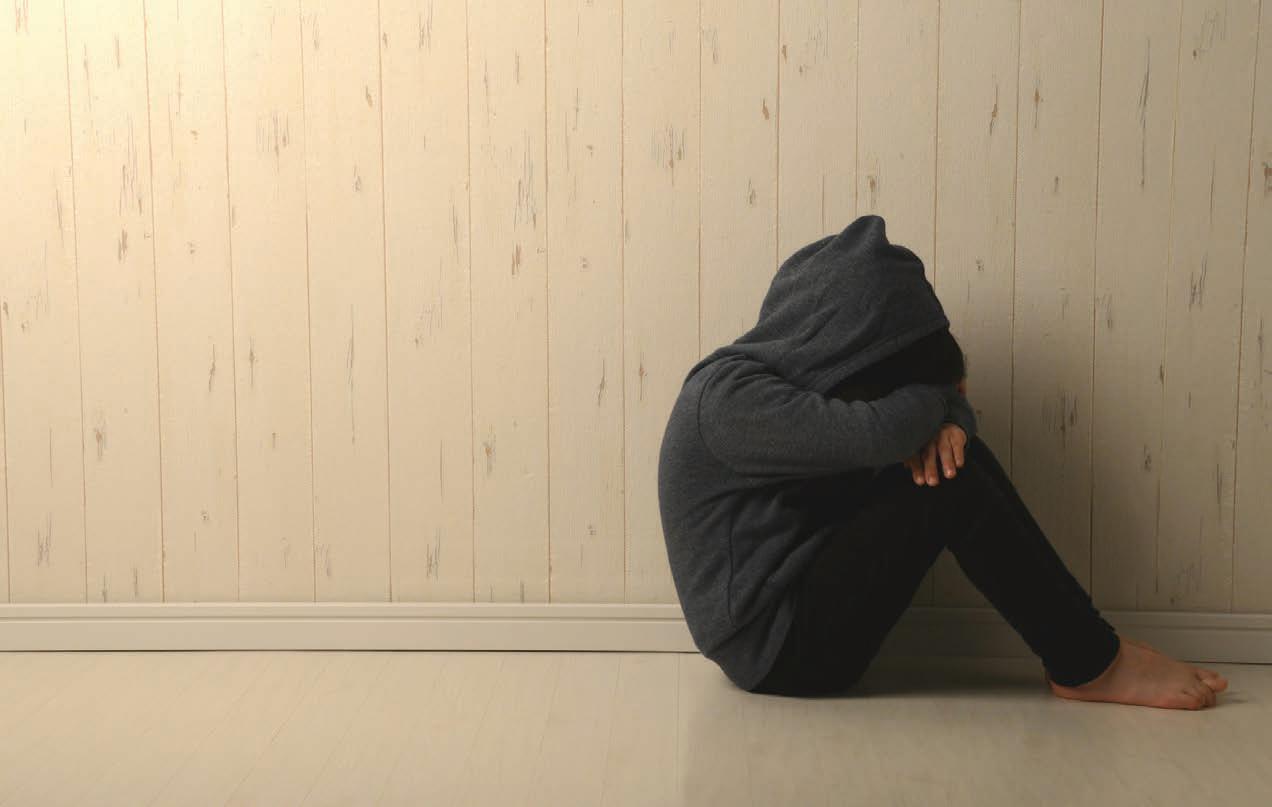
ANXIETY TRIGGERS
Children generally don’t worry about the same things as adults do. To a large extent, they are sheltered from many “adult” issues, such as load shedding and crime. In some cases, however, we do see a few cases where a child is “parentified”, meaning they have taken on some of the worries and stresses experienced by their parents. But generally, as parents, we shelter our children from these issues as we gauge what is appropriate for them to handle. We don’t want children to worry about adult problems or grapple with issues they are not yet ready to manage.
DR JENNY ROSE
However, It does feel as if each year, greater demands are being placed on children. Teenagers are expected to do so much and to behave in certain ways. There is pressure in terms of academic and sports results. They have to be involved in these, as well as cultural activities, at school. This places huge demands on their time. Children often feel that parents and teachers place too much pressure on them, especially when it comes to academic performance. They often also place too much pressure on themselves to achieve or succeed.
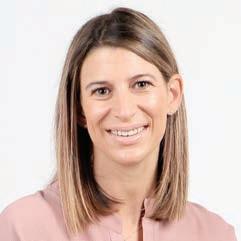
26 The South African Schools Collection 2023
Girls struggle to navigate complex social relationships and, with the added layer of social media, often feel isolated and overwhelmed.
Social relationships are one of the primary components of adolescence and often account for a lot of the anxiety children experience. Our children also have to navigate social media, something we are grappling with for the first time. We are experiencing the first generation of children and teenagers exposed to social media, so when it comes to navigating this, there is still much to learn and know.
Furthermore, we are still dealing with some of the after-effects of COVID-19 and its impact on social relationships and the gap in children’s academic fund of knowledge. There are also big discrepancies in how families have managed and dealt with the various aspects of the pandemic. It’s not a very typical situation.
Unlike load shedding, which is a similar experience for all of us. COVID-19 has been a dividing experience because there is so much difference in how people have dealt with it. It has had different ramifications and varying financial implications for each family. There is such a vast discrepancy in what COVID means to each family – there is no one-size-fits-all solution for its impact.
These are just some of the factors contributing to higher anxiety among children and teenagers.
WHAT DOES THIS ANXIETY LOOK LIKE?
We see teens, especially as they become more anxious, present with different behaviour. They are pushing the boundaries even more than they have in previous years. They are experimenting with many different substances. Vaping, especially, is an enormous problem and even pandemic among school children. Children are starting to vape at younger and younger ages; we are now seeing even primary children vaping. With substance abuse, there is often a lot of guilt, which, for many children, translates into self-harming behaviour.
I am seeing a high incidence of self-harming behaviours, particularly among teenage girls, at the moment. I think it is due to the high pressures placed on girls, and their complex social dynamics. Girls struggle to navigate complex social relationships and, with the added layer of
social media, often feel isolated and overwhelmed. They feel alone in their struggles, which generally leads to them being withdrawn or avoidant and disengaged from the family. This is where we frequently see the breeding ground of depression and anxiety, which may lead to eating disorders and even self-harming behaviour.
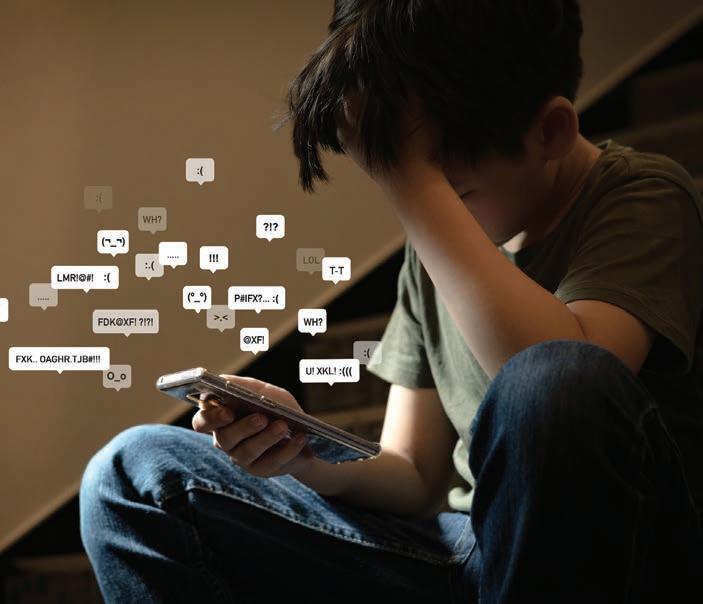
Schools are struggling as they generally don’t have the facilities or resources to offer the necessary support. Parents often expect schools to make up the time lost during COVID-19 and fill the academic gaps resulting from two years of the pandemic. They expect schools to navigate the difficult social relationships that can also be the result of different and atypical relationships over the past two years.
ADVICE FOR PARENTS
Open your eyes to the child in front of you. There is no greater expert on
your child than you. As the parent, you know them better than anyone else. You see them every day. Use that “eye” that sees further than anyone else in their life and see what is going on for them. Parents need to be able to pick up on the subtleties of their behaviour to see how they are doing. Children are highly unlikely to be capable of verbalising what is going on with them. Even for adults this is difficult. So we must look into their lives and behaviour and try identify if they are struggling.
If we see them, we can actually see their struggle.
The biggest thing to combat dysregulation, anxiety and depression is to connect with your children. The main tool for dealing with these issues is the parent-child relationship. The more connected, the more attuned and the more available we are as parents, the more we can act as a buffer against the adversities our children face.
27 MENTAL WELLNESS The South African Schools Collection 2023
The more connected, the more attuned and the more available we are as parents, the more we can act as a buffer against the adversities our children face.
Addressing LGBTIQ+ discrimination
The Department of Education is making moves to support gender neutrality to align with the South African Constitution, which protects gender identity and sexual orientation and prevents any discrimination on these grounds.
As the South African Society of Psychiatrists emphasises on its website, “transgender is not a mental illness or disorder”. Yet, according to the past president, psychiatrist Gerhard Grobler, “youth identifying as transgender may experience anxiety and depression, increasing their risk of self-harm due to stigma, lack of acceptance, a feeling that they have to hide their true selves, low self-esteem, social isolation and, at its worst, bullying, harassment and abuse”.
Guidelines for the Socio-Educational Inclusion of Diverse Sexual Orientation, Gender Identity, Expression and Sex Characteristics in Schools are still “under consultation” before opening for public comment this year, but a leaked draft late last year provoked an outcry in some quarters.
STOKING PANIC
Dennis Francis, Professor of Sociology at Stellenbosch University, and Haley
McEwen, a postdoctoral researcher at the University of Gothenburg in Sweden, have focused their research on how educational structures and practices produce “cisheteronormativity” in schools (beliefs that gender identity corresponds to the one assigned at birth), and social inequality in schools. They report that advocacy and political groups, including Freedom of Religion in South Africa, The Family Policy Institute, the African Christian Democratic Party, and Freedom Front Plus, have been “creating controversy about the draft guidelines” by homing in on two elements to “stoke panic”:
the “provision of unisex toilets, which would not replace single-sex toilets, and the elimination of gender pronouns”.
Claiming the guidelines are “godless” and “antifamily”, the groups argue that the rights of Christian learners and their families would be violated, say Francis and McEwen in a 2022 article, “LGBTIQ+ learners at risk in South Africa as conservative Christian groups fight plans for safer schools”, published by The Conservation. “The groups claim their opposition is grounded in religious belief, not hatred for LGBTIQ+ people,” Francis and McEwen explain, “but our research shows that United States of America Christian right organisations have grown their networks in African countries.”
Francis and McEwen add that researchers and journalists have documented increased homophobic and transphobic bullying in South African schools in recent years.
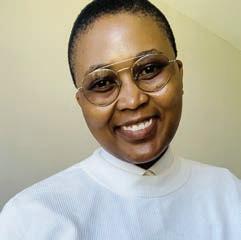
FEAR AND DISCRIMINATION
There is little data on the prevalence of LGBTQI+ discrimination, especially in schools, but a 2016 report by OUT LGBT Well-being, Hate Crimes against Lesbian, Gay, Bisexual and Transgender people in South Africa, found that 56 per cent of LGBT South Africans experienced discrimination based on their orientation, mainly as bullying and threats of violence.
Last year, the Legal Resources Centre (LRC) spotlighted the suicides of three pupils. In June, Mpho Falithenjwa, 14, of Orange Farm in Joburg, killed himself after allegedly being constantly bullied at school for his sexuality. In August, Lukhanyo Jongqu, 14, from Kubusie Combined School in Stutterheim in the Eastern Cape, and Tiro Moalusi, 15, from PJ Simelane Secondary School in Soweto, ended their lives, allegedly after homophobic bullying by teaching staff.
“These incidents underscore some of what LGBT learners encounter in schools across South Africa, which they experience not only from their peers, but also from teachers meant to create an inclusive and safe learning environment for all children, irrespective of their sexuality and gender expression,” says the LRC in a statement. Such incidents, it adds, “highlight the need for the National Department of Basic Education (DBE) to take steps to protect LGBT learners in our schools”.
GETTING THE BASICS IN PLACE
In the absence of the guidelines currently underway, schools must rely on the National School Safety Framework (NSSF) published in 2015 by the DBE and Centre for Justice and Crime Prevention. This provides what it describes as “an important instrument through which minimum standards for safety at school can be established, implemented and monitored, and for which schools, districts and provinces can be held accountable”.
WITHIN LIMITS
But given the ongoing violence in schools, more is clearly needed. “Schools are still not taking accountability for the violence there, especially the bullying of queer learners and girls,” says Siyanda Magayana, senior officer: Gender Equality and Anti-Discrimination Office at the University of the Free State. The new guidelines aim to ensure this. As DBE spokesperson Elijah Mhlanga says in a statement, they came about after the violation of human rights and discrimination
28 The South African Schools Collection 2023
Gender identity and sexual orientation are protected by the Constitution, but how does one formalise these rights in the classroom?
Glynis Horning finds out
SIYANDA MAGAYANA
against children of diverse sexual and gender identities – and the litigation provincial education departments have had to contend with relating to this.

The most contentious proposal in the guidelines is the inclusion of gender-neutral toilets, prompting one parent, Rudayba Rasoon, to launch a petition, “No to unisex toilets for schools in South Africa” on Change.org. “Toilets are private and suggesting that girls and boys share toilets will bring about many social ills,” she says. “As a responsible parent, I cannot condone or approve this. Schools are supposed to be a safe haven for all.” At the time of writing, it has over 139 600 signatures.
But at least 20 schools in the Cape are reported to provide unisex toilets to accommodate transgender pupils, with no reports of problems. They include Westerford High School and Pinelands North Primary.
PIONEERING SCHOOLS
Pinelands North principal Ann Morton says they introduced gender-neutral bathrooms and uniforms back in 2005, when a child who had been a boy at her previous school enrolled at their school and said what worried her most was having to share bathrooms with boys. “The School Governing Body and parents funded a change, removing the wall separating the girls’ bathrooms from a main passage and fitting doors with locks to the six genderneutral stalls for privacy and safety.” Morton says most children now choose these toilets in preference to the boys’ and girls’ toilets.

The DBE guideline proposals also include the abolition of gender-specific uniforms. The Commission for Gender Equality says current DBE school uniform policy is based on “accessibility and affordability”. But commission spokesperson Javu Baloyi adds
that “the lack of a human rights approach does little to address the homophobic environment within South African schools. It can no longer be tolerated and ignored”.
The guidelines also propose schools adopt gender-neutral terminology. Westerford High already gives pupils the option to wear a badge showing their chosen pronouns, whether he/him, she/ her, or they/them. And Alison Gray, deputy principal of transformation, leadership, houses and sport, has reported that many choose to wear it, so trans pupils don’t feel excluded. Westerford’s Diversity and Inclusivity Policy emphasises that it “seeks to ensure that all, regardless of their race, gender, sexual orientation, socioeconomic status, religious or other prohibited grounds, feel safe and comfortable”.
Schools’ curricula and terminology will need to reflect the change required by the new DBE guidelines. A manual for teachers in early childhood development (ECD) centres and Grade R classes, All Are Welcome! Promoting Gender Equality in ECD, developed in 2020 by the DBE with Stellenbosch University and international nonprofit organisation VVOB Education for Development, was piloted last year with 3 000 nursery school teachers
It advises avoiding sex-specific play materials, such as fireman outfits and princess dresses, which could “encourage stereotypical behaviours and limit learning experiences”, and advocates using gender-inclusive language: “Good morning, everyone”, instead of “Good morning, boys and girls”. It also advocates adapting stories and songs: “Alternate male and female names, swap parental roles, make verses gender neutral … instead of ‘Old MacDonald had a farm’, teach children to sing: ‘Tendai’s parents had a farm, E-I-E-I-O’.”
In high school, terminology also needs to change, says Magayana. “Terms such as ‘head boy’ and ‘head girl’ insinuate that gender is the main reason to attain leadership positions. ‘Head learner’, ‘head prefect’ or ‘student leader’ are more inclusive and promote leadership opportunities for all learners, regardless of gender identity. They also help create a more diverse and representative school community.”
“It’s a whole new way of thinking,” says Durban educational psychologist and
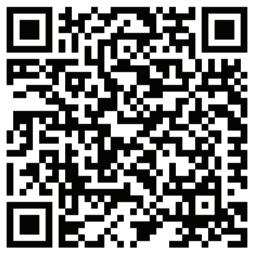
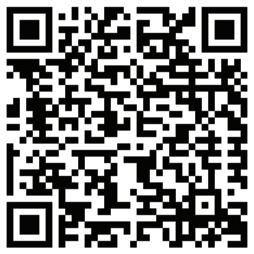
former schoolteacher and principal Dr Caron Bustin. “It can be unsettling for some, and we need to respect that while respecting the choices of others. The greatest difficulty is at the chalk face –not only in the physical environment, for example, ablution facilities, but also the sensitivities of all school populations, from the support staff to the head principal. We need to tread very cautiously and explore every aspect from all gender perspectives in open discussion and forums.
“We are only at the beginning of this journey. Sensitivity and empathy should be our watchwords, regardless of gender identity or affiliation.
29 GENDER INCLUSIVITY The South African Schools Collection 2023
“Sensitivity and empathy should be our watchwords, regardless of gender i entity or a iation
Dr Caron Bustin
WESTERFORD SCHOOL’S DIVERSITY INCLUSION POLICY
MORE ABOUT THE DBE’S CONTROVERSIAL GUIDELINES
DR CARON BUSTIN
ANN MORTON
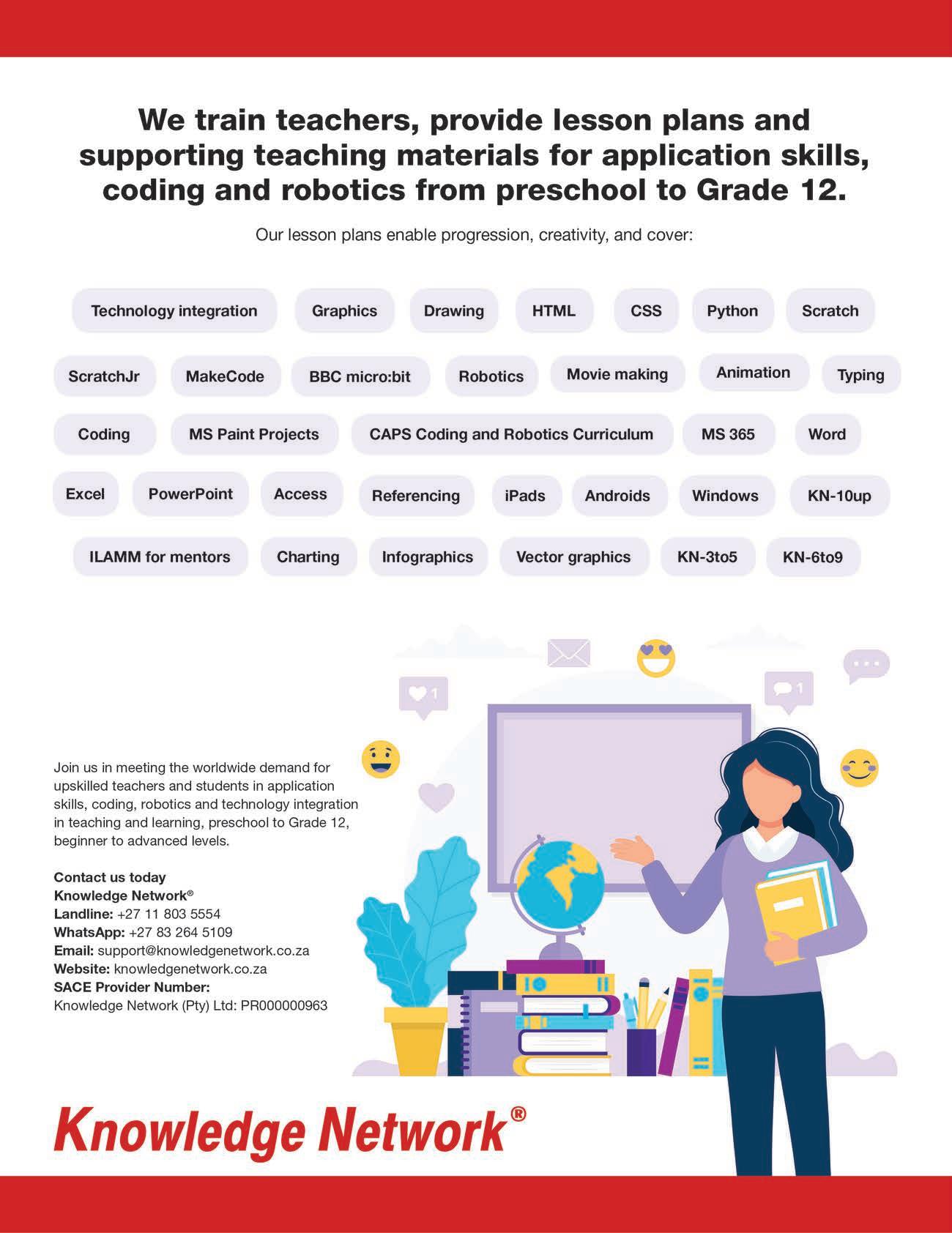
The rise of the online classroom
Online schooling has gained traction since the pandemic. COVID-19 presented a huge challenge for South African schools: how to continue teaching without having learners physically present? Health concerns and fears that the pandemic would result in considerable disruption to the academic year prompted great interest in online schooling and homeschooling as effective alternatives to traditional schooling.
Much of the learning during the pandemic took place online. This increased reliance on technology marked a considerable shift in the way in which learning takes place. Currently, South African online schooling mostly uses technology to aid teaching –actual teachers present lessons online and apply technology for additional academic support, exercises and assessments, rather than implementing technology exclusively to conduct teaching.
BEYOND BRICKS AND MORTAR
For some children, online schooling offers numerous benefits over the more conventional brick-and-mortar approach to schooling. Because children learn in the comfort of their own homes, it is a good choice for those that are not a good fit for large, socially demanding environments, explains Ian Strydom, CEO of Wingu Academy. The flexibility around time also suits those involved in sports who have to travel to competitions and train for long hours.
MAKING THE RIGHT CHOICE
Choosing the right online school or homeschool for your child requires thorough
research so that the selected school can deliver what the parent and child hope for. “Ultimately,” says Coleen Cronje, CEO of Brainline Holdings, an online distance education provider, “it remains the parent’s responsibility to do all the due diligence within their power to ensure that they make the correct choice.”
A key consideration is the extent of support required by the specific learning styles of the learner. In a pure homeschooling environment, for example, the parent should be available to provide the support that the child needs – both academic and assistance with things such as time management and work focus. However, online schooling goes beyond this by providing the curriculum and ongoing assessment, thus taking more responsibility off the parent.
At Wingu Academy, for instance, the blended learning approach provides teachers giving lessons online with additional academic support through various activities, including interactive quizzes, summaries, tutorial sessions and the use of textbooks for additional material. “The blended learning approach means that learners can acquire knowledge and understanding of the material, no matter their preferred learning style,” Strydom explains.
Online schooling also offers the learner greater structure than pure homeschooling may. Strydom points out that without a formal structure, such as when the learner has exclusive responsibility for progress with their learning, there is a real risk that the learner will fall behind. “The online school has a responsibility to ensure that the learner gets through the curriculum,” he explains.
TOP TIPS FOR CHOOSING AN ONLINE SCHOOL
1. Look for a school with a well-known brand and a proven track record for online instruction and assessment methods.
2. Ensure the school is registered with an examining body, such as the Independent Examinations Board, which is accredited by Umalusi to offer the National Senior Certificate. This accreditation ensures that the child’s qualifications are accepted at local and international schools and universities.
3. Evaluate the resources available. Is there access to supporting learning material and a database or online platform?
4. Consider whether the online classrooms are easily navigable. The online environment should have a personal feel and be easy to use.
5. Find out if the school offers a diversity of programmes and subjects.
Source: Brainline
“This is why learners must complete assessments by a stipulated date.”
Another consideration relates to the schools’ preparation of learners for university study. By following an international school certification, such as the Pearson International British Curriculum, which is aligned with the British educational system and recognised worldwide, a South African learner experiences the sort of preparation for post-school study not offered by most South African schools.
While parents may be less actively involved in the learning process at an online school, they should be kept informed about their children’s progress, which can be done through dashboards. “Brainline has developed its own learner and parent dashboard, each designed to accommodate the special requirement of that user,” says Cronje.
31 ONLINE LEARNING The South African Schools Collection 2023
Thorough research is needed before enrolling a child in an online or homeschool, writes Bonny Feldman
“The online school has a responsibility to ensure that the learner gets through the curriculum.” – Ian Strydom
ChatGPT, academic friend or foe?
ChatGPT is a trending topic. While some see it as the potential end of creativity and original work, its capabilities can be leveraged by tech-savvy students, teachers, and even parents, writes
Rebecca Pretorius, South African country manager at Crimson Education

Learning in any realm – whether in school, university, or professionally – is a way to train your brain. When used effectively, ChatGPT, the artificial intelligence (AI) chatbot, can become an additional, practical tool to help students unlock creativity, generate content and increase their potential for improved performance and future learning.
In many ways, it is a centralised offering of what students are already accustomed to using with Google, Grammarly and Wikipedia. The key to leveraging the platform effectively is to understand its limitations and strengths.
For example, despite having 570GB of data sources, such as books and websites, it cannot recognise misinformation in its own writing, or the sources at its disposal. It also has no knowledge of events or information after the end of 2021, due to its capacity for the amount of data it can be trained on. The combination of these two factors means the programme is a relatively unreliable source of specific facts and data.
VALUABLE ACADEMIC TOOL
Outside of these limitations, the AI programme’s capabilities are a valuable academic tool. Students can think of ChatGPT as an interactive past paper or a study guide that adapts to their specific academic needs. Whether students need study tips or help with generating coherent and grammatically correct sentences, ChatGPT can assist students in writing university applications and other essays.
Crimson Education’s team of educational experts has identified ways to use ChatGPT as a tool for a student’s learning.
Content generator. With its ability to generate coherent and grammatically correct sentences, ChatGPT can be beneficial for those who struggle with grammar and sentence structure, or for students looking for new ideas. It can provide a starting point, which can be edited and revised to suit individual writing styles and voices. This is a particularly useful tool for students whose first language is not English.
Simplify complex topics. If a student is struggling to understand a topic, ChatGPT can assist in breaking it down. For example, you can ask the programme to give you a 100-word explanation of a topic, that includes only the most important facts. This can assist with studying, as a student will know the main points to look out for.
Question generator. Not only can you ask ChatGPT questions, but you can also prompt it to create questions, based on the subject information you provide it. This can be a valuable preparation technique when preparing for tests or exams.
Finding useful resources. ChatGPT’s extensive dataset means it can be leveraged as an additional source of information, for both writing and learning.
If a student is writing an application essay or completing an assignment, they can prompt the programme to provide a set number of references and resources that will be beneficial to any given topic. This is also a safe way to go about using ChatGPT, because it puts the sources upfront and allows students to critically analyse any bias or misinformation that may be associated with the source.
With all that in mind, the best way to approach ChatGPT – whether you are a student, a parent or an educator – is with the understanding that it is here to stay and is going to change the way we learn. Sometimes, we are fearful of new technology because it is new and unknown, and we do not necessarily understand it. By staying curious and cautious about how it works and the information it puts out, we can incorporate artificial intelligence tools into learning, in a way that is safe and ensures students retain their ability to be creative and think for themselves.
32 TECH IN SCHOOLS The South African Schools Collection 2023
When used effectively, C at , t e arti cia intelligence chatbot, can become an additional, practical tool to help students unlock creativity, generate content and increase their potential for improved performance.
REBECCA PRETORIUS
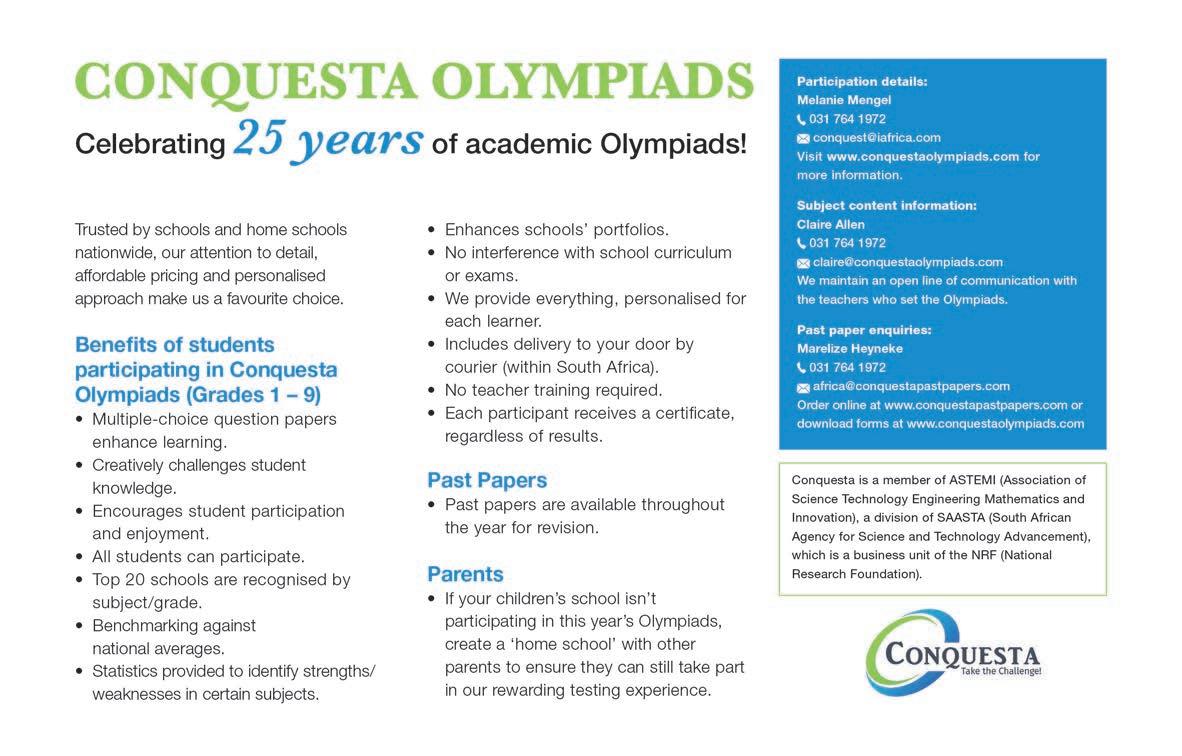

New-look schools
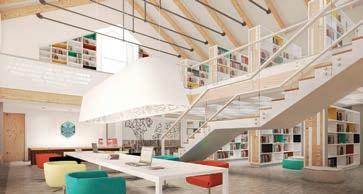
the preparatory school and in the Hub at the college. The Hub also offers a space where students can attend workshops or work with visual art.
The pandemic changed the way we think about many things – work, how we live and even how we learn. As the team at Steyn City School in Gauteng explains: “The classroom, as we knew it, is obsolete.” Centennial Schools, also based in Gauteng, has reimagined the classroom by transforming it into a dynamic space where learners actively engage with each other and their work. Waterkloof Hills Combined Schools, in the North West, offers state-of-the-art laboratories and classrooms to prepare their more than 2 000 learners for future-forward careers.
The school also boasts a 300-seater tiered theatre, a water-based astroturf, indoor aquatics centre with a learn-to-swim pool, five multicourts, sports fields, a cricket oval, and playgrounds in the Early Learning Centre and Foundation Phase.
At Steyn City School, the emphasis is on preparing children for a changing world by instilling values and nurturing skills such as creativity, collaboration and curiosity. The school hopes to “bridge the gap between education and employability” by ensuring children have the necessary skills and abilities to secure meaningful employment.
STEYN CITY SCHOOL

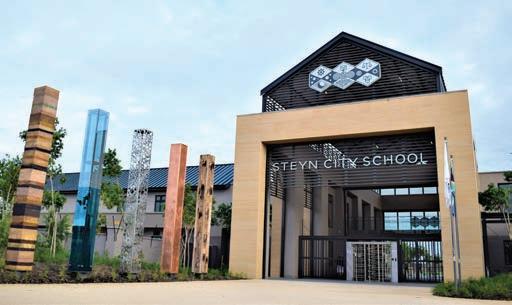
This school’s expansive campus, set within the iconic Steyn City lifestyle estate, has been designed to create a vibrant learning environment. Each of the spacious classrooms has a veranda to ensure a flow to the outside. The impact of technology on classrooms and the way children learn has transformed how teachers engage with their learners. The teachers have become facilitators in the classroom, guiding their class through the various online learning offerings.
Both the preparatory school and college follow the Independent Examinations Board assessment standards. Robotics, programming, virtual reality technology and online games can be found in The Hive at
34 The South African Schools Collection 2023
Active learning hubs, subjects such as cryptocurrency and robotics, and teachers who work as facilitators and not instructors, we profile three innovative learning centres tackling education differently.
By Anél Lewis
Steyn City School
At Steyn City School, the emphasis is on preparing children for a changing world by instilling values and nurturing skills such as creativity, collaboration and curiosity.
CENTENNIAL SCHOOLS
Instead of placing the teacher at the centre of learning, the student is the focal point at Centennial Schools. Instead of classrooms, Centennial Schools has learning hubs where learners can choose to sit or stand during class. “We provide an environment where creativity thrives and collaboration is a way of life,” says Shaun Fuchs, founder of Centennial Schools. “Ours is a holistic learning environment dedicated to producing resilient, balanced and entrepreneurial students who are well-prepared to be future leaders.”
Fuchs says studies have shown that traditional classroom setups create “passive spaces” where students learn without interacting. The learning hubs seamlessly integrate technology into spaces designed around teaching and learning.
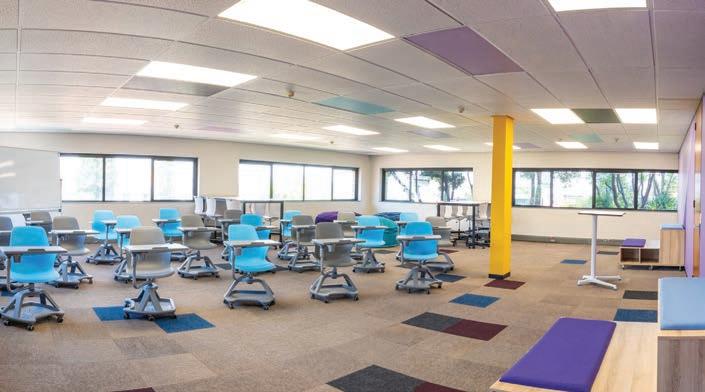
Furthermore, instead of students moving around to different classes, the teachers move. This helps keep learners focused. Each learner has a workspace with a USB or three-prong charging port. While connected devices are an important part of modern learning environments, audiovisual equipment and even classroom furniture are essential to creating spaces conducive to teaching focused on future-ready skills, says
Fuchs. Learners have standing desks to give students a break from being seated for long periods. “Simple things, such as allowing students to stand while working or face their
peers in a classroom, increase their active learning,” says Fuchs.
Technology is an essential component of tests and assignments to help children understand its real-world application. Centennial Schools also offers unique subjects such as coding, content creation and a cryptocurrency course. Gamification is incorporated into lessons to make the content more accessible and relevant.
Other facilities include a multisport court, a fitness centre that includes CrossFit in its offering and a yoga studio.
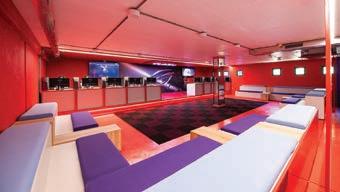
FAST FACT
Up to 70 per cent of students questioned in a recent school survey reported better marks, better attendance or improved creativity in these newly designed active learning environments.
Source: Shaun Fuchs, Centennial Schools
WATERKLOOF HILLS COMBINED SCHOOL
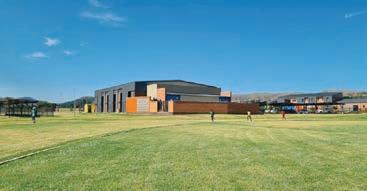

Boasting 32 smart classrooms, the Waterkloof Hills Combined School, which opened in Rustenburg in the North West in 2022, is considered a “one-of-a-kind” educational facility on par with international institutions. As with Steyn City, the school is set within an estate. The Waterkloof Hills Estate was built for the families of employees of Royal Bafokeng Platinum (RBPlat).
With the needs of the community in mind, RBPlat and the North West Department of Education agreed to invest R140-million in the development of the school. It can accommodate more than 2 000 learners and its facilities include a multifunction room, science laboratories, a 1 100-capacity school hall, sports fields, libraries and dining halls.
The school has been designed to complement the environment. Face
exterior because it is “durable, long-lasting and keeps its appearance for an extended period”, says Floris van der
brick was used for
35 INNOVATIVE SCHOOLS The South African Schools Collection 2023
Learning hubs at Centennial Schools.
the
Walt of Olivehill Architects.
Waterkloof Hills Combined School
The arts in school
Arts and music should form an integral part of the school curriculum, writes Lenore Oliver
For many decades, music and the arts at school level took a backseat to the traditional mantra of academic achievement above all else.
But there’s growing recognition that an all-encompassing curriculum that includes these two disciplines equally, may favourably expose learners to an entire new genre of educational possibilities.
WHY THE ARTS ARE IMPORTANT
Here are five reasons why the arts should be part of the curriculum.
1. Taking part in plays and performing on stage helps children develop the confidence to speak in public and take the lead in difficult decisions, says Dayna Pearce, head of culture at Wynberg Girls High School. “The arts can build confidence. Artistic endeavours teach discipline as it takes
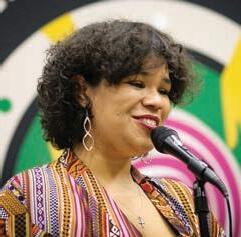
hours to finish an art painting or learn a challenging piece of music.”
Vicky Friedman, theatre teacher at the Fame Academy, agrees, saying confidence building is a large part of what she does. “Music, dance and theatre build confidence, creativity, empathy and social skills in children. Some interpersonal and emotional intelligence skills are not always learned through traditional academic subjects at school.”
2. The arts teach children important social skills, such as empathy. Music teacher and vocal coach at San Souci Girls High School and Rustenburg Girls High School Lauren Hendricks says studies have shown that being involved in music or arts at school has helped learners develop social skills (being interactive with different people while being confident) and motor skills (being able to
learn an instrument or produce sound with your voice).
Pearce says music and art enhance creativity and help learners to work in a team and help others. “It also helps improve your memory and cognitive functions,” she says.
3. The arts increase a child’s body awareness and co-ordination, says Friedman. “Children can improve their health and fitness through dance and performance.”
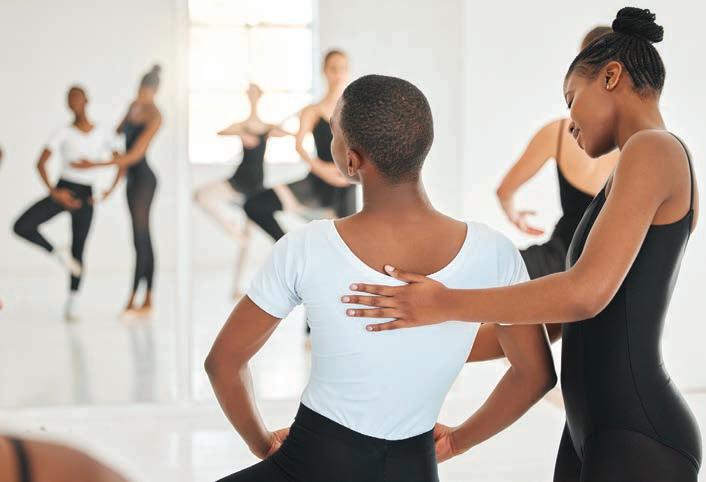
4. The arts give children the space and platform for self-expression and creativity, which helps with other cognitive skills. “Being involved in the arts also contributes significantly to discipline and time management, often resulting in an independent thinker. These various tools make up the basic requirements of being involved in music or art,” says Hendricks.
“Music and art are vital for learners’ development in a school environment. Being introduced to their creative side can allow learners to improve many skills and allow them to build their confidence through performance. The music and art departments have proven to be a safe place for children where they are allowed to be themselves.”
36 The South African Schools Collection 2023
LAUREN HENDRICKS
“Theatre students make wonderful CEOs, copywriters, marketers, salespeople and more.” – Vicky Friedman
“Being involved in the arts a o contri te i ni cant y to discipline and time management, often resulting in an independent thinker.” –Lauren Hendricks
To emphasise the cognitive benefits of the arts, especially music, Pearce says: “Einstein used to sit and play the piano when he was stuck on a mathematical problem. We use the same part of the brain when doing maths. Listening to music also improves cognition and maths skills.”
5. The arts increase a child’s ability to problem-solve. Hendricks says: “Being involved in the arts, learners are influenced by various subgenres of education, such as learning about different cultures, histories, languages and the music or art that was produced by its people. Hendricks adds that many learners have used music to help them study for other subjects as it aids them to focus and relieves stress.
LONG-TERM BENEFITS
The ideal age to start encouraging children to take up an instrument is around the age of seven, says Pearce. “But it all starts with the parents taking them to watch live shows, watch ballets and go to art galleries, among others.” Friedman says the benefits of being involved from an early age are evident into adulthood. “The skills of public speaking,
teamwork, leadership, empathy, and storytelling are essential for all careers.”
Exposure to the arts gives learners a broader outlook of the world and teaches them how to interact and connect with different people from different walks of life. “This allows them to travel and possibly secure job opportunities through their instrument and or performance,” says Hendricks. “I feel that music and art bring people together. It’s an underutilised opportunity and skill that many schools
RESOURCES FOR STUDY/ TRAINING IN THE ARTS
RESOURCES FOR STUDY/ TRAINING IN THE ARTS
If you are interested in exposing your child to the arts, here is a selection of schools and academies offering music, art or drama.
Byron Bure Academy of Theatre Arts
A boutique school offering training in drama, musical theatre, and dance for scholars (as an extramural) and adults. www.bbata.co.za
Chris Hani Arts And Cultural High School
Situated in Cape Town’s Khayelitsha township, this school was designated by the Western Cape Education Department as an “Arts and Culture-focused school”.
The school prides itself on a strong academic and arts and cultural curriculum.
Drakensberg Boys’ Choir
One of only a few in the world, the Drakensberg Boys’ Choir is a choir school where boys perform in a variety of genres, such as jazz, pop, and African music.

www.dbchoir.com
Fame Academy
Musical theatre classes for children aged six to 16.
www.fameacademy.co.za
Figment School of Dramatic Arts
A privately-owned drama studio with classes for students from age four.
www.figmentschool.co.za
just don’t offer,” adds Pearce. The tutors agree that some artistic ability can be a positive for future employment, even traditional jobs. “Theatre students make wonderful CEOs, copywriters, marketers, salespeople and more,” says Friedman. Pearce warns, though, that it’s not all up to performers. “It’s important to remember that, as patrons, we also have a responsibility to keep the arts alive and support these talented musicians and artists.”
Helen O’Grady Drama Academy
Africa’s largest drama school with locations around the country.
www.dramaafrica.com
National School Of The Arts
Situated in Johannesburg, this 50-year-old school focuses on both the arts and academics. It is registered with the Gauteng Department of Education and follows the CAPS curriculum.
www.artschool.co.za
Waterfront Theatre School
The school offers full-time four-year courses in musical theatre, dancing and acting, as well as part-time courses for young people aged 5–18.
www.wtschool.co.za.
37 MUSIC AND THE ARTS The South African Schools Collection 2023
Show them the money
Financial literacy and understanding the basics of saving and investment are vital skills to prepare children for the real world. Deidre Forbay asks the experts for their advice
Given that Generation Alpha –those born after 2010 and about to reach their teens – will be the largest generation ever, with the greatest spending power in history, according to the Columbia Business School, it makes sense to teach children fi nancial skills from a young age.
FIVE FINANCIAL TIPS


FOR CHILDREN
Jeanetta Hendricks, general manager for the care division at Fedgroup Financial Services, believes fi nancial literacy is a critical life skill that can signifi cantly impact one’s fi nancial wellbeing. It involves understanding the basics of personal fi nance, such as budgeting, saving, investing, and managing debt.
1 2
Create a budget. Start by tracking your expenses for a month to get an idea of where your money is going. Then, create a budget that includes your necessary expenses, such as food, transportation and school stationery, and your discretionary expenses, for example, entertainment and clothing. Stick to your budget as closely as possible.
Cut back on unnecessary expenses. Learn to differentiate between wants and needs, then identify areas where you can cut back on spending. For example, you might be able to save money by bringing your own lunch to school instead of buying it, or by taking public transportation instead of Uber.
C i ren re ire i ance en it co e to nancia iteracy Parents must show them how to earn, save, and spend their oney i e y
3 4 5
Use discount cards and promotional codes. Apply for discount cards at retail and grocery outlets and look for promotional codes before purchasing. You can nd most of these online. Many stores also offer discounts and special deals to students, so be sure to take advantage of those.
Start a savings account. Open a savings account and deposit a portion of your earnings or allowance into it each month. This can help you build a savings cushion and prepare for unexpected expenses.
Earn extra money. Look for ways to earn money, such as babysitting, pet-sitting or tutoring. You can also sell items, for example, clothes or electronics, you no longer need online or at a garage sale. Be sure to save the money you earn instead of spending it right away.

38 The South African Schools Collection 2023
TEACH THE VALUE OF HOMEOWNERSHIP
Owning a home is a significant financial commitment, and bond repayments are typically the largest associated expense. By learning about bond repayments, teenagers can gain a better understanding of the costs involved in owning a home, which will help them make informed decisions about their future housing needs.
Carl Coetzee, CEO of BetterBond, says: “Just as it is never too early to teach children about saving, it’s never too soon to start talking about the benefits of owning their own home one day. Younger children may not understand just how much a home costs, but it is important for them to understand that buying a home is a big purchase and will most

SHOW DON’T TELL
South African Savings Institute (SASI) acting CEO Gerald Mwandiambira says the most practical way to instil good money management skills is by showing children the money rather than using the banking system’s electronic transfers.
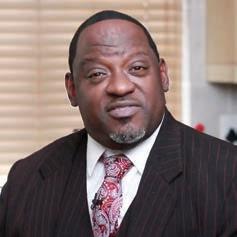
“Have three jars and label them separately: one for savings, another for spending, and the last one for sharing. Ask your teenagers to decide what percentages they want to put into each jar on a monthly basis. A typical split is to put 50 per cent towards savings, 40 per cent to spend on their needs and 10 per cent towards their favourite charity.”
He adds that patience and perseverance are important, while discipline and delayed gratification is key. He urges parents to encourage their children to find other creative ways of adding more-value allowances. “This can be helping with chores around the house or in the garden. Parents can save some of the money they would use to pay for extra help, and a percentage of those savings can be added to children’s allowances – the remainder can go towards overall family savings.”
likely have to be paid off over a considerable period of time.”

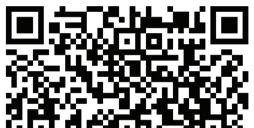
Coetzee adds that the most important thing when considering a home loan is affordability. “When the banks are deciding whether to loan you the money to buy a home, they look at what you earn, how much you pay out monthly in regular expenses, and what’s left over. A great way of understanding what’s known as ‘home loan affordability’ is to spend some time using the online calculators.”
Therefore, getting pre-approved before applying for a loan is important as it indicates what you could qualify for from the bank and enables you to start looking for an affordable home. Buying a home also includes legal fees, transfer duty (if a property costs more than R1.1-million) and moving costs.
There are also ongoing costs such as municipal rates and taxes, water and electricity, maintenance and repairs, insurance and internet.
“Encourage children to see property as a way of saving for the future. And help them see that it’s not out of reach. Buying property in a new development is a great way of securing a first home and purchasing a new place that has not been lived in before. Some banks offer loans of 100 per cent or more of the purchase price, especially for first-time buyers who meet certain criteria. This makes it easier to afford to buy, even if you don’t have a deposit saved,” says Coetzee.
This, he says, helps them understand how to prioritise and budget for their needs versus their wants. It also teaches them responsibility because they know that once they have spent from their allocated budget, they have to wait until the next month to buy what they could not from their previous monthly budget. Alternatively, he adds, they can use their spending money from the jar to replenish their monthly expense budget.
Mwandiambira advises: “Discuss, as a family, your monthly income, expenses and surplus with your teenagers so they know your financial commitments. Also, do your grocery shopping together. It is a good idea to ask everyone to draw up a list that can be divided into needs and wants. Each child can then allocate a monthly expense budget to purchase goods from their grocery list and pay for them separately at the till.”
“Various apps can be used to compare prices online before venturing to the stores, especially for major house appliances and gadgets. One of the teenagers can check the prices while the other checks the specifications and guarantees to ensure that the family finds the best deals,” says Mwandiambira.
39 LIFE SKILLS: FINANCIAL LITERACY The South African Schools Collection 2023
“Discuss, as a family, your monthly income, expenses and surplus with your teenagers so they know your nancia co it ent Gerald Mwandiambira
COLUMBIA BUSINESS SCHOOL STUDY
GERALD MWANDIAMBIRA
CARL COETZEE
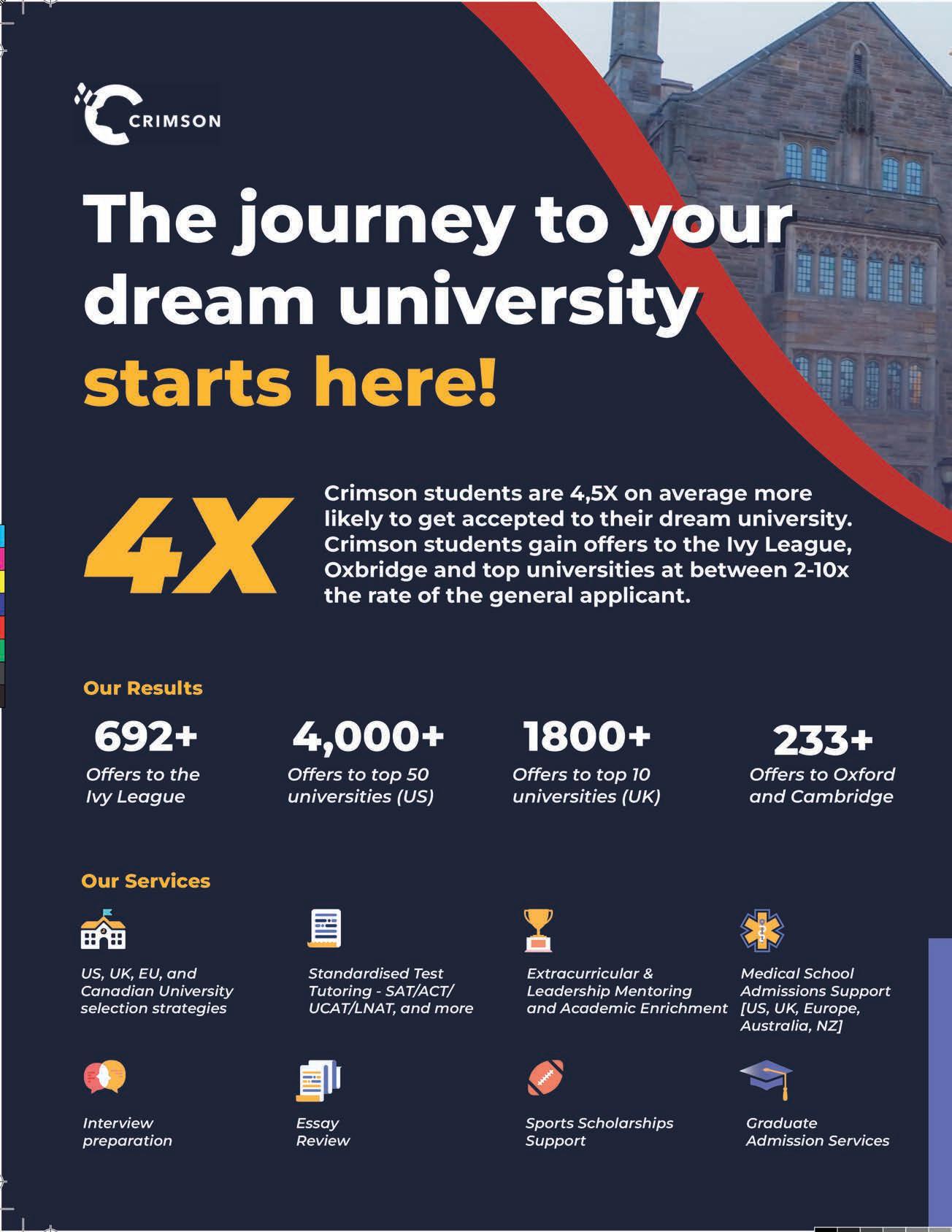

REMEDIAL AND SPECIAL NEEDS

43 Core School, 44 Craiglands Remedial School, 45 Footprints Preparatory School, 46 Glenoaks School 42 The South African Schools Collection 2023
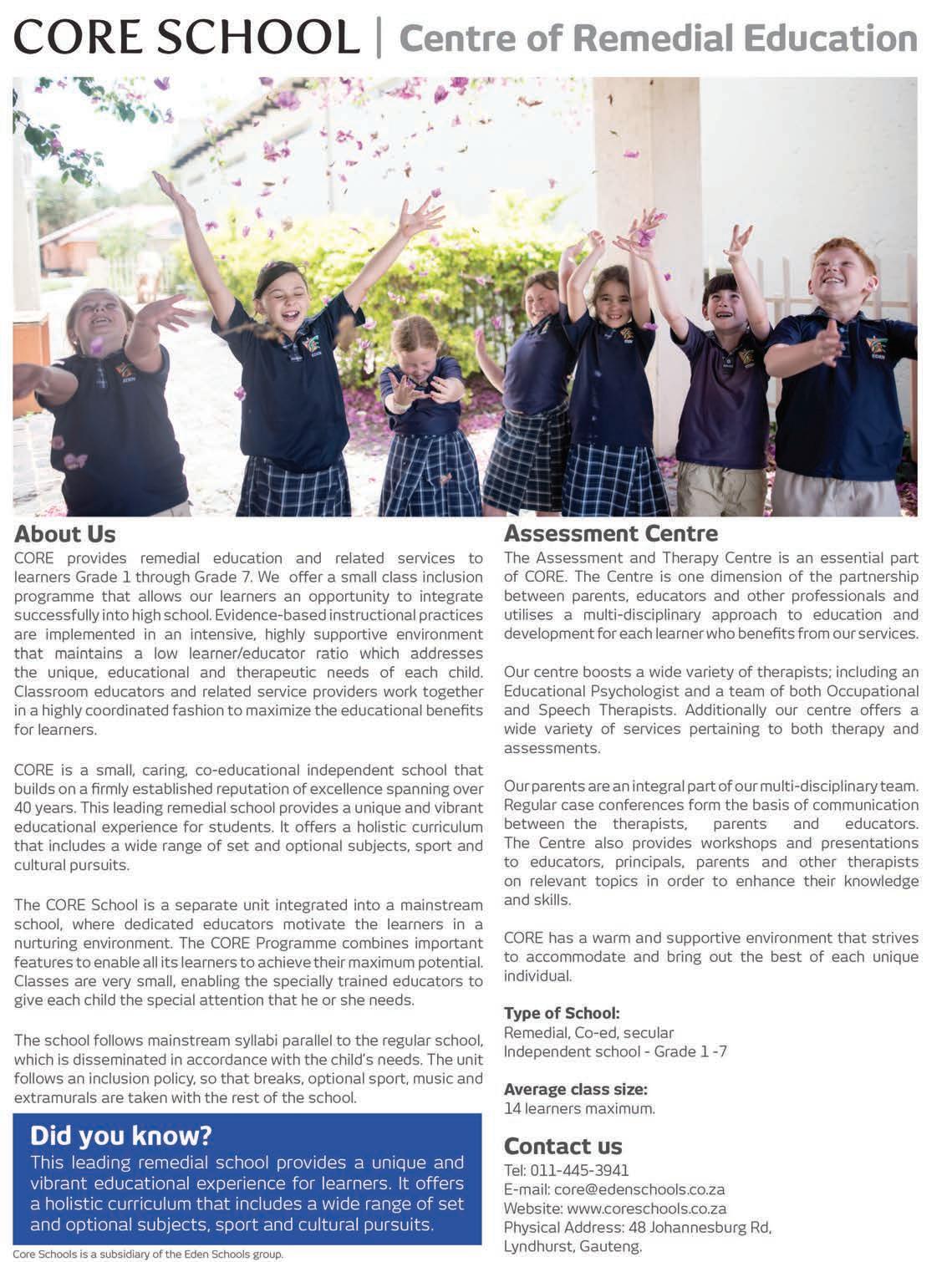

Footprints School is an independent special needs school started in 2005 to promote the potential of learners through the provision of high-quality education to equip learners to become productive, integrated members of society.
Our staff comprises qualified SACE-registered educators, occupational therapists, speech and language therapists, a biokineticist and an educational psychologist. Every child has weekly oxygen therapy in our mild hypobaric oxygen chamber as well as weekly hydro therapy in our indoor hydro therapy pool with a qualified biokineticist. The school has three levels:
JUNIORS
The key focus is on perceptual skills, literacy, numeracy and life orientation. There is a strong emphasis on empowering every child and making every child a reader, an approach continued throughout the school.
Head of school: Sharon Rowe
Type of school: Special needs
FOOTPRINTS PREPARATORY SCHOOL (SPECIAL NEEDS)

MALANSHOF, RANDBURG 5 YEARS TURNING 6 TO 18 YEARS
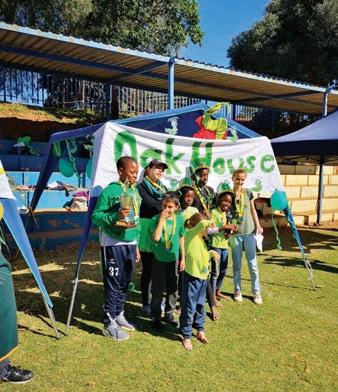

Within this phase, the pupils are grouped according to social and emotional levels.
INTERMEDIATES AND SENIOR PHASE
• A life orientation stream: for those learners who require additional time to acquire literacy and numeracy skills and the skills for independence. The curriculum consists of promoting skills that will benefit the learner for life. The aim of this stream is to promote independence and supported work placement. Compulsory core subjects include literacy, mathematical literacy, cookery for independent living, social etiquette, career preparation and work experience. All pupils work on individual skills portfolios dependent on their interests and ability levels.
• An academic stream: it focuses on theme-based teaching that covers history, geography, natural science and
Number of learners: 40
Average class size: 8–10
all the regular subjects. The teachers offer a differentiated approach, thus catering for each child’s ability. The maximum class size is 10 learners.
• Vocational training: career preparation and work experience. The aim of vocational training is for the child to be integrated and productive within society. Only seniors who are ready and capable are offered a choice of vocational work experience, which will change termly to establish the type of career path in which they may excel. Senior learners (of both streams) can take part in our Work Experience Programme from the age of 16 years. As work experience forms part of the school curriculum, the learners work on a voluntary basis with no remuneration. Work experience also provides learners with opportunities to develop work profiles and gain a practical sense of reality in terms of goals and expectations of the job market.
WC 45 The South African Schools Collection 2023 G
Tel: 011 791 0062 | admin@footprintschool.co.za | www.footprintschool.co.za | 20 and 24 Jan K Marais Street, Malanshof 2194
Trial Fees per year: R146 400
Entry requirements:
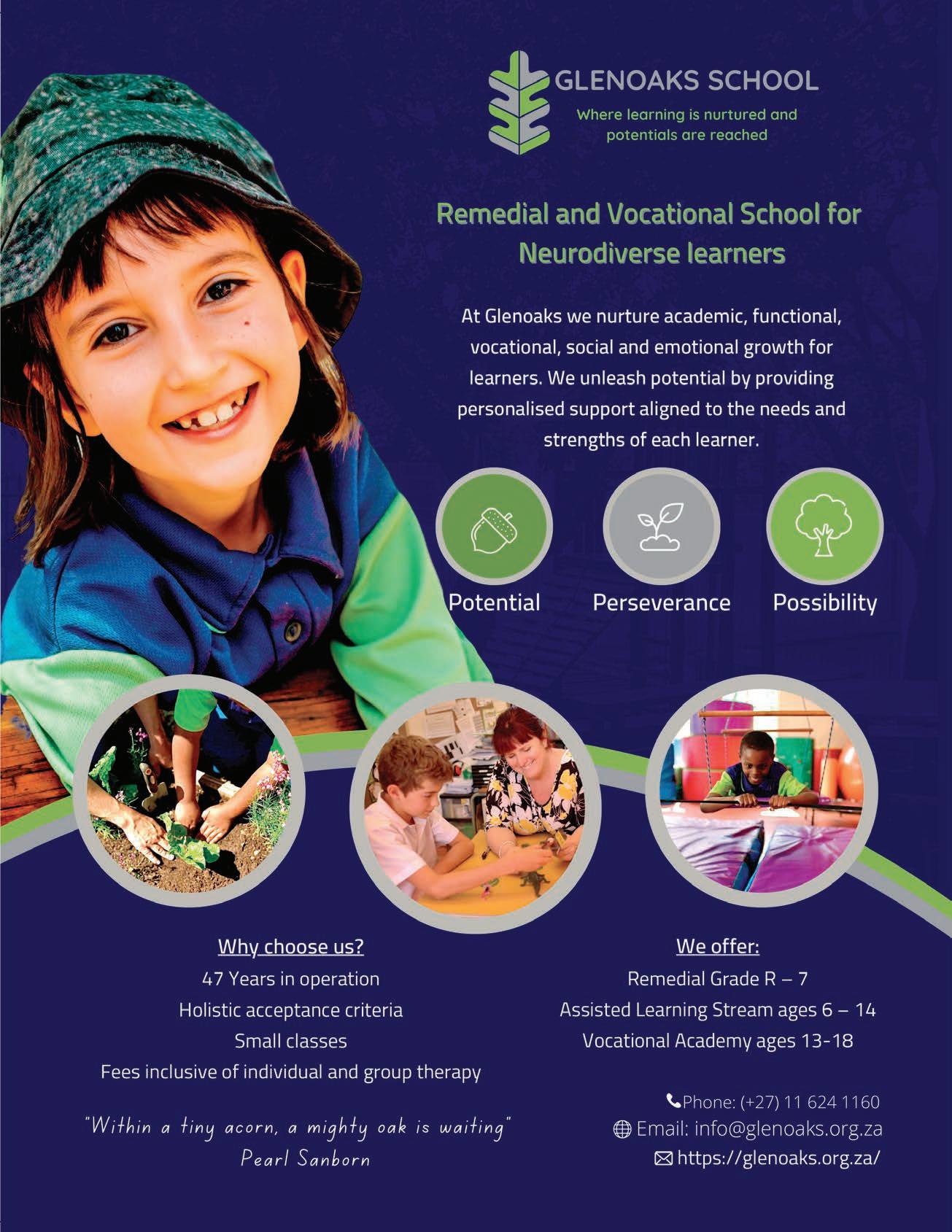
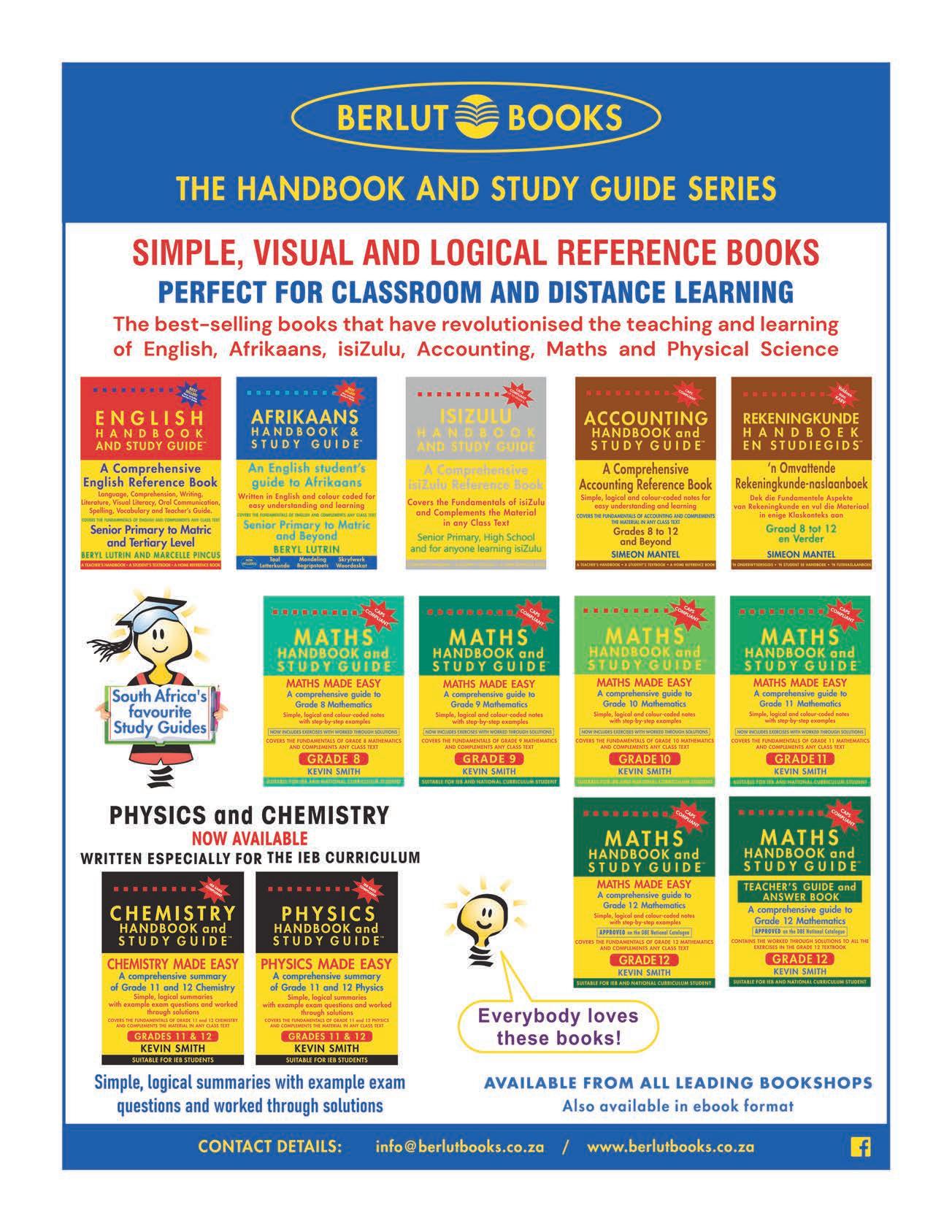
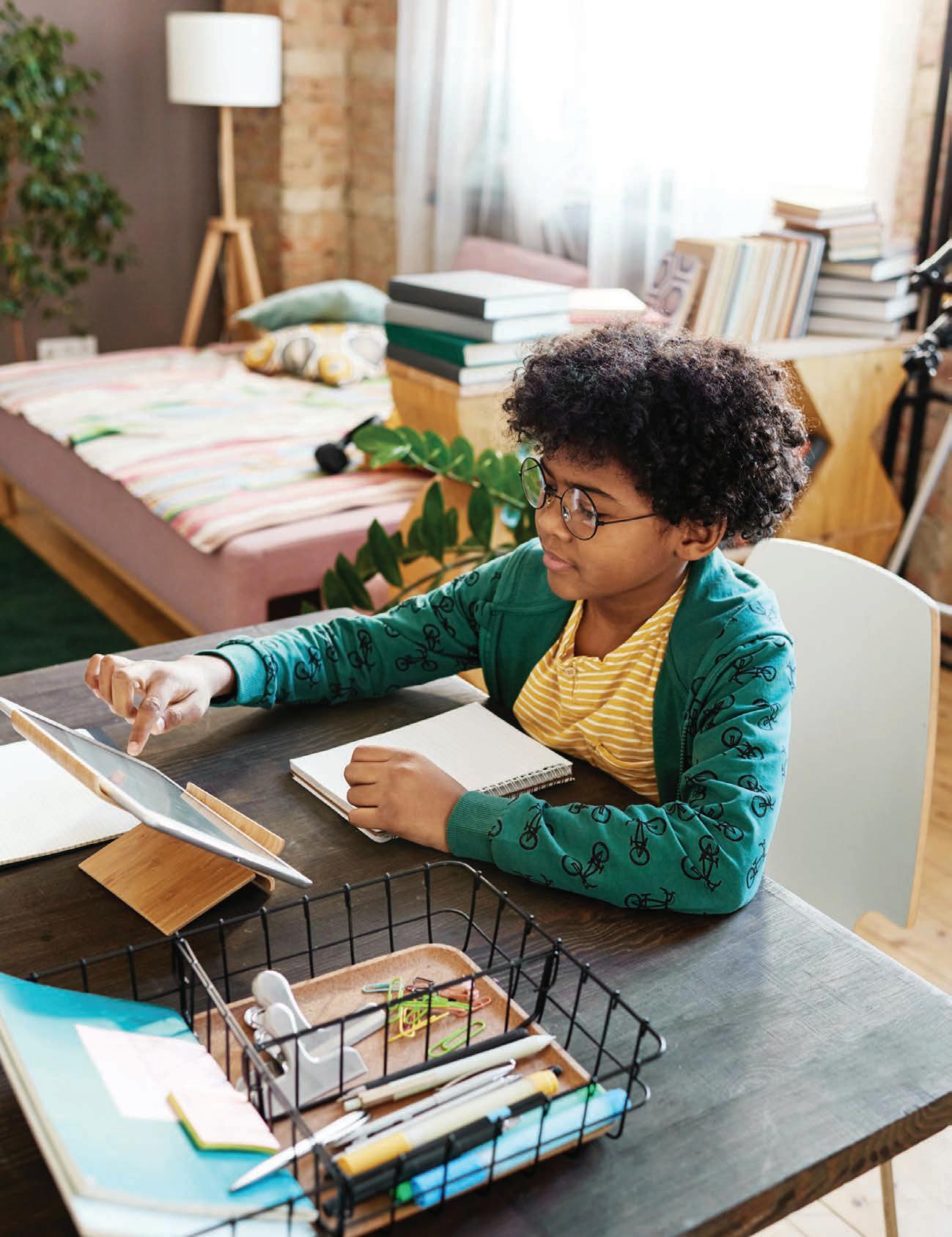
49 Accelerated Education Enterprises, 50 Boston Online Home Education 52 Brainline, 52 Classical Books and Education Resources, 56 Crimson Global Academy, 56 AEE iComprehend Academy, 59 Koa Academy, 60 Wingu Academy, 62 Thrive 48 The South African Schools Collection 2023
ONLINE AND HOME SCHOOLS
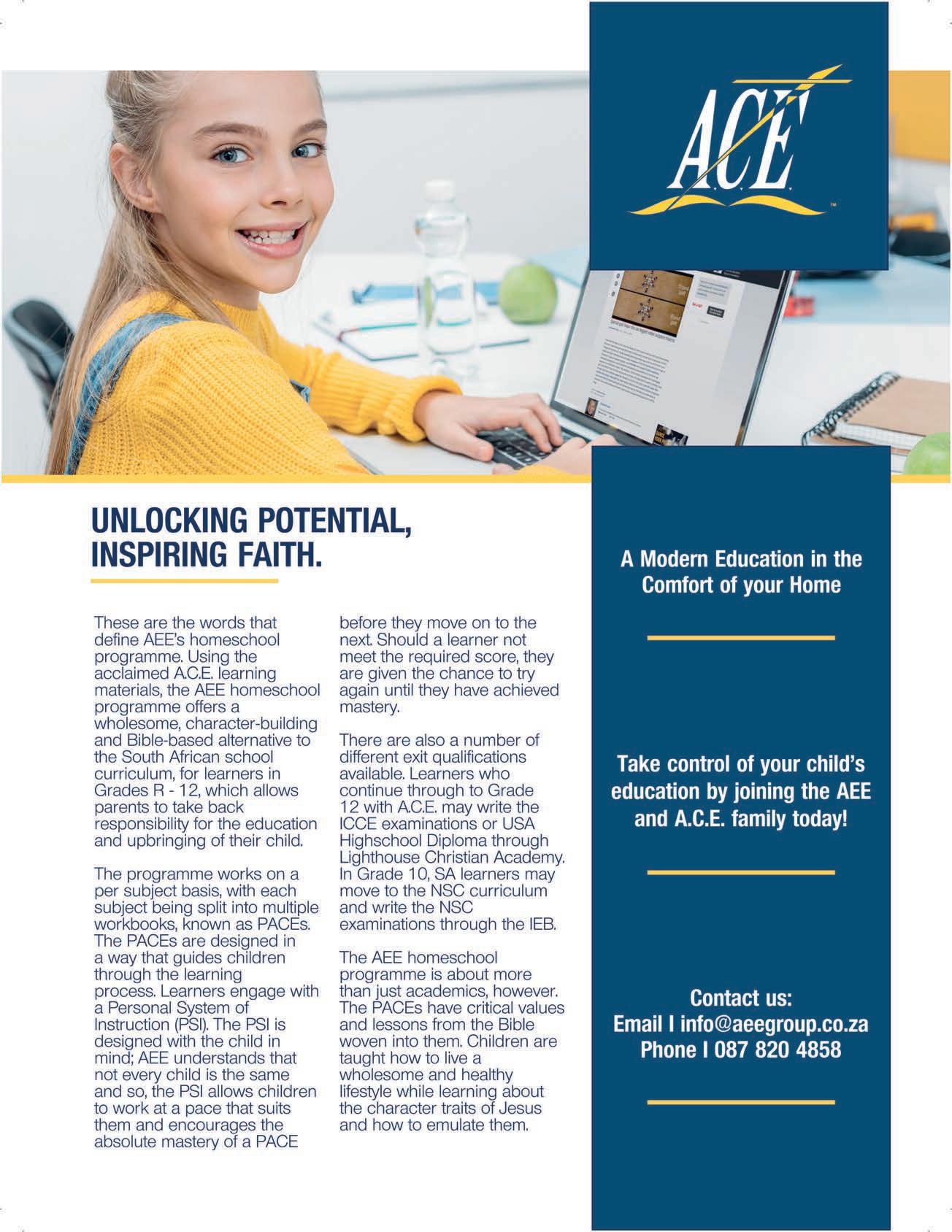
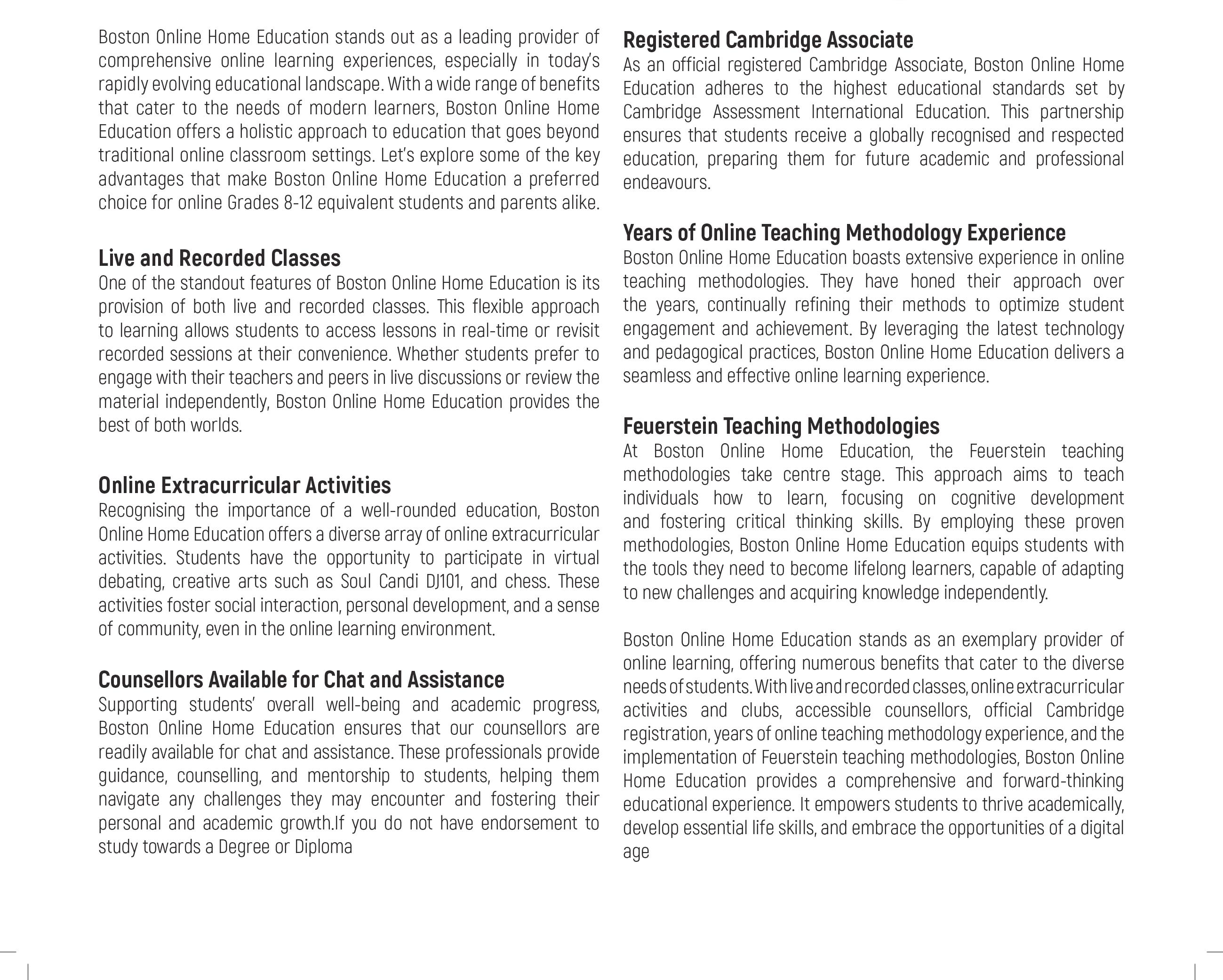
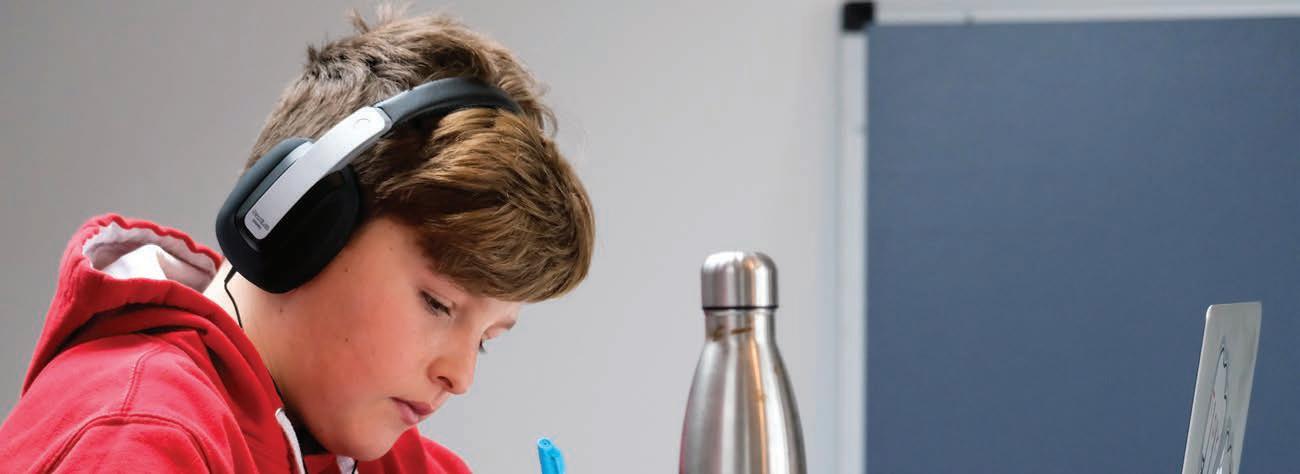

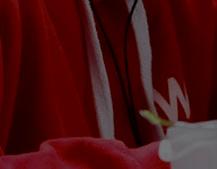
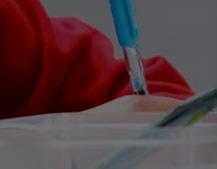


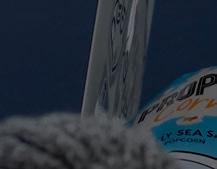
Boston Online Home Education – the digital approach to online home schooling
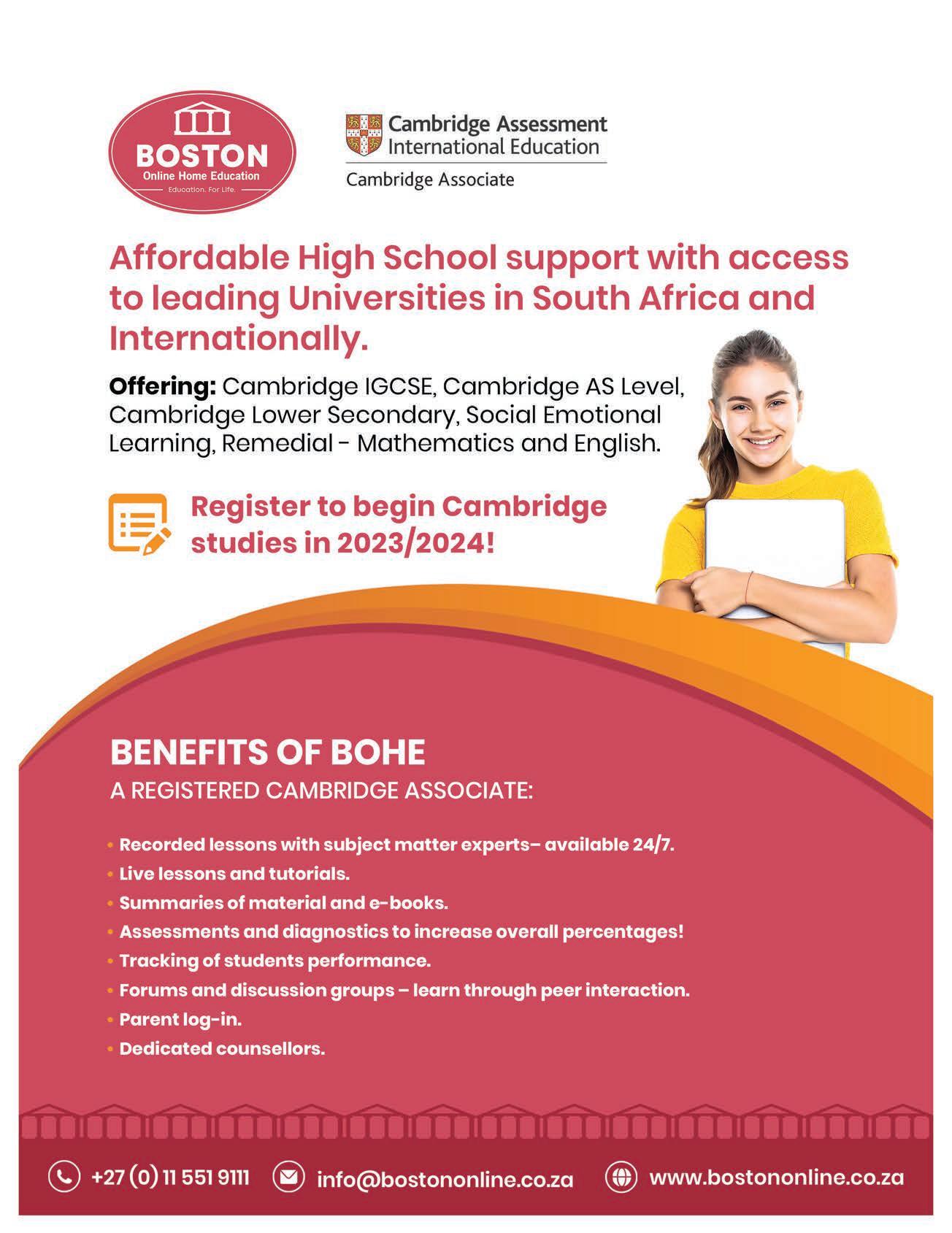


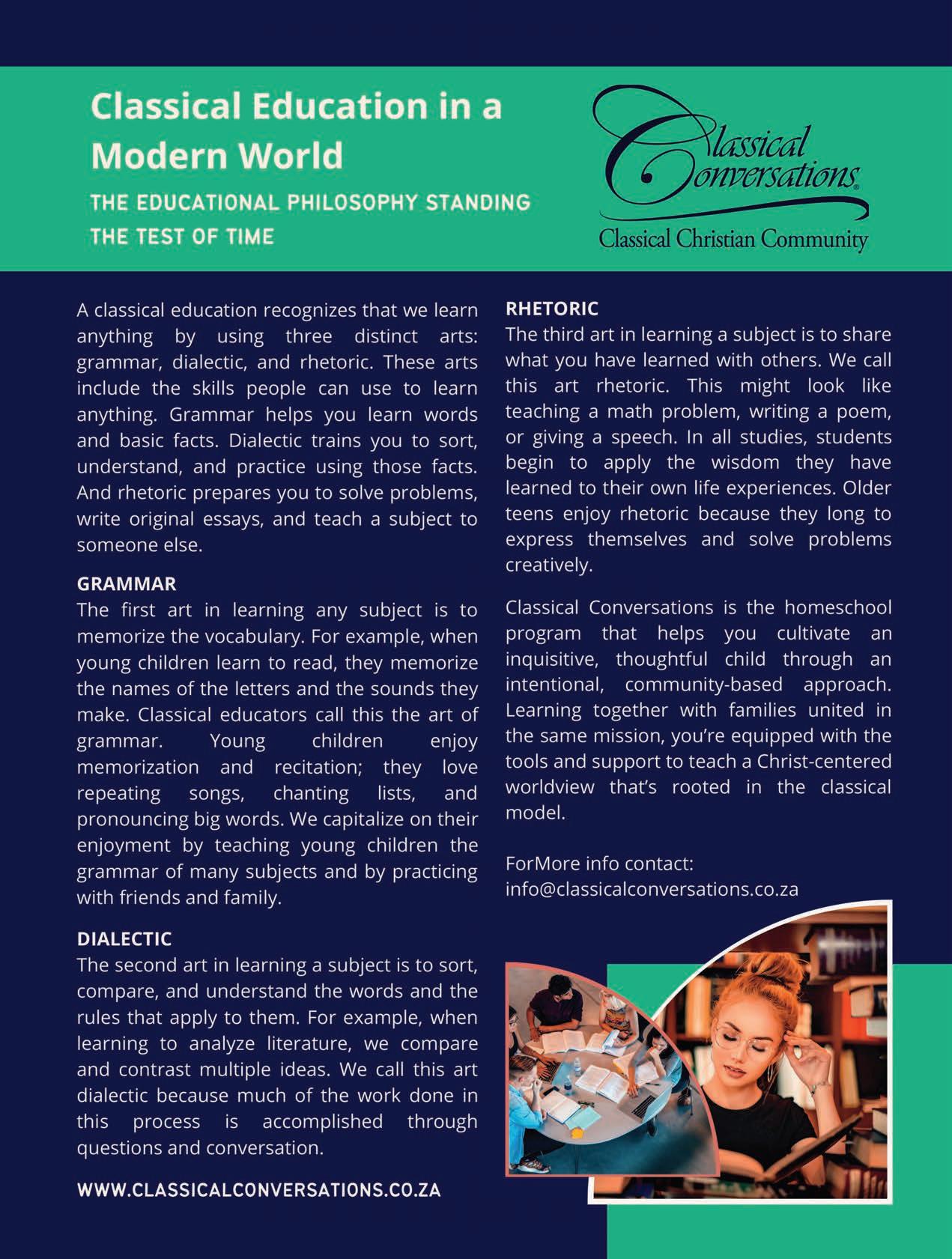
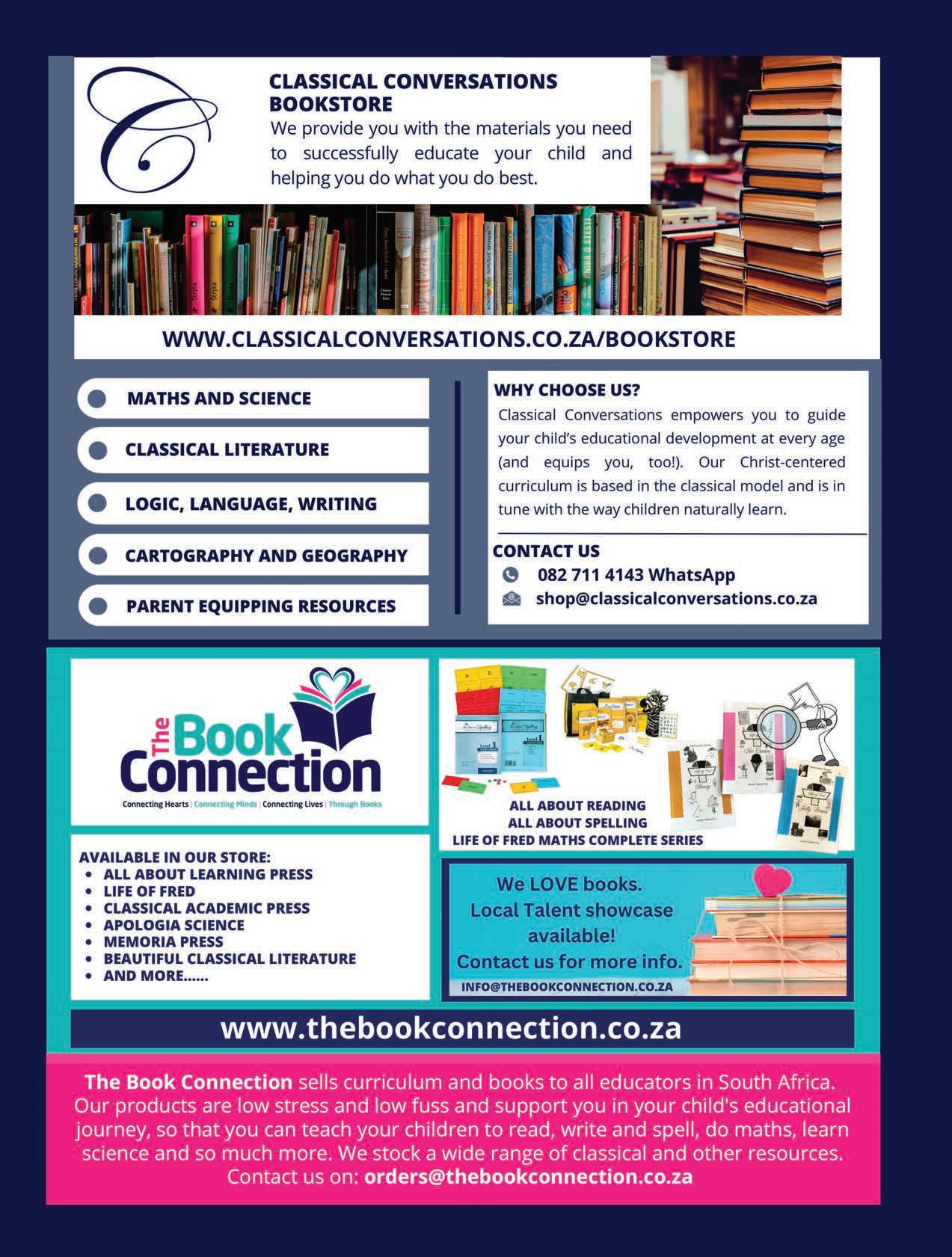






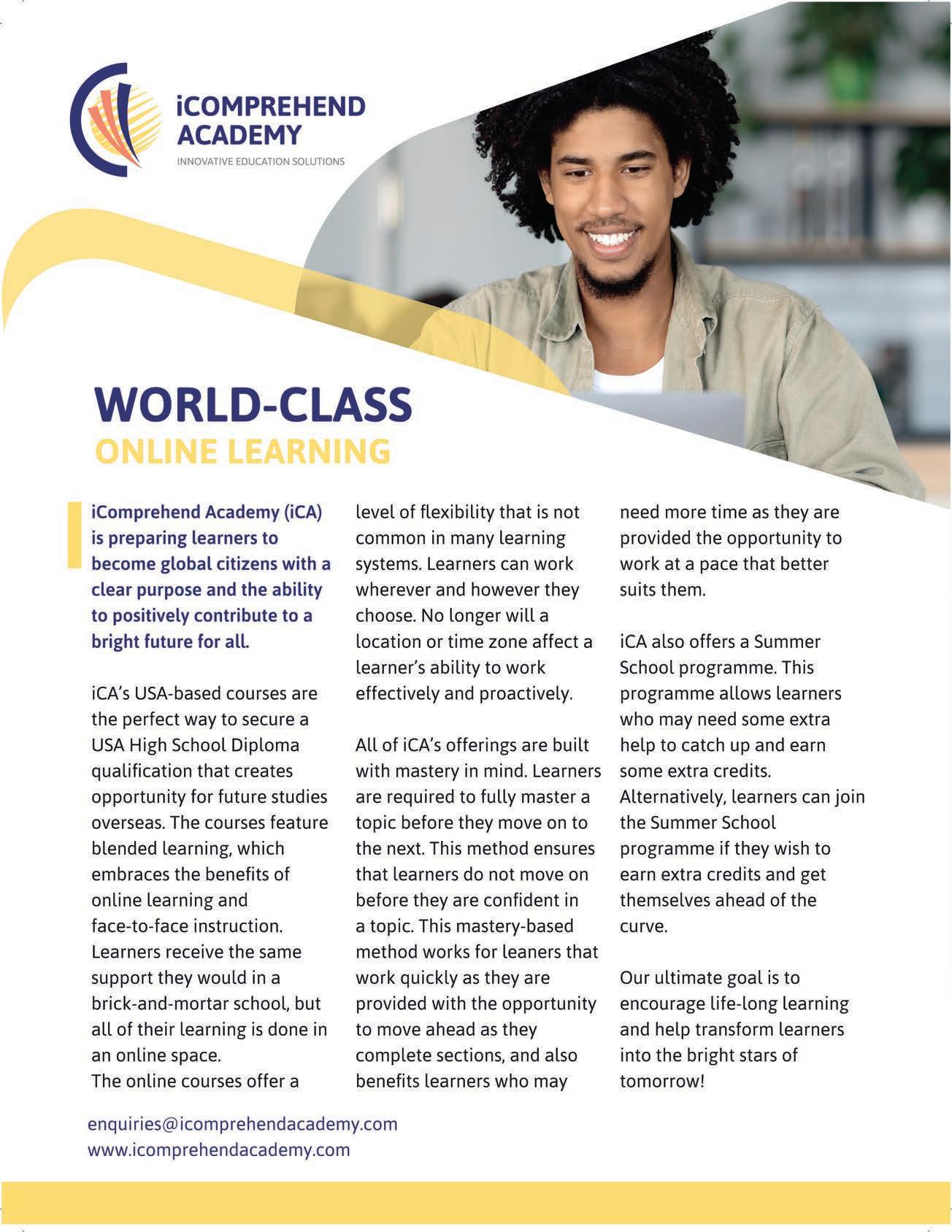

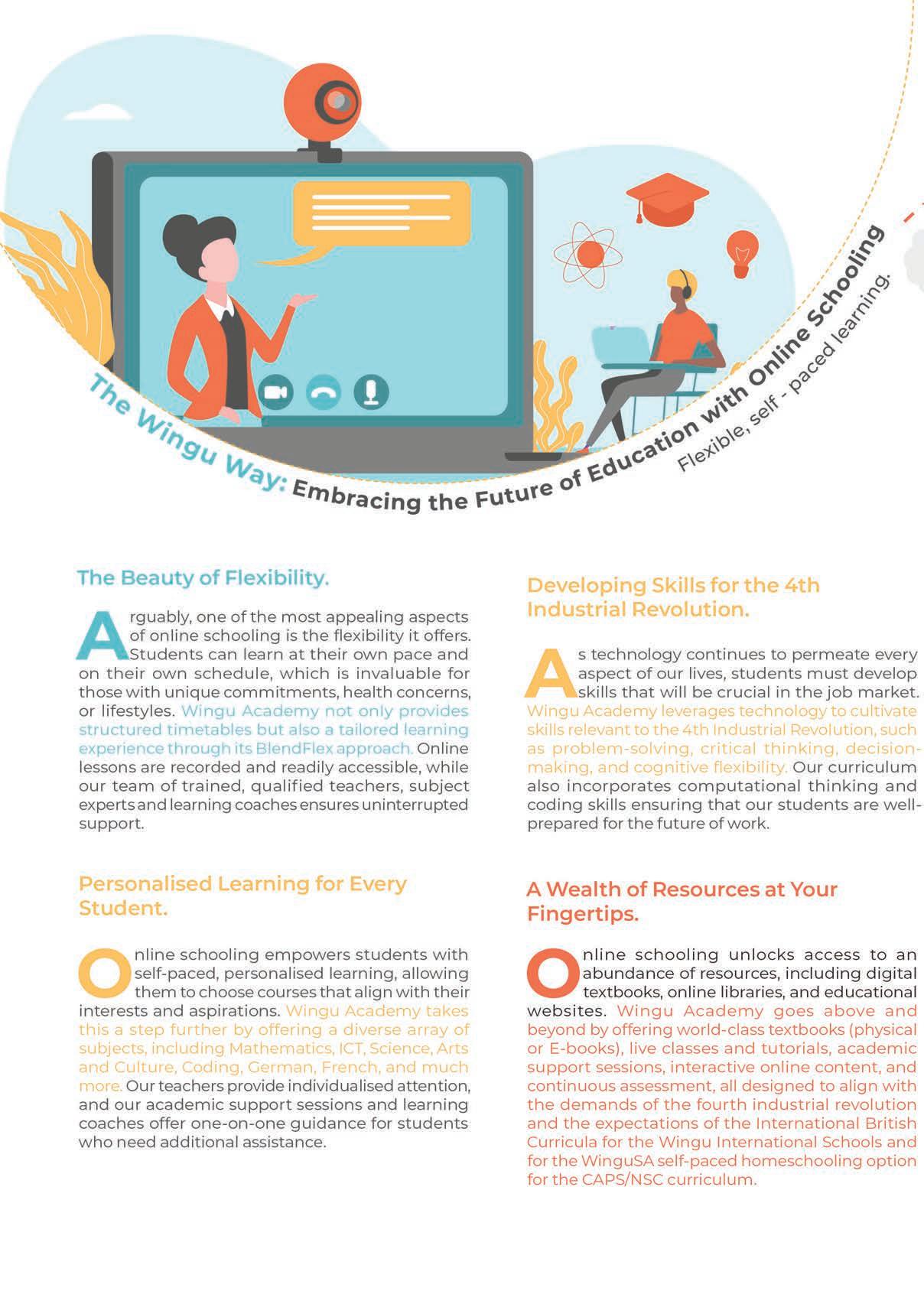
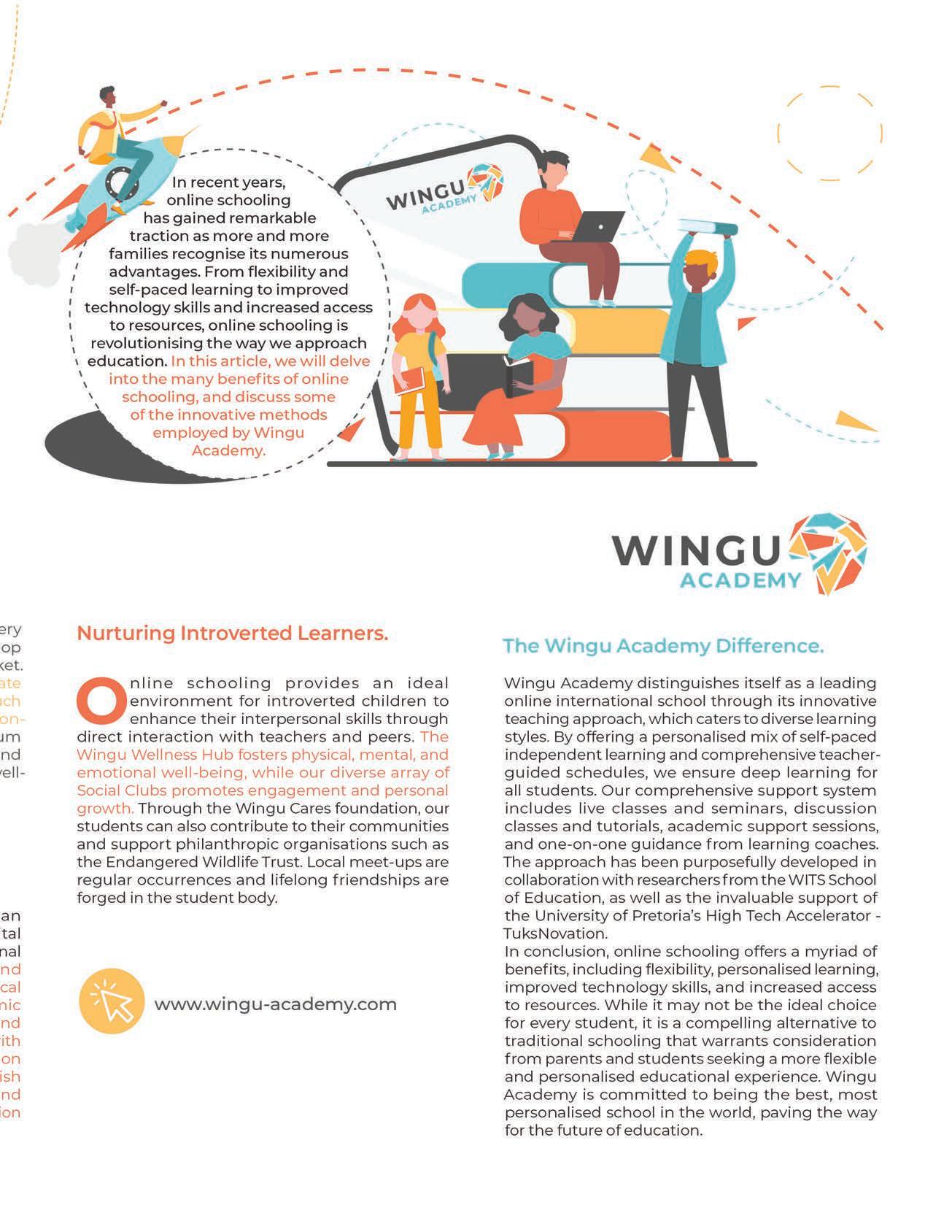

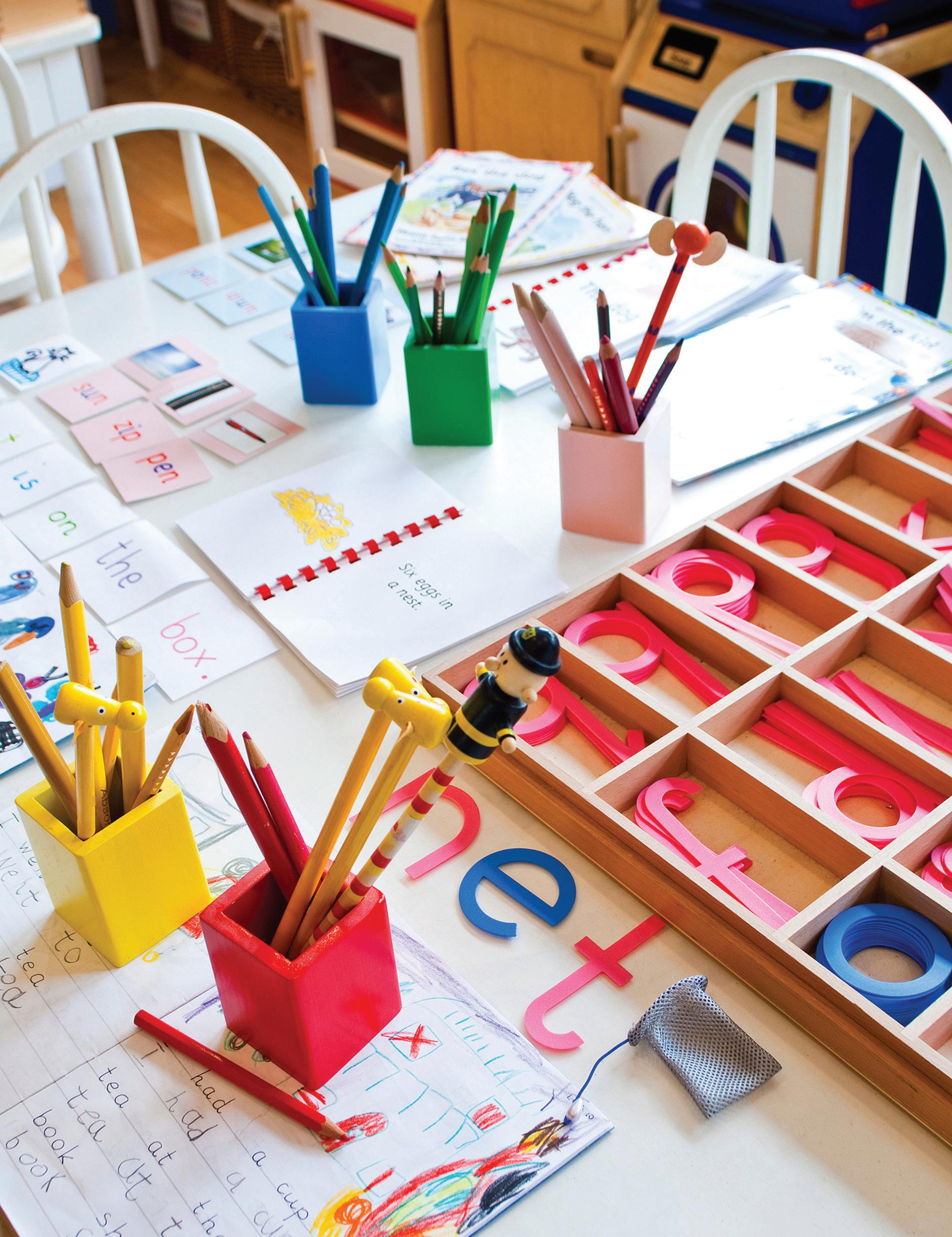
NATIONAL
64 Alma Mater International School, 66 Ashton International College, 68 Brave Generation Academy, 70 Crawford International, 72 Curro International, 74 Curro International, 76 Eden Schools, 77 McKinlay Reid International School, 79 Marist Brothers Linmeyer, 80 Sacred Heart College, 81 St David’s Marist Inanda, 82 St Henry’s Marist College, 83 St Joseph’s Marist College, 84 AEE Redwood College 63 The South African Schools Collection 2023
SCHOOLS

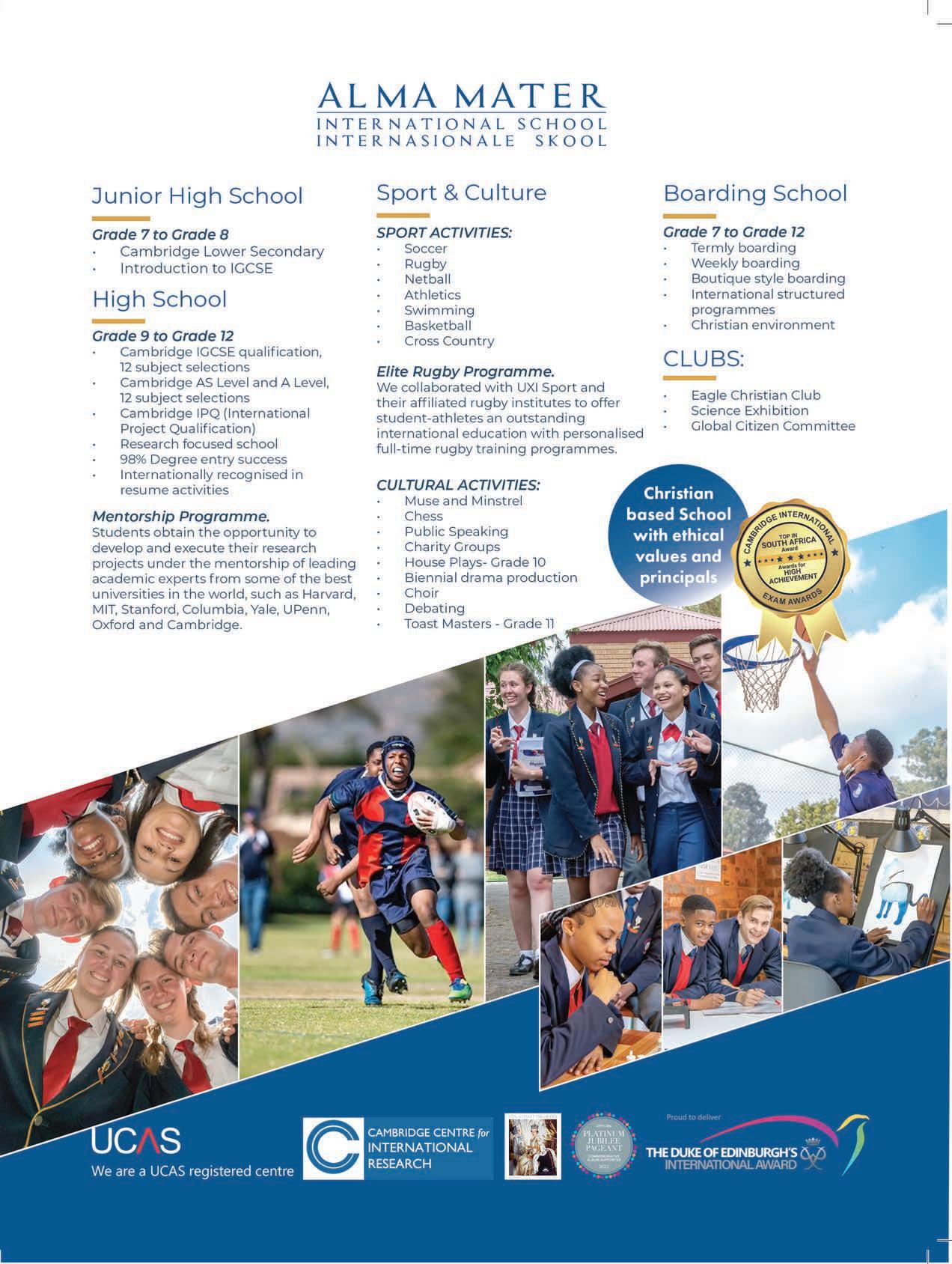
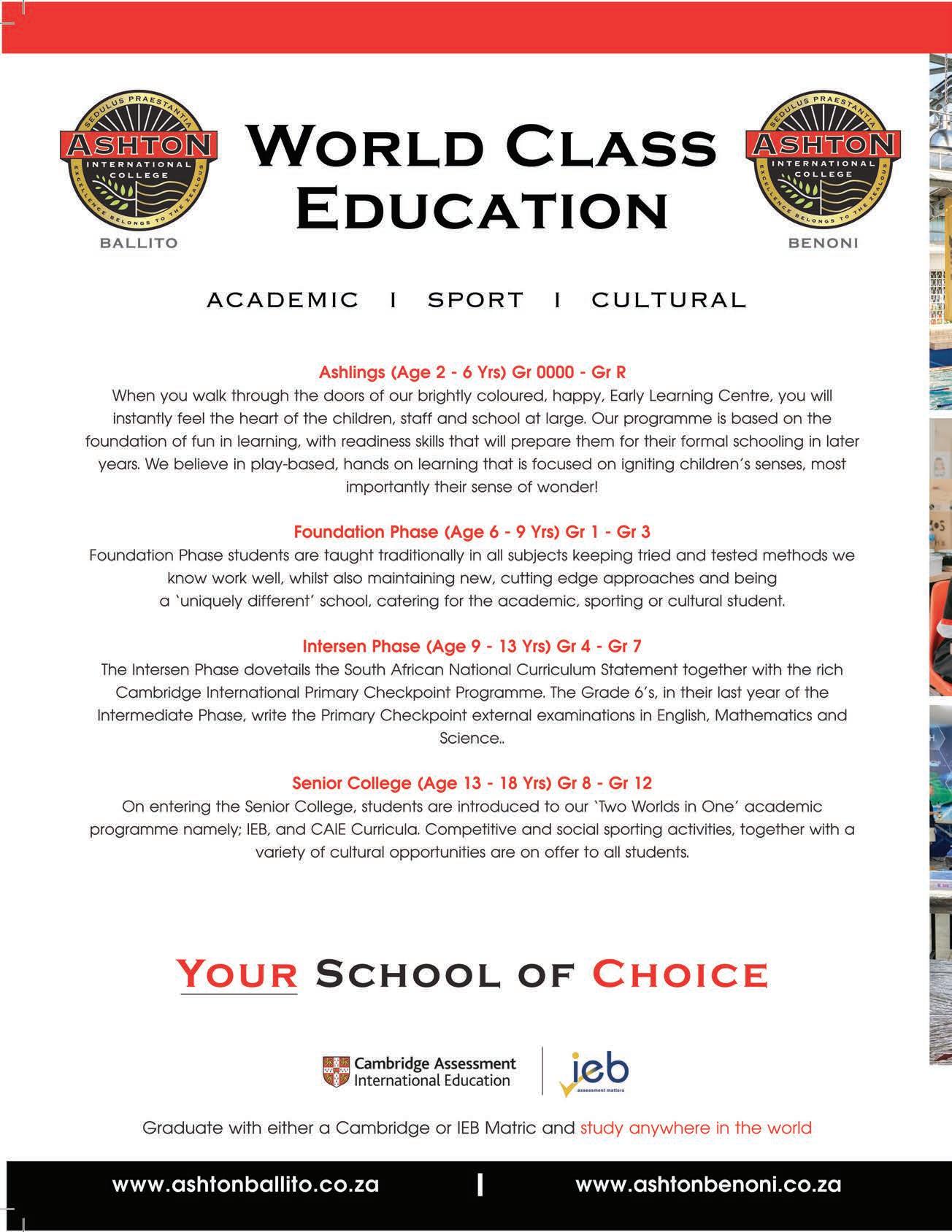


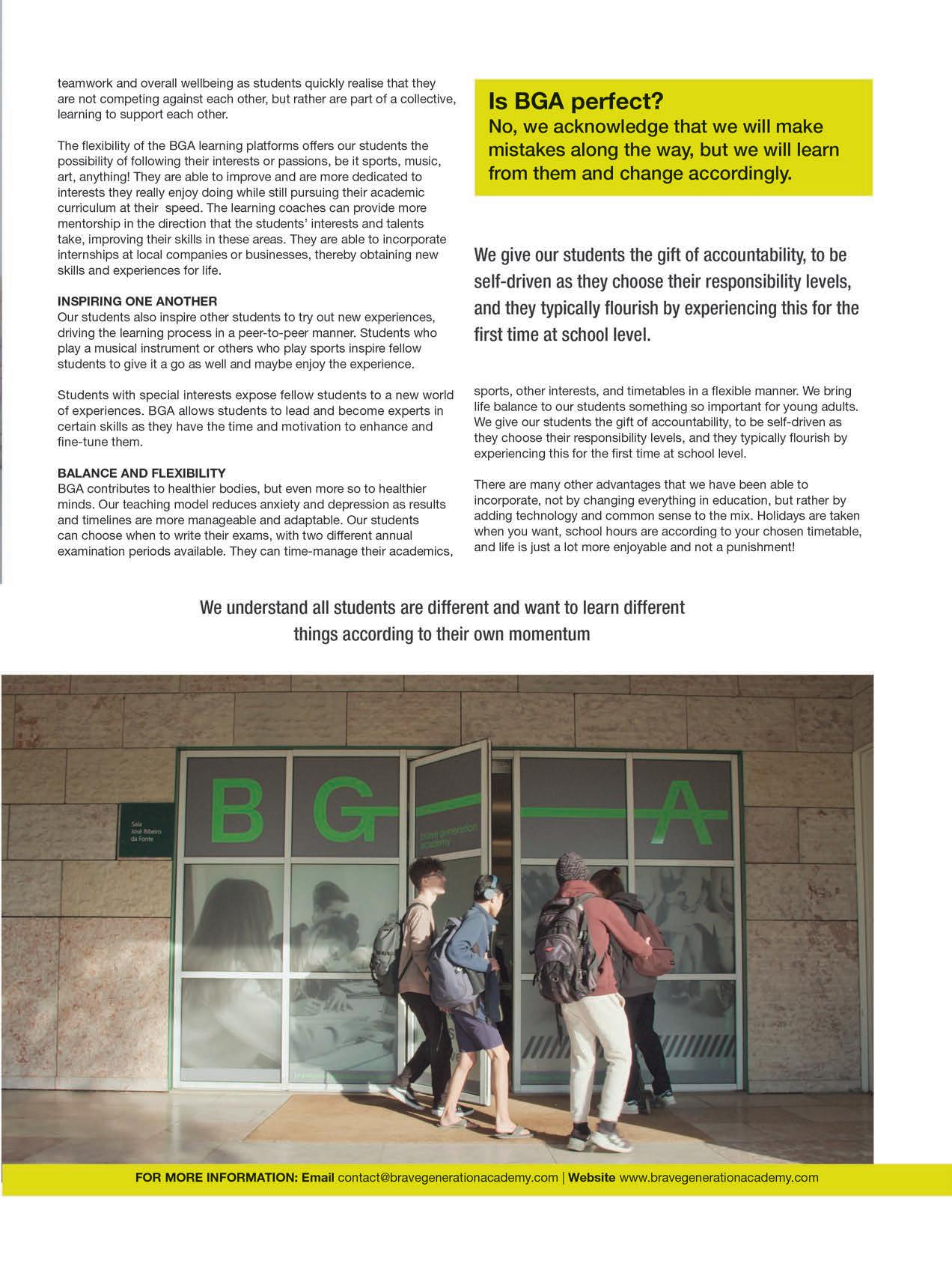
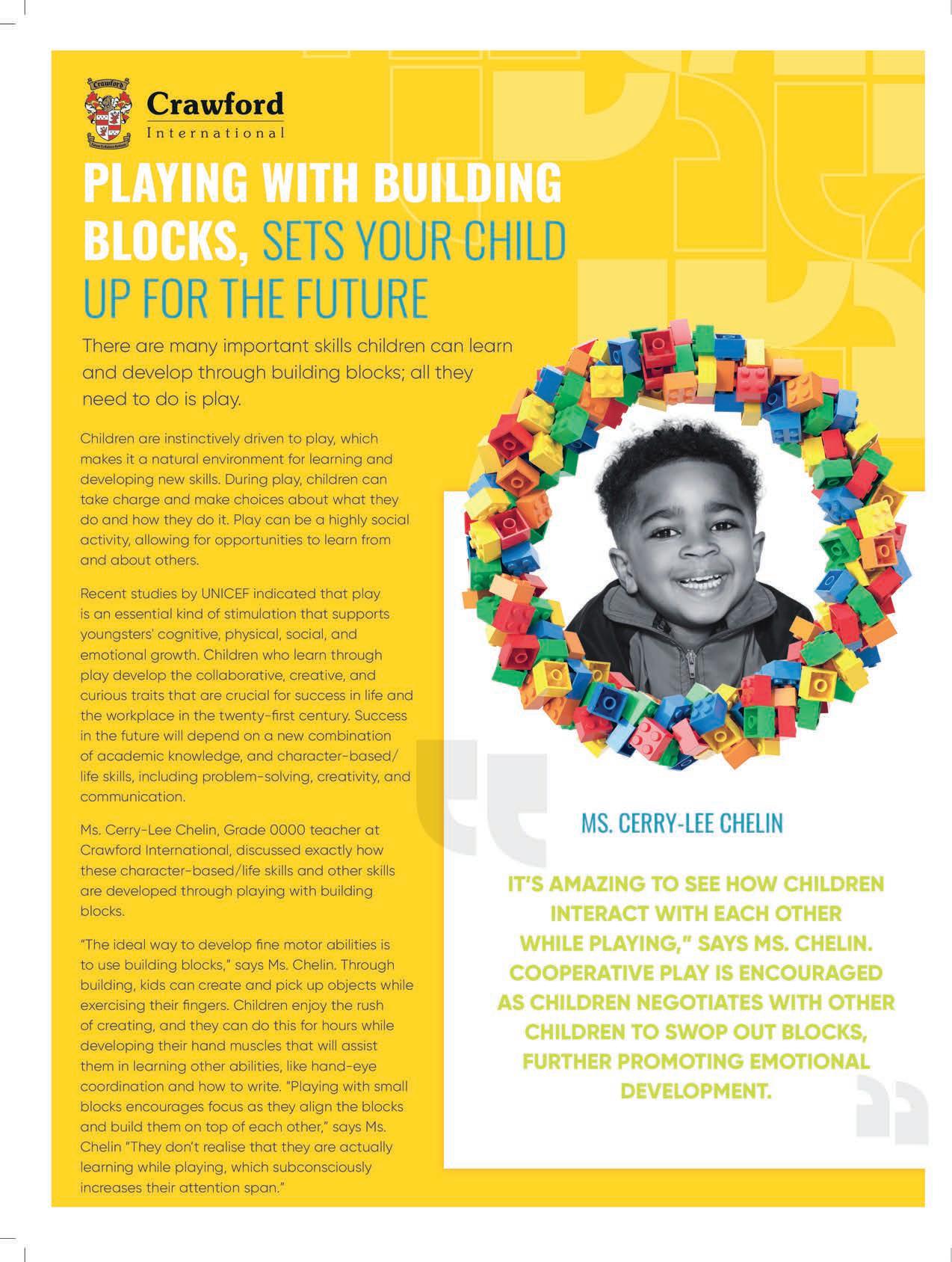
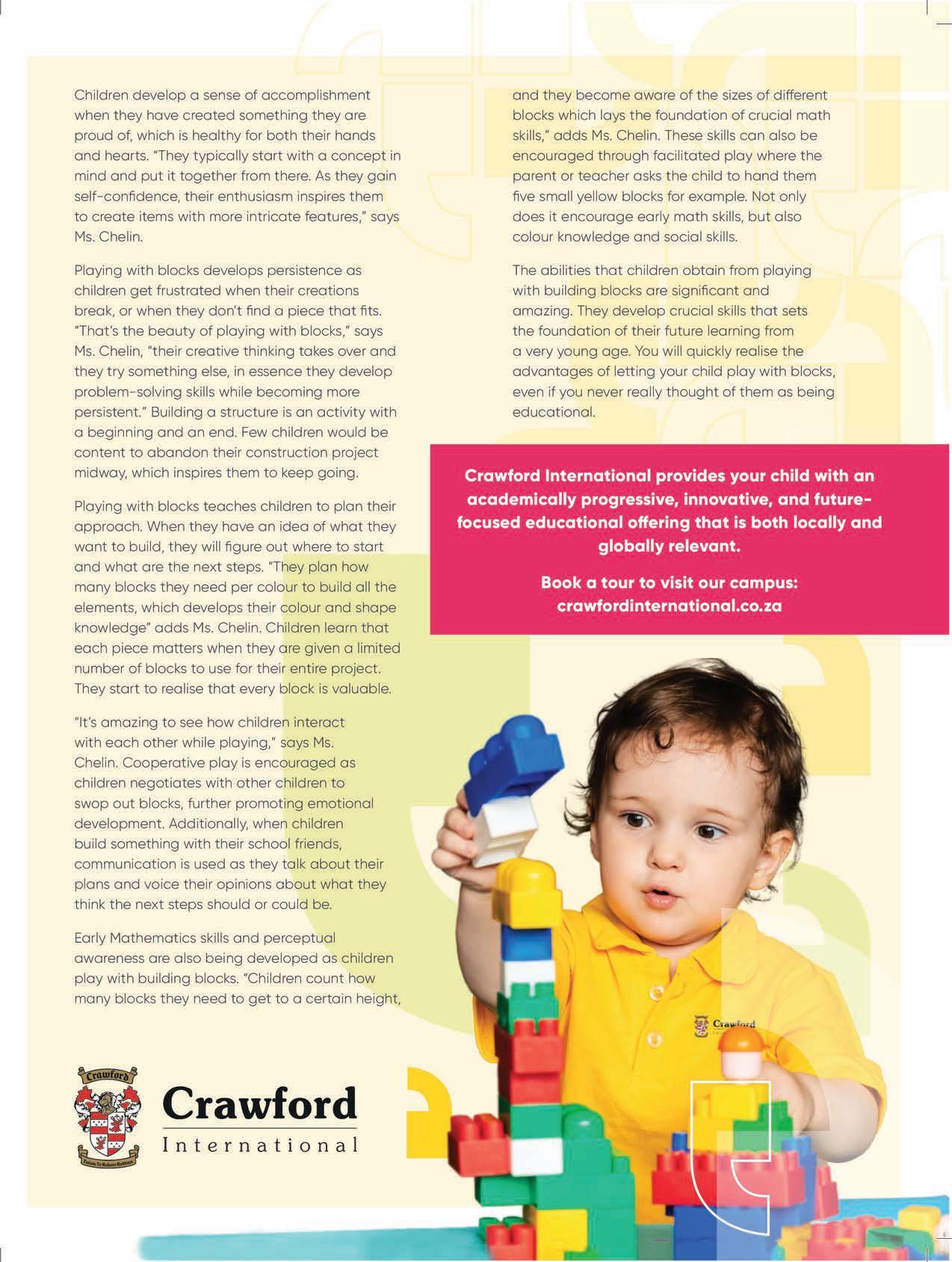
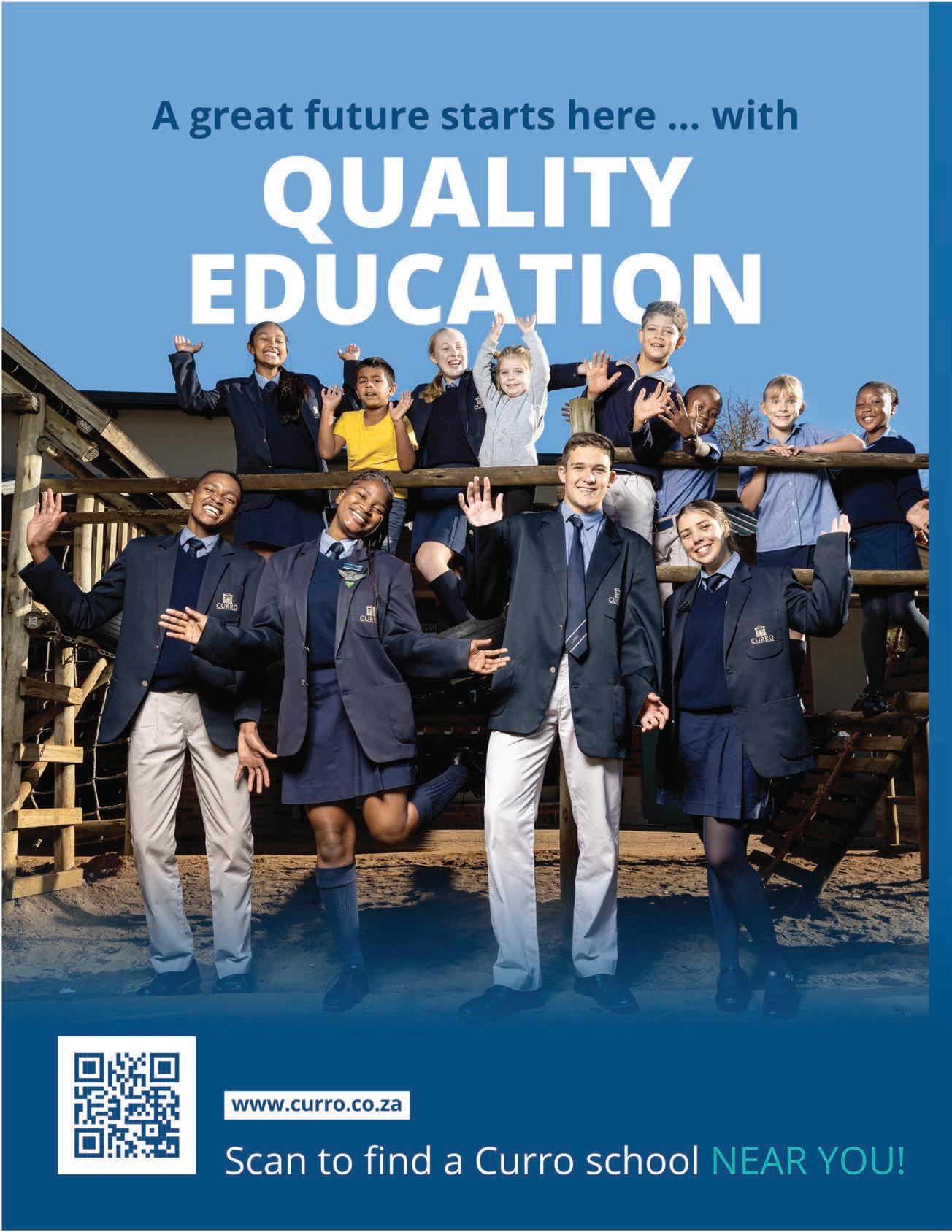

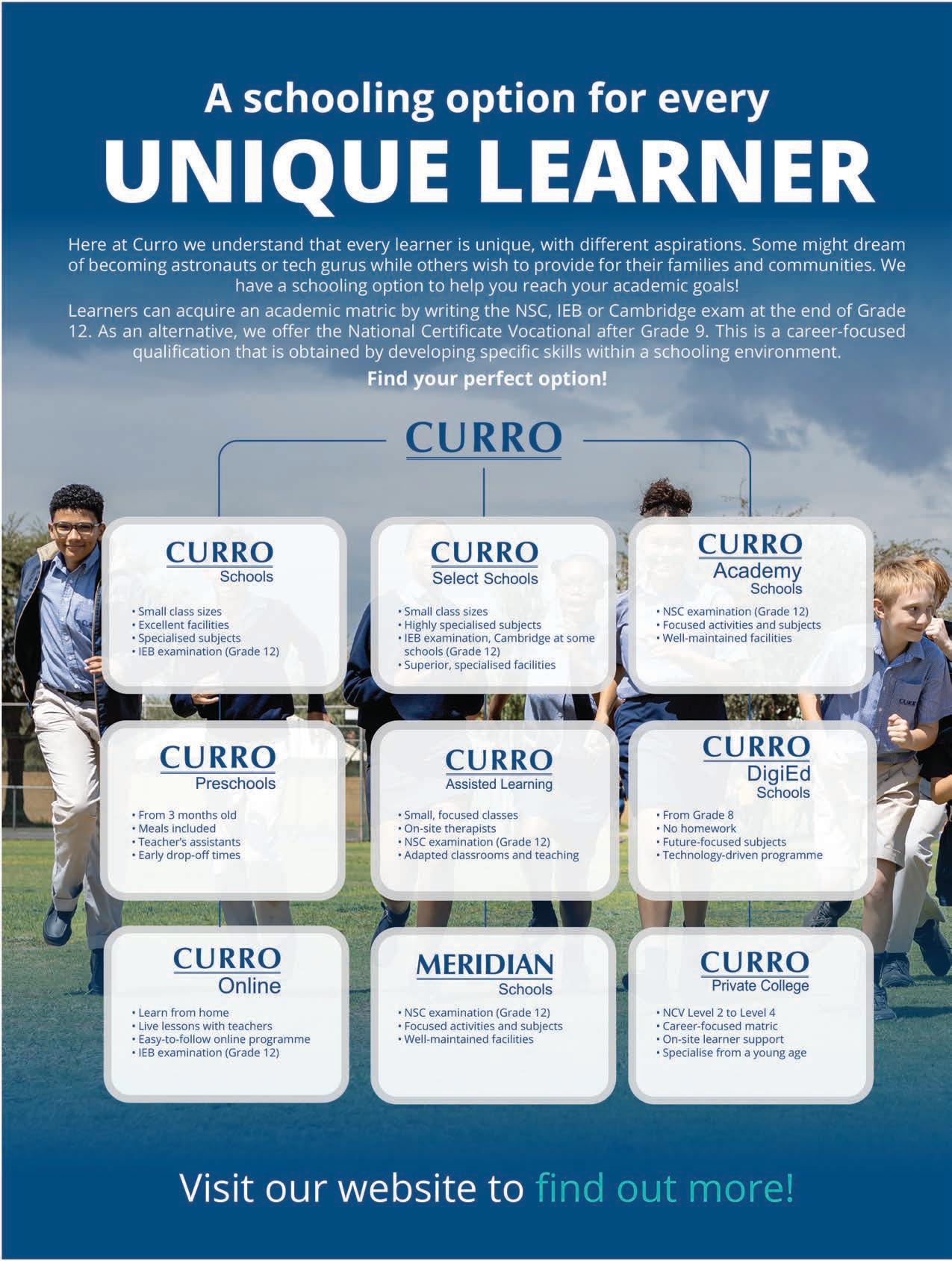
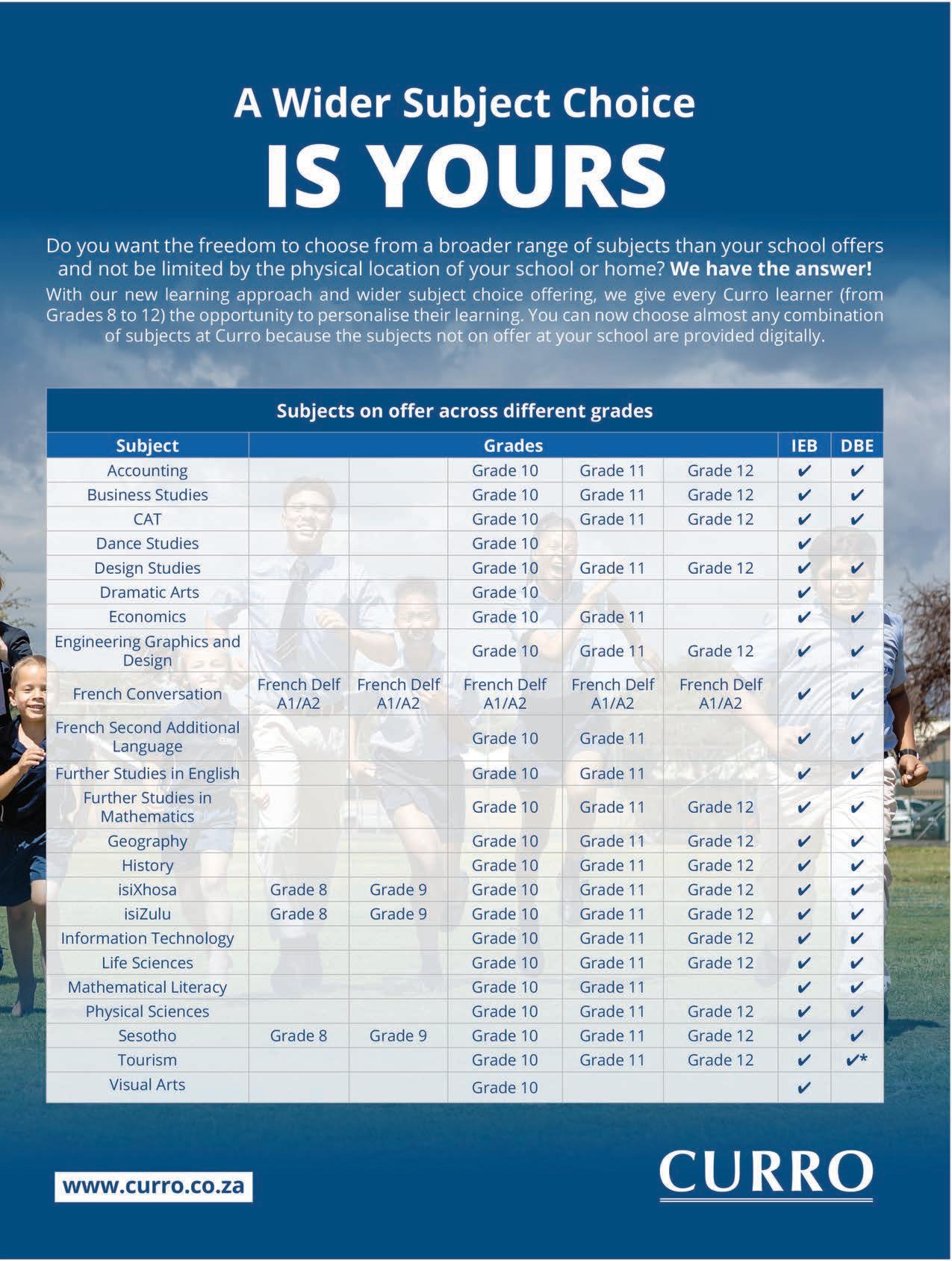
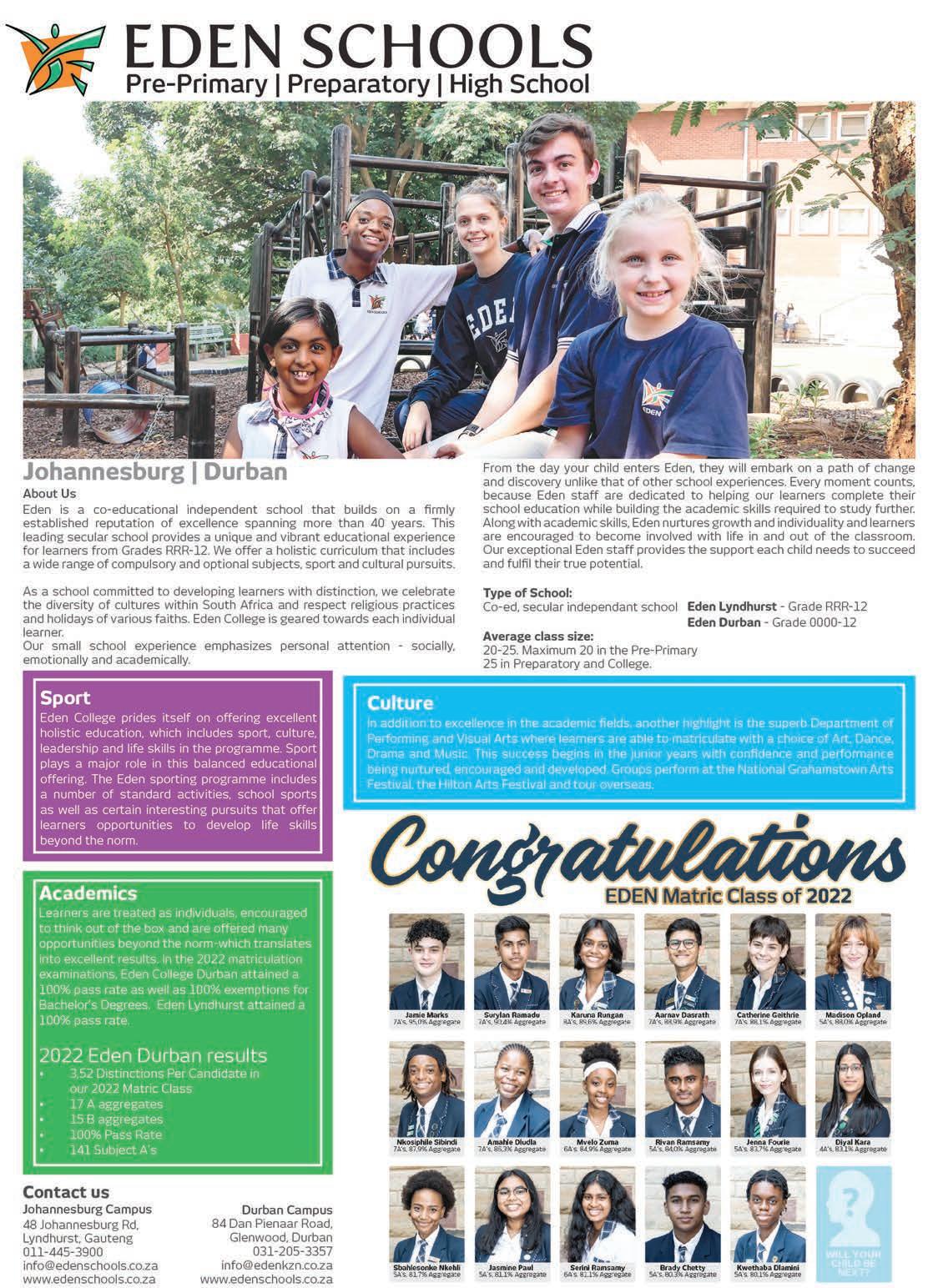
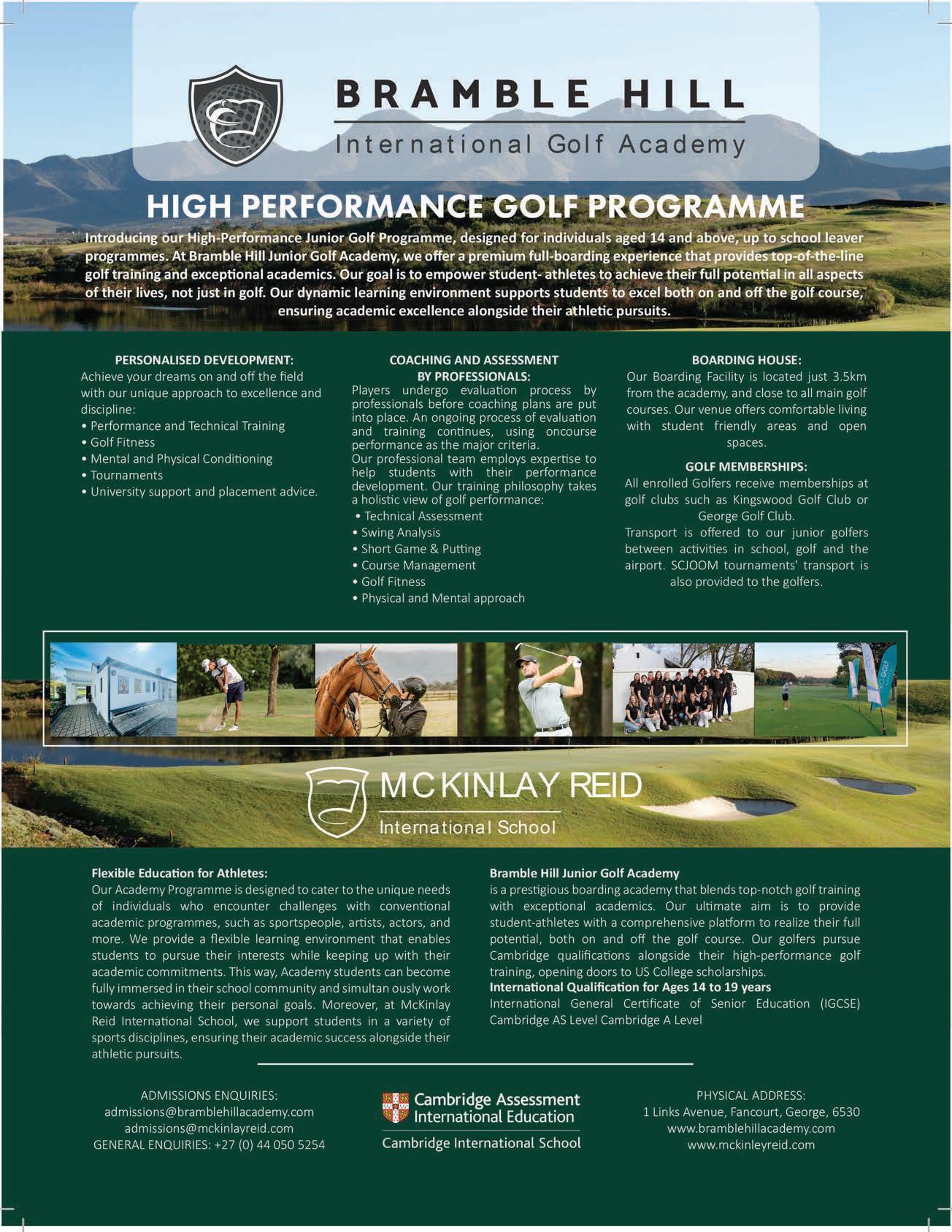
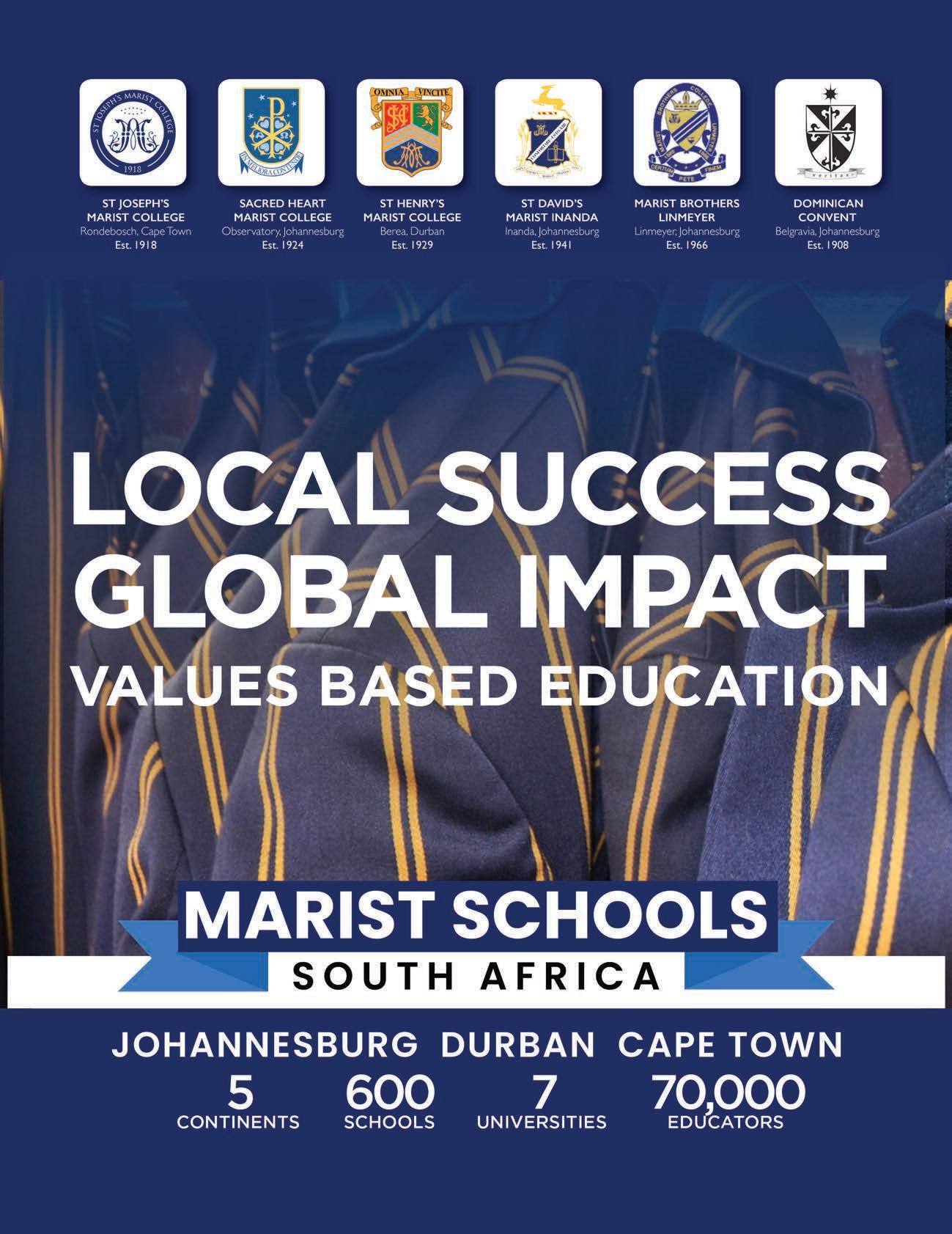
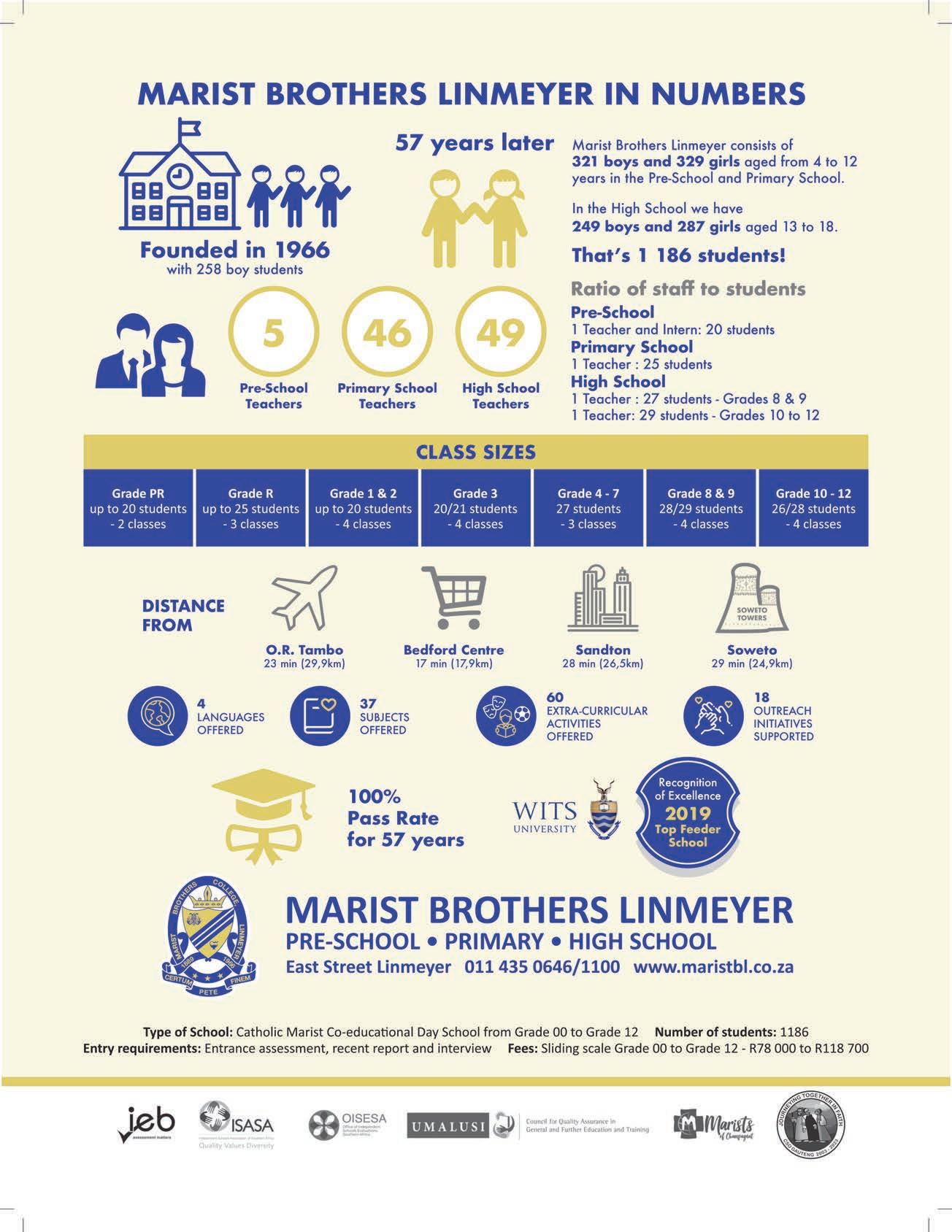

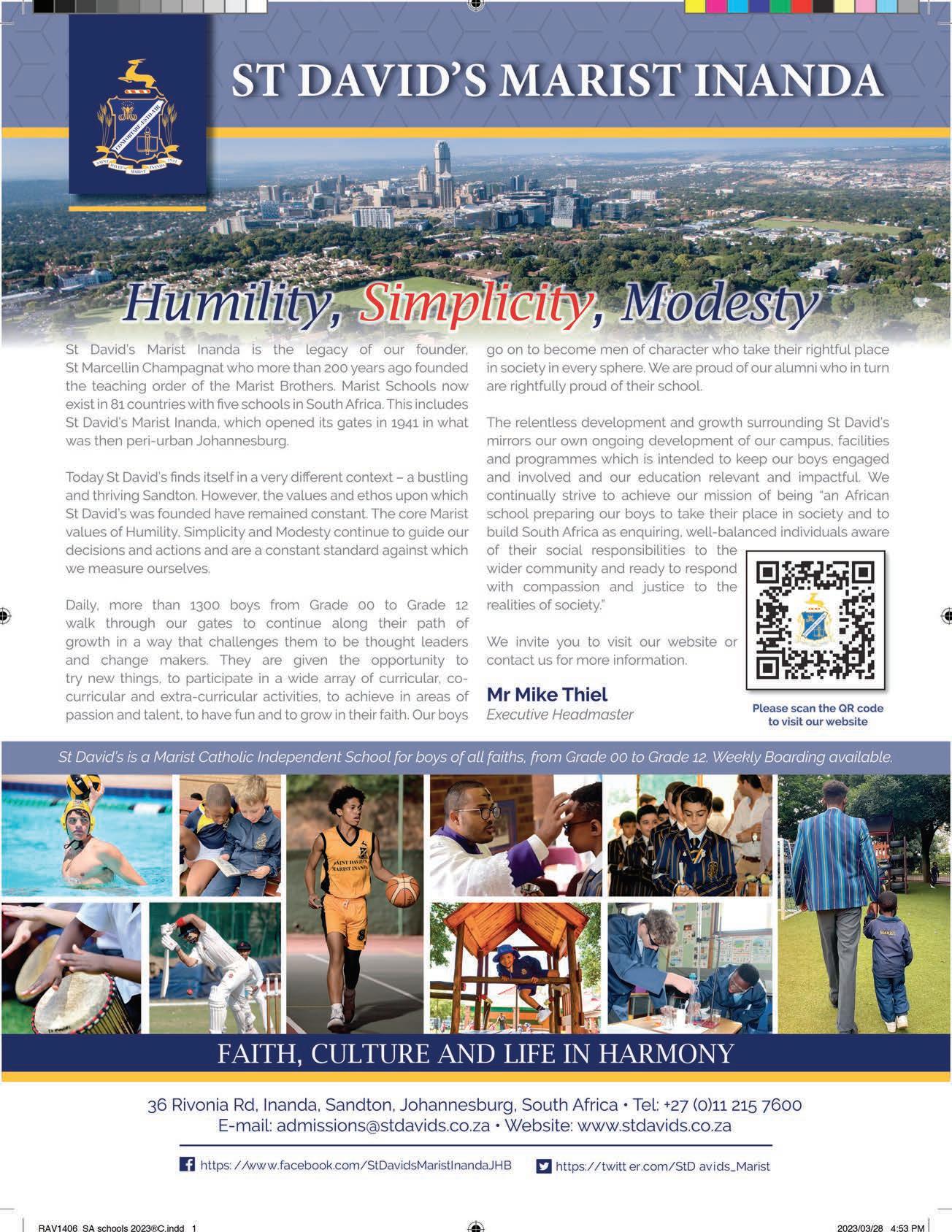
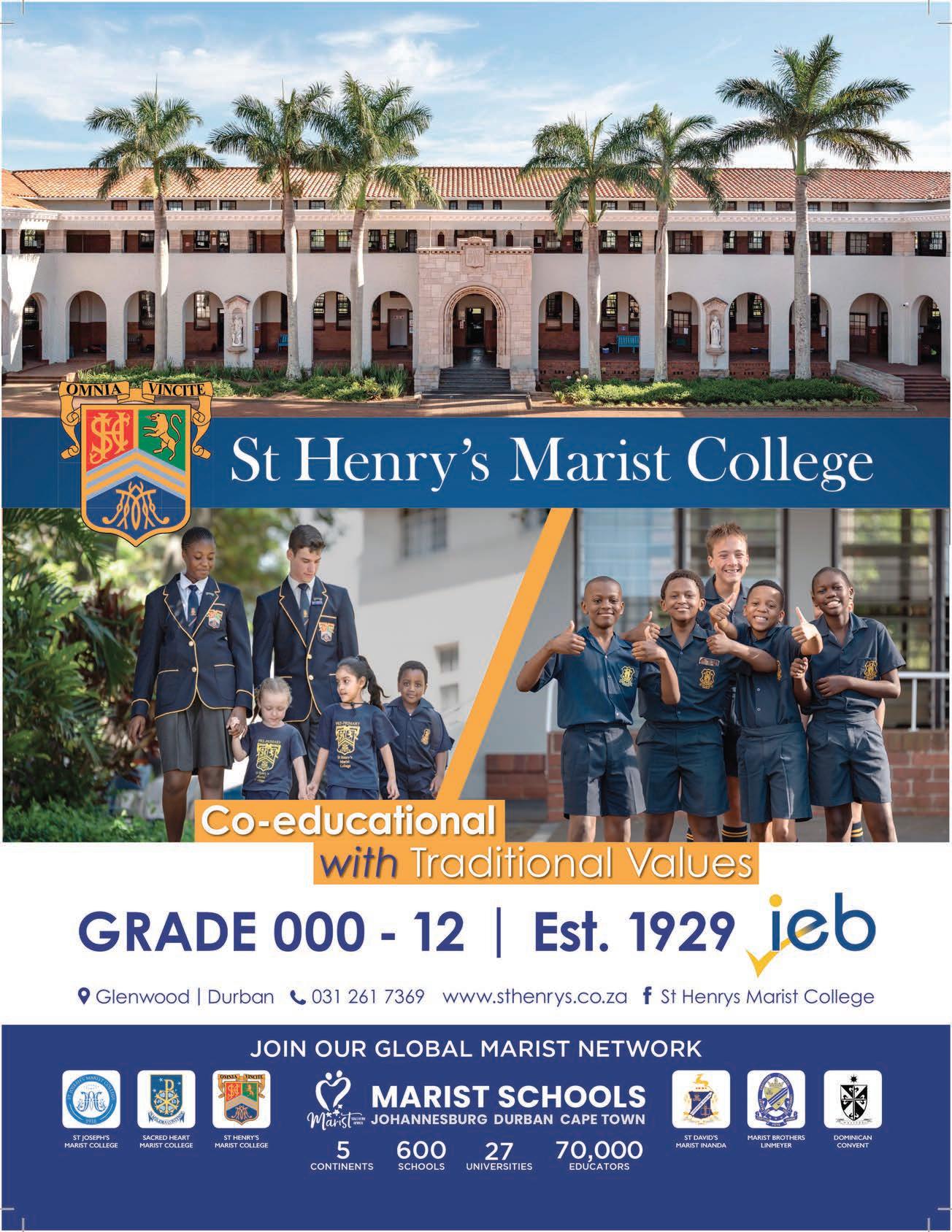


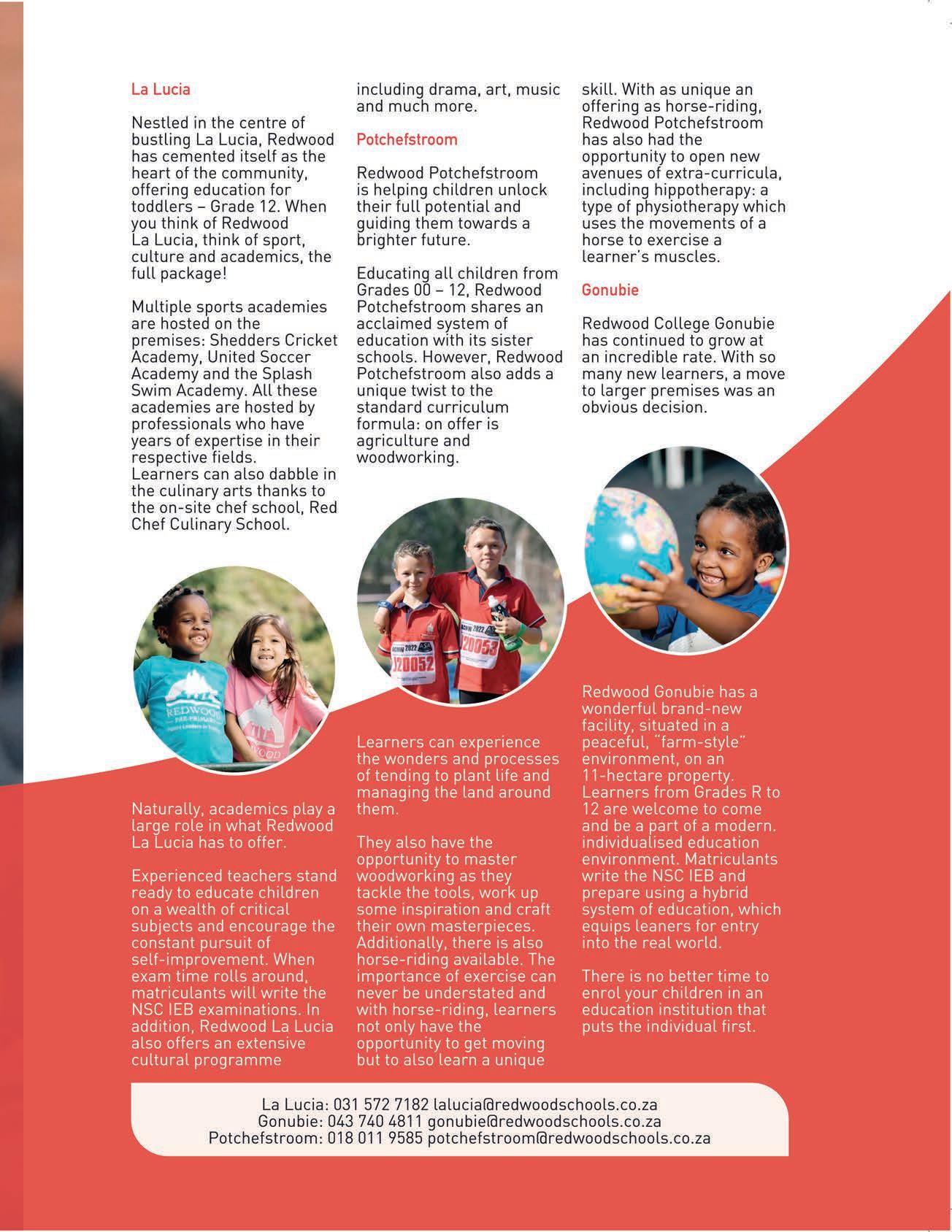




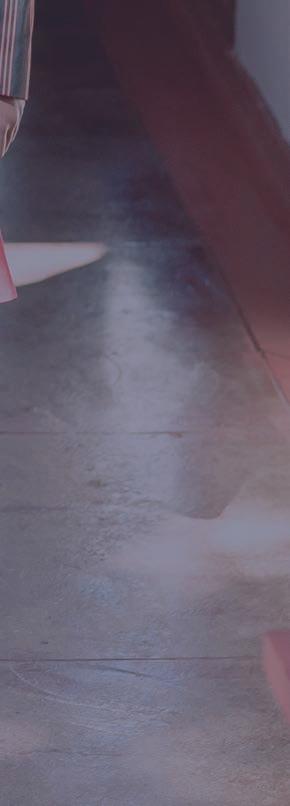
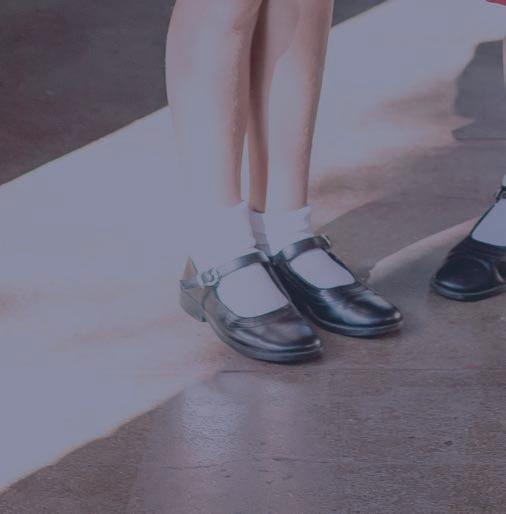

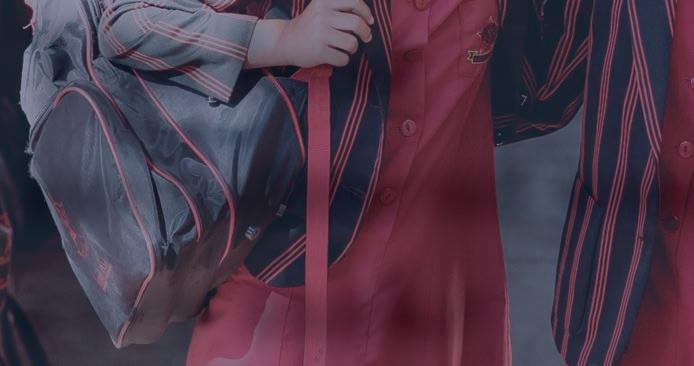
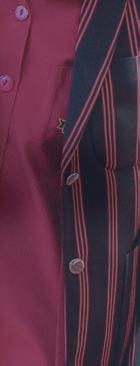
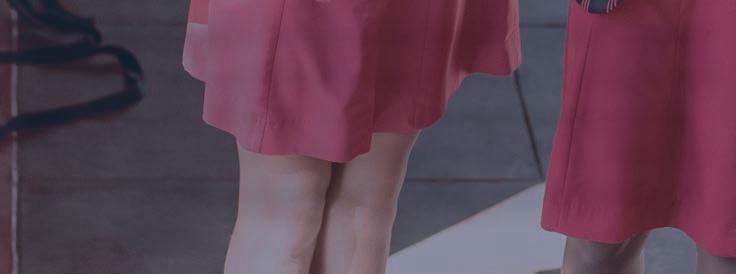
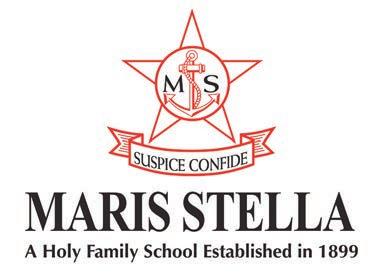

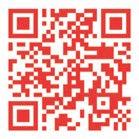
you’ll ever make Give your daughter the space to thrive. Top all rounded education with pupil wellbeing at its heart. A private, all girls’ school in Durban, focused on empowering young women, from Grade 000 through to Grade 12, with the tools to become independent, resilient and self-assured global citizens. @ m a r i s s t e l l a s c h o o l BOOK A TOUR 558 Stephen Dlamini, Berea, Durban 4001 Call (031) 209 9426 www.marisstella.co.za
The best investment
EASTERN CAPE SCHOOLS

88 Collegiate Girls’ High School, 89 Kingswood College, 90 Merrifield Preparatory School and College, 92 Selborne College, 95 St Andrew’s College Grahamstown, 96 The Diocesan School for Girls, 97 Woodridge College and Preparatory School 87 The South African Schools Collection 2023
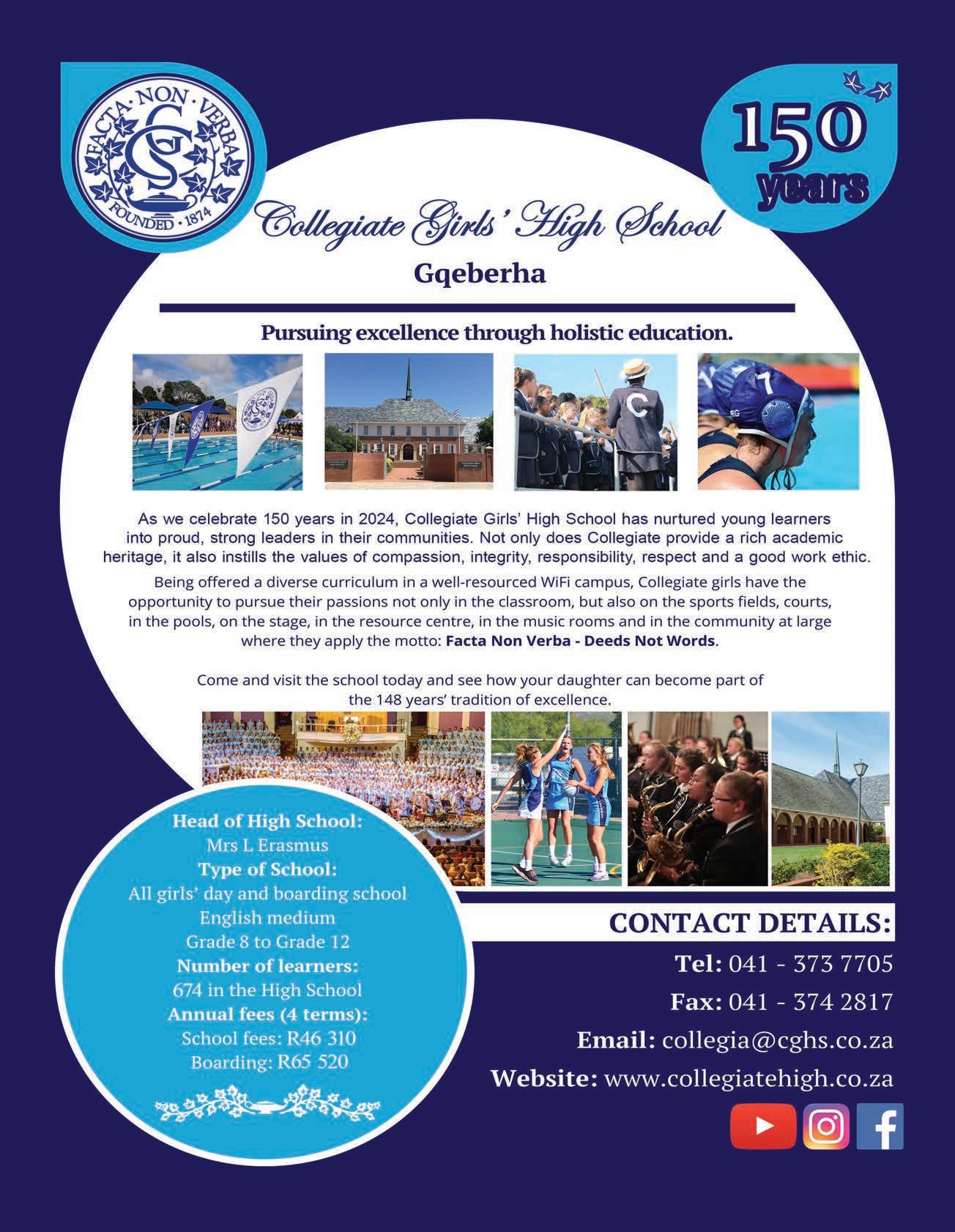

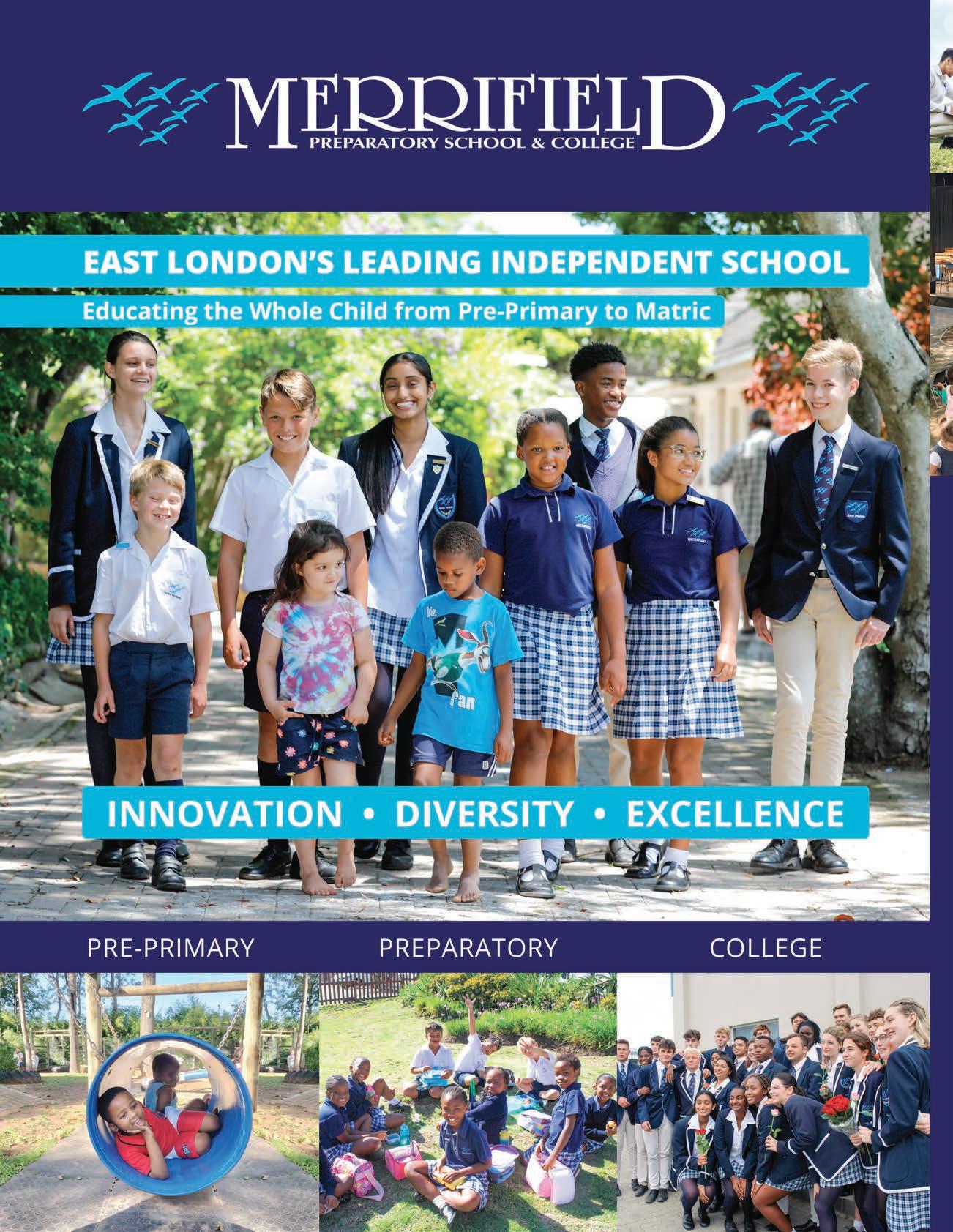

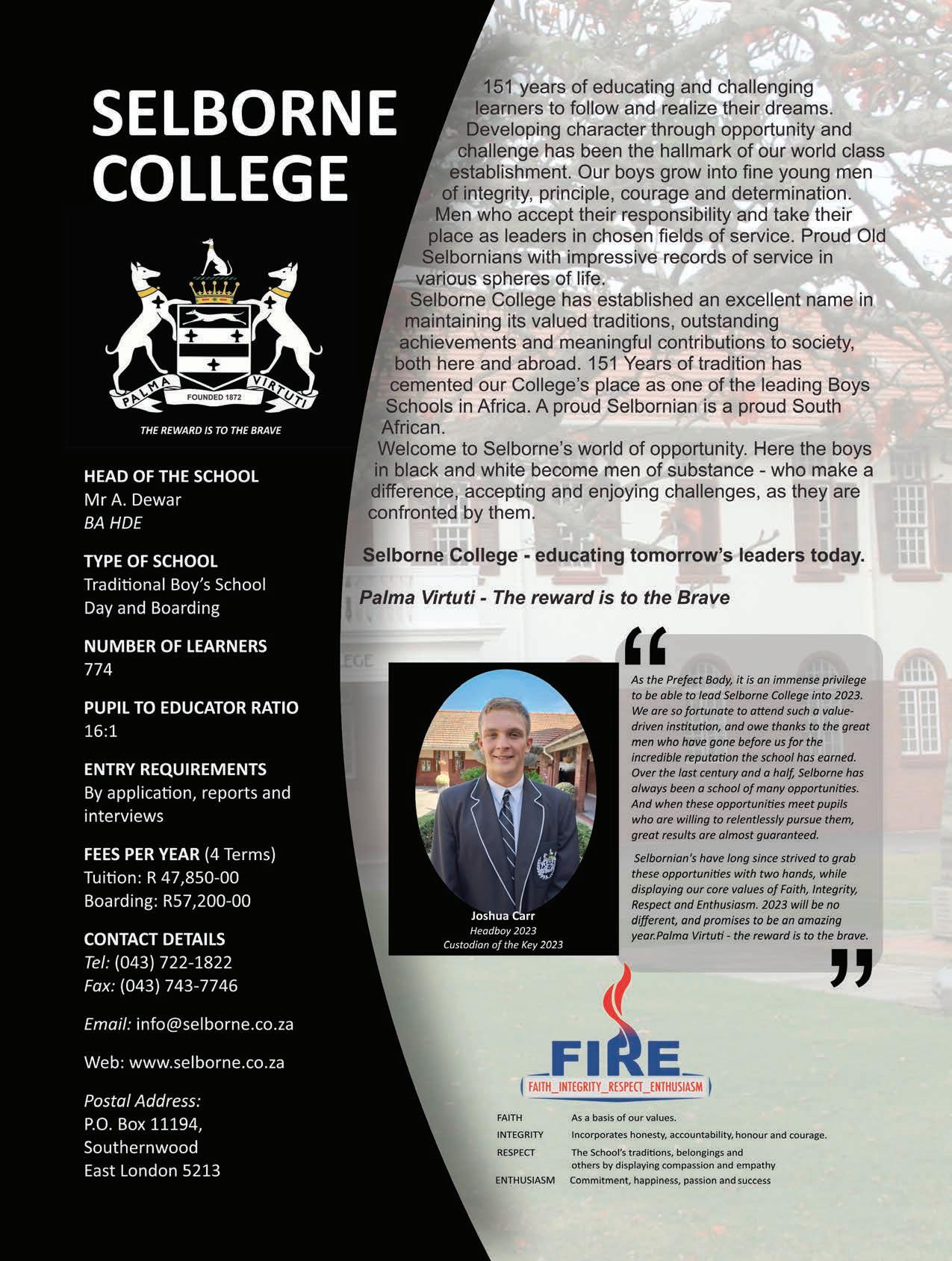
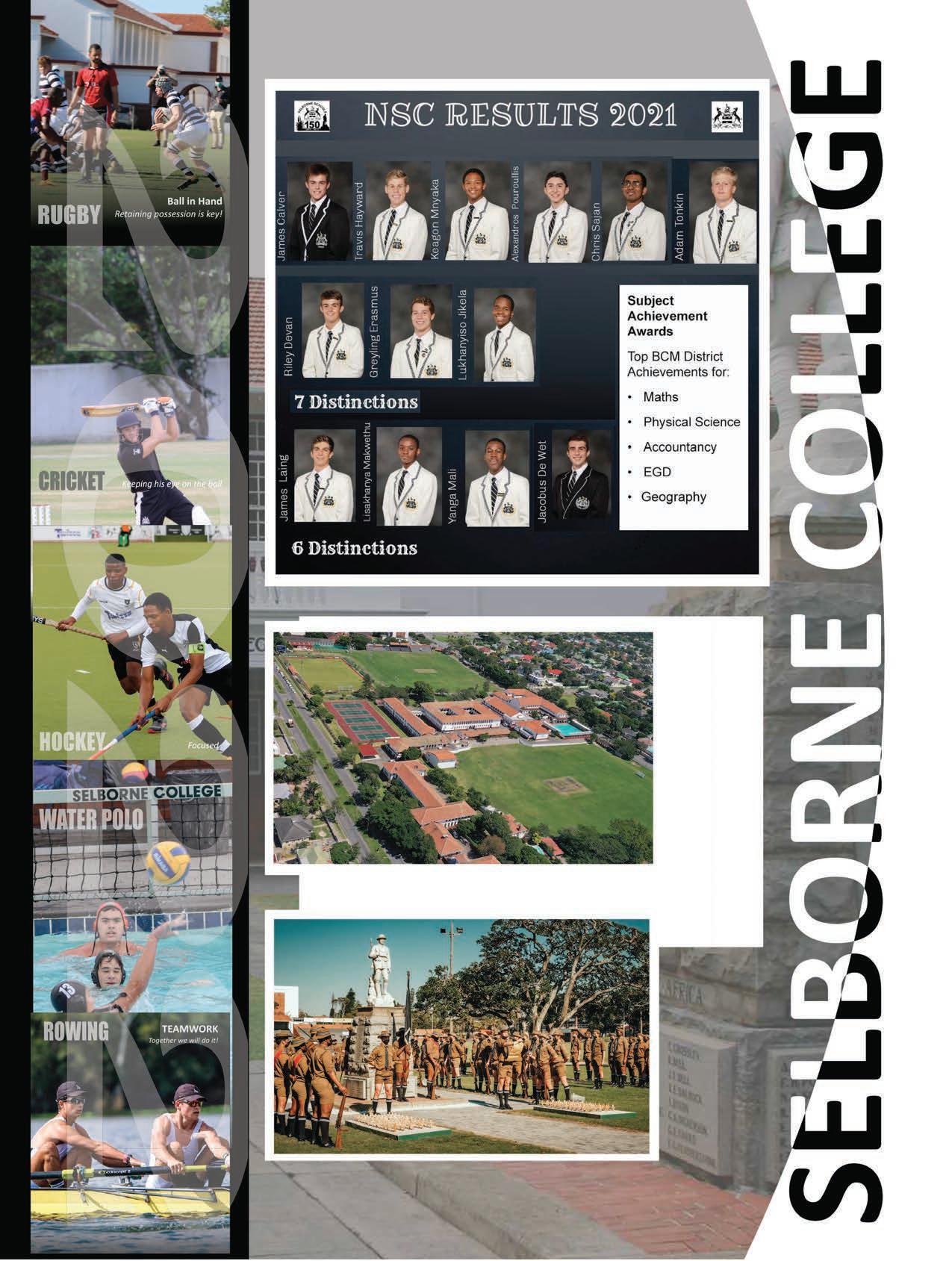

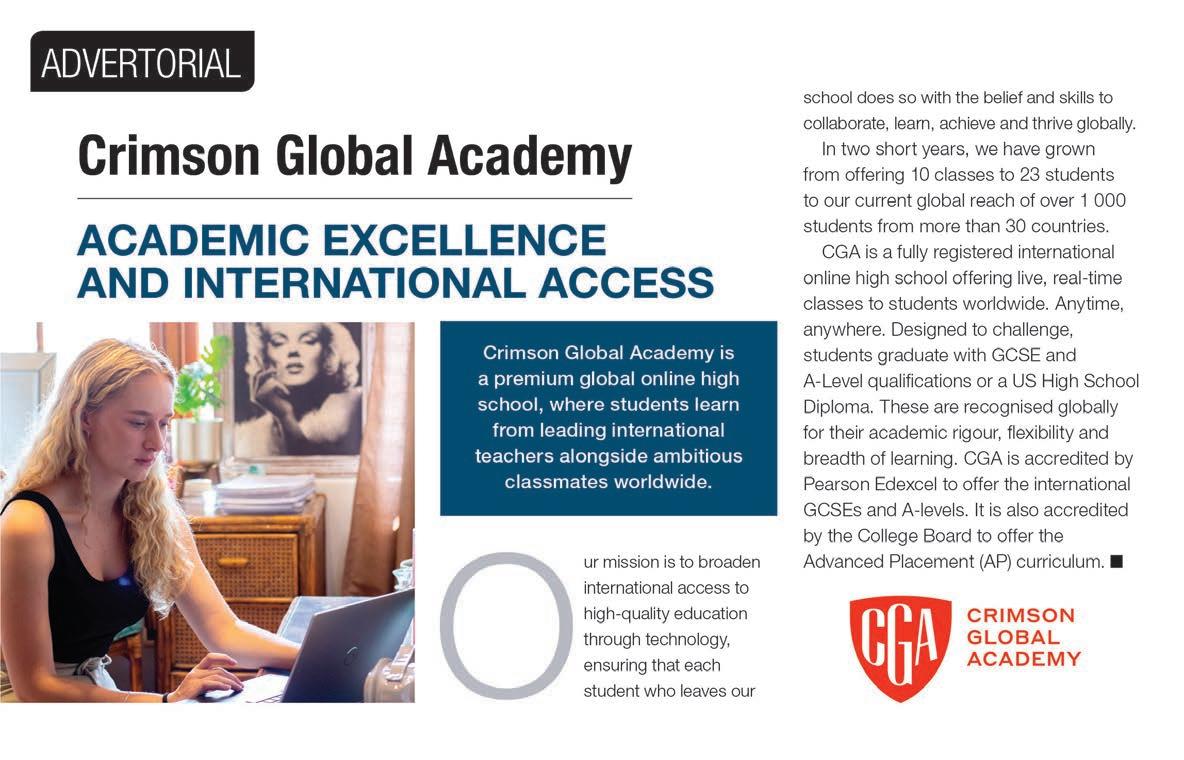
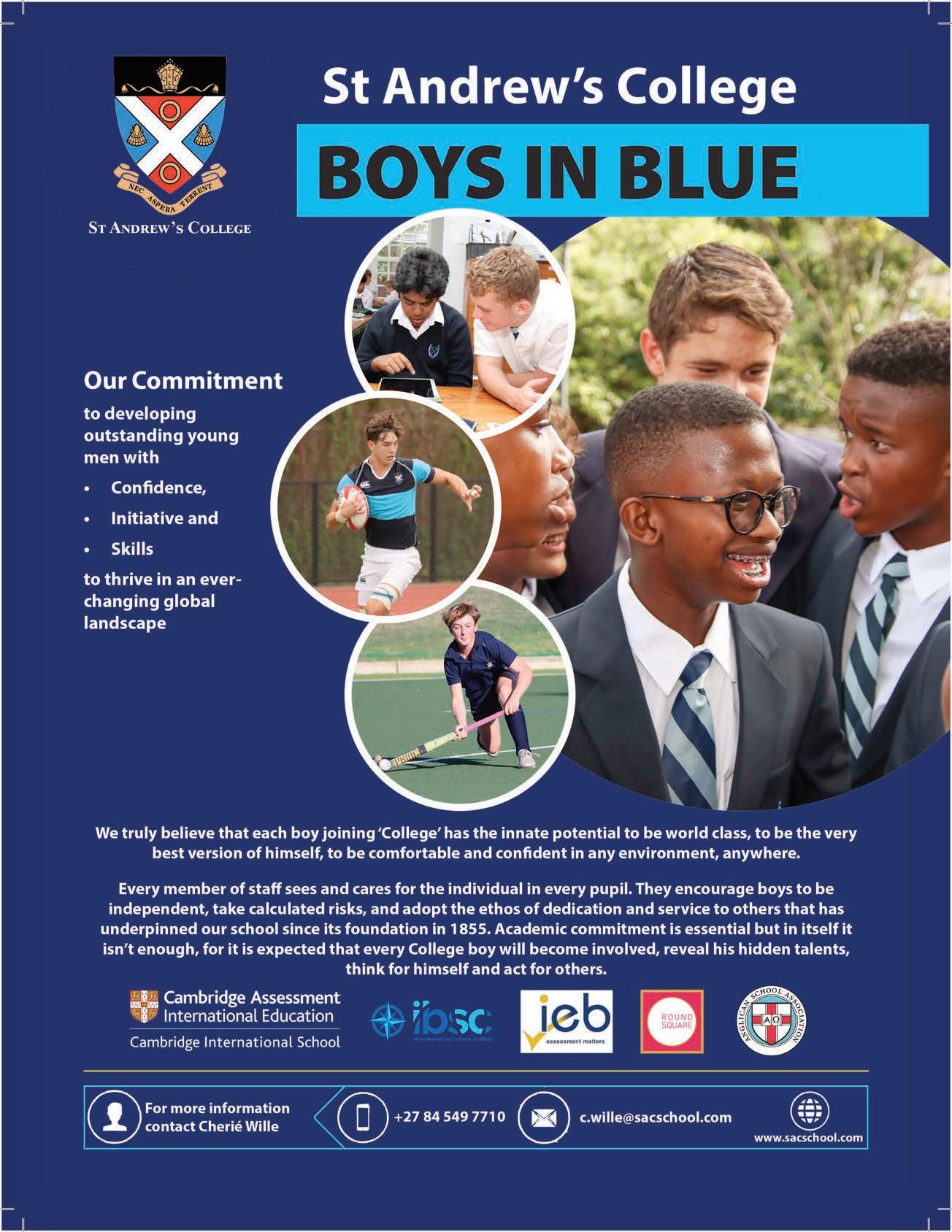


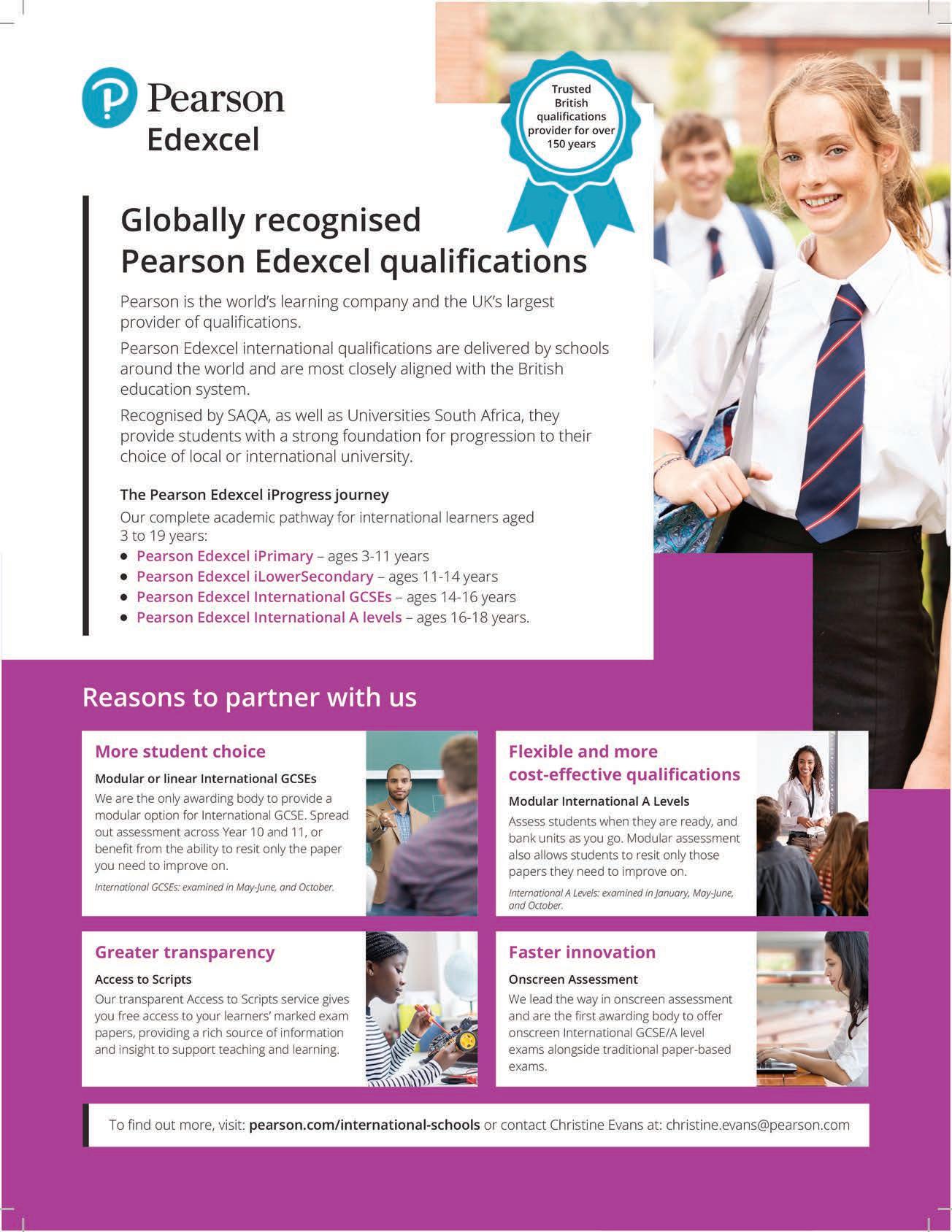


GAUTENG SCHOOLS 100 American International School of Johannesburg, 102 Bellavista School, 103 Blairgowrie Primary School, 104 Brescia House School, 105 Courtney House International School, 106 Cornwall Hill College, 108 CBC Mount Edmund, 110 Dainfern College, 112 Deutsche Internationale Schule Johannesburg, 114 Deutsche Internationale Schule Pretoria, 116 Concord College High School, 118 Eagle House School, 119 ESCA School Wanderers, 120 Greenside High School, 122 Holy Rosary School, 123 Jan Celliers Laerskool en Pre-Primêr, 124 Krugersdorp High School, 126 Kyalami Group of Schools, 128 Loreto School Queenswood, 130 Michael Mount Waldorf School, 132 National School of the Arts, 134 Northcliff High, 135 Orban Private School, 136 Pretoria High School for Girls, 138 Pro Arte Alphen Park, 140 Roedean School, 141 Ruimsig Academy, 142 Saheti School, 143 School of Merit Private School, 144 St Alban’s College, 146 St Andrew’s School for Girls, 148 St Catherine’s Catholic School, 149 St Dunstan’s College, 150 St Dominic’s Catholic School for Girls, 152 St John’s 6th Form, 154 St John’s College, 156 St John’s Pre-prepatory, 158 St Martin’s School, 160 St Mary’s Diocesan School for Girls, 161 St Mary’s School Waverley, 162 St Paulus Pre-primary and Primary School, 164 St Peter’s Schools, 166 St Teresa’s School, 167 Summerhill School, 168 Steyn City School, 170 The Ridge School 99 The South African Schools Collection 2023
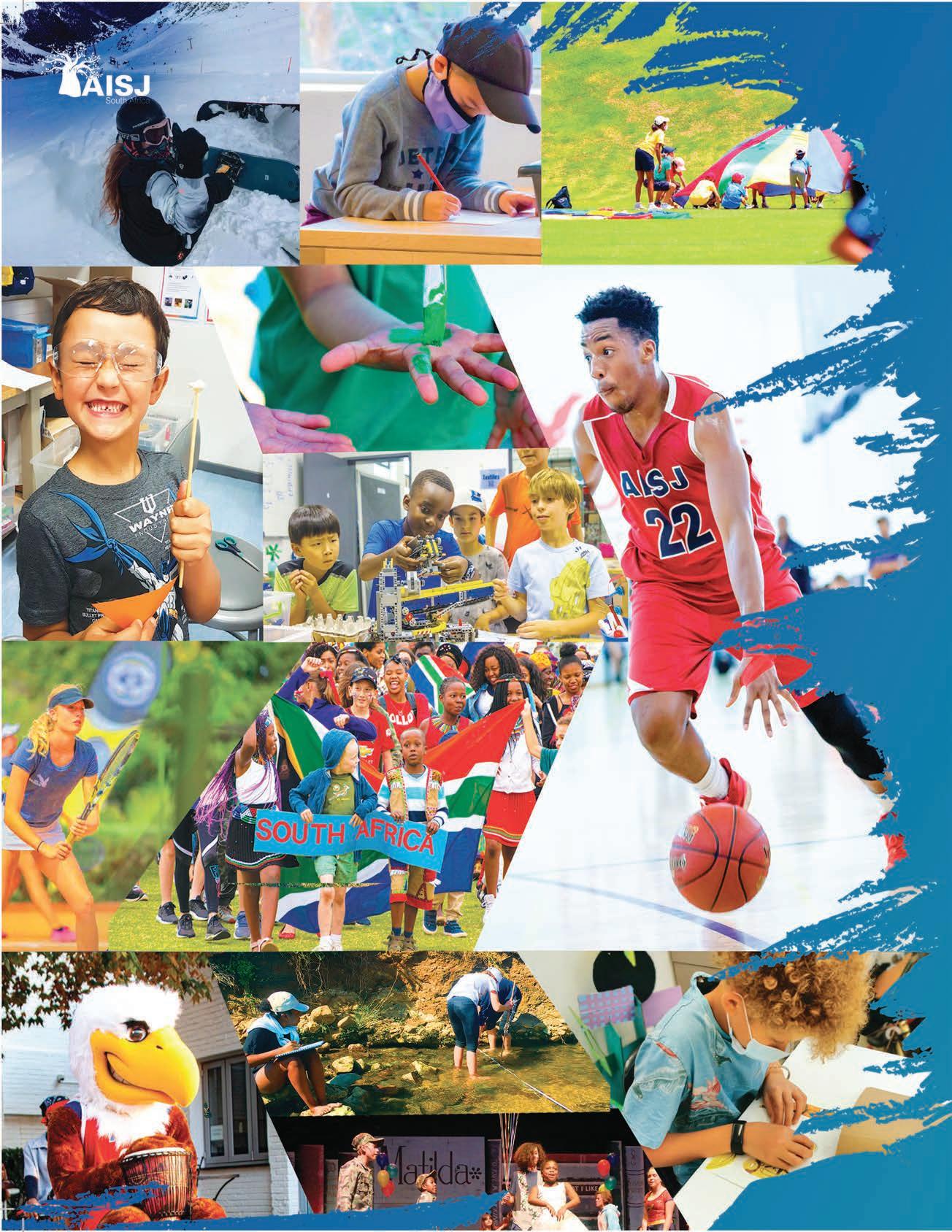


Contact: secretary@bellavista.org.za, admin@bellavista.org.za www.bellavista.org.za 011 788 5454 Johannesburg, South Africa

BRESCIA HOUSE SCHOOL
BRYANSTON GRADES R–12 (GRADES 00 AND 000 OPENING JANUARY 2024)


Brescia House School is an independent Catholic day school for girls, situated in the heart of Bryanston.


The school was started in 1966 by the Ursuline Sisters of the Roman Union, and we are proud to be a part of a worldwide Ursuline network of schools that educates thousands of learners annually. The Ursuline schools network includes schools on all continents. These schools collaborate in a Global Education Programme through which pupils of Ursuline schools can travel and meet with their Ursuline counterparts, exchange ideas, form networks and develop the confidence that will stand them in good stead in the future. A global connection is also facilitated online through collaboration projects with schools across the world.
The motto of the school, Serviam, means “I will serve”, and a spirit of service to the community is encouraged in the pupils and staff.

While remaining true to the vision of our founders, we welcome pupils of all denominations, encouraging them to explore many aspects of religion and spirituality.
A wide range of academic subjects is offered and pupils also participate in a variety of extramural sporting and
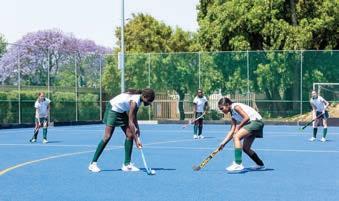


Head of High School
Mrs Loredana Borello
Head of Primary School:
Mrs Deborah Zambon
cultural activities. Facilities include an aquatics complex with heated swimming pools, two hockey fi elds, a mini astro and eight tennis/netball courts. Sporting activities include swimming, diving, artistic swimming, hockey, netball, soccer, athletics, tennis, cross-country, and orienteering. Off-campus, students can participate in the school equestrian team, and a CrossFit programme is offered to the Brescia House School students at CrossFit Proform, next door to the school. Cultural activities include public speaking, TED Talks, debating, global affairs, photography, a cooking club, drama, chess, choir and music.
The recent launch of the Brescia House School Music Institute will expose students to music production and technology. Students can study music production and complete Rockschool production examinations. They also learn to record music and songs in the school’s recording booth.
Students are taught coding from Grade R all through primary school. They continue to attend ICT lessons in the high school, and use a variety of applications to assist with coding and robotics. From Grade 10, Java is the programming language taught during information technology.
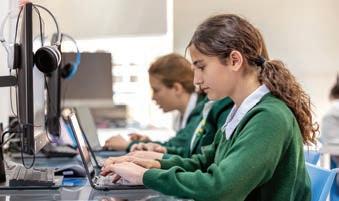
Type of school: Catholic girls’ day school/ Independent Examinations Board (IEB)
Number of learners: +-425 (primary school), +-375 (secondary school)
Average class size: 22–24
The introduction of laptops to all students in Grades 4 to 12 ensures that the students receive a fi rst-class education and are well-equipped for the future. In addition, Brescia House School has been identifi ed as a Microsoft Showcase School since 2013.
In this day and age, it is important to mix tradition with innovation, but never allow one to overshadow the other. The school has achieved a balance by combining a values-based education with innovative and meaningful educational practices. This allows the girls to become the best version of themselves and leave school at the end of matric as confi dent young women with the skills needed to be successful global citizens.
Brescia House School looks forward to opening its Early Learning Centre (Grades 00 and 000) in January 2024.
Brescia House School is affi liated to the Johannesburg/Pretoria Catholic Schools Board and the Independent Schools Association of Southern Africa (ISASA). We write the Independent Examinations Board examinations in matric and the school also has a seven year accreditation from Umalusi.
Entry requirements: Diagnostic Assessments (secondary school)


Fees per year: R94 560–R154 275

WC 104 The South African Schools Collection 2023 G
Tel: 011 706 7404 | admissions@brescia.co.za | www.brescia.co.za | 14 Sloane Street, Bryanston, 2021

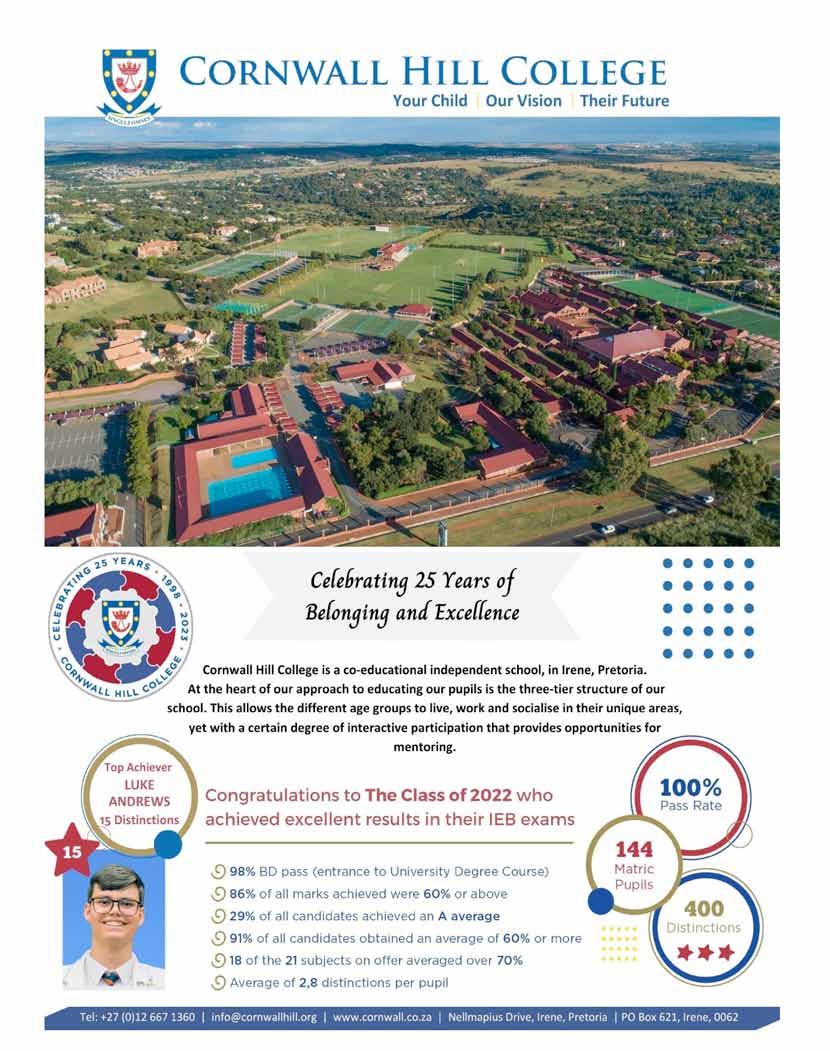
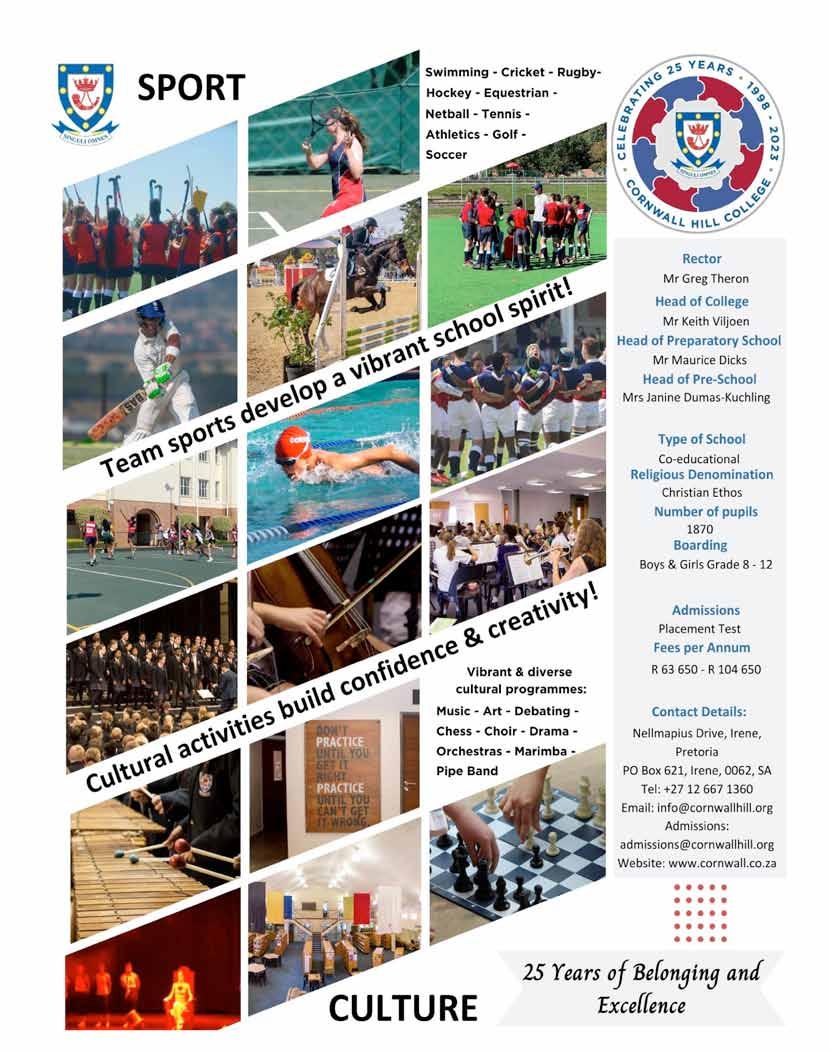
CHRISTIAN BROTHERS’ COLLEGE
MOUNT EDMUND, PRETORIA GRADES RRR – 12
Christian Brothers’ College (CBC) Mount Edmund is a proud, faith-based family college that cares about accompanying every child on their life journey towards achieving excellence. As an independent English medium Catholic School, CBC Mount Edmund provides quality education for both boys and girls from Grade RRR to Grade 12.
CBC Mount Edmund is rooted in teaching gospel values. Over and above the strong academic programme offered by our excellent teachers, we aim to develop independent learners who are critical thinkers and place Jesus Christ at the centre of what they do.
In our 101 years of existence, the college has always maintained a culture of inclusivity. It is for this reason that we are the only Catholic school that is a co-educational and combined school in Pretoria. We are affiliated to:
• ISASA
• IEB
• Catholic Schools Education

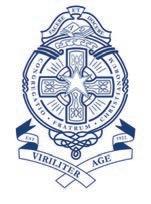
• Edmund Rice Education Beyond Borders

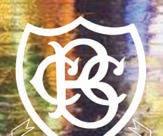
Preschool: Grade RRR–RR
Our preschool, aptly named “Little Mount” allows you to “walk through life” with us as we take your child on a journey of self-discovery from age three. Even at this young age, we start moulding our future leaders. We offer a curriculum that is creative and enjoyable, focusing on the child’s holistic development both academically and spiritually. At the preschool stage, we ignite the learners’ curiosity by offering them fun and exciting opportunities to learn about the world around them and develop through ageappropriate activities.
Foundation Phase: Grade R–3
The developmental needs of our learners are a prime focus, as they are taught social skills through fantasy and outdoor play as well as creative activities, stories, and perceptual activities. During the transition from Foundation Phase to Intermediate Phase, the learners at CBC Mount Edmund
108 The South African Schools Collection 2023
become aware of themselves in a wider context than children in a family, and see themselves as part of a larger community.
Intermediate Phase: Grade 4–7
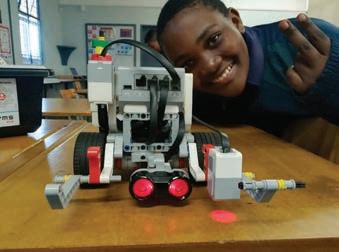
During this phase, our learners concentrate on enhancing their literacy skills and study skills assessment becomes more rigorous. With guidance from teachers and peers, learners are given the opportunity to grow independently and are taught the importance of responsibility.
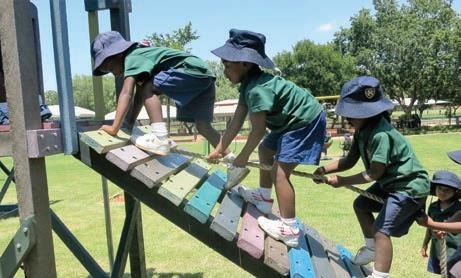


The use of technology is promoted in the phase. This is achieved by integrating technology in the classroom and providing the learners with the skills to deveop confidently in our digital age. In this welcoming and inviting section, each learner is given the necessary personal attention in an inclusive environment and the opportunity to learn through discovery. We foster a love for reading, creativity, independence and critical thinking.
High School: Grade 8–12
We strive to produce well-rounded individuals who can make a positive contribution to society. In addition to the academic
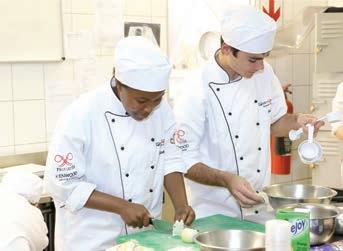
curriculum in each phase, we offer an extensive co-curricular programme that provides our learners with opportunities in sport and a wide range of cultural activities, which are maintained at the standard of being as much a part of the basic curriculum as any academic subject.
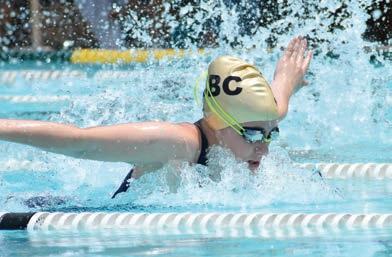
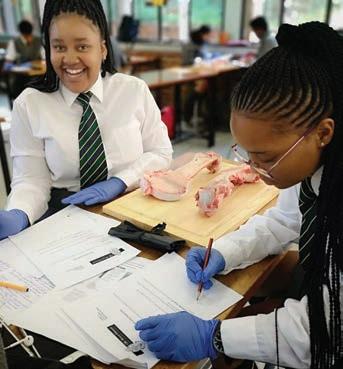
Our college is founded under the Edmund Rice tradition, which means we are part of a worldwide network of Edmund Rice Schools. Staying true to our values of FAITH, LEADERSHIP, EXCELLENCE is what makes us a true school of excellence. In Faith, our Pastoral Care Team ensures that the emotional and spiritual welfare of our learners is nurtured and enhanced. In Leadership, we encourage and inspire our learners to reach out to others, thus enabling them to realise their responsibility to assist those in need. In Excellence, we offer an excellent education with a wide range of subjects. Our staff are qualified and at the forefront of their fields of expertise to help develop future leaders.
We believe that our main call is to put the needs of our children first. Every child has a talent; whatever it is, we will find it.
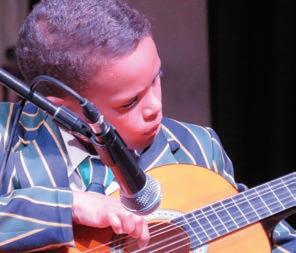
WC 109 The South African Schools Collection 2023 G Tel: 012 804 1801 | admissions@cbcpretoria.co.za | www.cbcmountedmund.co.za | c/o Cussonia and Pretoria Street, Silverton, Pretoria, 0127
Head of College: Mr B Langton
Grades RRR–12 Number of learners: 650 Average class size: 25 Entrance requirements: Online applications, student interview, parent interview Fees per year: School fees: R39 475–R91 975
Type of
school: Independent Catholic
Day School for boys and girls in


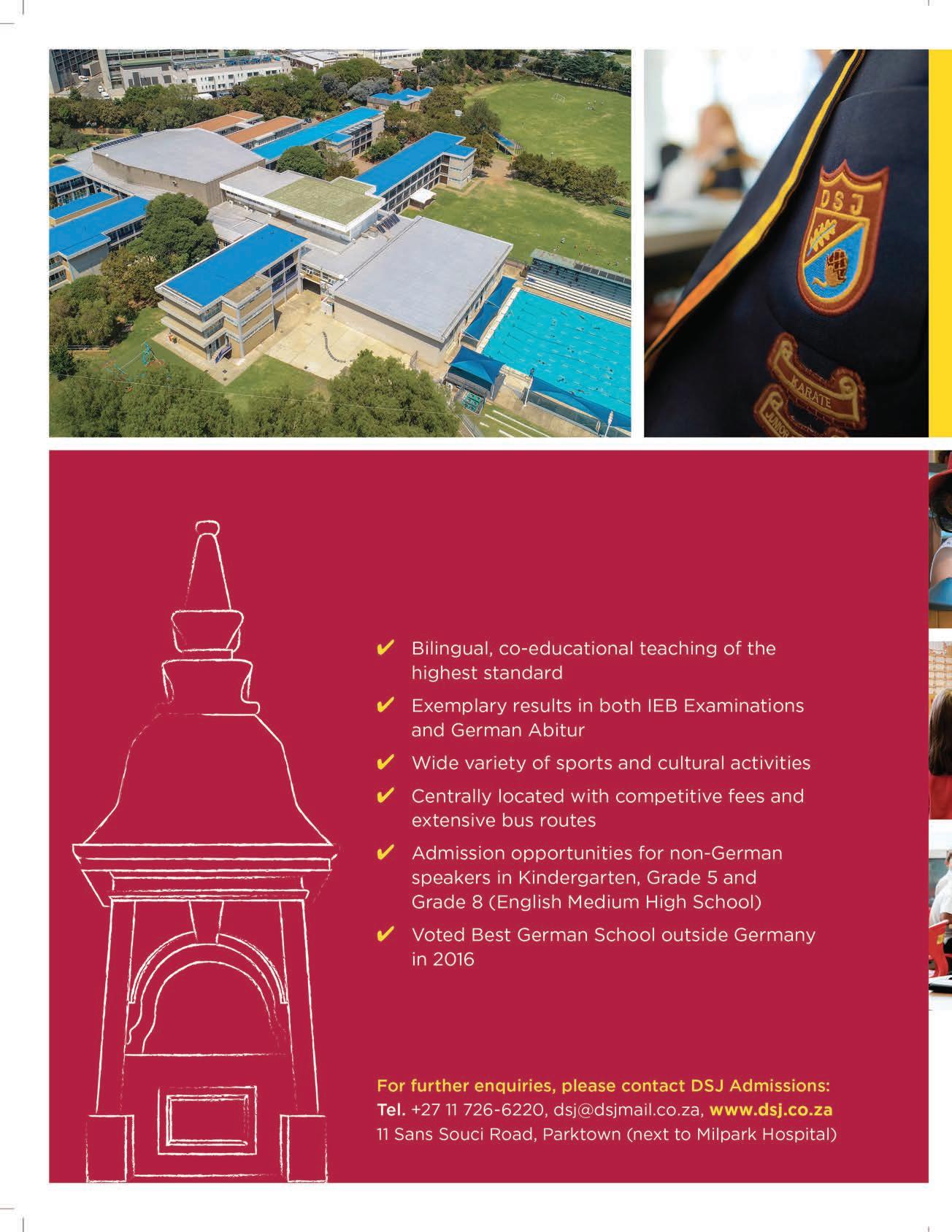


DEUTSCHE INTERNATIONALE SCHULE PRETORIA

TSHWANE
THREE MONTHS TO GRADE 12
Founded in 1899, the Deutsche Internationale Schule Pretoria (DSP) bears the seal of an excellent German school abroad. Our park-like premises with spaciously designed school buildings are the perfect setting for our learners from crèche up to the National Senior Certificate (NSC), offered by the Independent Examinations Board (IEB) and, for the German university qualification, the German International Abitur.
We offer learners: Opportunity. Excellence. Global Reach.
Children have the opportunity to learn German, the most widely spoken mother tongue in Europe (Germany, Austria, Switzerland, Liechtenstein, Luxembourg). The German language ability and our highly rated school leaving certificate, the Abitur or graduation with a German language diploma enables learners to study throughout Europe.
The excellence of our teachers provides a world-class, nurturing, safe, environment.
Head of school: Mr Manuel Hass
Type of school: German school abroad, Co-ed school
Number of learners: 712
Average class size: 15–20
Our learners benefit from the global reach of our partnerships with German companies and institutions, our community of excellence in education, our diversity, crossing borders, embracing freedom of expression and the global reach of our alumni who have found careers in South Africa and in Europe via the DSP.
ABOUT THE GERMAN EDUCATIONAL MODEL
The German educational model emphasises developing independence in children, encourages critical thinking, supports children to take ownership of their learning process and accentuates the development of creative problem-solving skills. Another characteristic of German schools is that the learners usually stay in the same groups as they go through the grades. This creates a community much like the one experienced as an adult and requires learning how to
Entry requirements crèche and kindergarten: Both German and non-German speakers from three months of age are welcome.
Entry requirements primary school: Preschool to Grade 4. Non-German-
support and encourage each and deal with differences between individuals, as well as establishing a strong bond that continues through the years at school and beyond.
The DSP follows German and South African curricula.
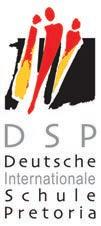
German and English are taught as mother tongue and a foreign language. Non-Germanspeaking learners have entry opportunities in the kindergarten, preschool and Grades 1 and 5. From Grade 6, Afrikaans and French are offered. Mathematics, science and social sciences are compulsory subjects for the Abitur.
Supplementary offering includes:
• Career orientation
• LEGO robotics and robotics
• Music extracurricular activities and symphony orchestra
• Sports extracurricular activities: swimming, soccer, handball, basketball, athletics
• Scholar exchange
• Afterschool Care Centre
• Therapy Centre
speaking learners have entry opportunities in preschool and Grade 1. A level assessment is a prerequisite for learners with no or limited German knowledge wanting to enter into Grades 2, 3 and 4. A personal consultation with prospective families.
Entry requirements secondary school: Grades 5–9. Non-German-speaking learners have an entry opportunity in Grade 5. A personal consultation with prospective families.
Fees per year: R63 250–R 93 870
WC 115 The South African Schools Collection 2023 G
Tel: 012 803 4106 | dsp@dsp.gp.school.za |www.dspretoria.co.za | Simon Vermooten Road, The Willows, Pretoria 0184

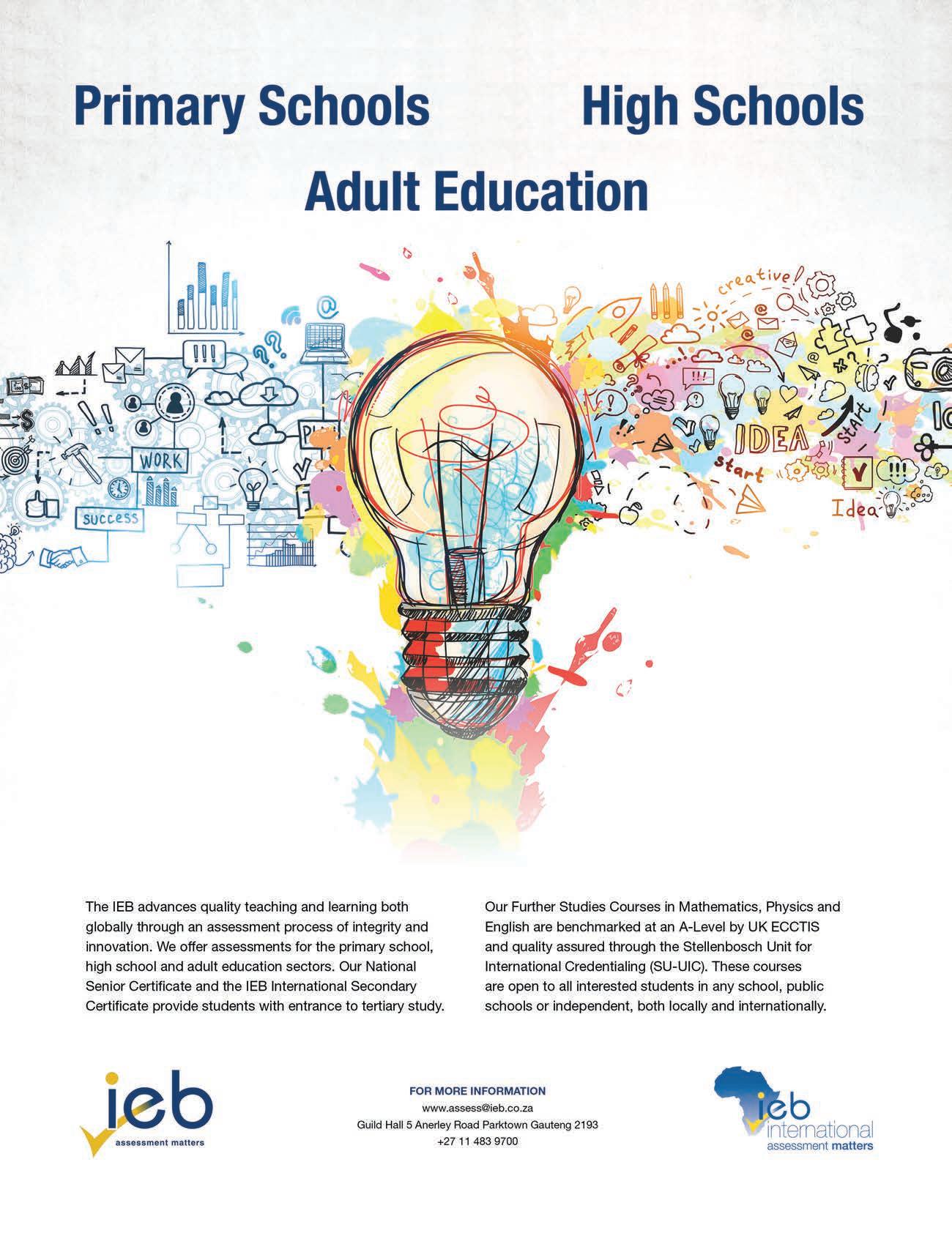
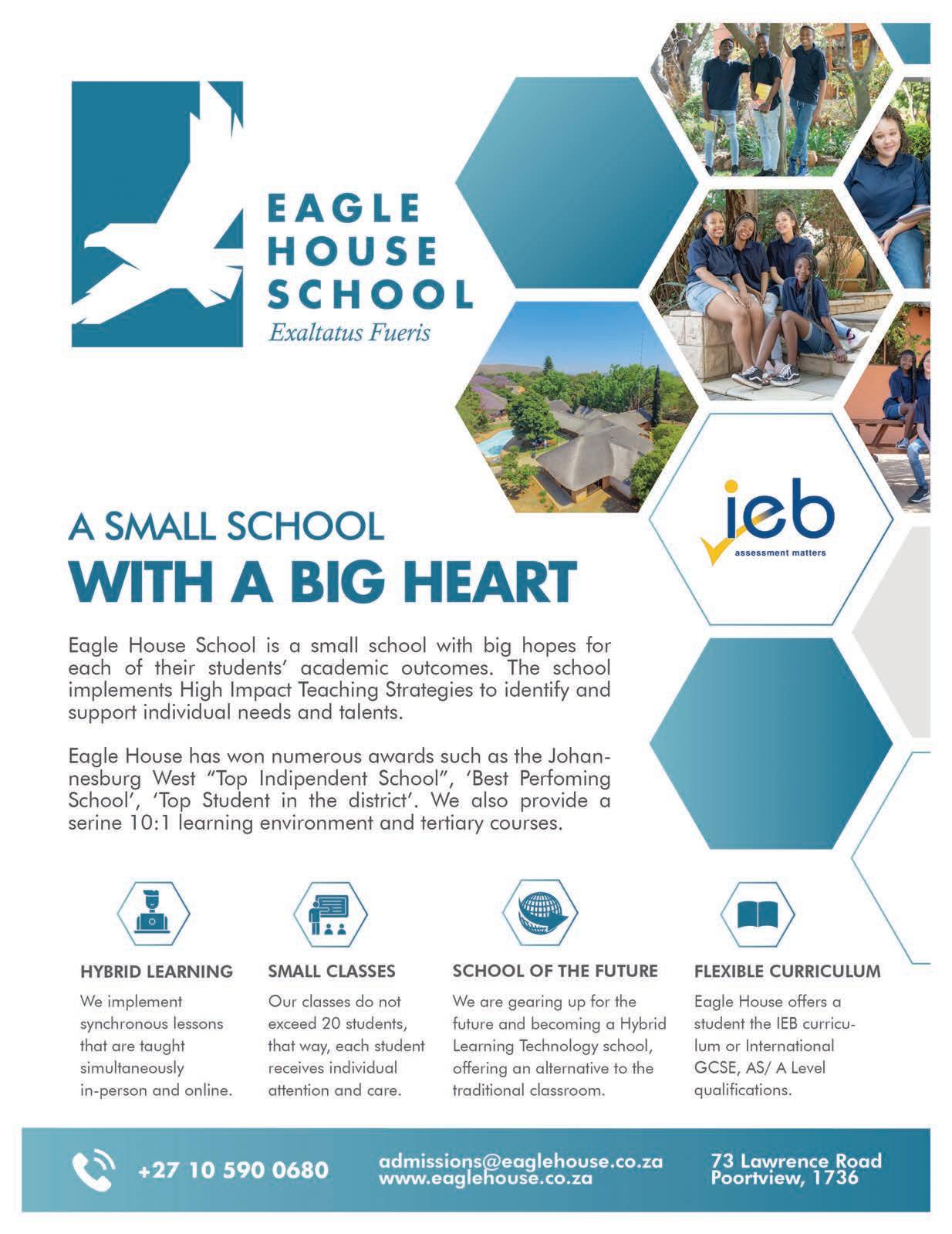
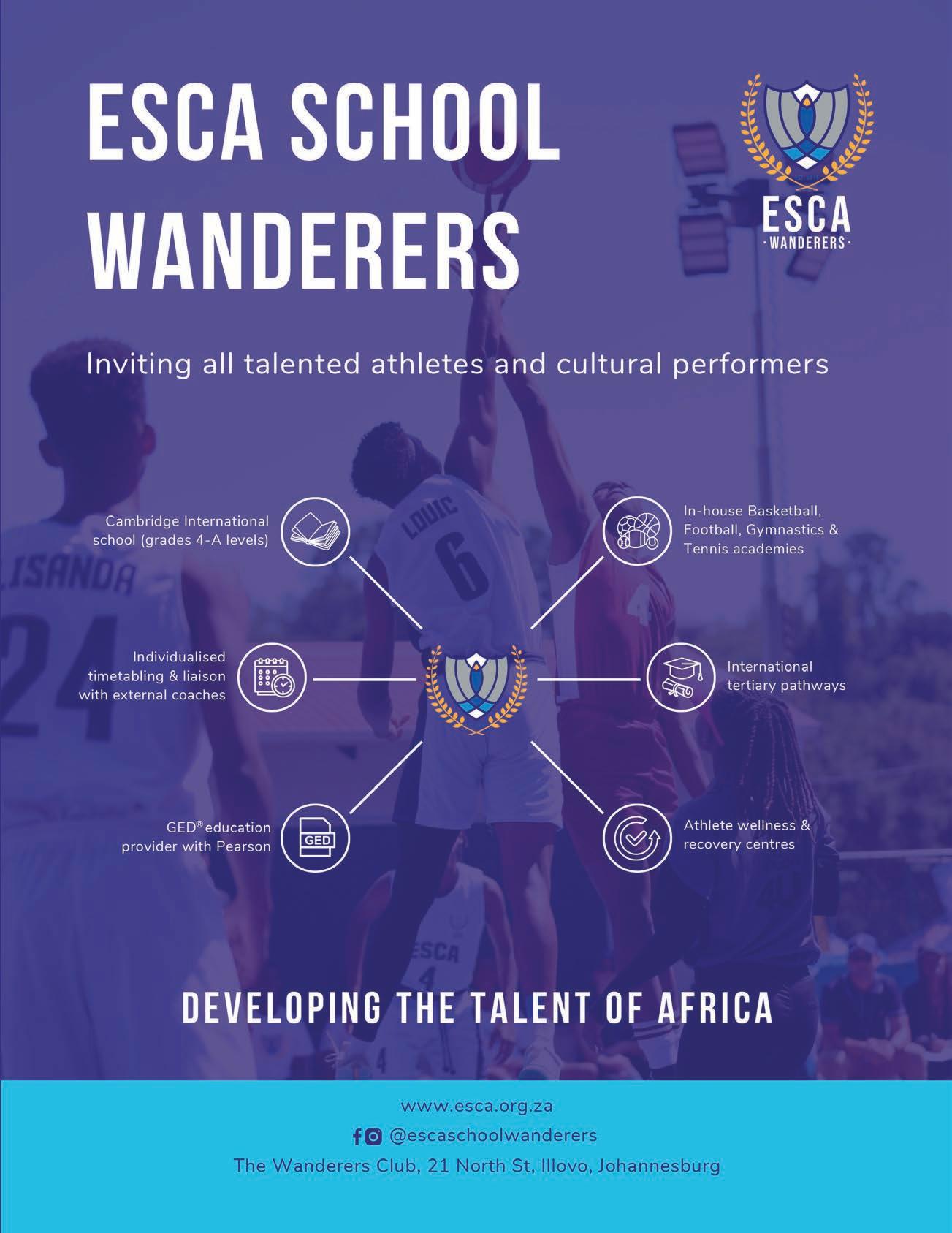
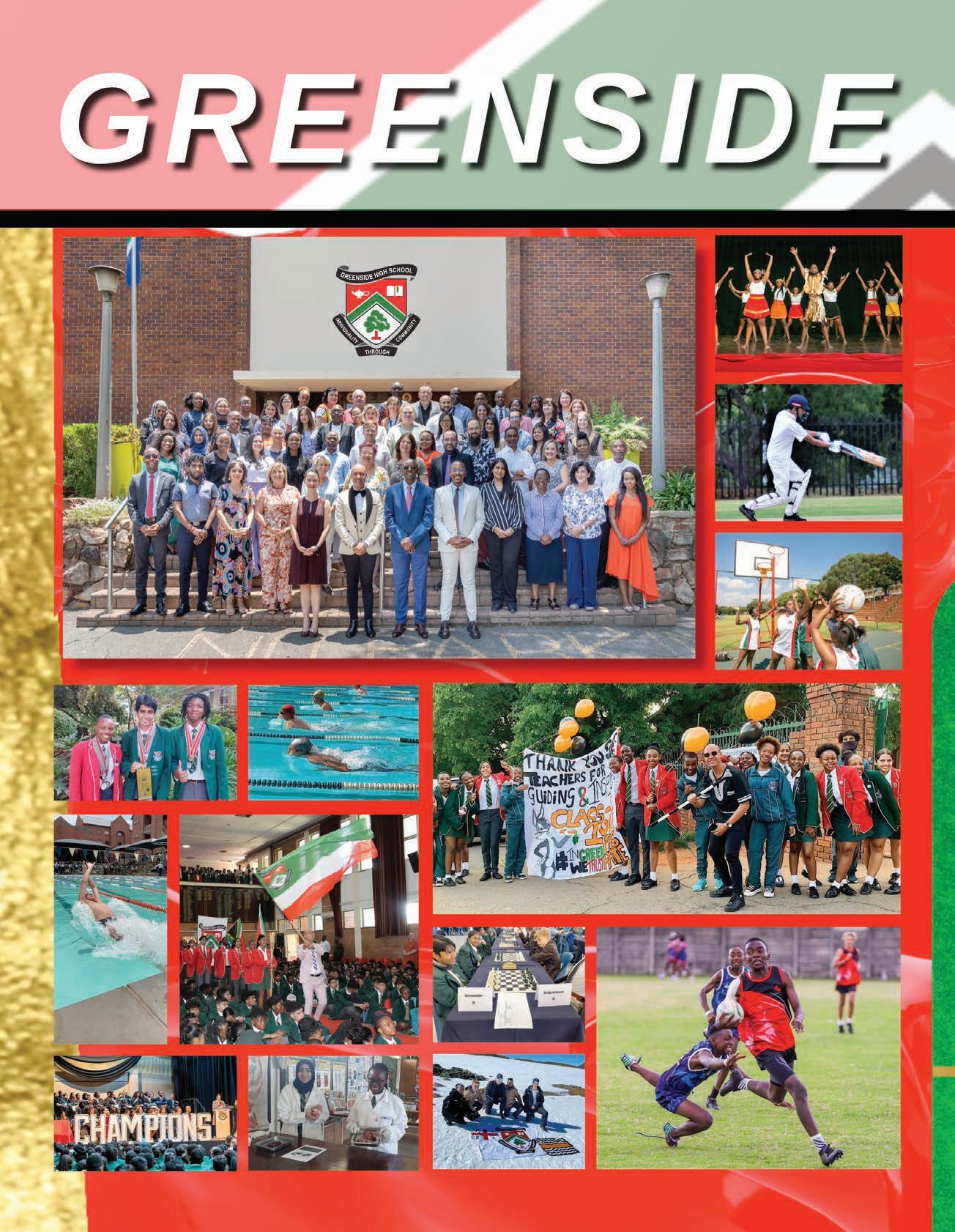
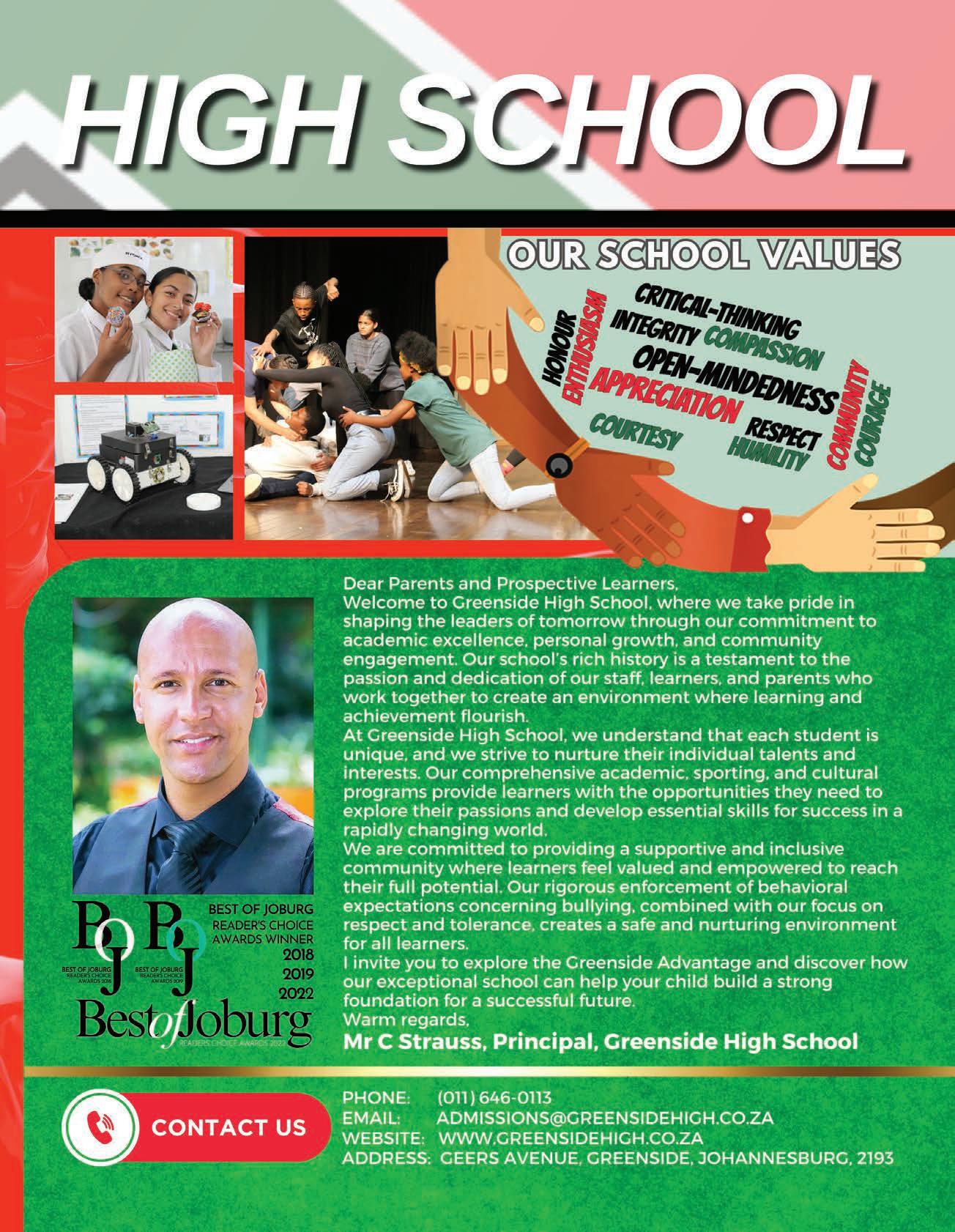


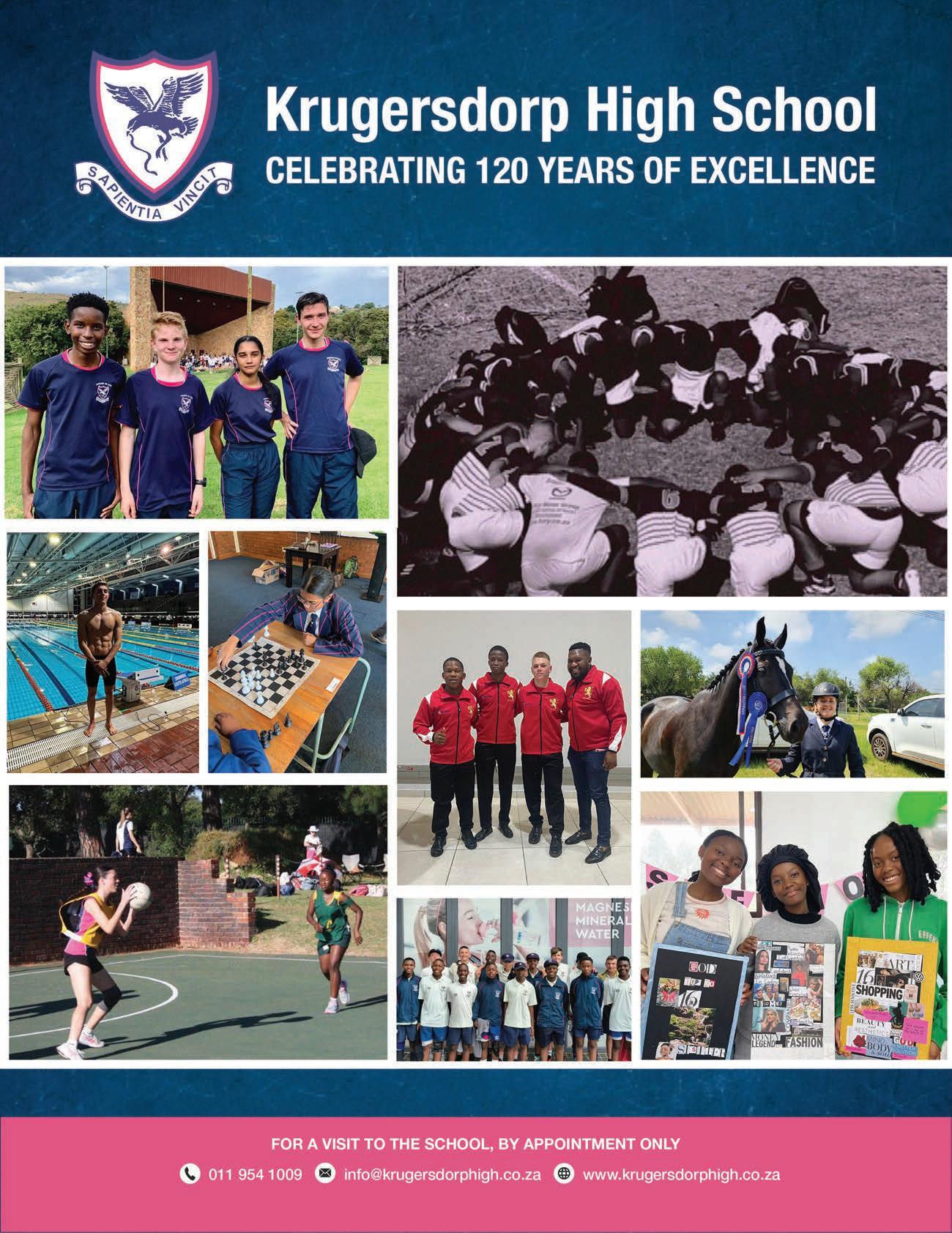
Krugersdorp High School
KRUGERSDORP, GAUTENG GRADES: 8–12
Krugersdorp High School is of the firm belief that a child not only learns in the classroom, but also on field trips, the sports field and the stage.
Through state-of-the-art technology and innovation, Krugersdorp High School ensures that no learner is left behind during the COVID-19 pandemic. The school has been identified as a leader in the government education system with infrastructure and online systems that were introduced in 2020 providing all learners with equal opportunities to continue to learn. The school boasts five laboratories, two computer labs, a wellused media centre and more than fifty classrooms where learning takes place. However, what takes place in the school’s great facilities is what is most important: it is here where we provide the grounding for our learners to flourish and later enter tertiary educational institutions. Over the years, the school has received multiple accolades for excellence within the classroom – the school is known for its mathematics, science, art and economics departments, which constantly produce top achievers from Grade 8 through to Grade 12.
With 17ha of land and pristine sporting facilities, it is no surprise that the school was identified as a Sports Focus School by the Department of Sports and Recreation, Cricket South Africa and the Central Gauteng Lions. The cricket programme

at the school is in its fourth year and has seen phenomenal results in this short space of time. The U/14 Boys’ team is the current winner of the league, and the U/15 Boys’ team are the runners-up.
There is great anticipation as the school enters the Boys School league in 2021. The school offers 17 sporting codes including girls cricket, girls rugby, girls soccer – our diversity is our strength.
Over and above this, the school has learners who continuously make provincial sides in netball, rugby and hockey. For the first time in the school’s history, our 2021 head boy, Tebogo Maseko, has national colours in hockey, and one of the deputy head boys, Darian Pretorius, has achieved national colours in baseball.
As we navigate our way through 2021, we look forward to the new challenges for the school and know that our educators are always prepared to go the extra mile for our learners. We will continue to strive for excellence, whether it is in the classroom, on the stage or on the sports field.
Should you wish to experience KHS’s excellence, families are welcome to set up an appointment to view the school while the educators are in action with their children in the classroom.
The South African Schools Collection 2023 125 ADVERTORIAL
Krugersdorp High School is synonymous with excellence and its greatest vision is to ensure that all learners are provided with an equal opportunity for holistic growth.
A stateof-the-art technology and innovative school

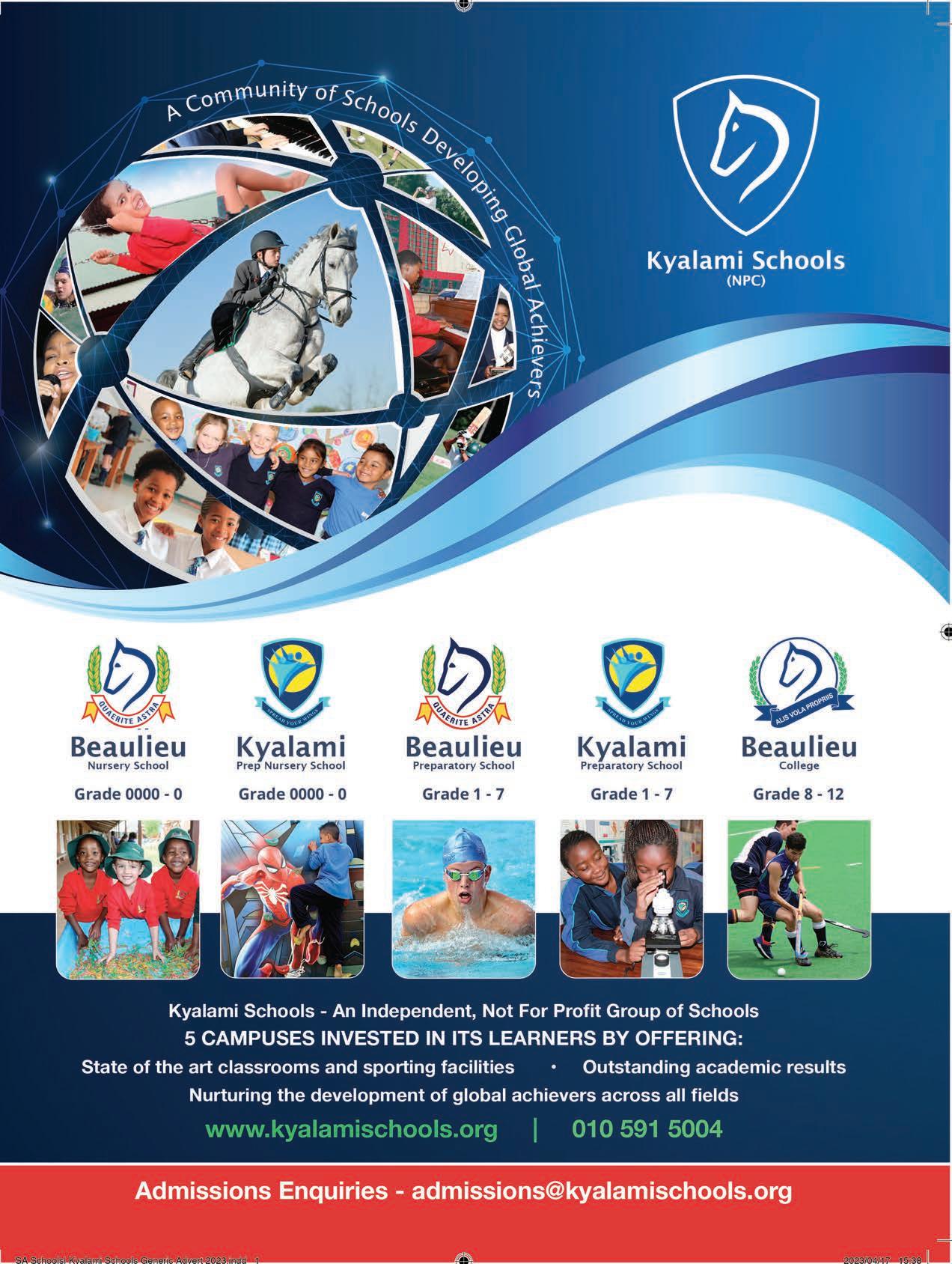

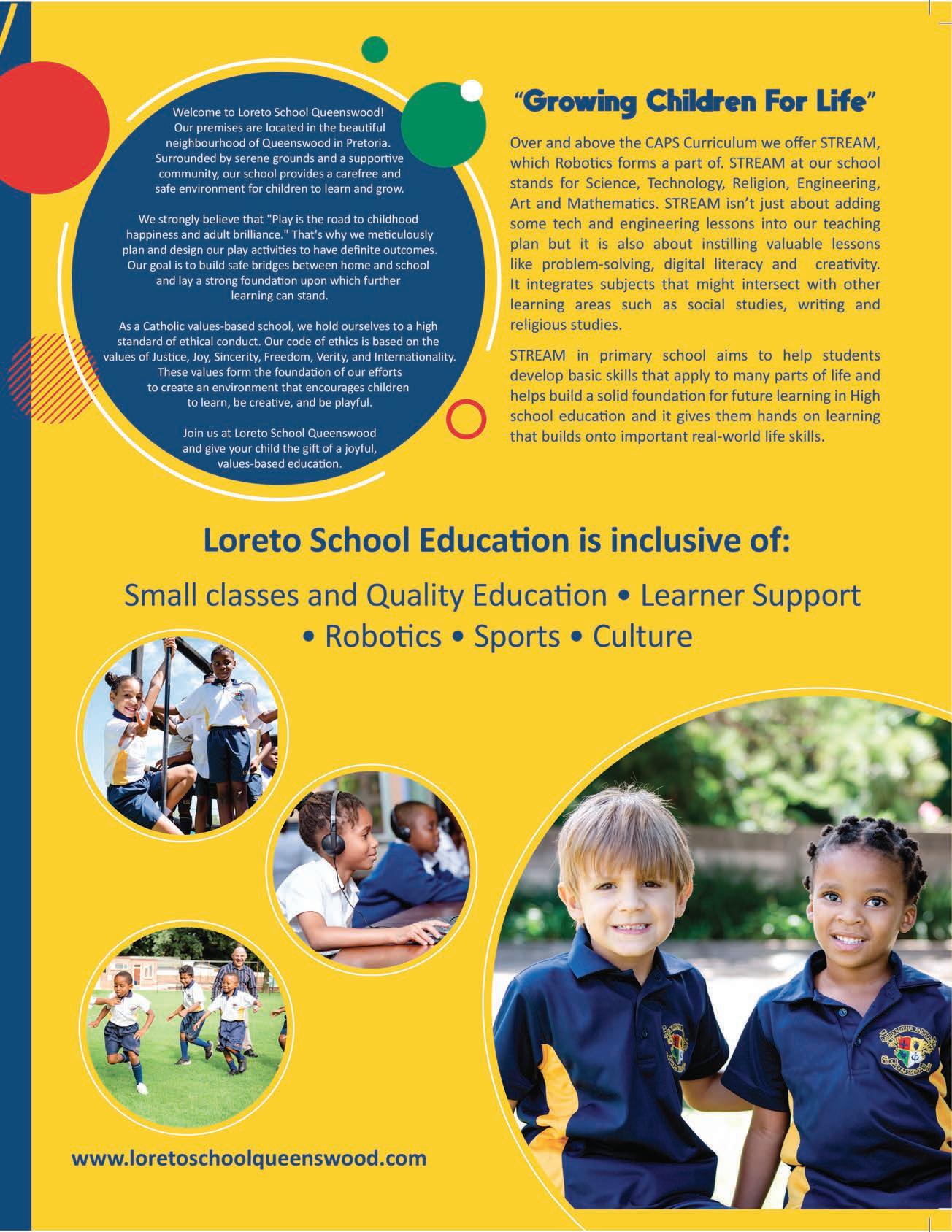
MICHAEL MOUNT WALDORF SCHOOL
BRYANSTON BABY CARE (4 MONTHS) — MATRIC (GRADE 12)
History
Established in 1960, Michael Mount Waldorf School is a mainstream school with the unique and distinctive approach to education that is practised in Waldorf schools worldwide. The aim of Waldorf schooling is to educate the whole child, “head, heart and hands”.
Academic programmes
Baby care (4 months – 2 years): a loving, gentle space run on Waldorf principles caring for babies from 4 months to 2 years. Pre-primary (2 – 6 years): daily activities focus on rhythm, language development through artistic expression, development of social skills, free play, storytelling, cooking and baking, singing, movement games, circle time and painting.
Head of school: Mr William Bester
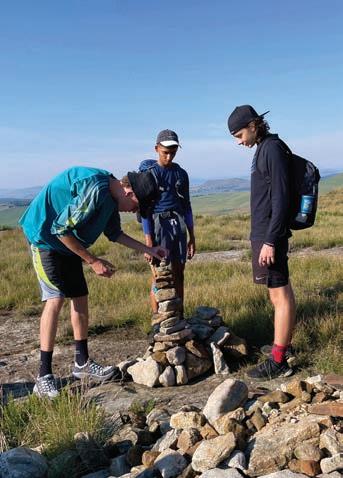
Type of school: Co-educational day school. After care and holiday care available up to age 13
Primary school (Grades 1 – 7): the Waldorf curriculum balances academic subjects with artistic and practical activities and is designed to be responsive to the various phases of a child’s development. The main subjects, such as English, mathematics, history and science, are taught in two-hour main lesson blocks, lasting from three to four weeks. The teacher presents the subject matter and the children make their own individual books including recording and illustrating the lessons, for each subject taught. By creating their own lesson books, Waldorf students come to “own” the information and ideas that they study.
High school (Grades 8 – 12): in combination with Waldorf main lessons, students work through the National Senior Certificate (NSC) curriculum and write the Independent Examination Board (IEB) matric
Number of learners: 500
Average class size: 25
exam in Grade 12. Academic subjects are complemented by a programme of arts, crafts, drama and music.
Teacher qualifications: our teachers are required to have a relevant degree in addition to a two-year Waldorf education certificate. They undergo mandatory biennial appraisals and enjoy many training opportunities.
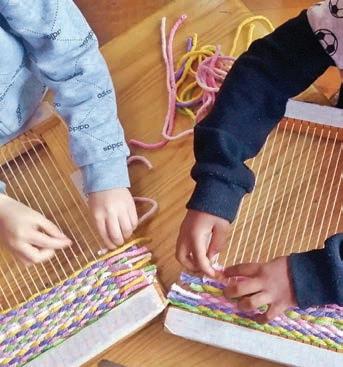

Note: Michael Mount matriculants have achieved a 100% IEB pass rate since the high school’s inception in 1987.
Sport and extracurricular activities
Sports include: Athletics, basketball, cricket, volleyball, soccer, swimming and tennis. Cultural activities include: Art, drama, and music
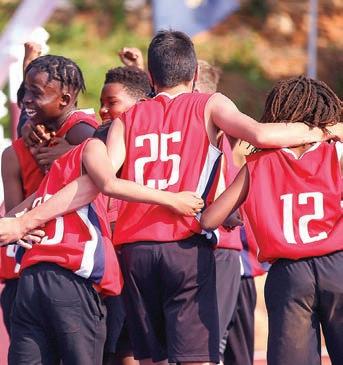
Entry requirements: Attendance at an introductory talk held once a month on a Saturday; entrance assessment; teacherpupil interview
Fees per year (four terms): Four months to four years: R74 559
Ages four to six: R81 556
Grades 1 – 6: R87 746 – R105 613
Grades 7 – 12: R119 857 – R133 401
WC 130 The South African Schools Collection 2023 G
Tel: 011 706 6125 | waldorf@michaelmount.co.za | www.michaelmount.co.za | 40 Culross Road, Bryanston 2021

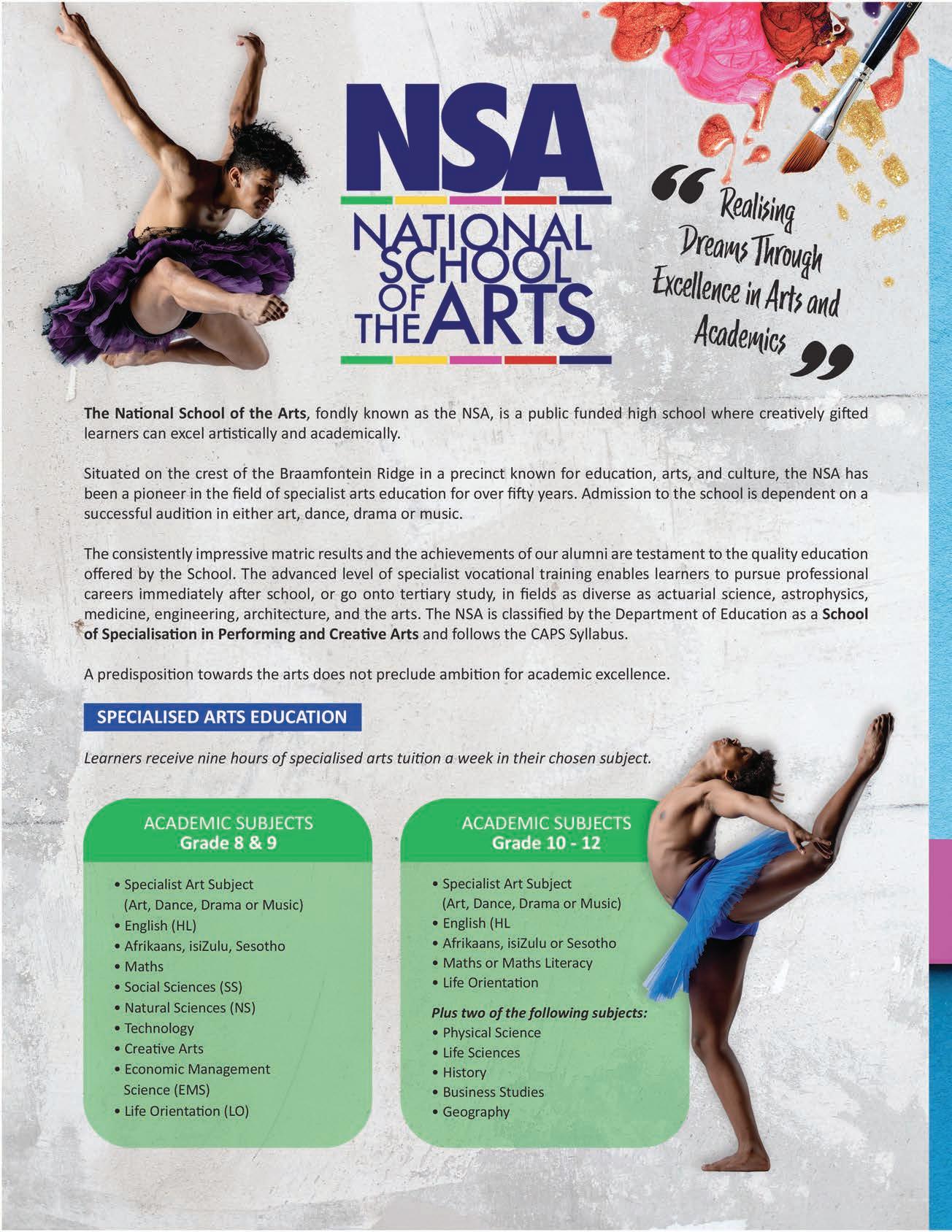
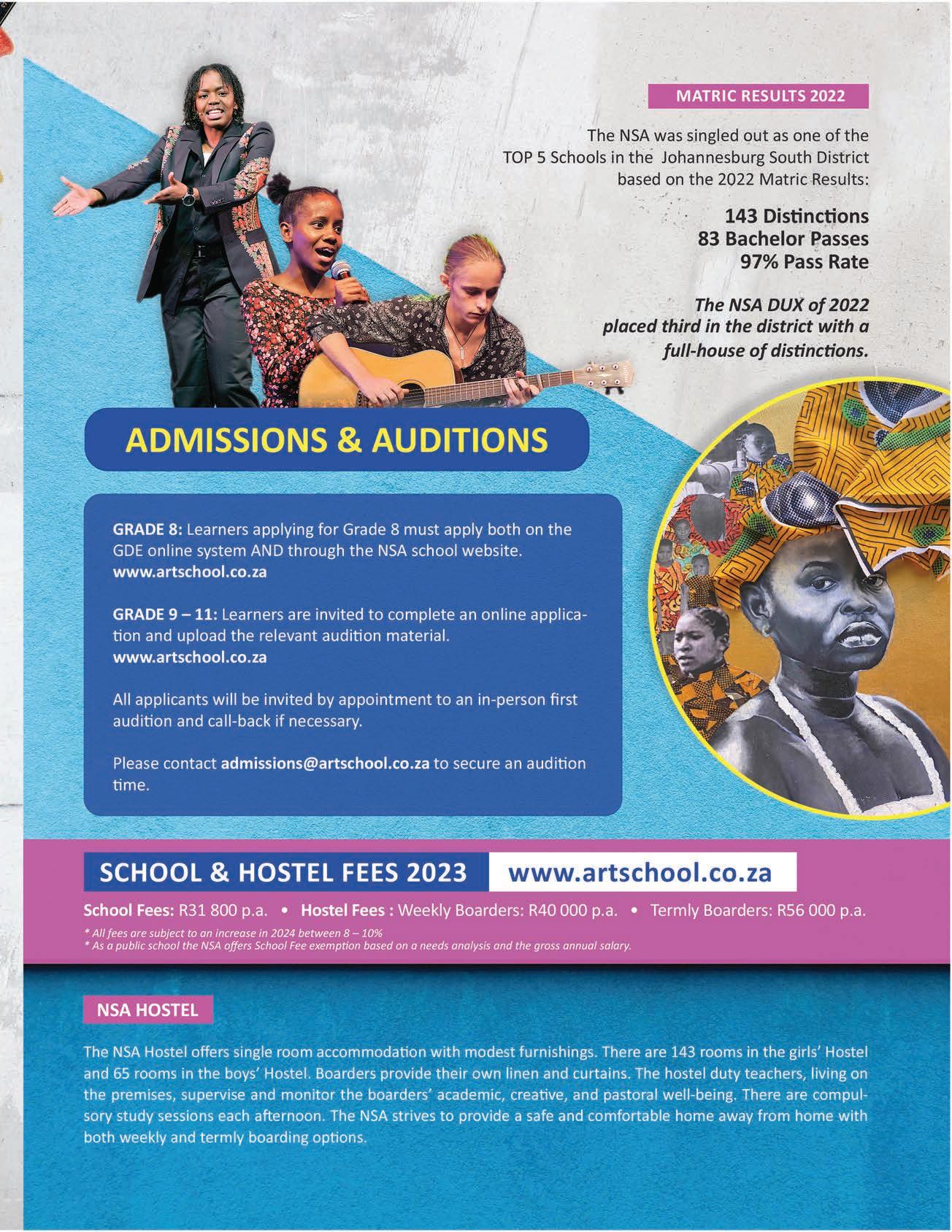
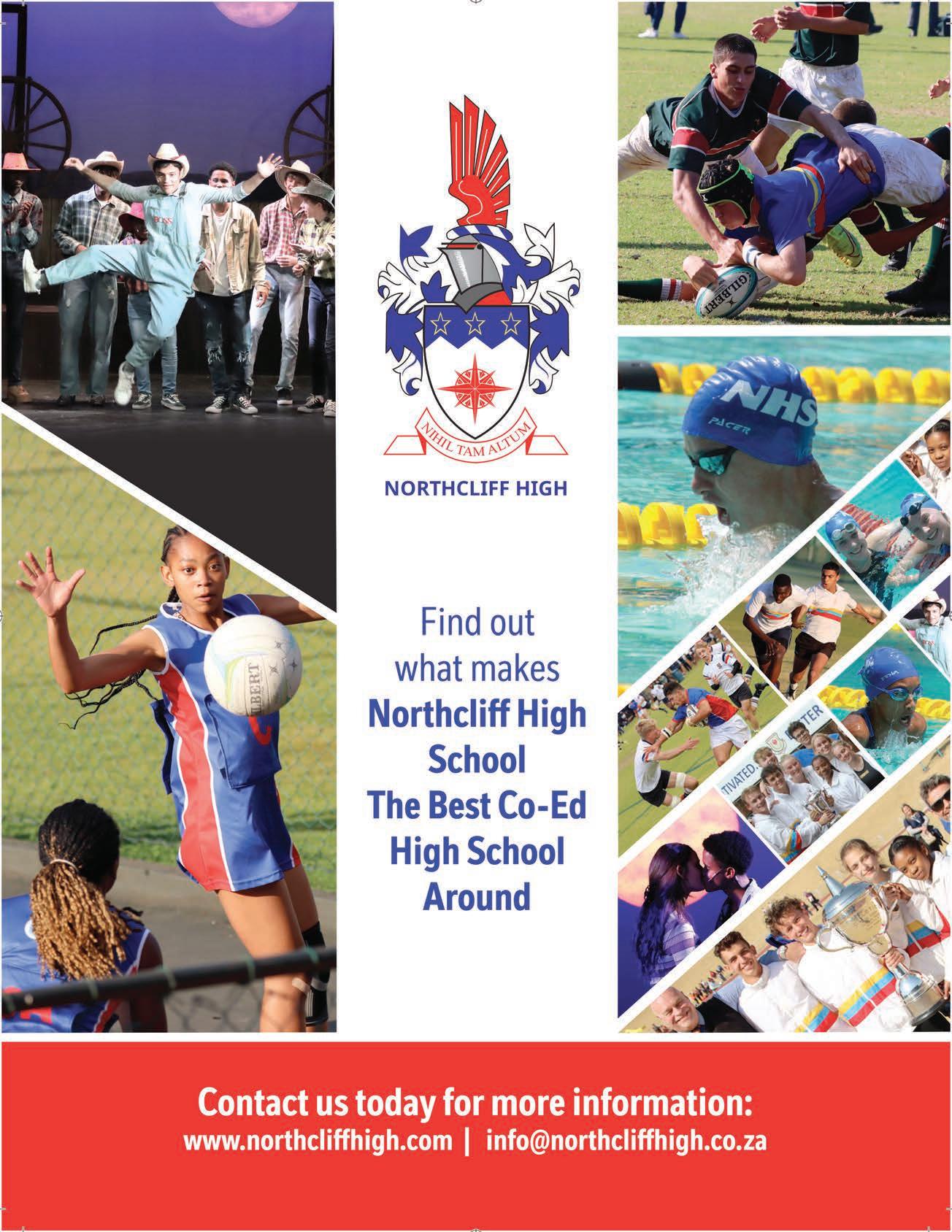
ORBAN SCHOOL
JOHANNESBURG BABY–GRADE 7
At Orban School, we learn through play. We foster and encourage imagination. The natural beauty surrounding our school — nestled in the Melville Koppies — creates an optimum learning environment.

From four-months-old
Orban is a private dual medium school for Afrikaans and English learners from the age of four-months to Grade 7.

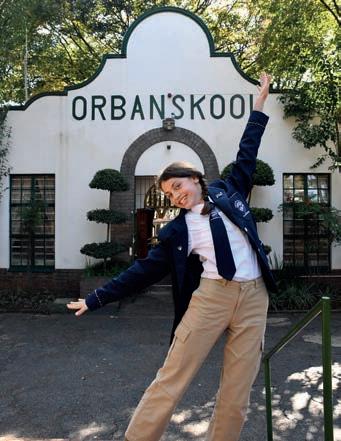
Solid value system
We offer Christian-based education with three key values: compassion, respect and honesty.
High quality education
Our highly qualified and dedicated staff focus on healthy emotional development for
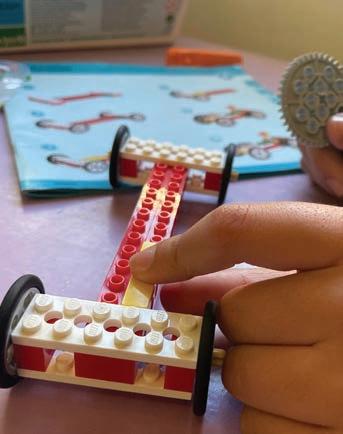
Head of school: Mrs Liz van Tonder
our learners to flourish academically. Orban believes in holistic balance with academic excellence enhanced by the character-forming influence of arts and culture. Learners benefit greatly from specialised education in drama, arts, isiZulu, physical training and STEAM as part of the school’s weekly curriculum.
Visual and performing arts
True education is not merely about knowledge, but also about awakening your child’s awareness. Orban is proud of its national Eisteddfod Academy award for Best Overall School in the Johannesburg region for twelve consecutive years (2010–2021). Orban School was awarded the second place for Best Overall Achievement nationwide in 2022.
Number of learners: 400 average
class size: 20
Small focused classes
Classes have no more than 20 learners ensuring individual attention and the best possible support.
Sport and aftercare
Sports options include athletics, cricket, soccer, hockey, netball, cross-country and tennis. A full-day aftercare facility and holiday programme offers a nurturing home-from-home environment.
Diverse culture — inclusive approach
At Orban, your child’s personal identity is shaped within the broader context of the South African culture. The cosmopolitan nature of the school, with its diverse cultural groups, promotes compassion and true friendships across cultural and religious borders.
WC 135 The South African Schools Collection 2023 G
Average
Entry
Type of school: Independent, co-educational, dual-medium Placement evaluation Fees per year: R36 000 – R75 600 Tel: 011 726 6036/7 | Fax: 086 696 5145 | n@orban.co.za | www.orban.co.za | Winchester Street, Westdene 2092
requirements:
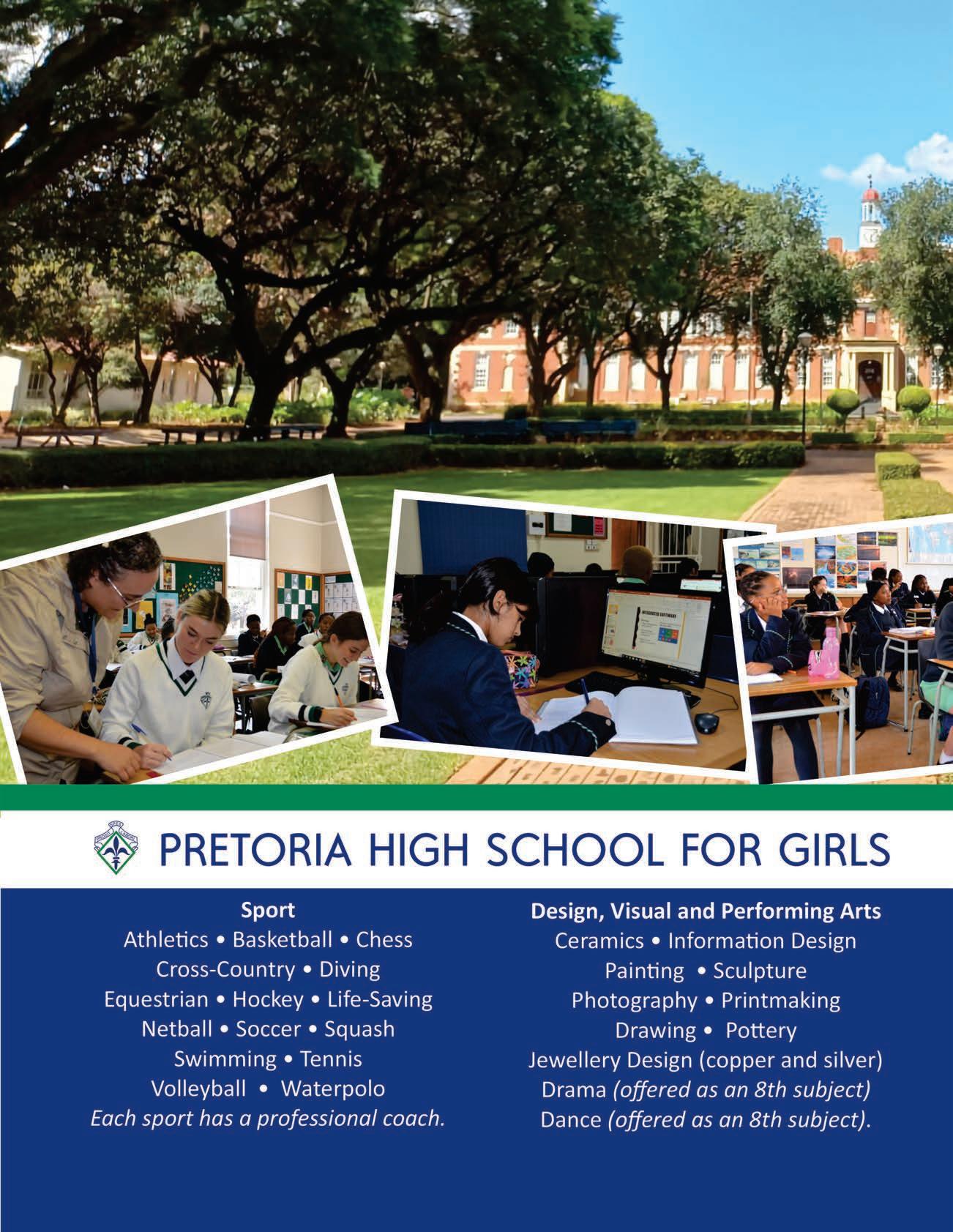

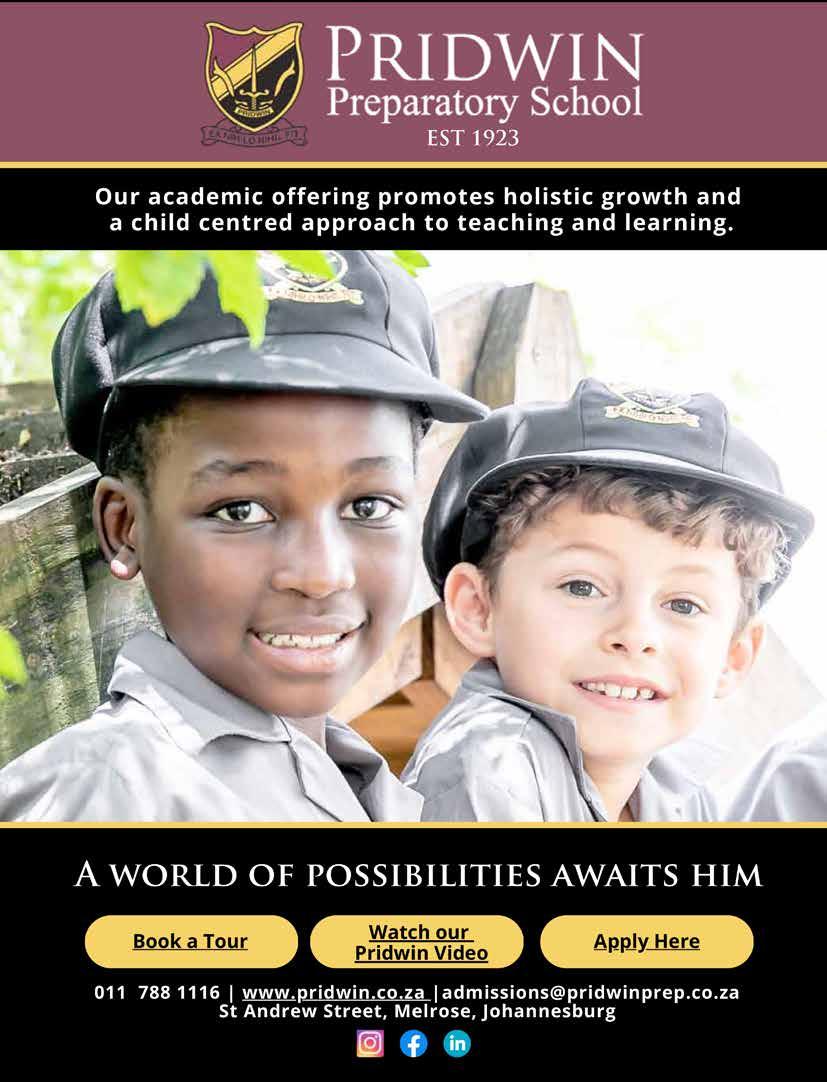
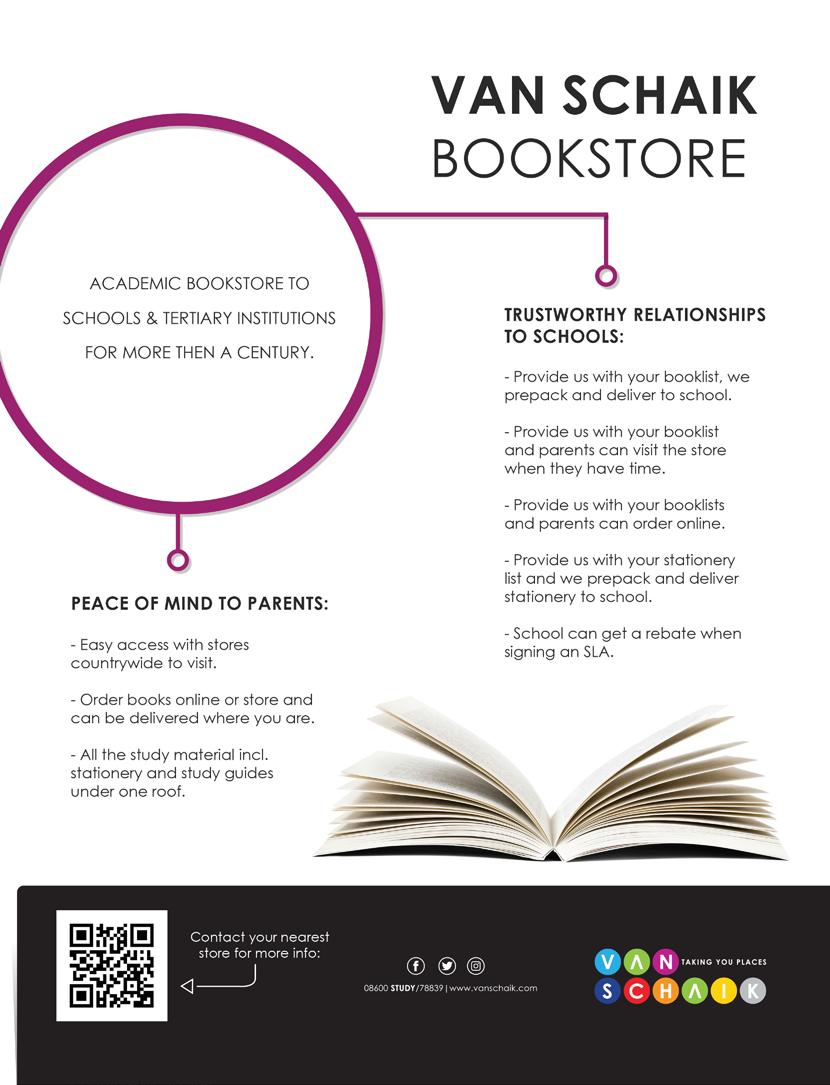

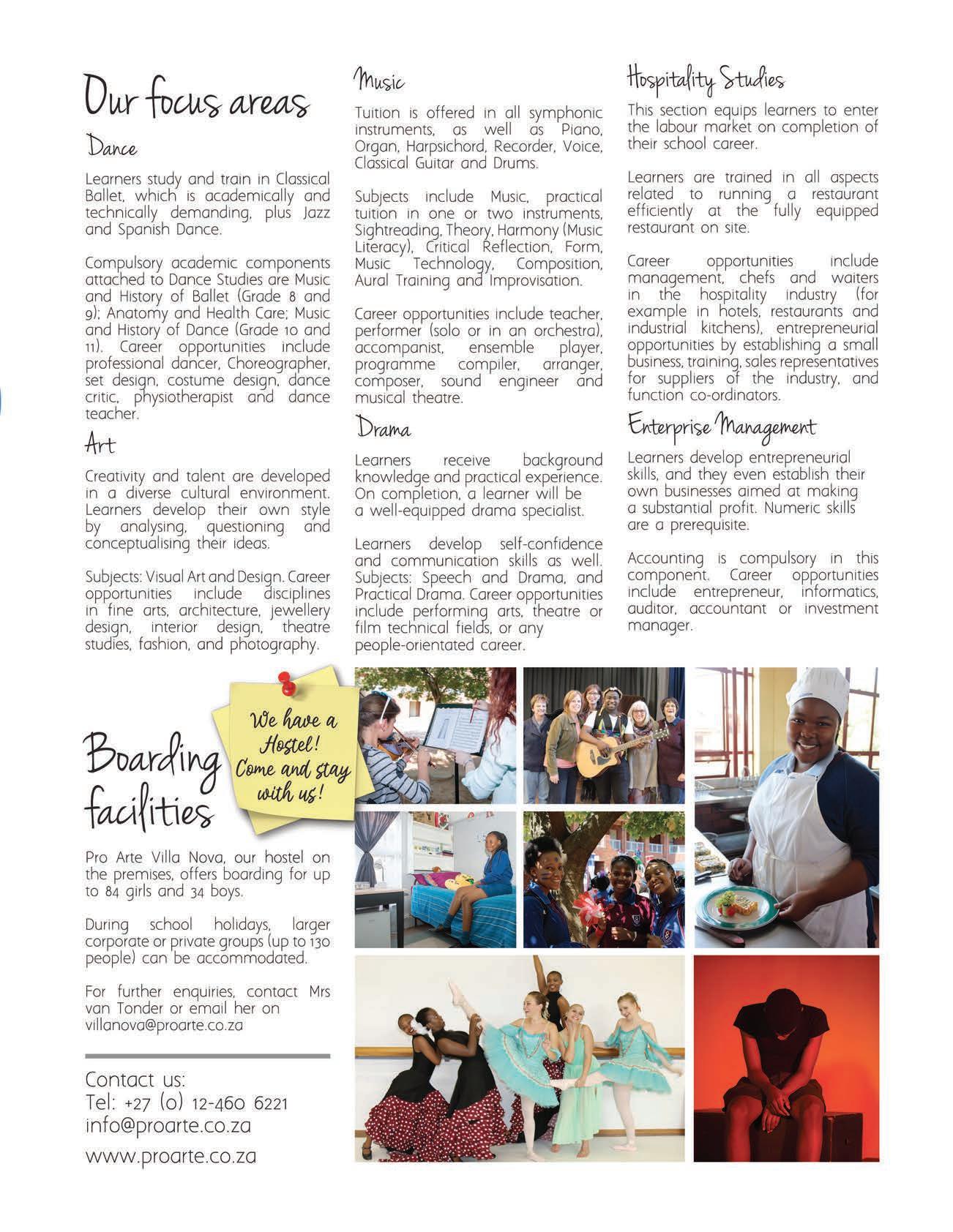
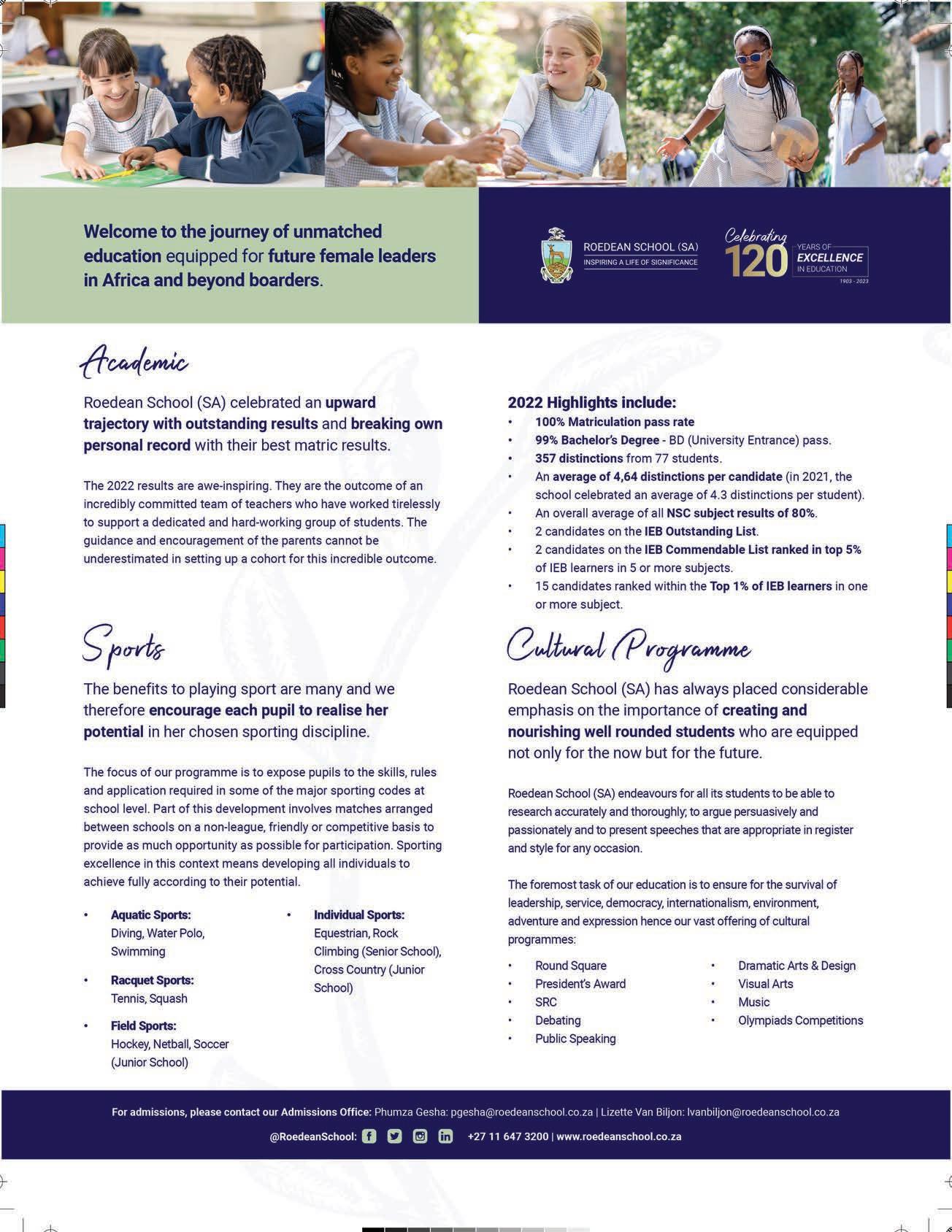
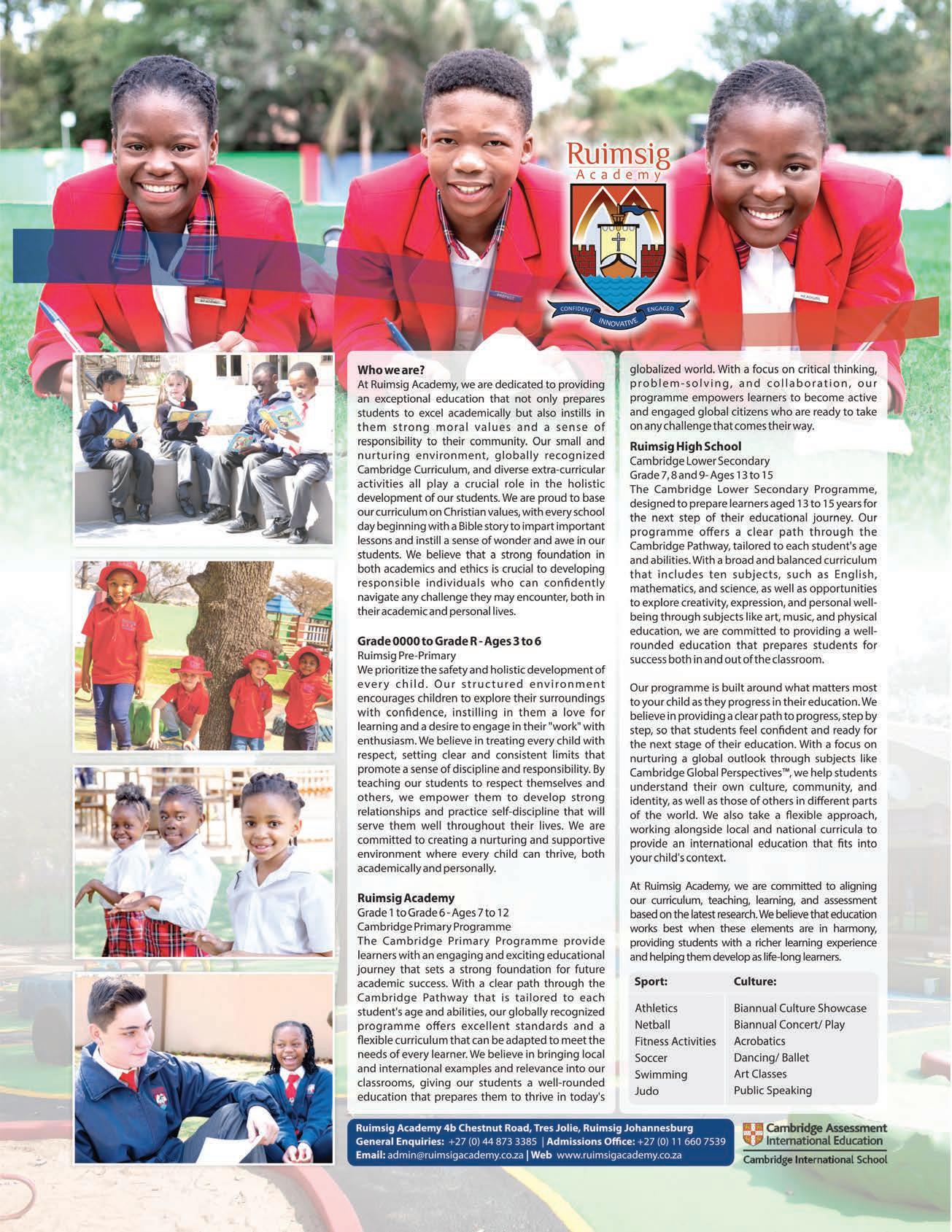

SCHOOL OF MERIT PRIVATE SCHOOL
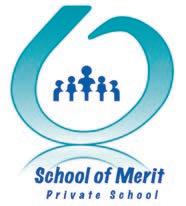
EDENVALE GRADES 0 – 12
Mission statement
School of Merit Private School provides a stimulating environment that allows ourlearners to dream, to believe and to achieve their end goals.

Vision statement
School of Merit Private School is a unique, nondenominational, non-discriminatory and independent school that provides a stimulating learning environment of a high standard and an exceptional work ethic. Learners are enabled and supported to realise their potential as well-balanced, compassionate and independent individuals with a social conscience and a sense of justice.
Solution-focused philosophy
The School of Merit believes that the school is a supportive centre, where the teachers believe that the children have the strength to overcome any ‘challenges’. We strongly believe that learning is a collaborative process, and all teachers and learners participate actively. We believe that there are two experts in the classroom – the child and the teacher –and together we strive towards change. It is our belief that a problem can be turned into a solution, so that all children can participate positively in society.
Holistic education
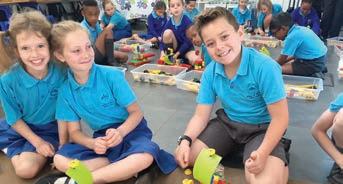
Over the years, the school has continued to grow and we now host 260 children from Grade 0 – 12. The school operates as a co-educational day school. It is divided into the Foundation, Intermediate, Senior
and Further Education and Training (FET) phases. There is one class per grade, ensuring individual attention. The school writes the Independent Examinations Board (IEB) Matric examinations.

Support facilities
One of the unique aspects of the school is the inclusivity that we offer. This translates into the flexibility and adaptability of the professional team to accommodate learners who are unique. We offer on-campus remedial, psychological, occupational and speech therapy support.
Discipline
We discipline through choices and encourage adherence to boundaries; we value respect for others and for oneself. We
try to bolster and build self-esteem, self-discipline, independence, and the ability to take responsibility. We strongly believe in continuous communication between home and school.
Computer facilities
We offer computer studies as a compulsory subject to all children – we follow the Knowledge Network Syllabus, which means all courses and modules are externally evaluated and graded accordingly. A certificate is awarded at each level. Our high school is a mobile learning centre where all classrooms have access to Wi-Fi.
Young Engineers
The Young Engineers program has been offered in more than 30 countries and more recently South Africa. Young Engineers provides Educational programs with Theoretrical training and Practical implementation in STEM basics (Science, Technology, Engineering and Mathematics) to learners using motorised Lego and Kinex (GrR) bricks. It is a vital introduction into basic engineering, science, coding and robotics principles that we have incorporate into the school day in the foundation phase.
Conclusion
T hrough the years, we have grown from a single class to a fully-fledged primary and high school, accommodating learners with a variety of needs. The cohesive quality of education developed in such a relatively short time reflects the dedication and professionalism of our staff and management.
per year: Grades 0 – 12: R81 000 (2023 average)
WC 143 G The South African Schools Collection 2023
Tel: 011 454 2083 | school@schoolofmerit.co.za | www.schoolofmerit.co.za | 5 Seventh Avenue, Edenvale, 1610
Type of
Number of learners: 200 pupils Average class size: 20 Entry requirements: Age-appropriate for the grade and base-line assessment
Head of school: Ms Merritt Watson
school: Co-educational, private day school
Fees



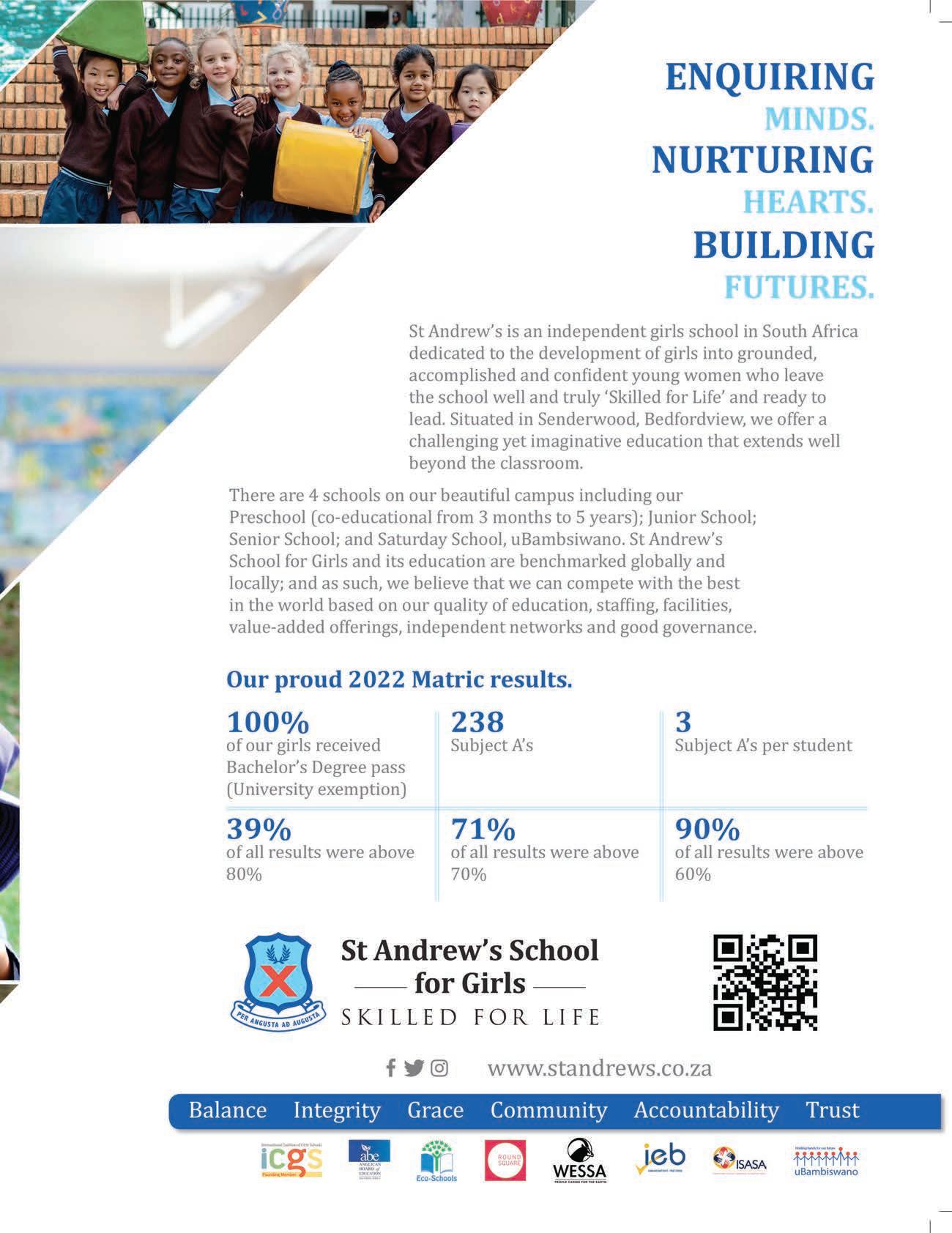
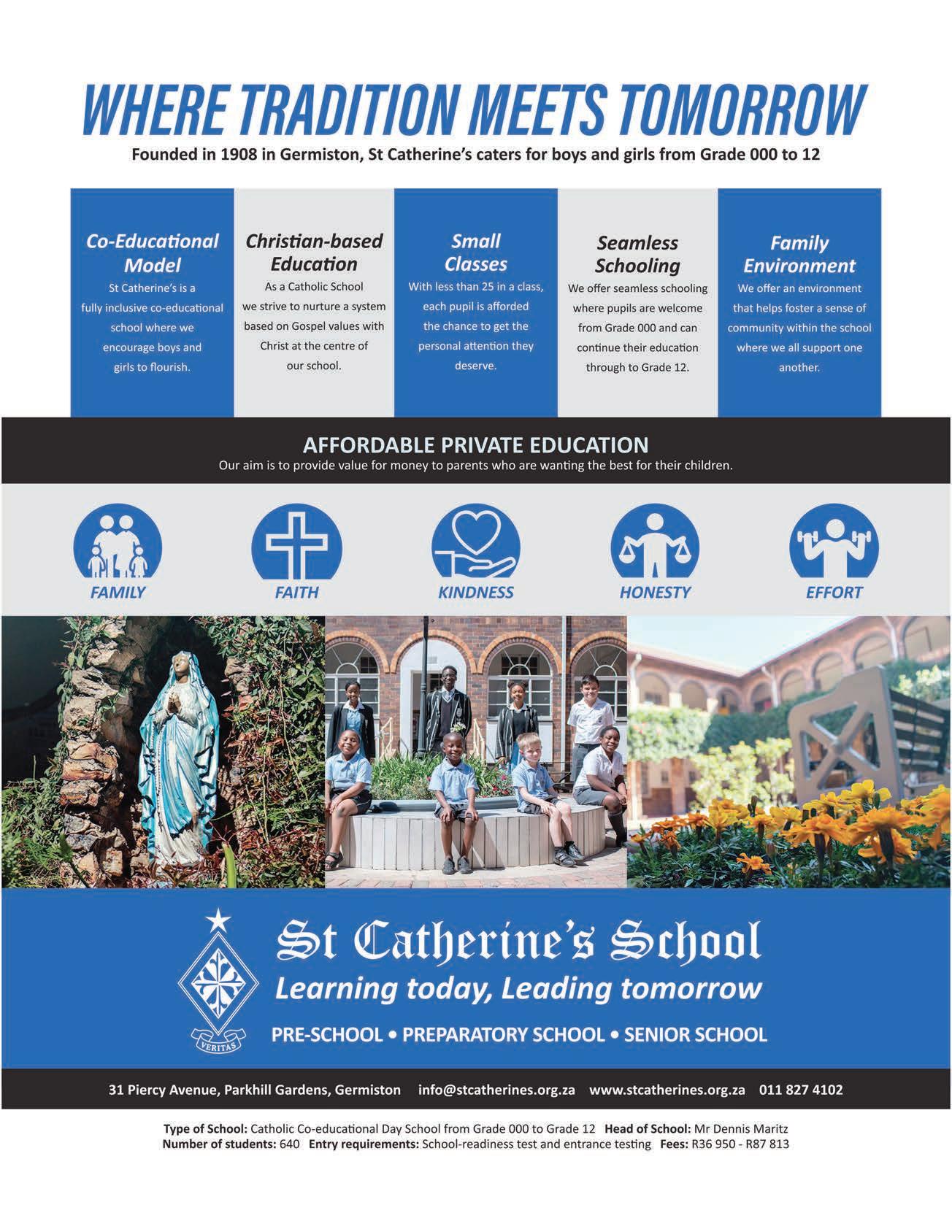

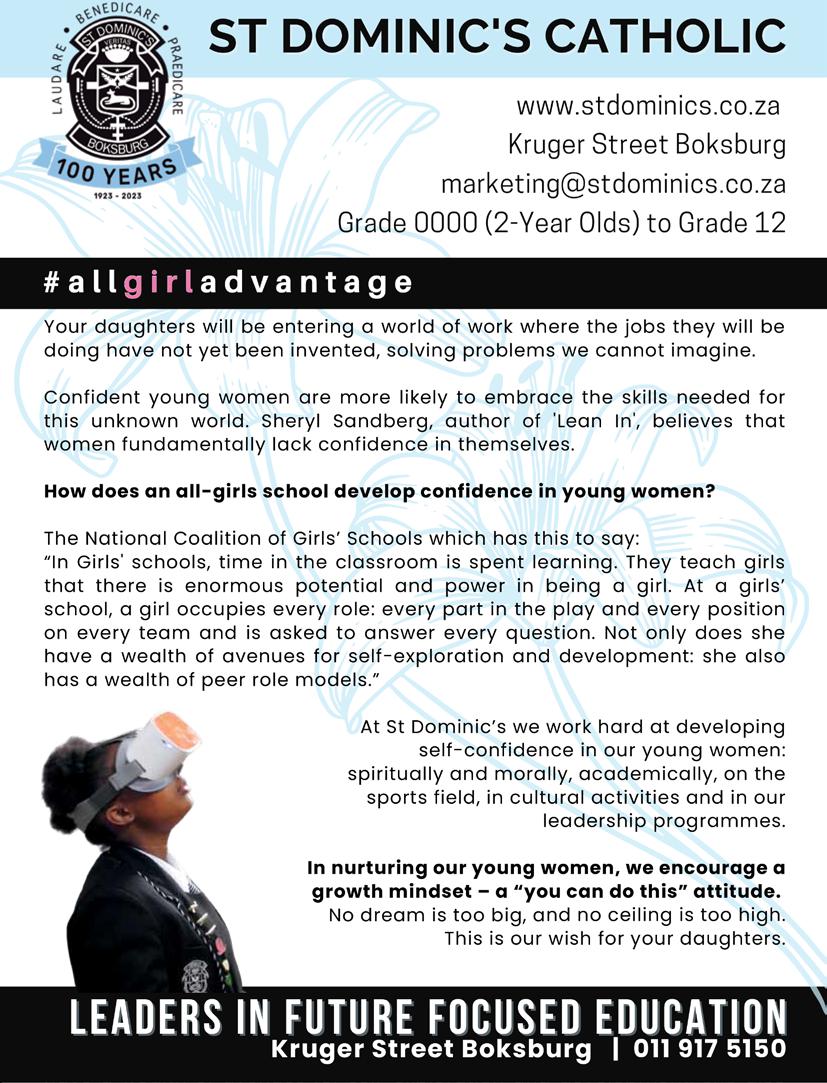
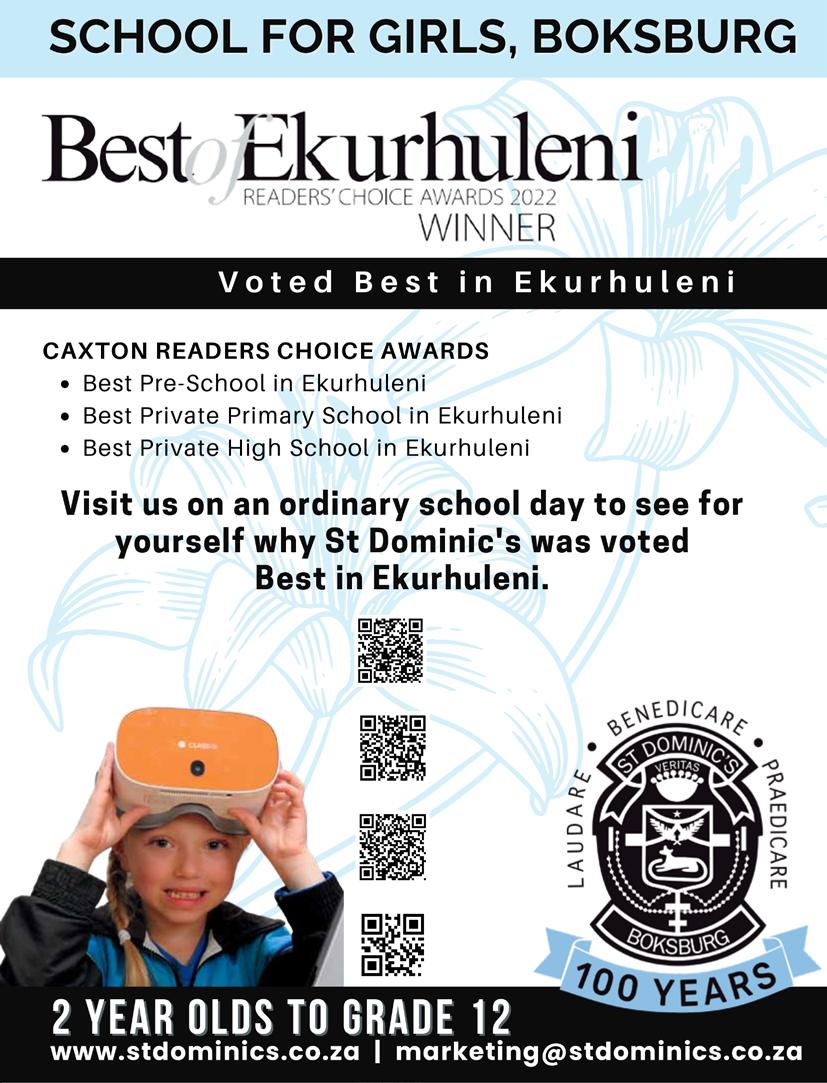
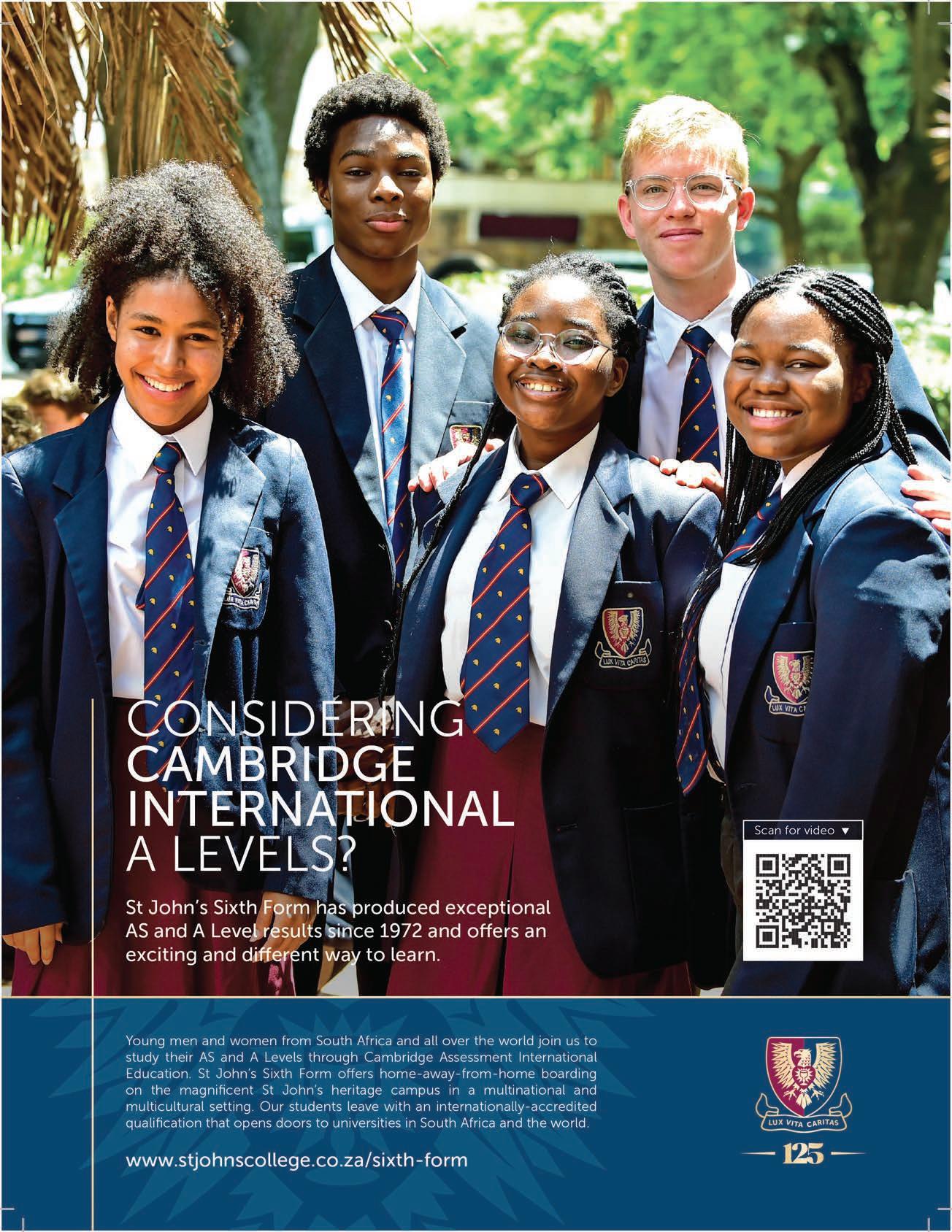
St John’s Sixth Form
HOUGHTON, JOHANNESBURG CAMBRIDGE AS AND A LEVELS
An educational opportunity to open doors internationally
Are you considering Cambridge International AS and A Levels? Or an accelerated post-matric A Level qualification? If so, St John’s Sixth Form is for you
St John’s Sixth Form has produced exceptional AS and A Levels results since 1972.
Situated on the magnificent St John’s College heritage campus in Houghton, Johannesburg, Sixth Form is a coeducational environment offering an exciting and different way to learn.
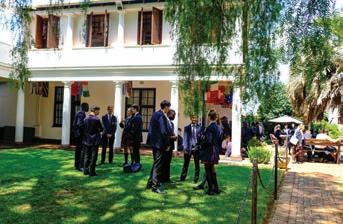

Young men and women from all over the world join St John’s Sixth Form to study their AS and A Levels through Cambridge Assessment International Education, leaving with an internationally accredited qualification that opens doors worldwide.
St John’s Sixth Form is recognised as the top academic Sixth Form in South Africa. It offers an educational environment that fosters independent thought and study styles and prepares our students for the challenges of university. Students are encouraged to develop time management and organisational skills in an environment where each individual is known and valued for their strengths.
The Sixth Form approach is based on respect for the individual and their contribution. In this multinational and multicultural setting, our students develop their academic and personal potential in a challenging yet sociable context.
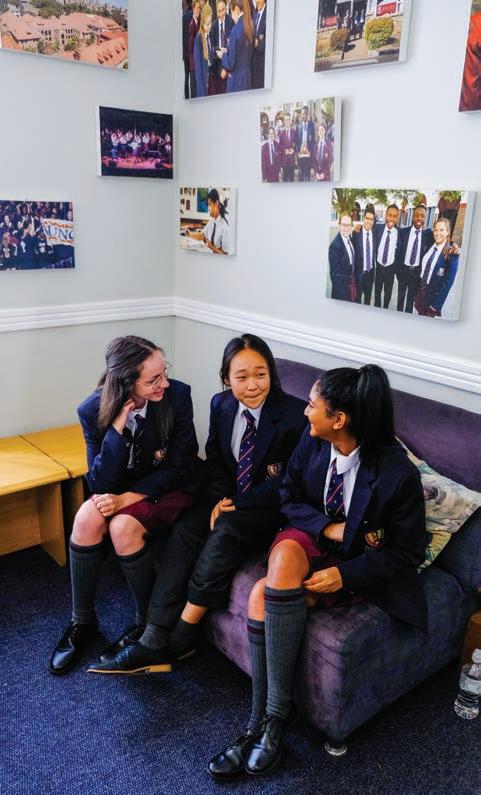
Sixth Form broadens and deepens the academic perspectives of students who are allowed to focus on three subjects of their choice in preparation for their A Level exams, written in November.
Cambridge A Levels are a passport to any university for students wanting to
study overseas as they are internationally recognised. For students wanting to study in South Africa, the Sixth Form year brings a university approach and maturity to their work, greatly benefitting their tertiary education.
Sixth Form boarding is very much a home-from-home experience. The young men and women are accommodated in single-sex houses managed by a houseparent, assistant houseparent and resident tutors. All boarding staff are residents of the boarding houses, and the boarders have easy access to them for assistance.
The St John’s College campus offers world-class facilities and excellent 24-hour security and is just a short drive from OR Tambo International Airport.
The South African rand offers a competitive affordability option for families who may be considering a Cambridge International A Level education abroad.
Whether you’re looking for an A Level education or considering an A Level post-matric qualification, St John’s offers a Sixth Form programme that broadens and deepens students’ academic and intellectual perspectives.

The South African Schools Collection 2023 153
ADVERTORIAL
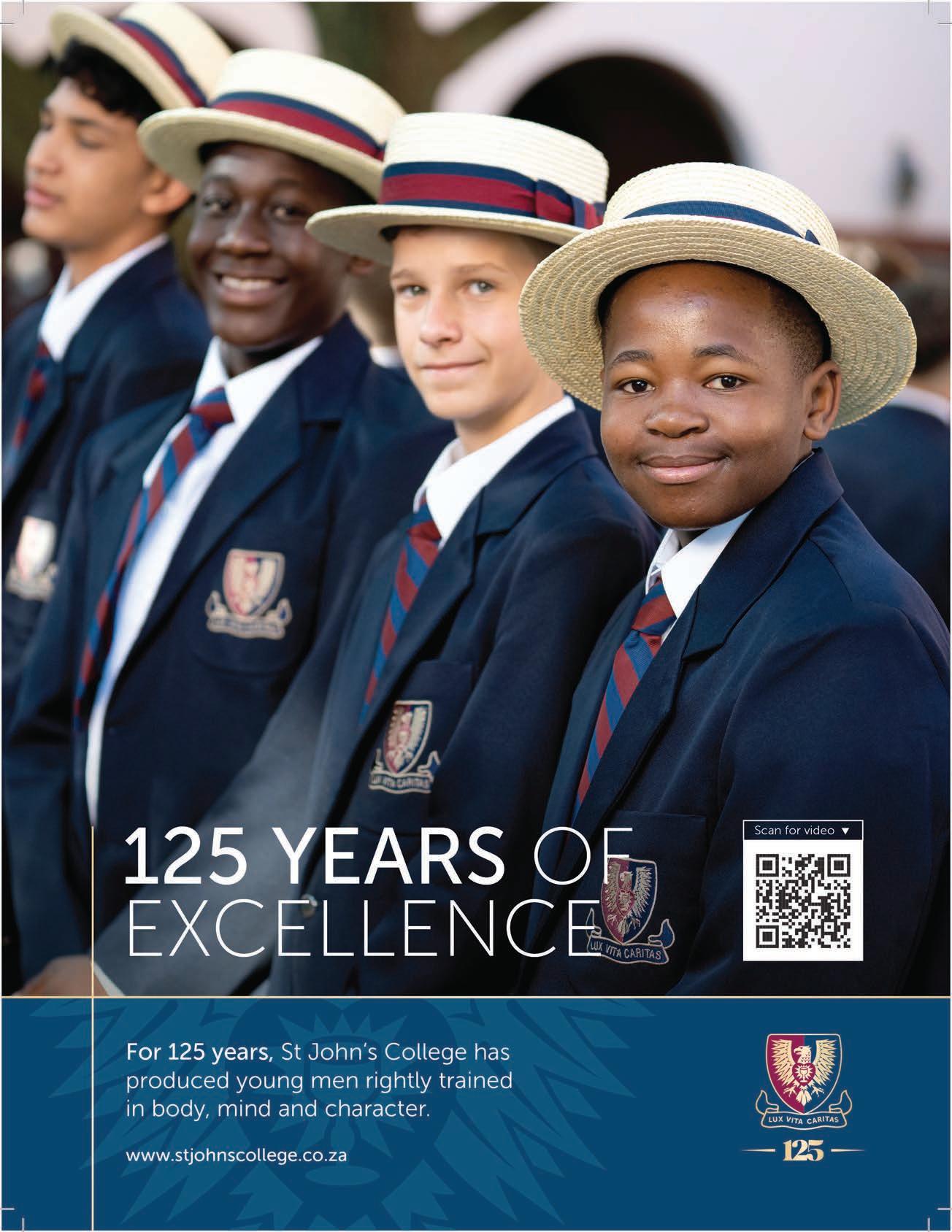
St John’s College
HOUGHTON, JOHANNESBURG GRADES: 8–12
As St John’s celebrates 125 years of excellence, it remains one of South Africa’s pre-eminent schools with a reputation extending beyond South Africa’s borders. Boys are accepted from Grades 0 to 12 into the Pre-Preparatory, Preparatory and College, with girls in St John’s Bridge Nursery and St John’s Sixth Form.
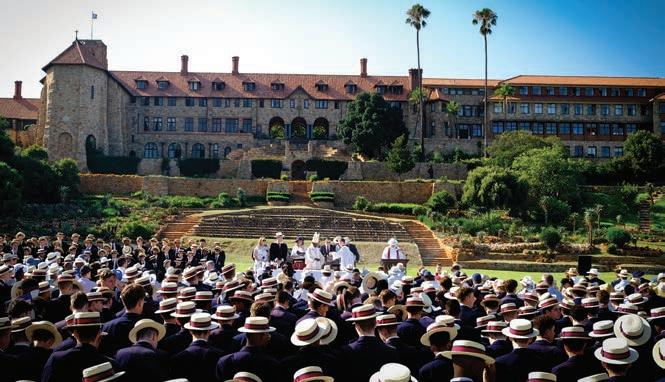

Our students are nurtured to be young individuals of courage who know the difference between right and wrong. For the past 125 years, St John’s College has produced young men right trained in body, mind and character who are well-equipped to lead tomorrow’s world.
A growth mindset is fostered and strives to develop students accustomed to thinking outside the box. Academic excellence and involvement in a variety of extramural activities ensure an all-round and creative approach to education. Each student is encouraged to excel through meaningful and unique experiences.
St John’s follows the National Senior Certificate curriculum, examined by the Independent Examination Board. We are proud of our 125 years of academic excellence in all subjects. Our students also participate in further study subjects.
The college comprises eight houses, four offering boarding, each with a vertical tutor system to support the students. The boys also have access to a full-time educational psychologist and school counsellor. In recent years, the academic support centre’s role has become more influential in the life of the school and co-ordinates the appropriate academic support for all students.
St John’s believes that students should be exposed to as many varied activities as possible, and they are challenged to expand and grow by a demanding, professional and encouraging staff that stretch each student to reach their full potential.
Dramatic arts is an attractive subject for many, despite its academic rigour

Nurturing young minds to excel and lead
and demands on the student’s time, a consequence of the subject’s undeniable benefits as it encourages students to engage with the ‘softer skills’ of the 21stcentury workplace.
Music forms part of life at St John’s, either as part of the general arts curriculum, a formal academic subject, or an extramural activity with individual lessons and participation in a host of ensembles.
The visual arts department offers a multidisciplinary environment where students can explore their creativity, expand their intellectual boundaries and develop critical thinking.
St John’s College offers expert coaching in all major sporting codes with technical and tactical sports performance analysis.
Excellent home-from-home weekly or termly boarding facilities are available from Grades 8 to 12. The school boasts superb facilities, including multipurpose auditoriums, physical sciences, chemistry and life sciences laboratories, fully
networked computer centres, art centres, drama theatres, media centres and libraries. There are indoor cricket and squash centres, an indoor heated aquatics centre, world-class turf wickets, a hockey astro, a high-performance gymnasium, a rowing clubhouse and basketball and tennis courts.
The St John’s College Academy provides an afternoon enrichment programme to boys from the immediate surrounds of Berea, Hillbrow and Yeoville, and students are actively involved in community engagement activities.
Our Centenary Scholarship Programme offers scholarships to talented young black South Africans who would otherwise not afford a St John’s education. Future generations of teachers are cultivated through the teacher intern programme.
St John’s College is an Anglican Diocesan College of Johannesburg with Christian spiritual practice forming at the heart of College life.
The South African Schools Collection 2023 155
St John’s College is a world-class Christian, African school situated on a magnificent heritage campus in Houghton, Johannesburg
ADVERTORIAL

St John’s Pre-Preparatory
HOUGHTON, JOHANNESBURG GRADES: 0-2
Creative learning at the centre of the pre-preparatory’s offering
St John’s Preparatory offers a creative and stimulating environment that encourages the development of the individual child
Founded in 1970, St John’s Pre-Preparatory equips its little boys with the cognitive, physical, emotional and social skills necessary for a happy and confident start to their school careers, trusting that they will become accomplished, successful lifelong learners.
The Pre-Prep is an exciting space not closely connected to correctness, but rather connected to thoughtfulness. Sharing ideas of co-operation promotes a culture of understanding and appreciation where all thoughts are valued and all encounters are seen as opportunities to learn.
All children are creative, and these abilities can be seen from the early years of development. Children play, sing, dance, draw, tell stories and make riddles naturally, spontaneously and creatively.
Creative learning experiences benefit individual creativity and contribute to developing academic and higher-thinking skills, access to multiple intelligences, enhancing multicultural understanding, building self-esteem, gaining positive emotional responses to learning and helping boys engage.
Reading is the heart of the Pre-Prep, where little boys are encouraged to use the well-stocked library. They also get to enjoy weekly art, drama, music, IT and sports classes with special teachers and coaches.
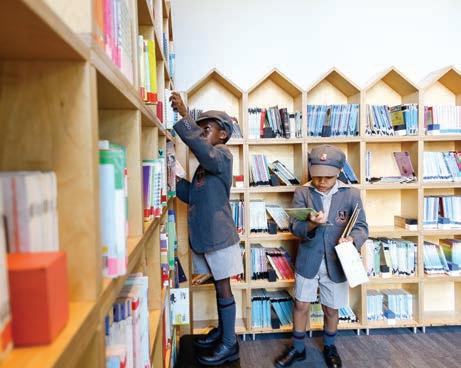
A physiotherapist, occupational therapist and educational psychologist are also available to offer academic support as required.
The Grade 0s enjoy a weekly visit from the St John’s College chaplains, and the Grade 1s and 2s attend an age-appropriate
PRE-PREP FACTS
• Four Grade 0 classes with 18 boys per class.
• Three Grade 1 classes and three Grade 2 classes with 25 boys in each class.
• A teacher’s assistant in every classroom.
• Specialist music, drama, sport, art, ICT, Afrikaans, isiZulu, and Sesotho teachers.
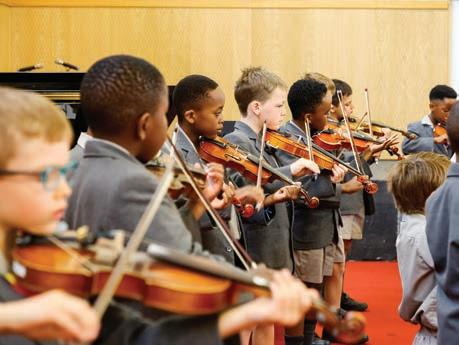
• Physiotherapy, occupational therapy, speech therapy and an educational psychologist are available.
• Aftercare is available every school day until 17h15.
Anglican service in The Memorial Chapel at the college each week.
The boys and their families are encouraged to become part of a thriving community and to look beyond the confines of the school to the broader environment in which we live.
When the boys finish Grade 2, they are well prepared to graduate to the next stage of their school career at St John’s Preparatory.

The South African Schools Collection 2023 157 ADVERTORIAL
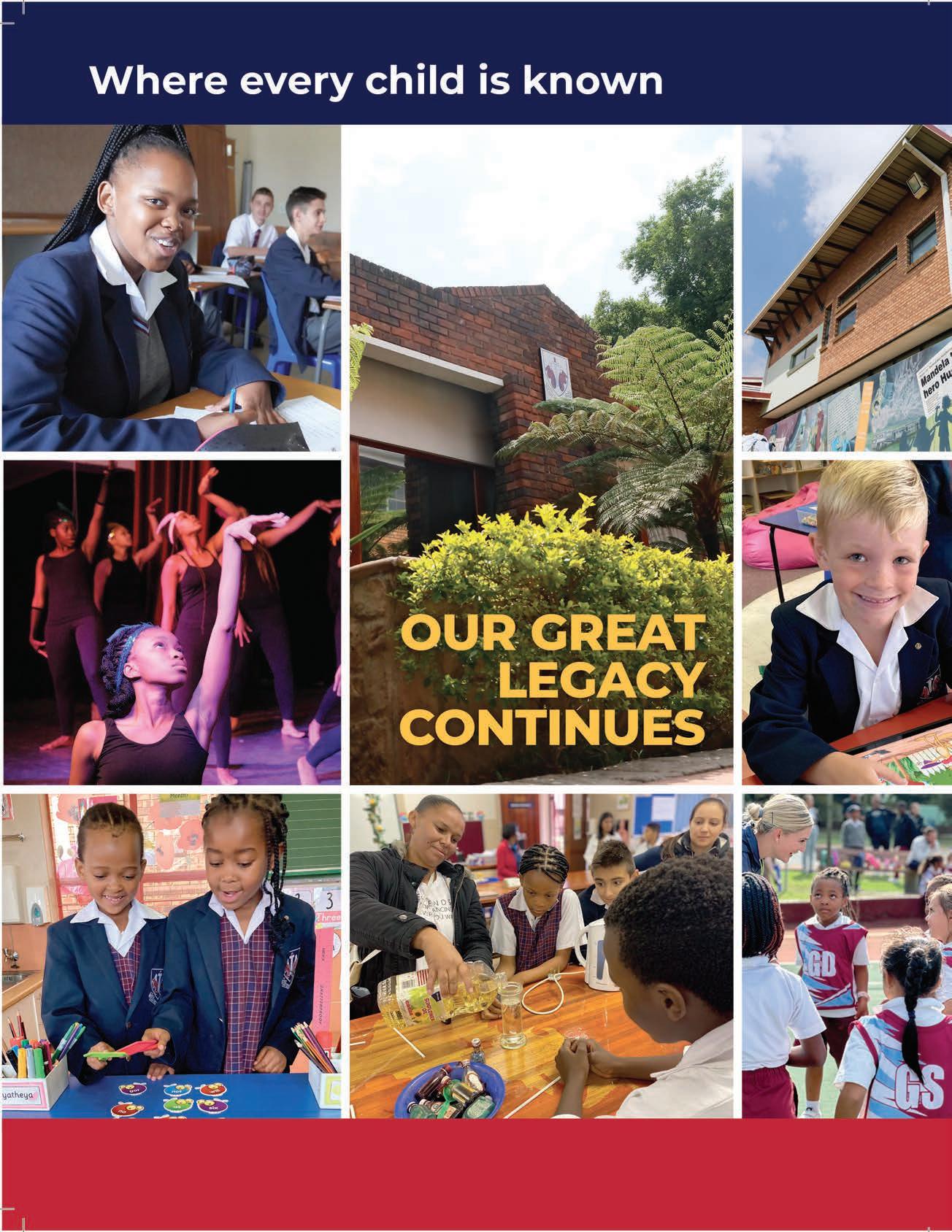
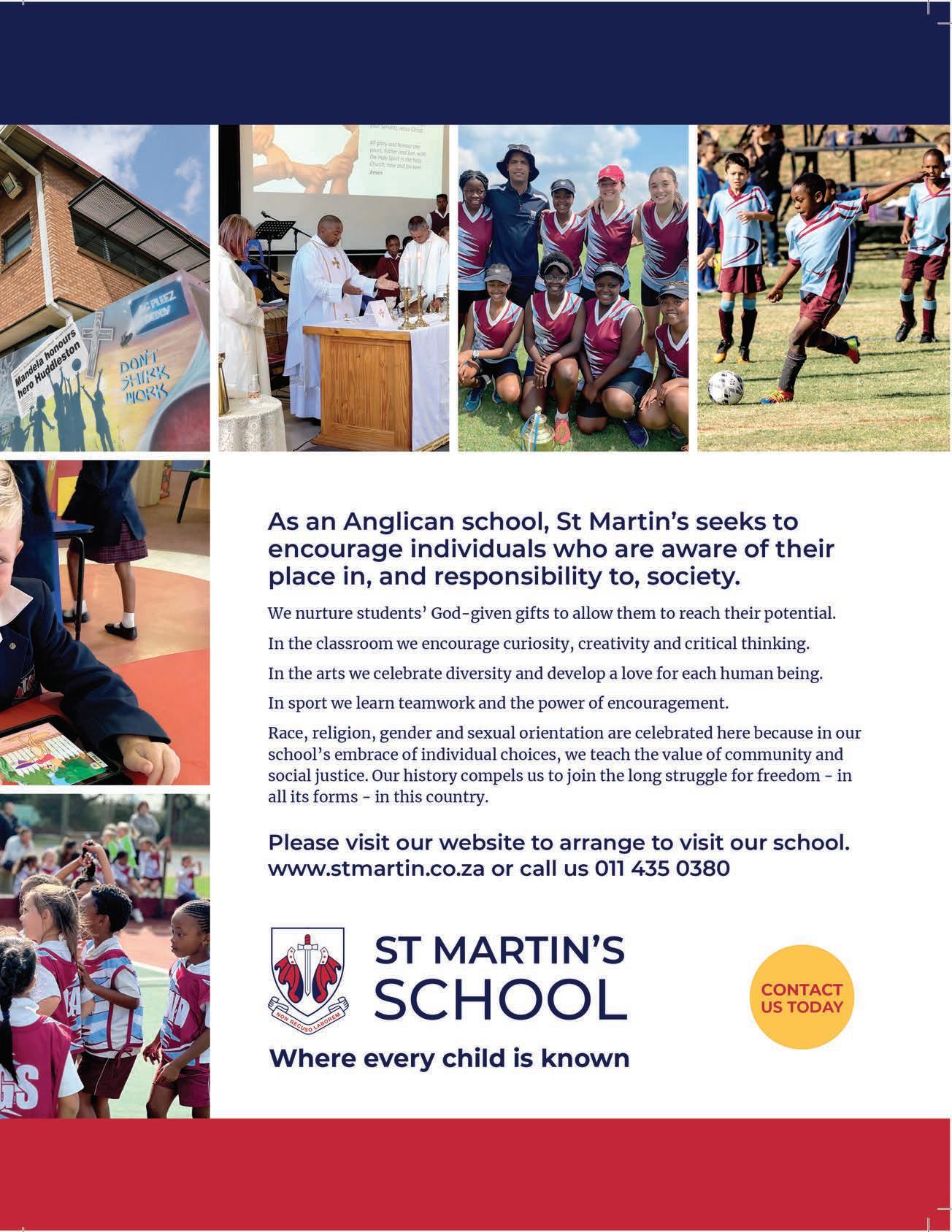

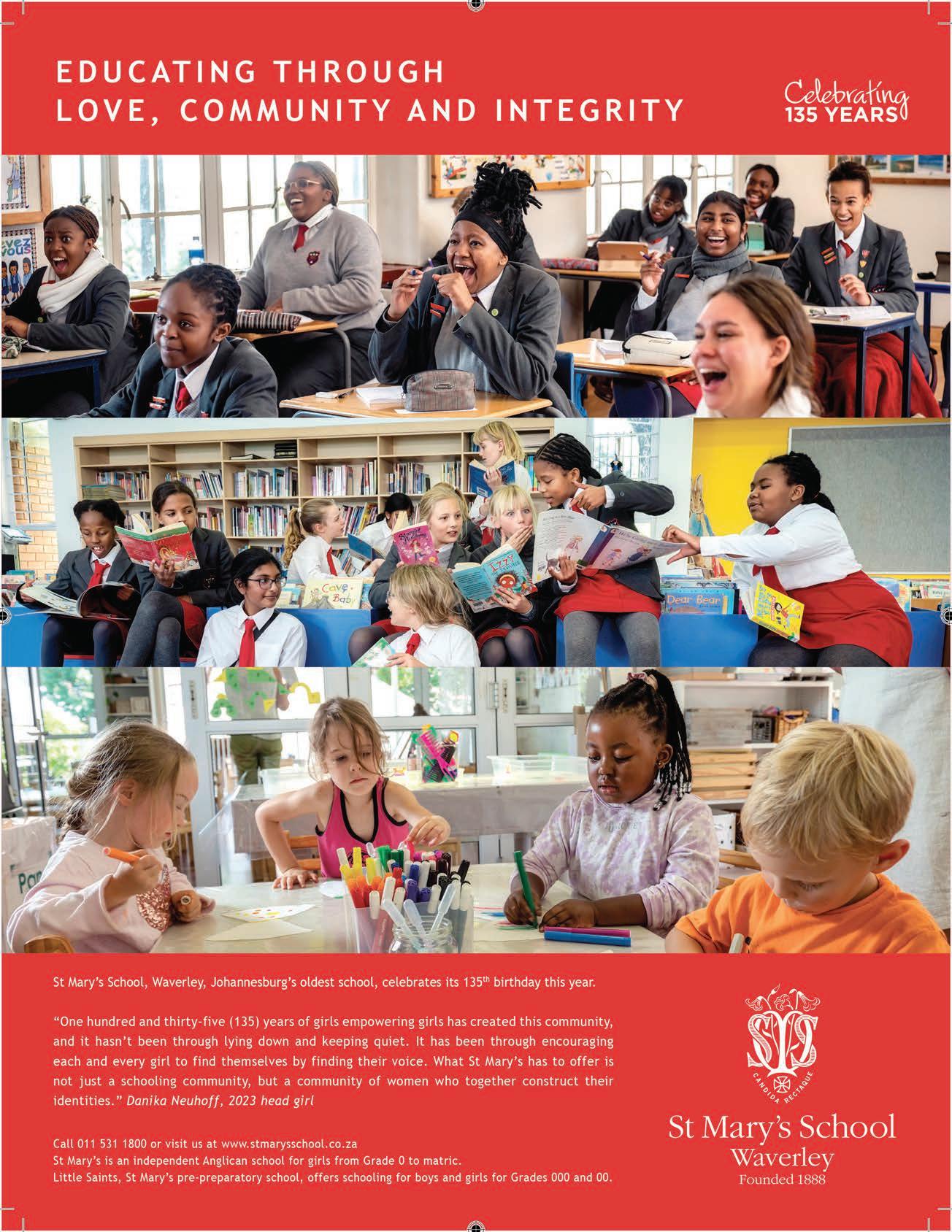
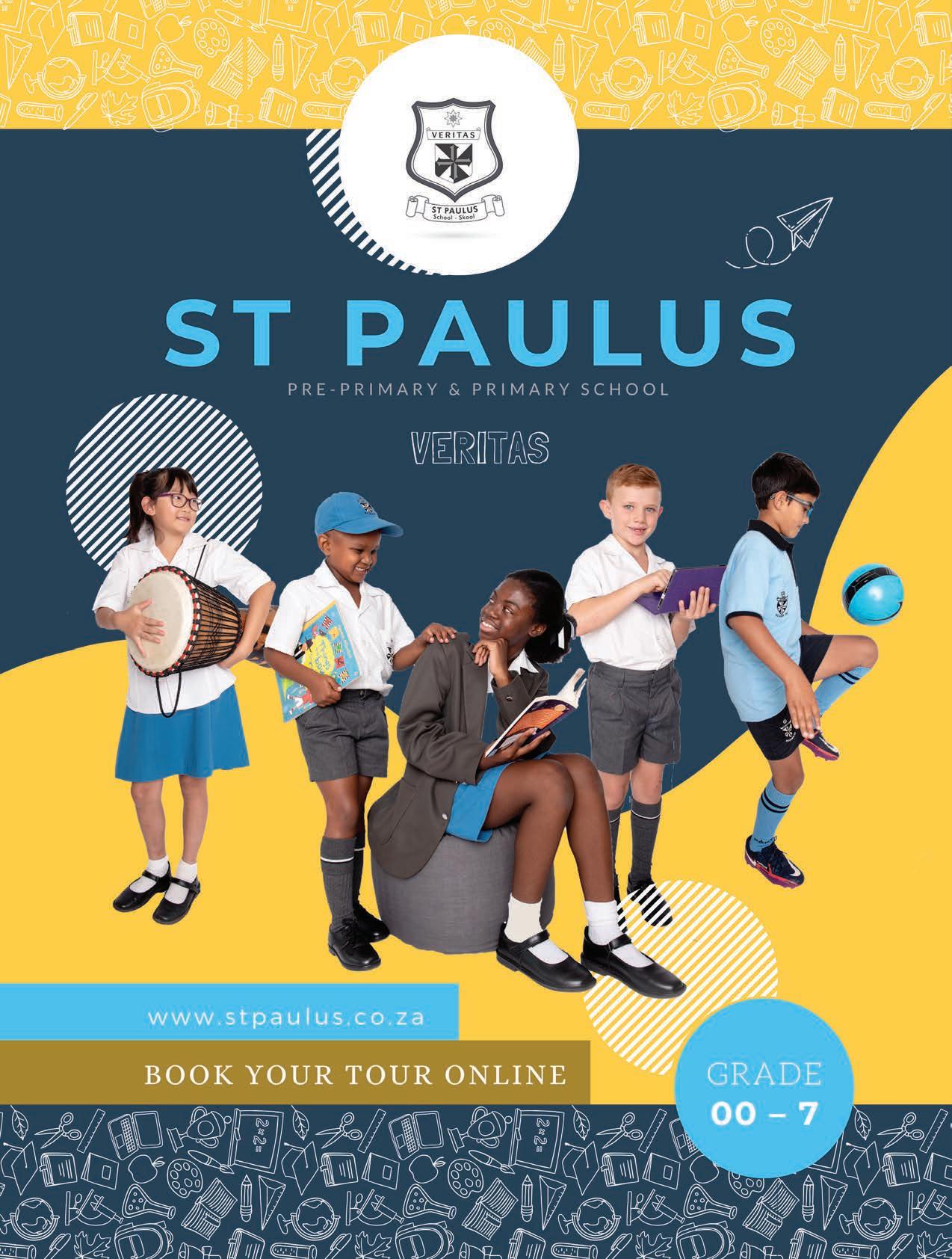
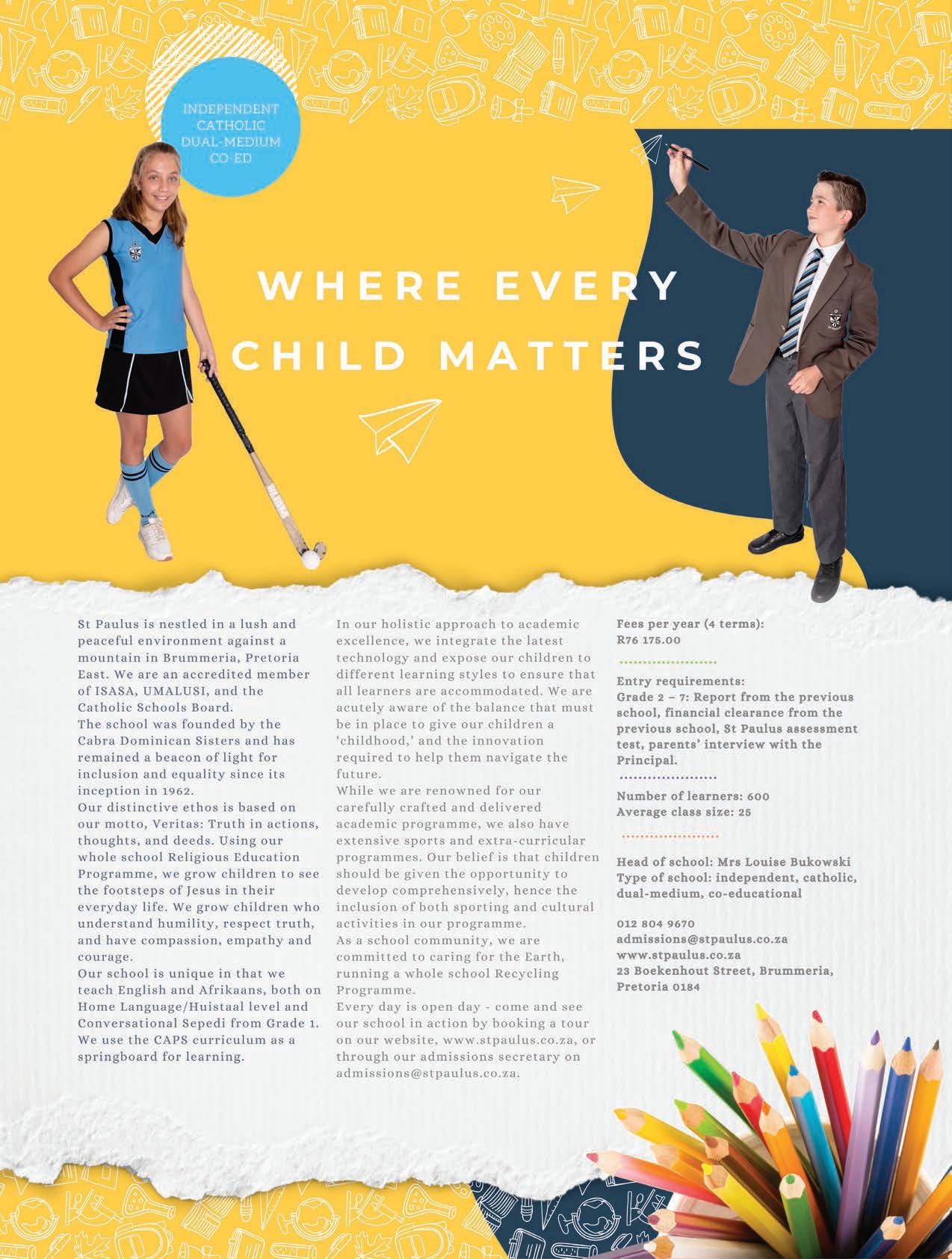
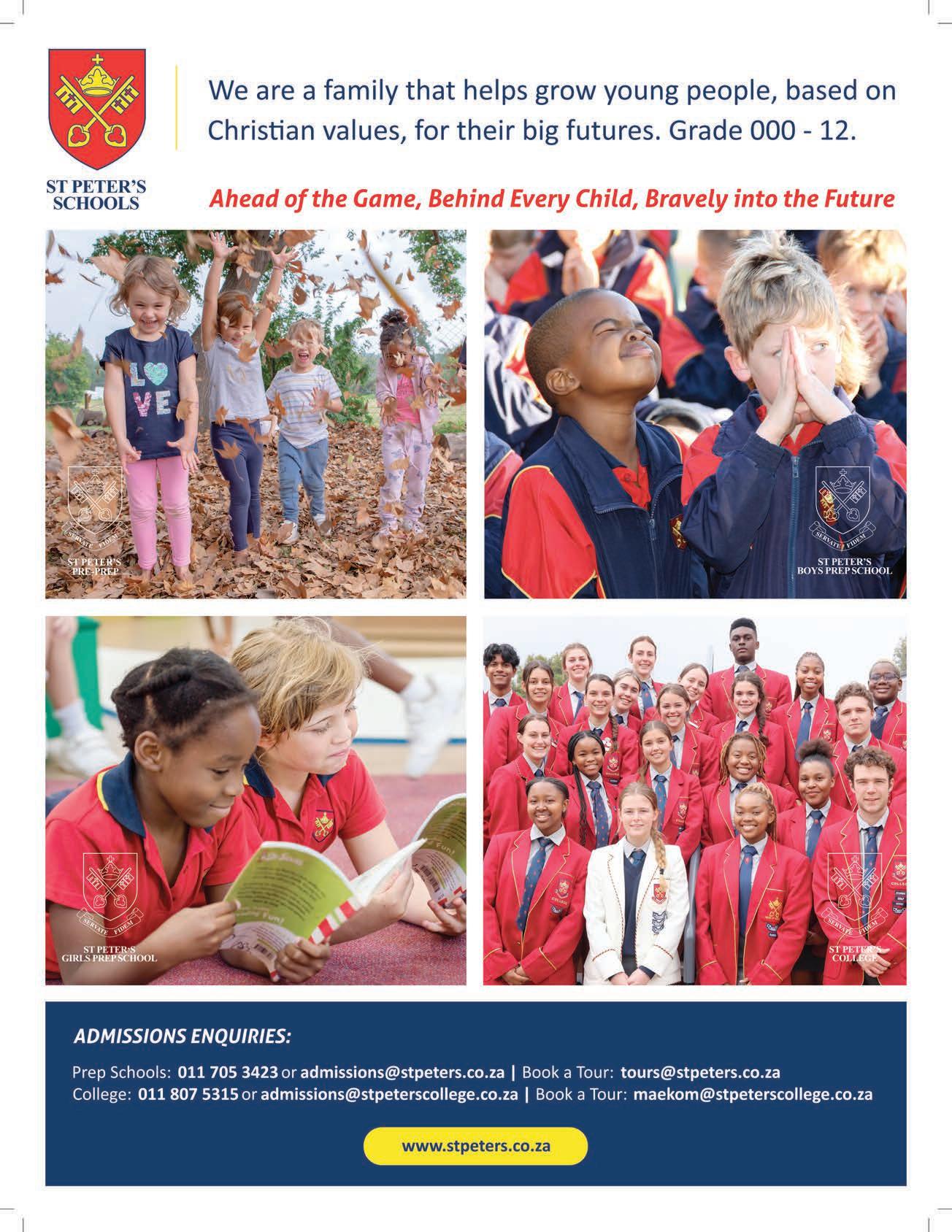
A HOLISTIC EDUCATIONAL APPROACH
St Peter’s is an Anglican Diocesan family of schools that espouses Christian values and provides children with a balanced, caring, varied and modern learning environment across Grades 000 to 12
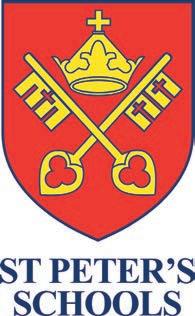
At St Peter’s, the three “legs” of the learning environment – students, parents and school – collaborate towards a holistic education that focuses on personal development.
In today’s fast-paced world, parenting challenges are becoming ever more complex. The progression of mobile technology sees children spending more time on their digital devices than interacting in person, leading to isolation, vulnerability to cyberbullying and social exclusion. Parents cannot e ectively monitor their children’s exposure to harmful content and often experience the same sense of tech isolation and breakdown of healthy relationships themselves. A faith- and values-based education empowers children to make judgements based on a solid moral foundation and o ers parents a tangible set of values to anchor their parenting.
In the 21st century, youngsters must navigate acute sensitivities around gender, race and sexuality, working through the maze of new descriptors that people use to de ne and describe themselves. As they grapple with these issues, so too do their parents, who may not yet understand the concept of gender uidity. “The Anglican church can play a huge part in both parents’ and kids’ lives in our increasingly ‘woke’ society,” says Prep School chaplain Father Richard. “We o er navigational skills to help them deal with this ‘wokeness’ in a structured framework based on spiritual principles and love.”
At the core of St Peter’s Prep School values is “Be Still and know that I am God”, framed by a series of simple values. “Be Responsible, Be Respectful, Be Compassionate, Be Honourable, Be Collaborative and Be Resilient” are the principles grounding the juniors, evolving to the more abstract concepts of Relationships, Respect, Responsibility and Resilience in older grades.
Despite some necessary di erences in teaching methods between the various levels and schools, sound communication channels ensure that sta and parents align with what needs to be imparted and consistent in helping the children develop skills and tools to
manage challenges. Across both Prep and College, there is a strong focus on intrinsic self-motivation to help the child understand their own value, abilities and talent.
“Anglican theology always draws us back to the middle ground, to what is best for the community. We work from a basis of love and inclusion of all people, whether we agree with them or not,” explains College chaplain Father Kabelo Motlhakane. “When we work with young humans, it is from the perspective of a God who designed and loves them for who and what they are. We constantly remind our children and sta that we are in the business of love. We are agents for transformation through the work of love and academics. Our faith is fashioned around balance, mental wellness and the beauty of diversity within the church itself. Our task is to transfer this to our students in an environment where prayer and worship are part of everyday school life.”
Every sta member at St Peter’s participates in pastoral care, integrating their students’ physical and emotional wellbeing into the learning process. “Our values and a moral foundation run throughout the educational journey,” adds Brian Armitage, head of pastoral care at the College. “We try to structure an environment that helps mitigate the challenges of modern-day parents. In many homes, both parents work long hours. Children are dropped at school early and collected late, so we create programmes to keep the children active and busy to help parents cope with the practical element. At the same time, our faith-based educational approach aims to support our students and their families on a spiritual, emotional and moral level.”
The success of St Peter’s focus on individual development and old-school values is evident in the balanced young people this approach produces. Parents of St Peter’s children do not shoulder the responsibility of parenting completely alone – they work together with the school community to raise their children to go “bravely into the future!” www.stpeters.co.za
St Peter’s Schools: Ahead of the Game, Behind Every Child – Bravely into the Future!
“A faith-based education brings us back to our values to help guide us through the parenting challenges in today’s world.”
ST TERESA’S SCHOOL
CRAIGHALL PARK AND ROSEBANK GRADES 000–12
St Teresa’s School is a well-respected independent Catholic school for girls in Johannesburg offering Grades 000–12. Founded by the Sisters of Mercy in 1930 and rooted in Christ’s teaching of love for God, self and others, our school is committed to developing the values of compassion, service, love and respect in our learners. We provide a safe environment for the spiritual, intellectual, emotional, creative, physical and social development of learners of all faiths.
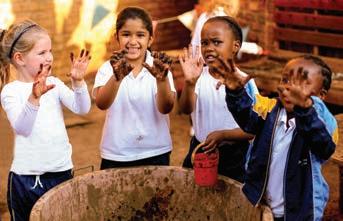
Rosebuds Pre-Primary at St Teresa’s School offers a nurturing Reggio-inspired environment that stimulates natural curiosity, wonder and awe in our young learners aged 3–5 years. It is a place to create, discover, explore and engage freely with nature and the world.
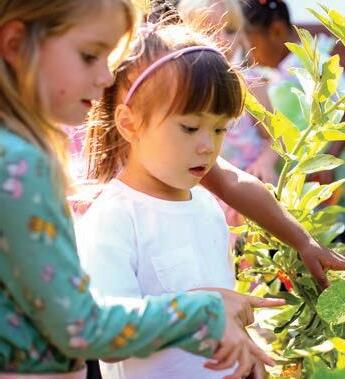
Head of junior primary school: Mrs Lynne Elfick
Head of senior primary school: Mrs Lindsey Verster
St Teresa’s Junior Primary for Grades 0-3 sees each learner as special and unique and strives to balance academic, cultural and physical pursuits while teaching the values of cooperation, compassion, forgiveness and honesty with an emphasis on being kind.
St Teresa’s Senior Primary offers Grades 4–7 and focuses on developing confidence, initiative and critical thinking in our learners so they can become capable, independent and responsible with a strong sense of service to their wider community.

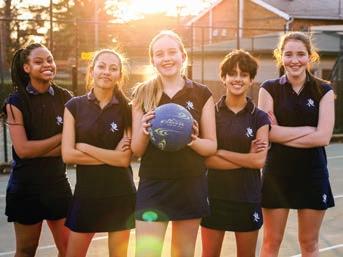
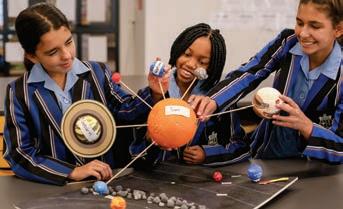
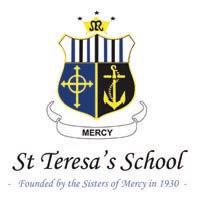
St Teresa’s High School for Grades 8-12 lays an excellent educational foundation to equip our learners with the skills and knowledge required to excel in all areas of life and make a meaningful difference in the world. Our academic program is challenging and innovative
Head of high school: Mrs Elsa de Bod
Type of school: Independent Catholic girls’ school
Number of learners: 600
Average class size: 20–24
and cultivates a Growth Mindset, and our academic reputation is maintained by consistently achieving a 100% IEB Matriculation Pass rate.
Our facilities include modern music and art rooms, a computer lab, a science lab, an auditorium and extensive libraries, creating the ideal environment for learning. We offer a range of cultural and sports activities and have just completed a multisports surface astroturf for tennis, netball and hockey.
At St Teresa’s School, we provide an education of the highest standard in an environment that allows our learners to learn, grow and thrive.
Entry requirements: Academic assessment required for formal grades
Fees per year: R57 000–R130 000
WC 166 The South African Schools Collection 2023 G
Tel: 011 442 6235 | stteresas@stteresas.co.za | www.stteresas.co.za | 14–18 Keyes Avenue, Rosebank, 2196 (high and senior primary school), 30 Rutland Avenue, Craighall Park, 2196 (pre-primary
school)
and junior primary

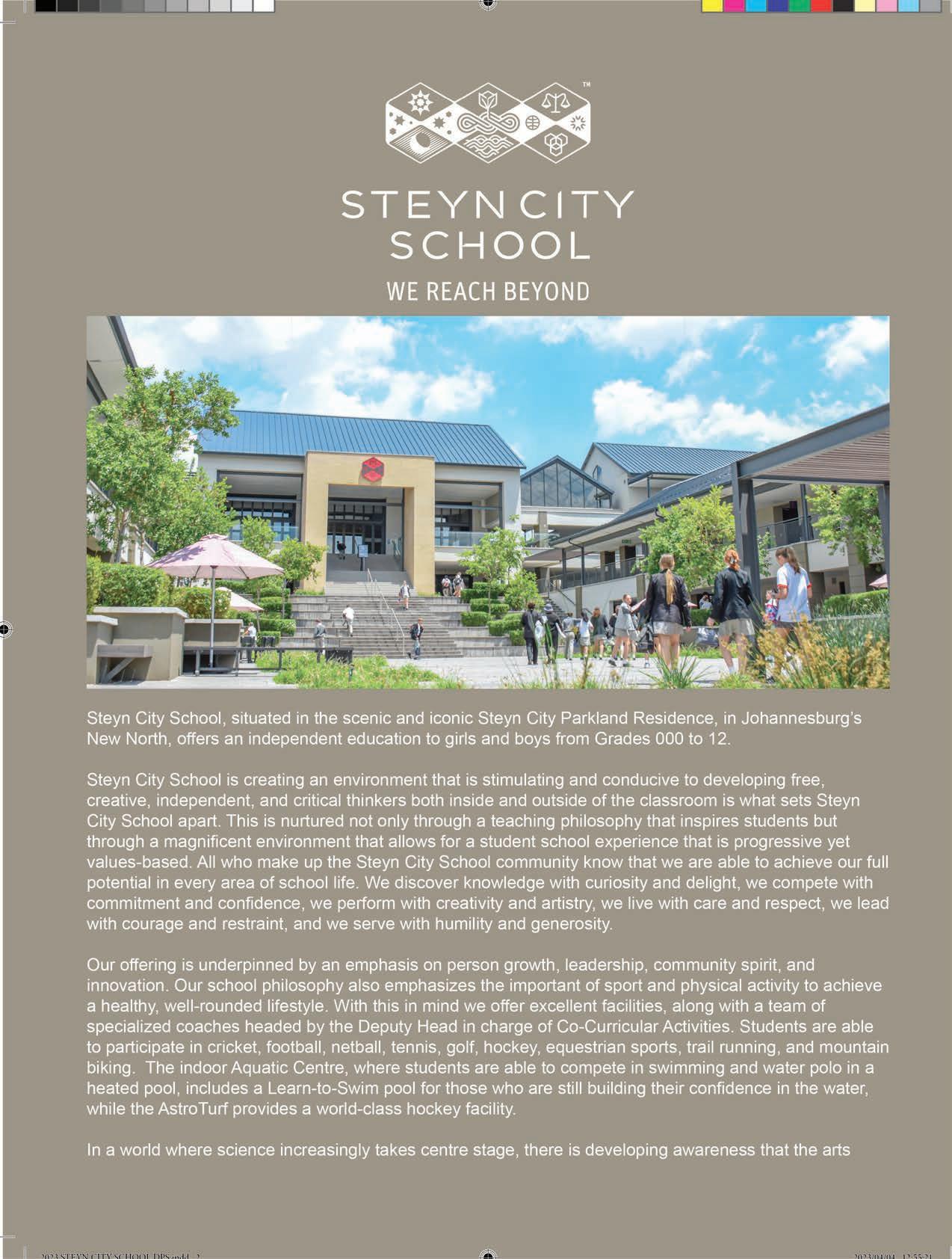
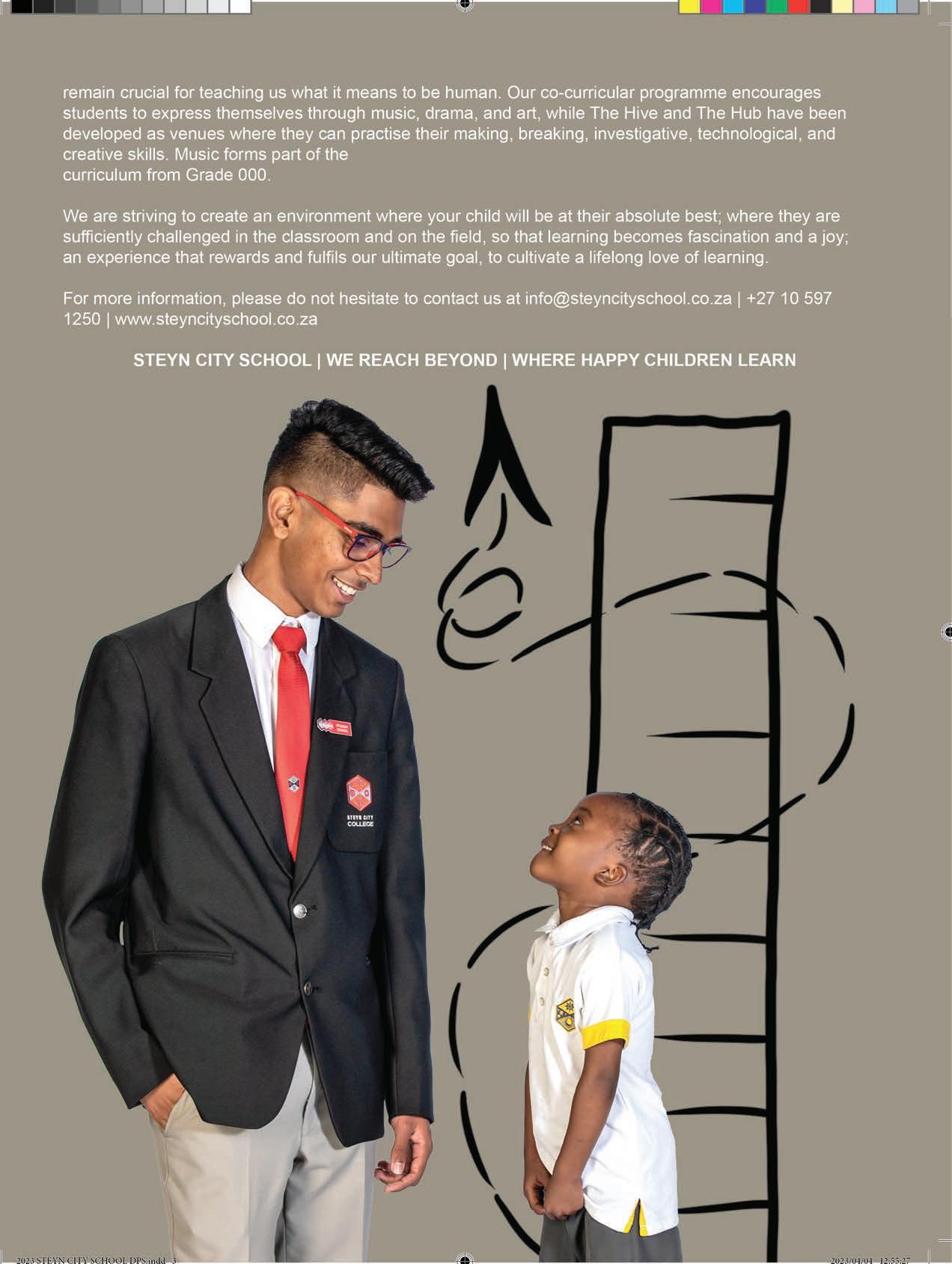
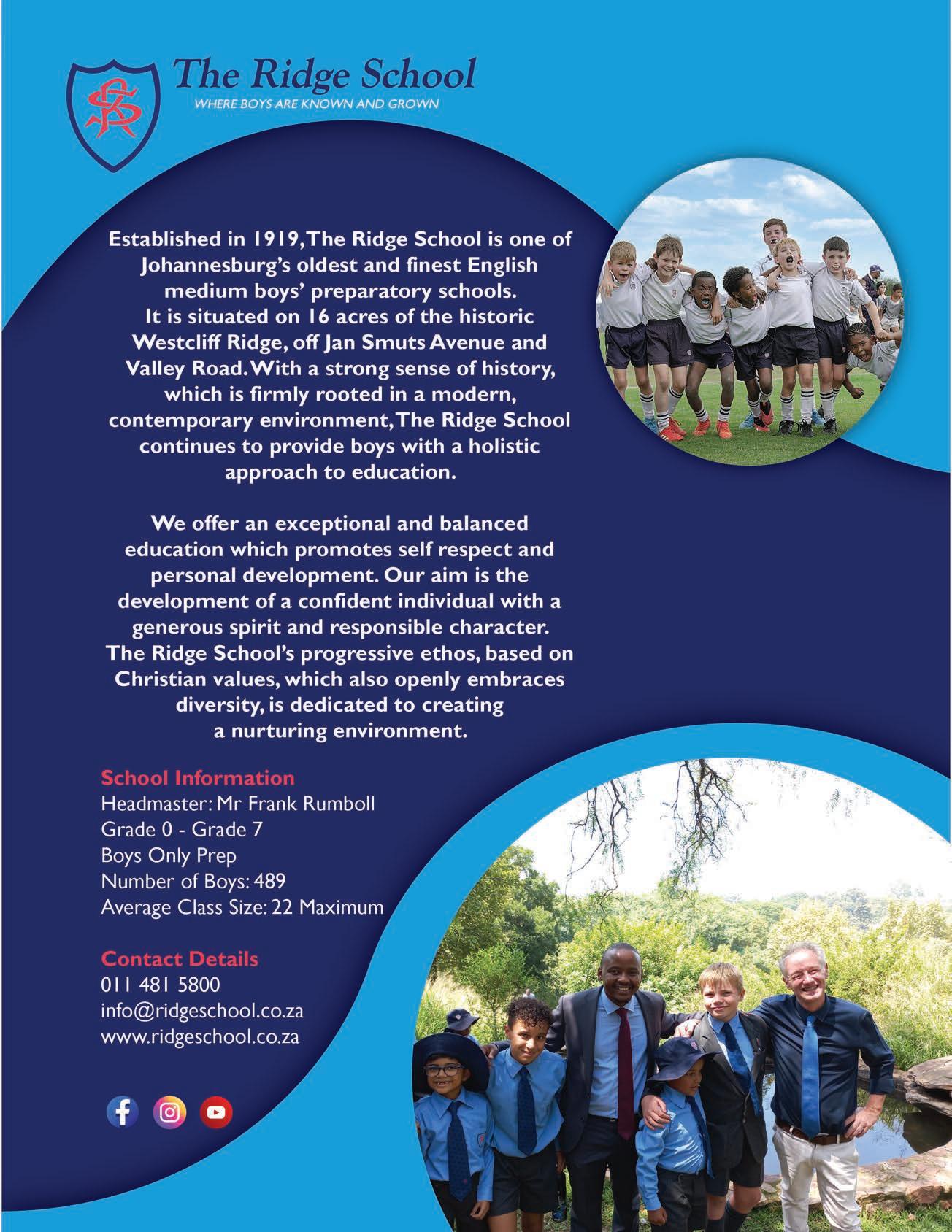
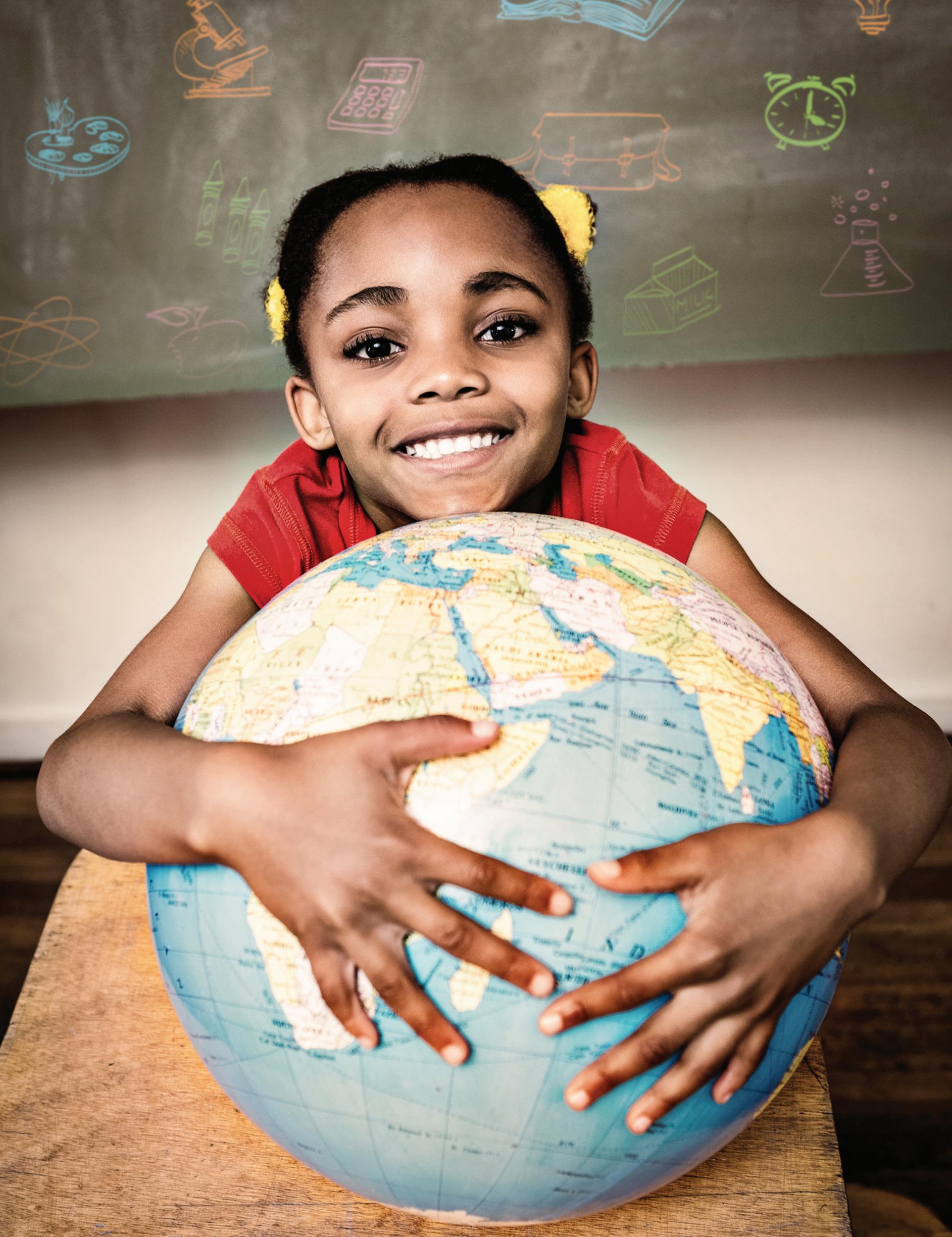
172 Canaan College, 173 Kearsney College, 174 Drakensberg Boys Choir School, 176 Durban Girls’ College, 178 Epworth School, 179 Etham College, 180 Glenwood High School, 181 Maris Stella School, 182 Maritzburg College, 183 Michaelhouse, 184 Pietermaritzburg Girls’ High School, 186 Treverton The South African Schools Collection 2023 171
KWAZULU-NATAL SCHOOLS
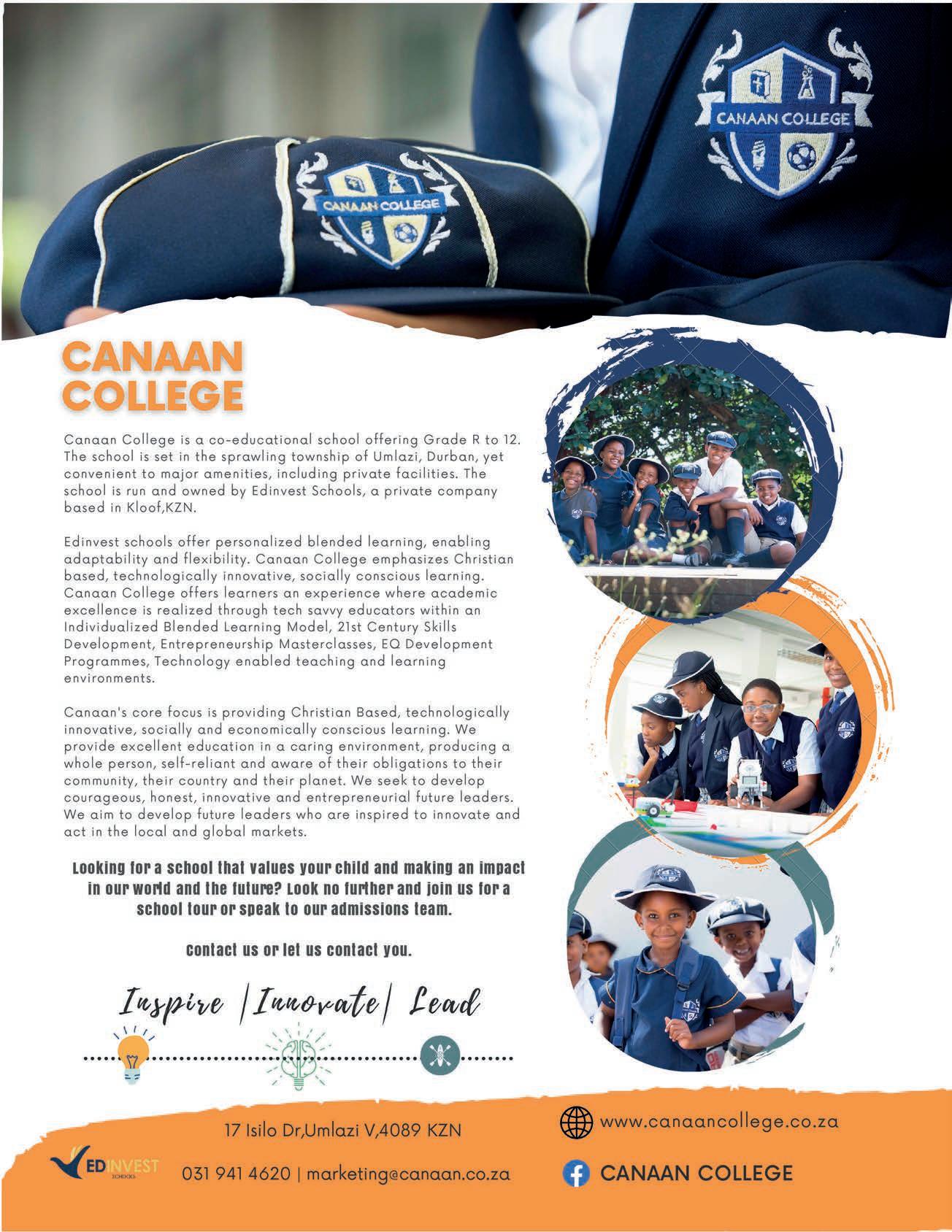

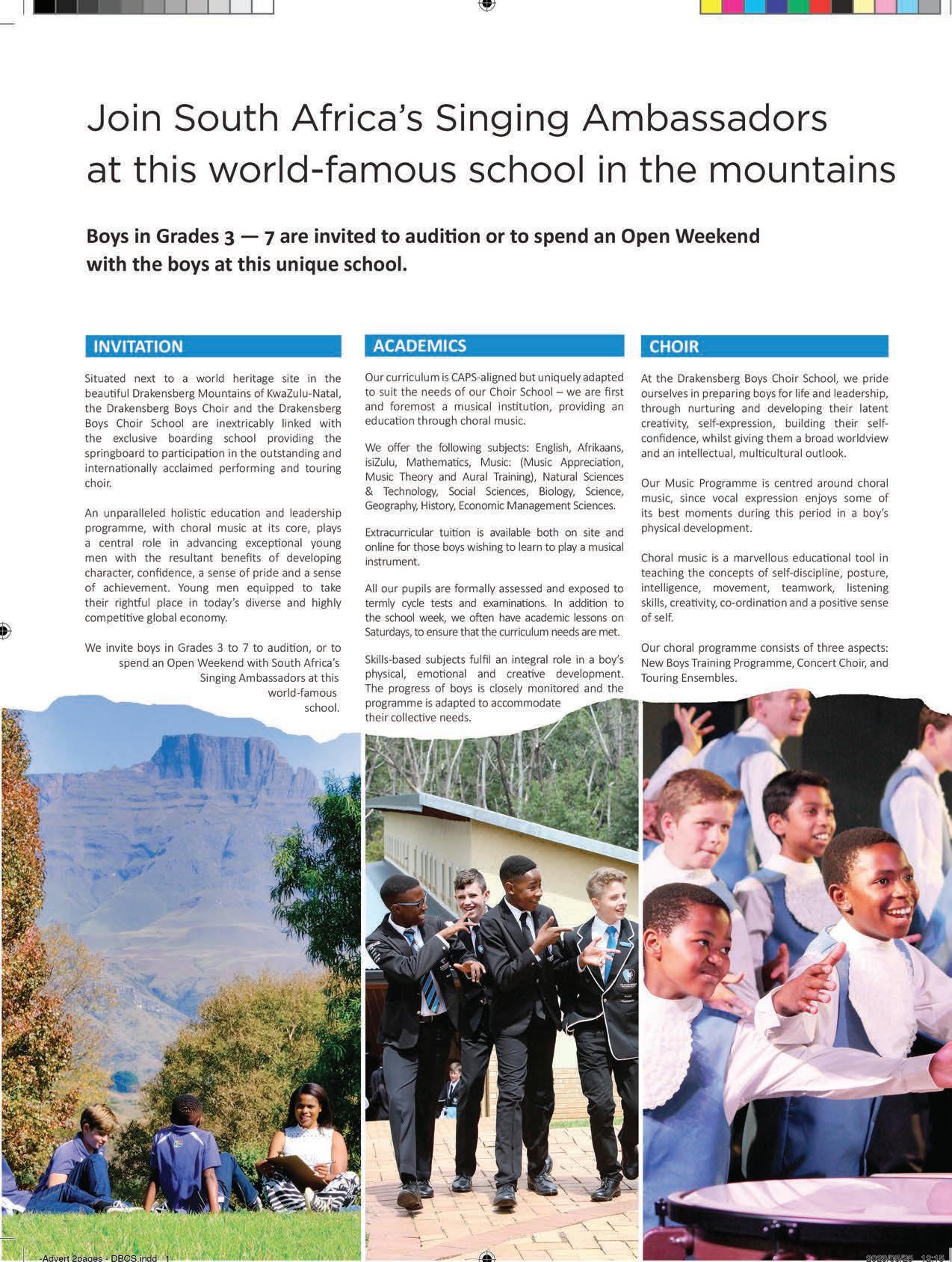
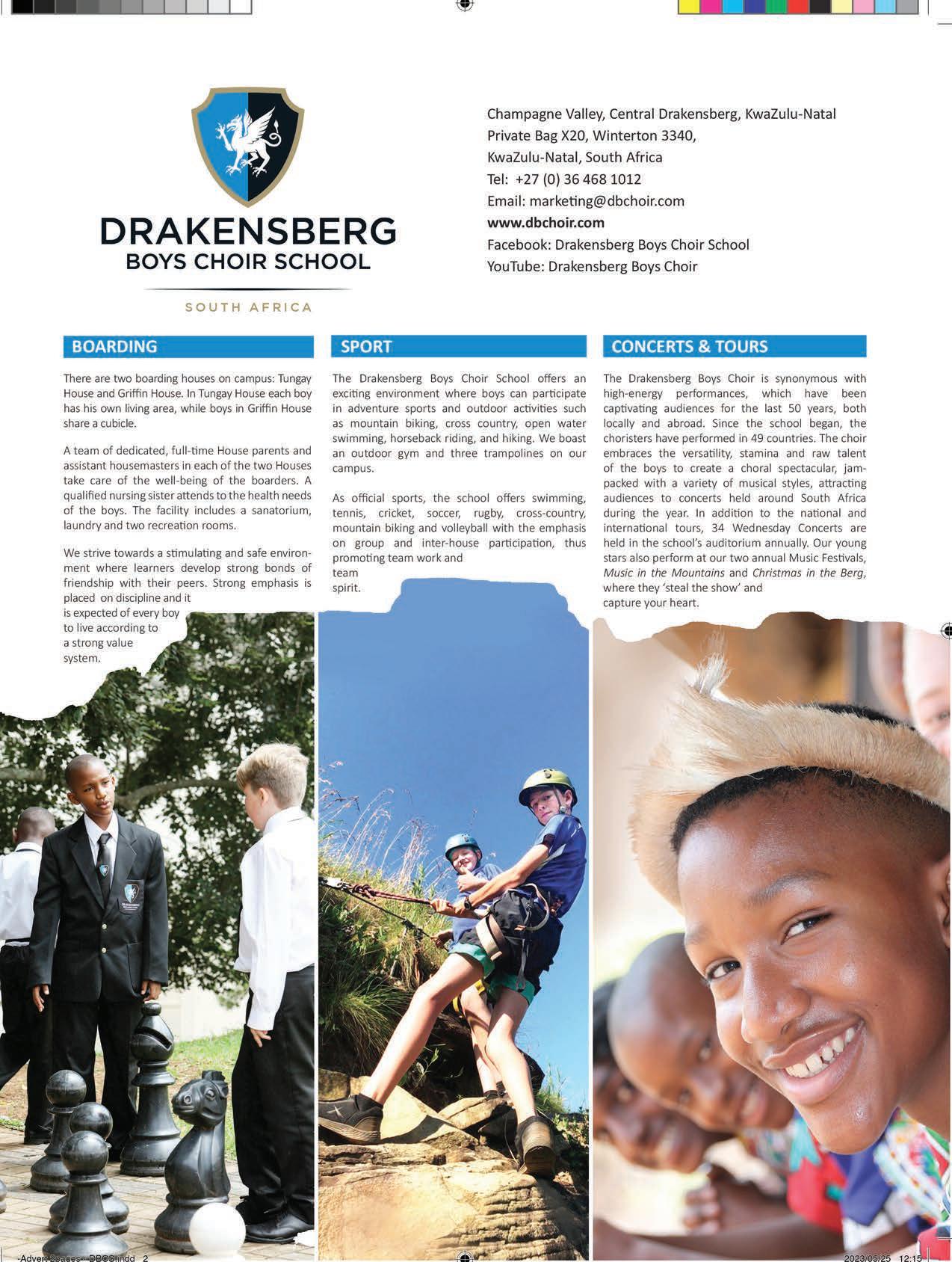
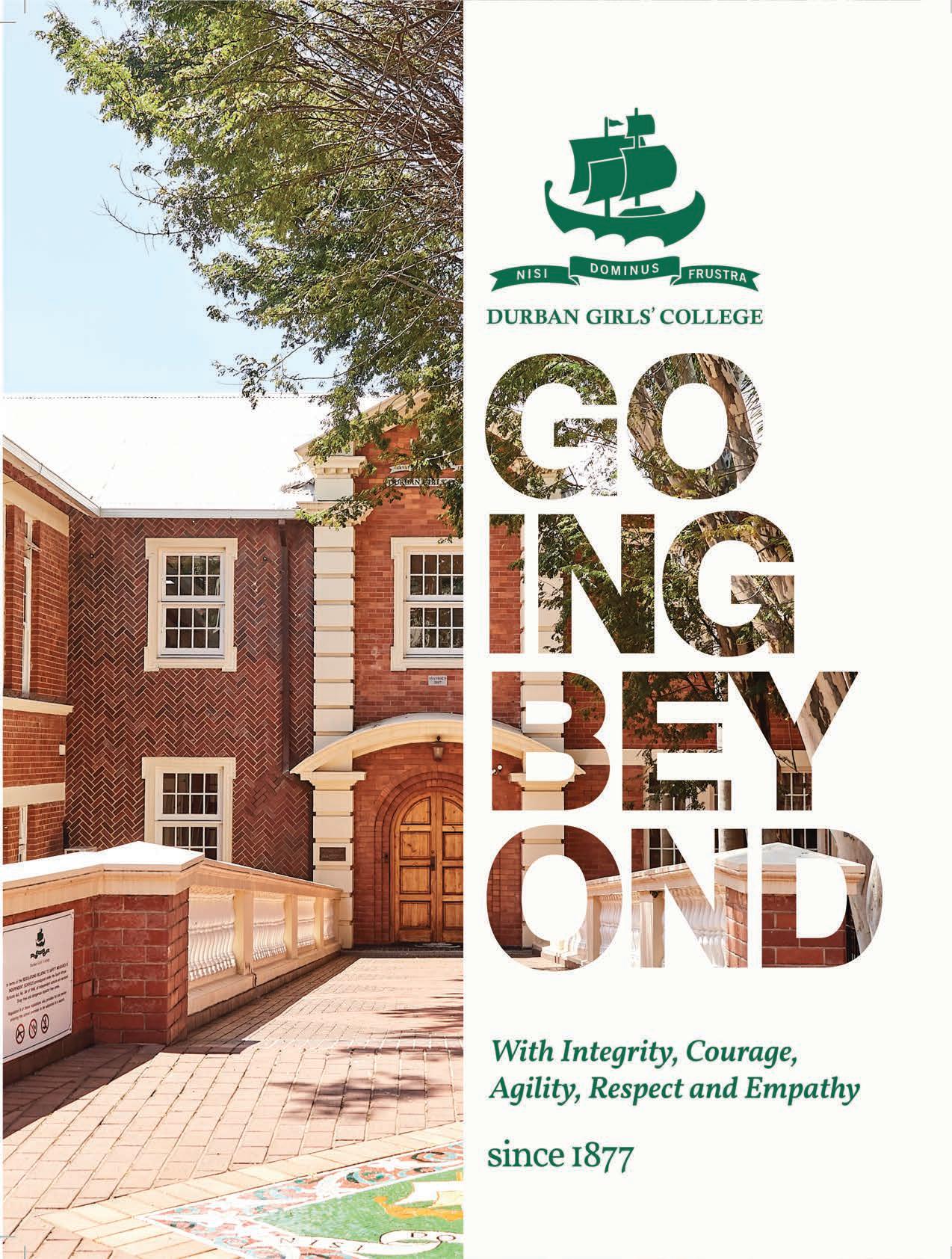
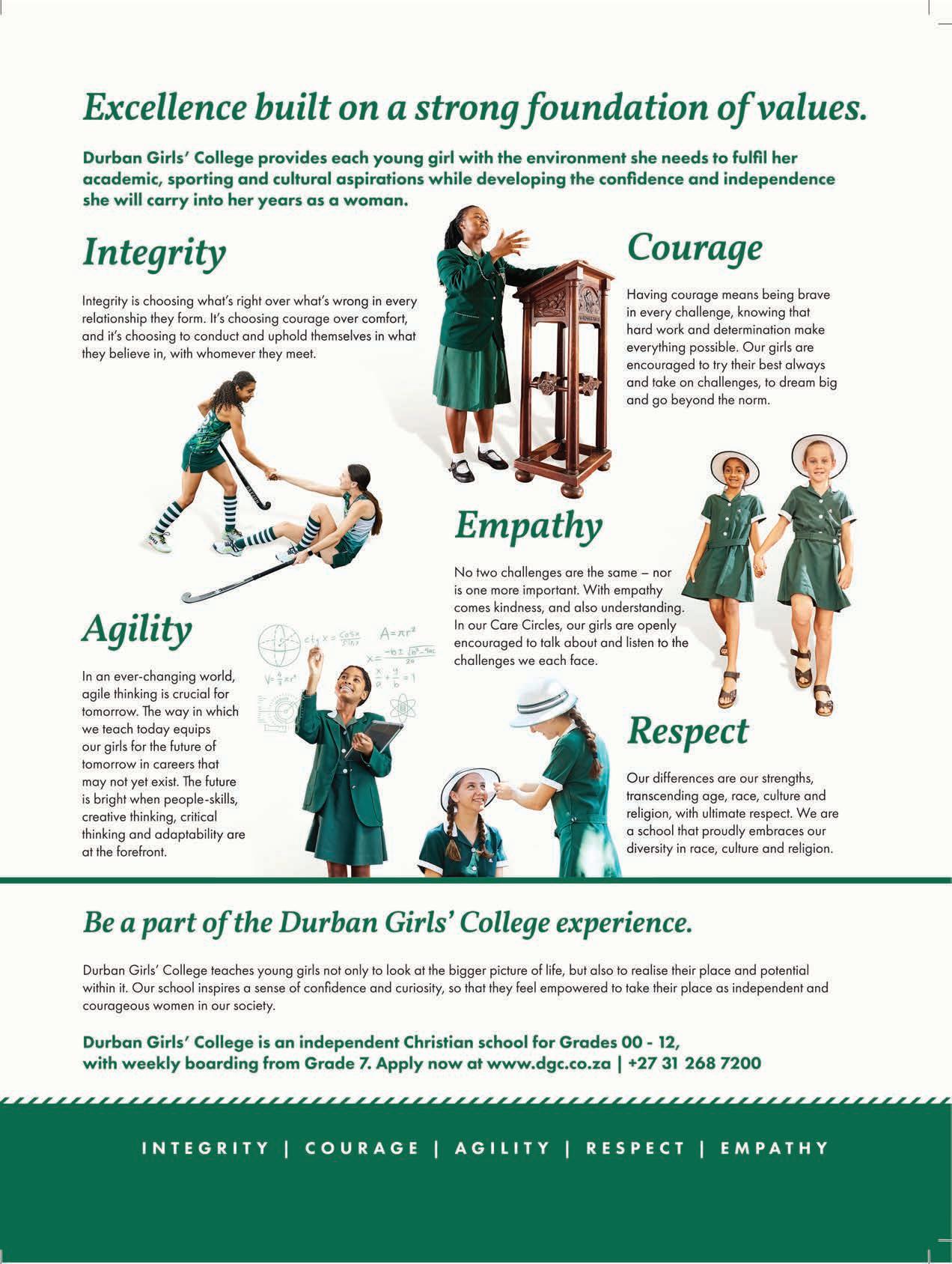
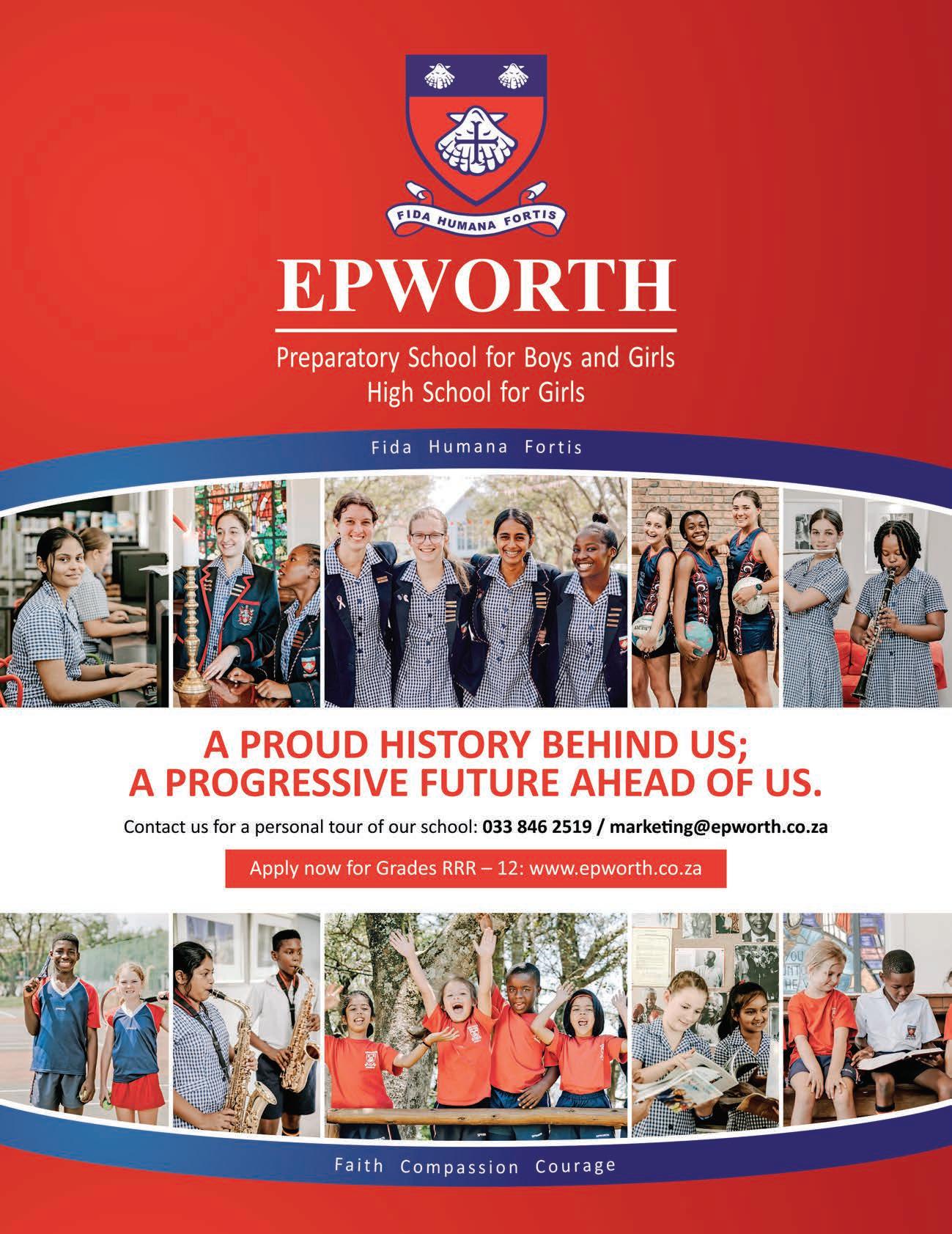
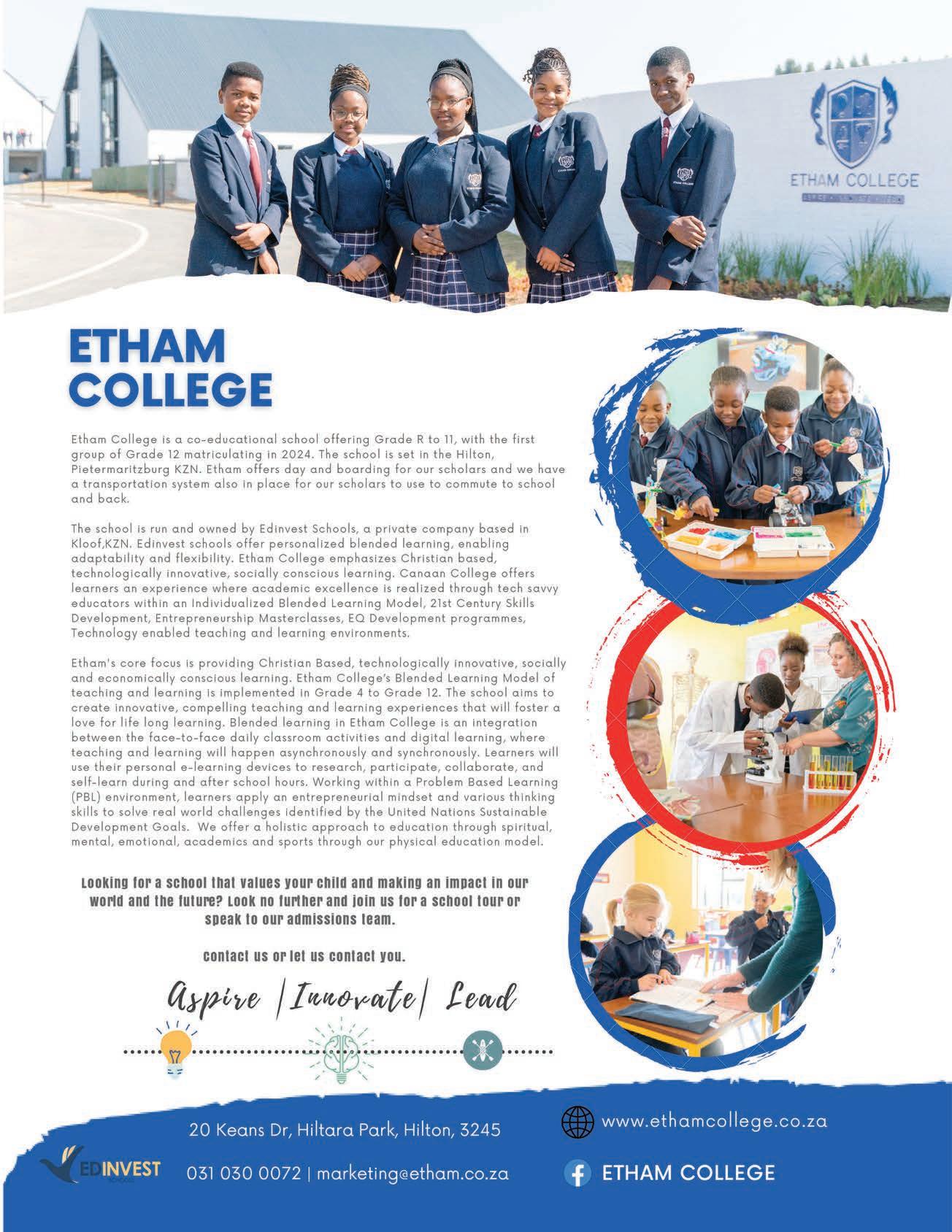















you’ll ever make Give your daughter the space to thrive. Top all rounded education with pupil wellbeing at its heart. A private, all girls’ school in Durban, focused on empowering young women, from Grade 000 through to Grade 12, with the tools to become independent, resilient and self-assured global citizens. @ m a r i s s t e l l a s c h o o l BOOK A TOUR 558 Stephen Dlamini, Berea, Durban 4001 Call (031) 209 9426 www.marisstella.co.za
The best investment
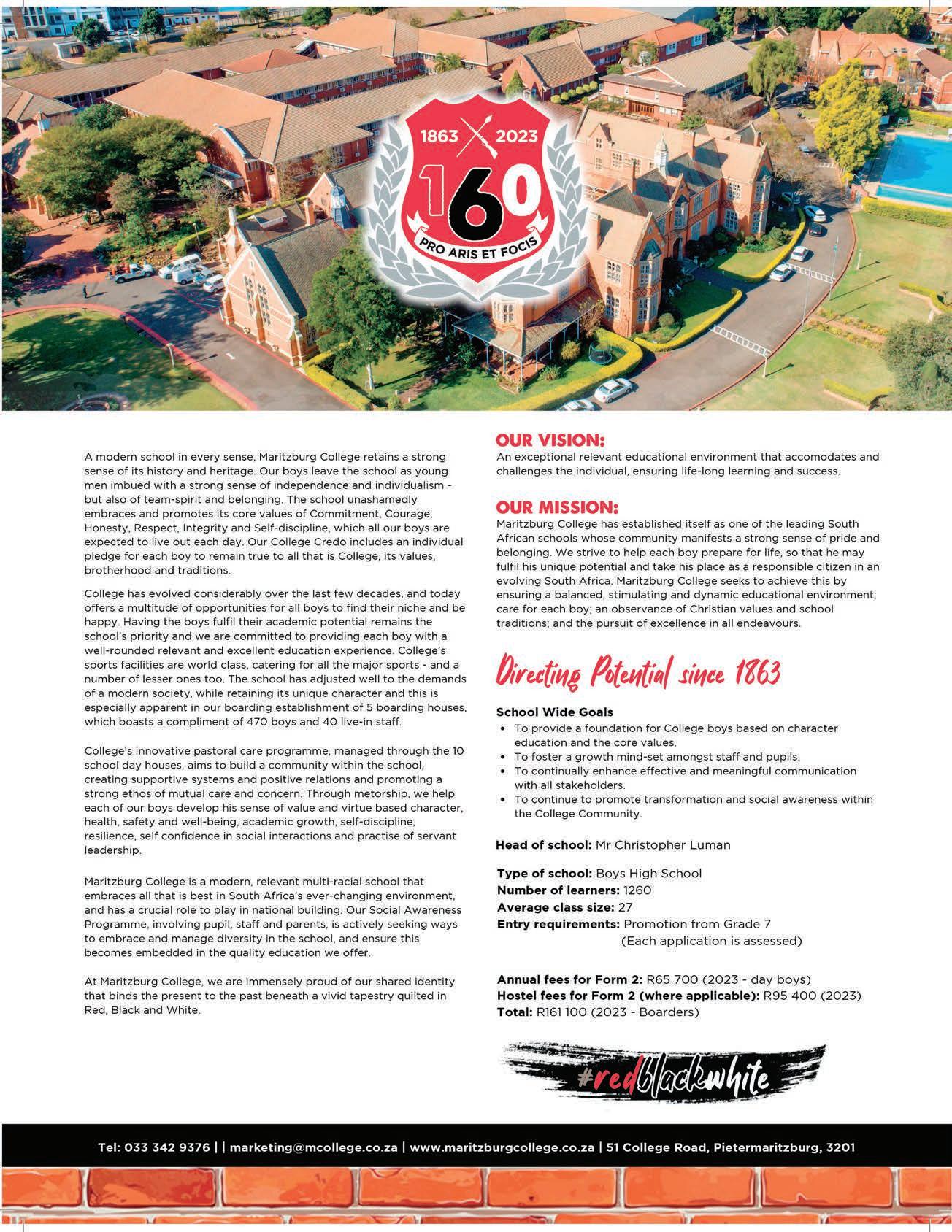
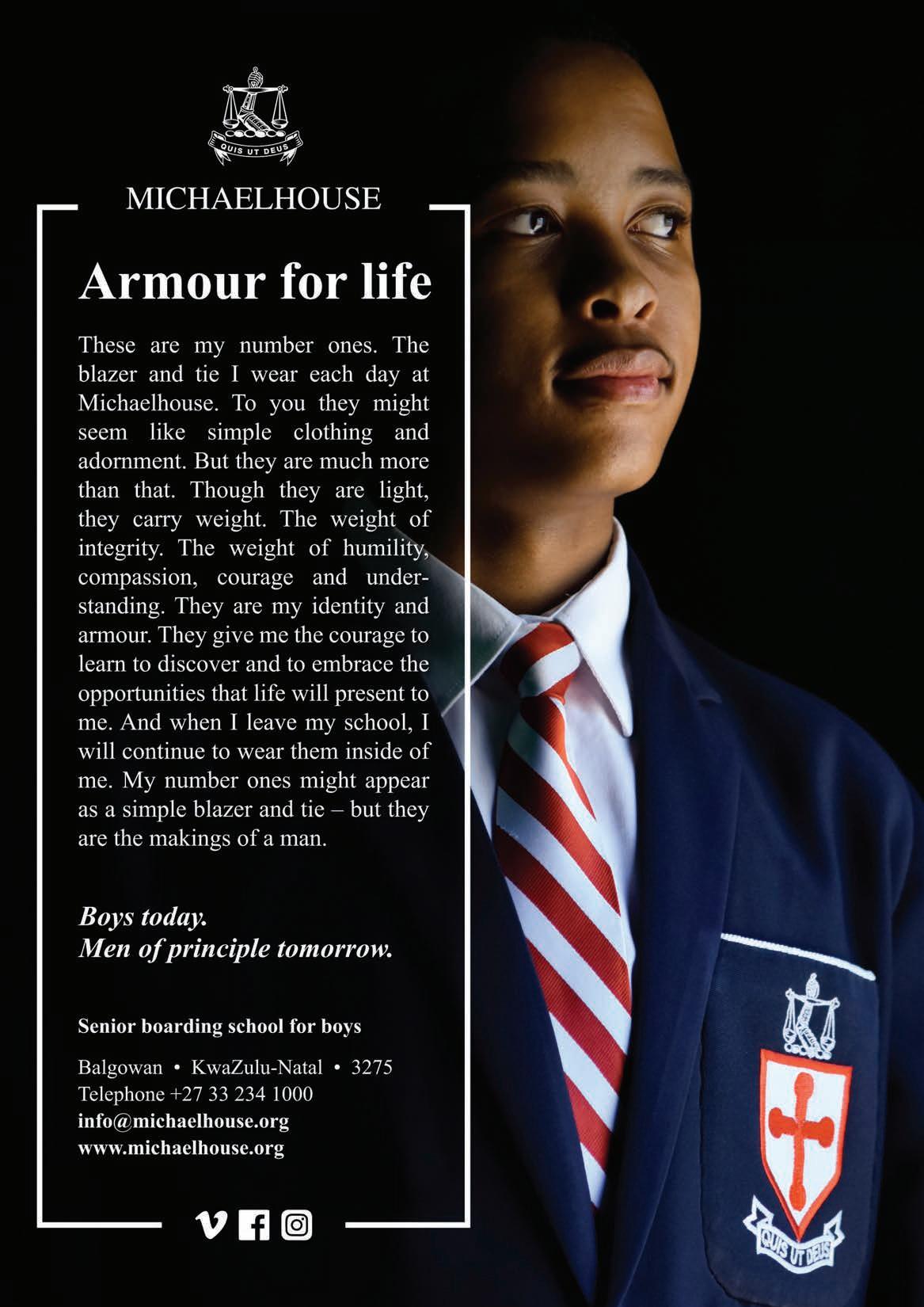
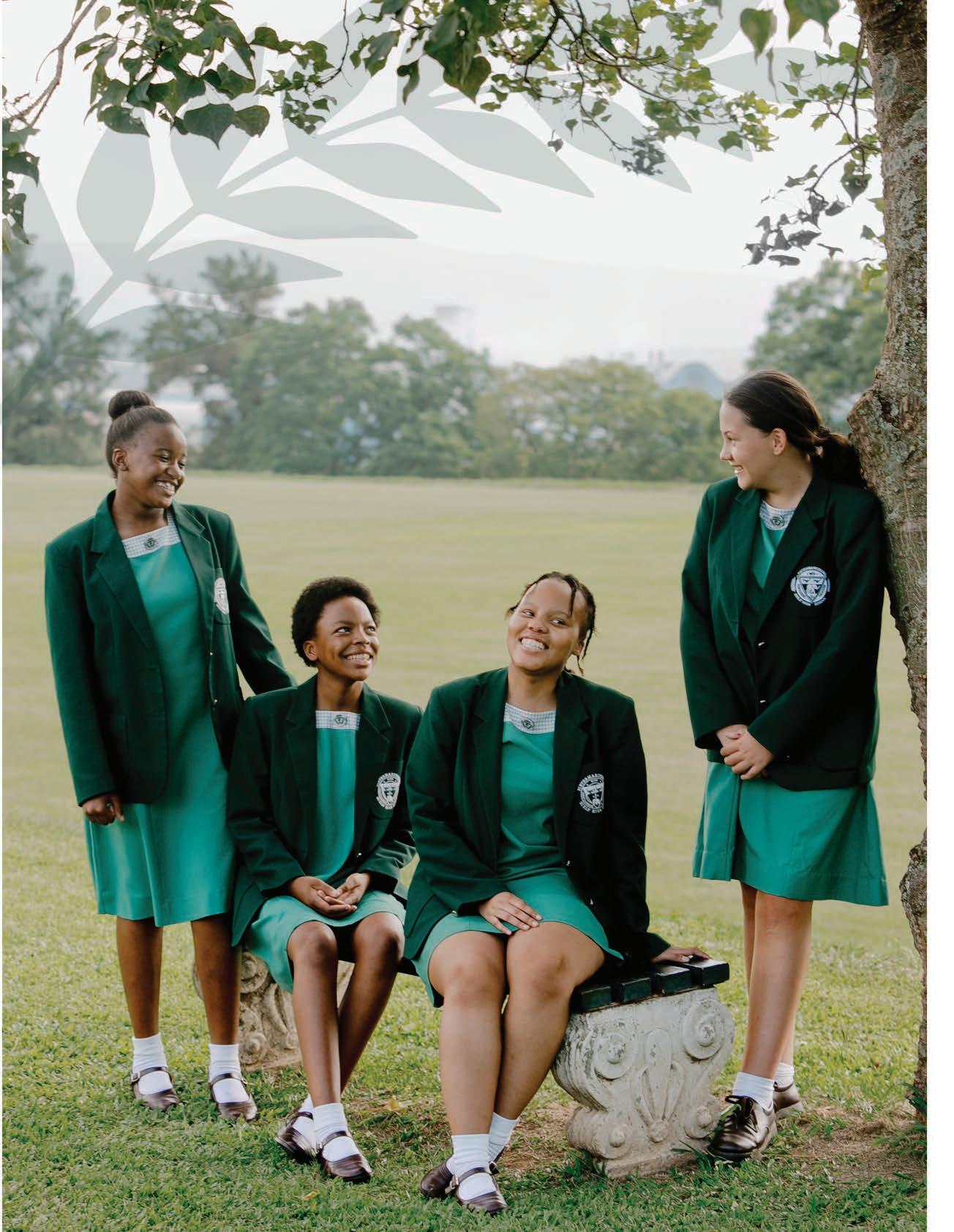
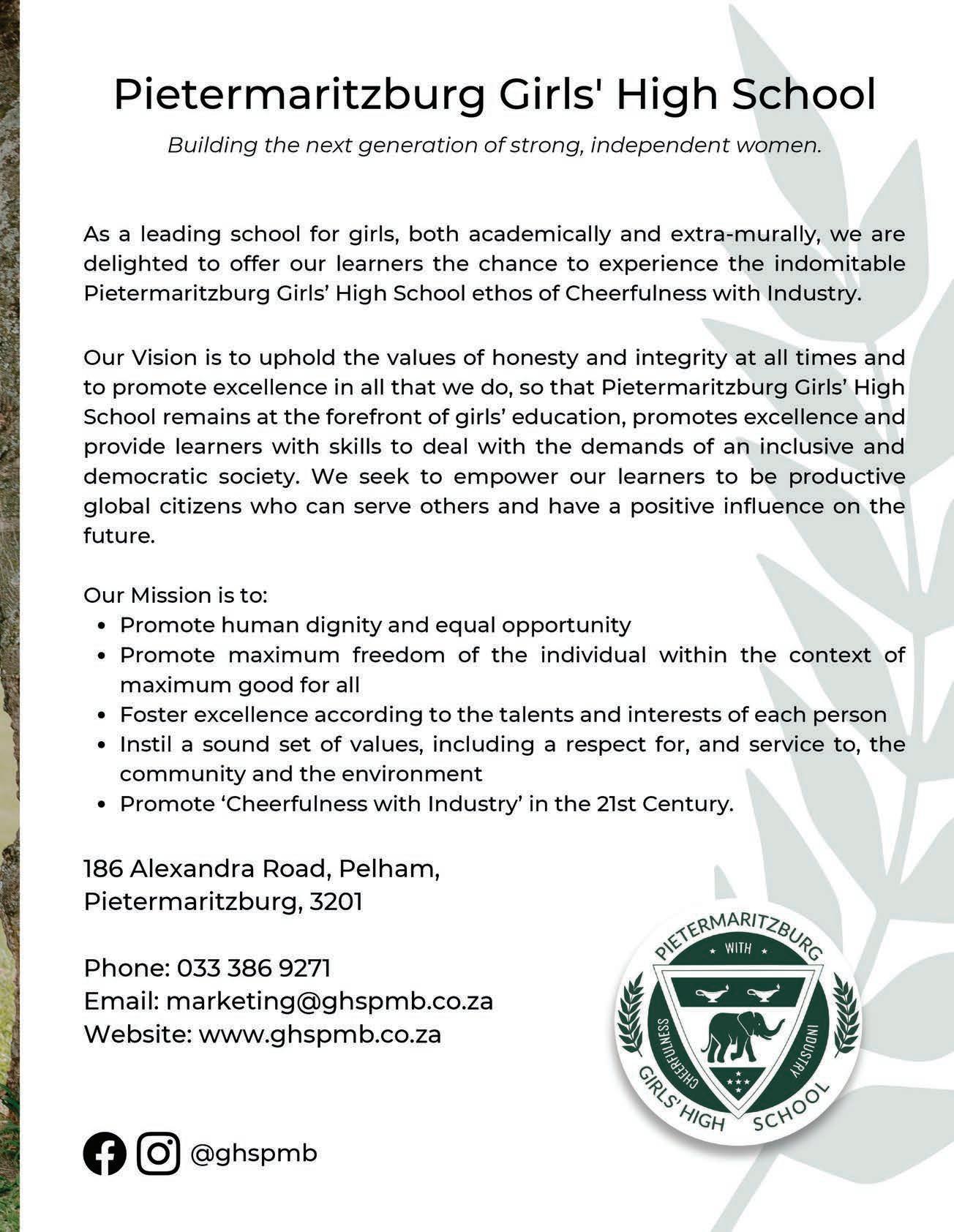
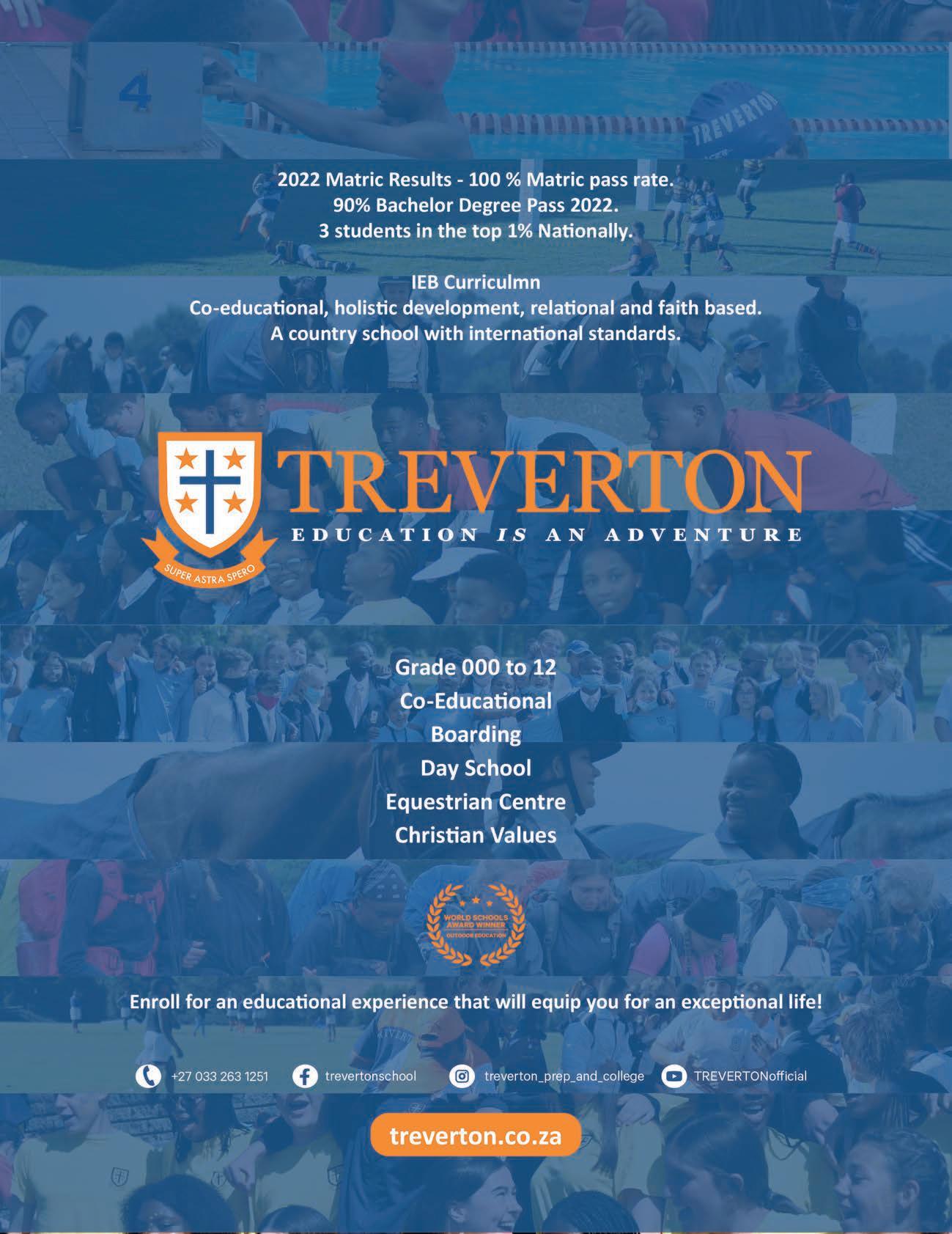
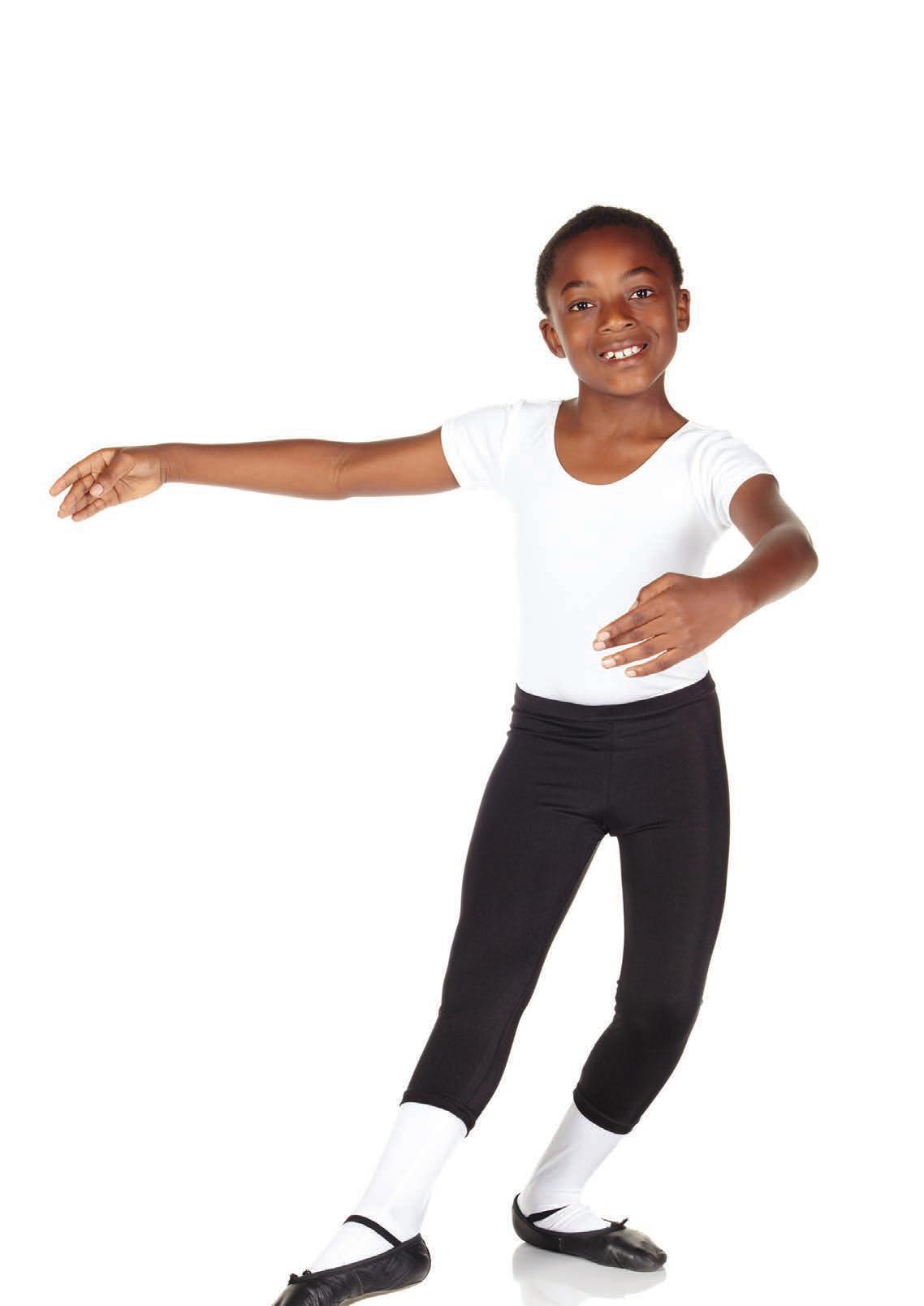
LIMPOPO MPUMALANGA AND NORTH WEST SCHOOLS 188 International School of South Africa, 190 Lebone II College, 192 Potchefstroom High School for Boys, 193 Potchefstroom High School for Girls, 194 Ridgeway College, 195 Stanford Lake College, 196 The Mountain Cambridge School, 198 Uplands The South African Schools Collection 2023 187


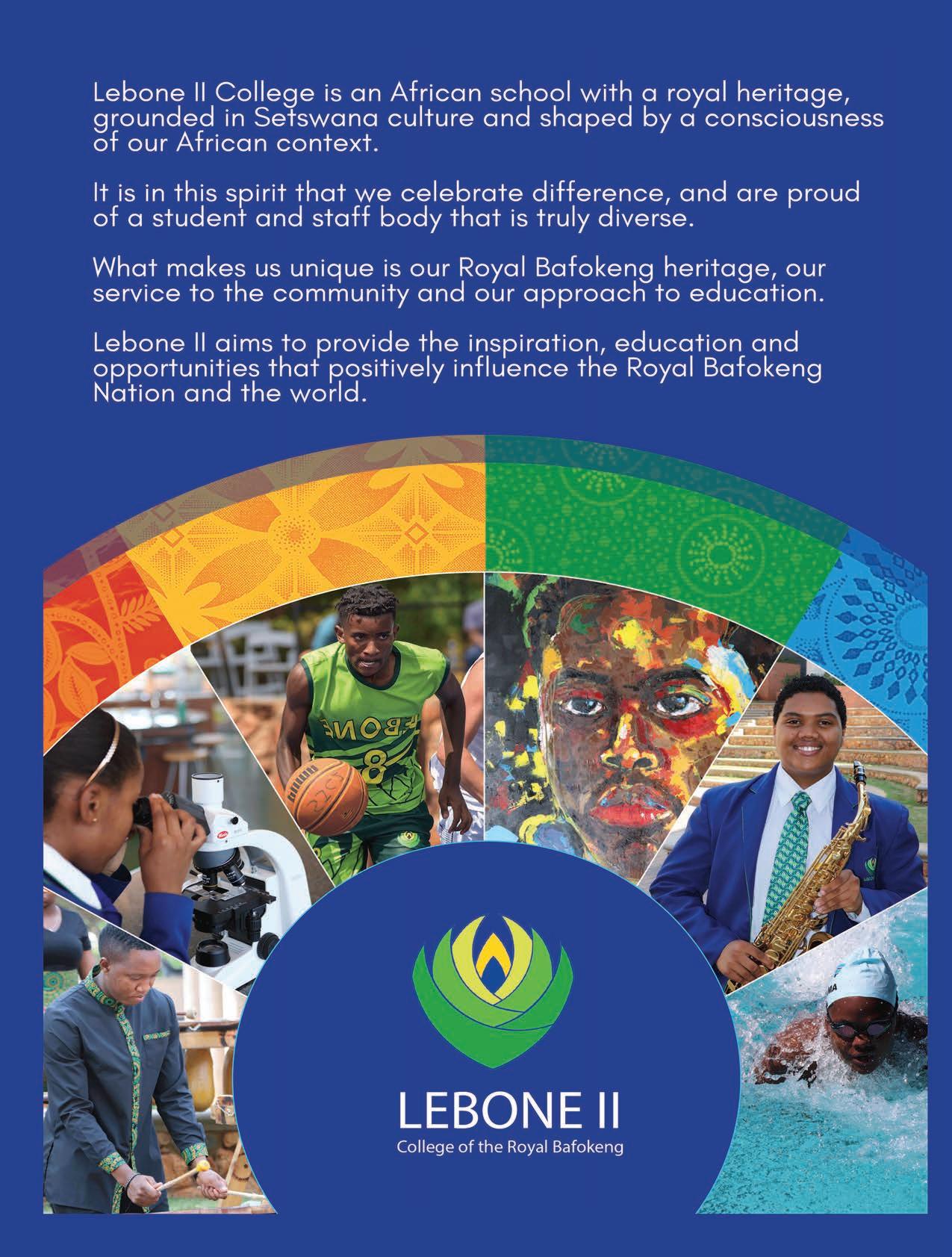
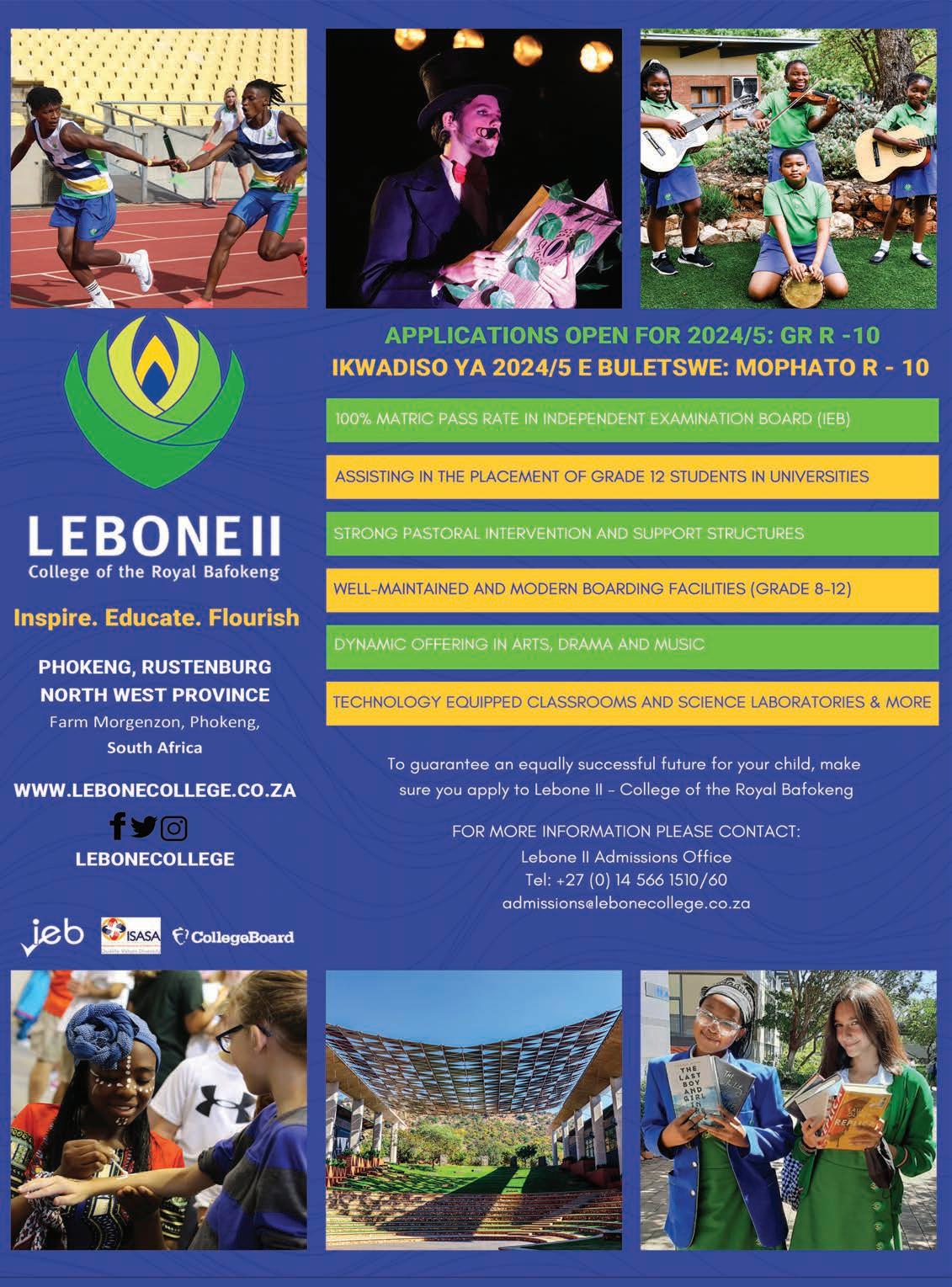

A Gem of a Girls’ High School
From a tiny grain of sand, emerges a wonderous pearl – priceless and beautiful – A Girls’ High School
The High School for Girls Potchefstroom is a gem of a school, steeped in more than a century’s traditions that have set our path and given us the vision to be the best. We remain true to our motto, Res Severa Verum Gaudium – hard work brings true joy – and take pride in our values:

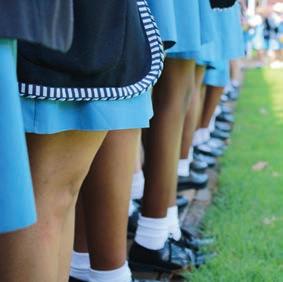
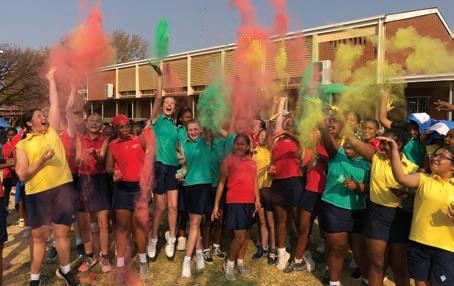

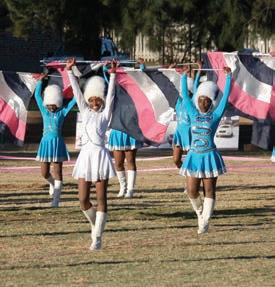
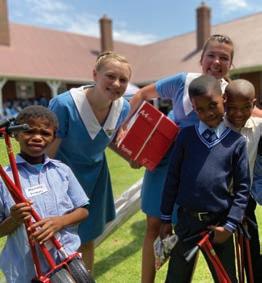


• Pride
• Respect
• Integrity
• Diligence
• Empathy
The school song, war cries, uniform, Pearl magazine, Gaudium newspaper and, of course, the ever-stylish basher have been a part of our repertoire for over a century.
At our school, it is these treasures that cultivate and nurture our girls’ high spirit, ethos and sense of unity. A culture of caring and a sense of social responsibility are deeply rooted in Girls’ High’s history.
Girls’ High has excellent resources to prepare and encourage young ladies who embrace independent, critical and creative decision-making. We offer a wide choice of subjects in Grades 10 to 12. Our educators are professional and leaders in their elds. They use a growth mindset, embrace a blended learning approach with the help of technology, and understand the nuances of teaching and relating to girls. We believe a holistic education is important for our girls’ development and therefore offer an extensive spectrum of both sport and cultural activities.
Every activity takes place on campus, which includes an astroturf, heated swimming pool, a fully equipped gym and wellness centre. This conveniently eliminates tiresome journeys in and around town.
Boarding, whether weekly or termly, allows girls to experience “the best of both worlds”. As boarders, our girls are able to concentrate on their academic studies and simultaneously take full advantage of participating in our enriching extracurricular programme. At Girls’ High, we believe that boarding should complement, not replace, family life.
Our school’s good name, its reputation and the traditions are synonymous with our success in all spheres: academic, sport, culture and service.

For more information:
Tel: +27 18 294 3228
Email: communications@girlshigh.co.za

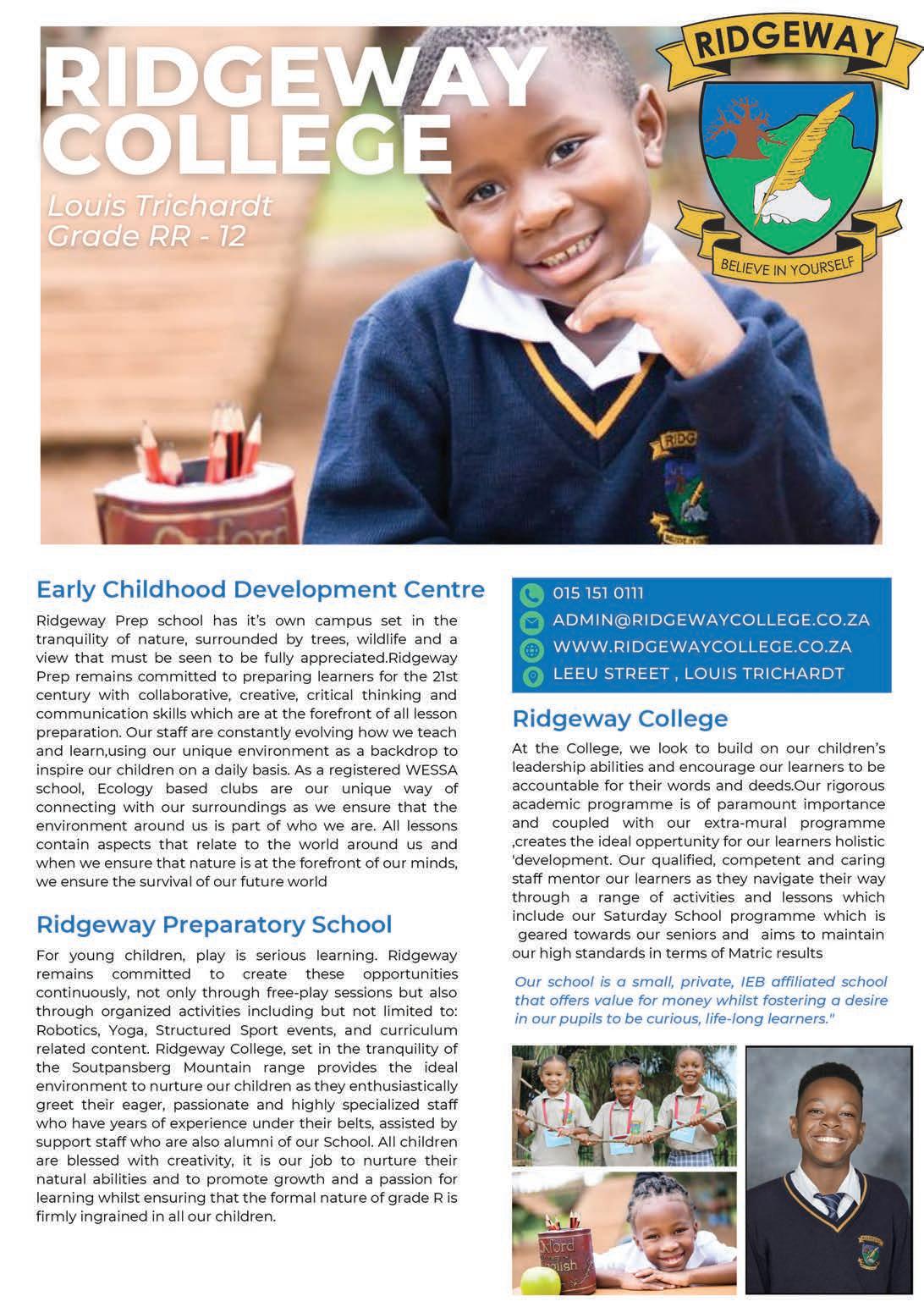
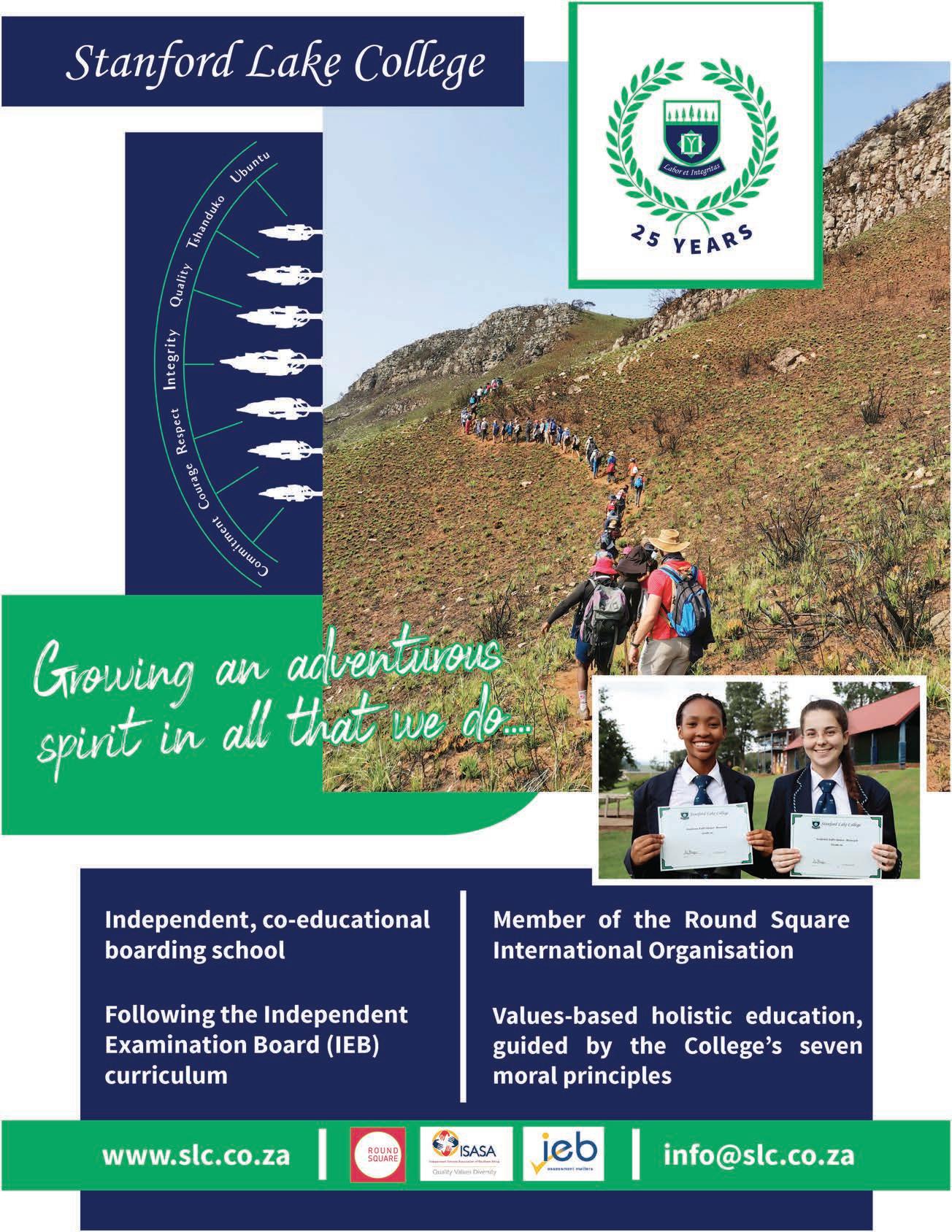
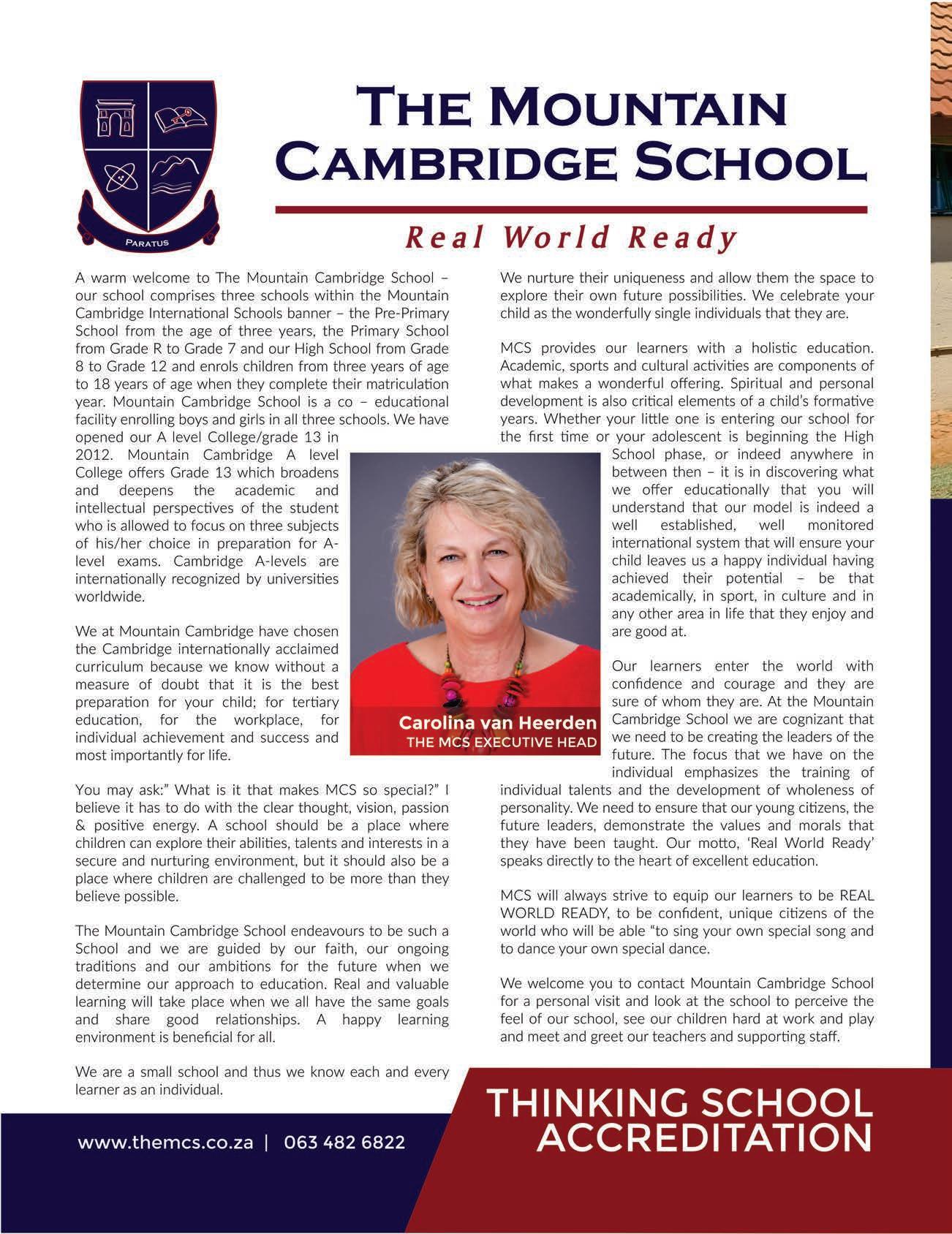
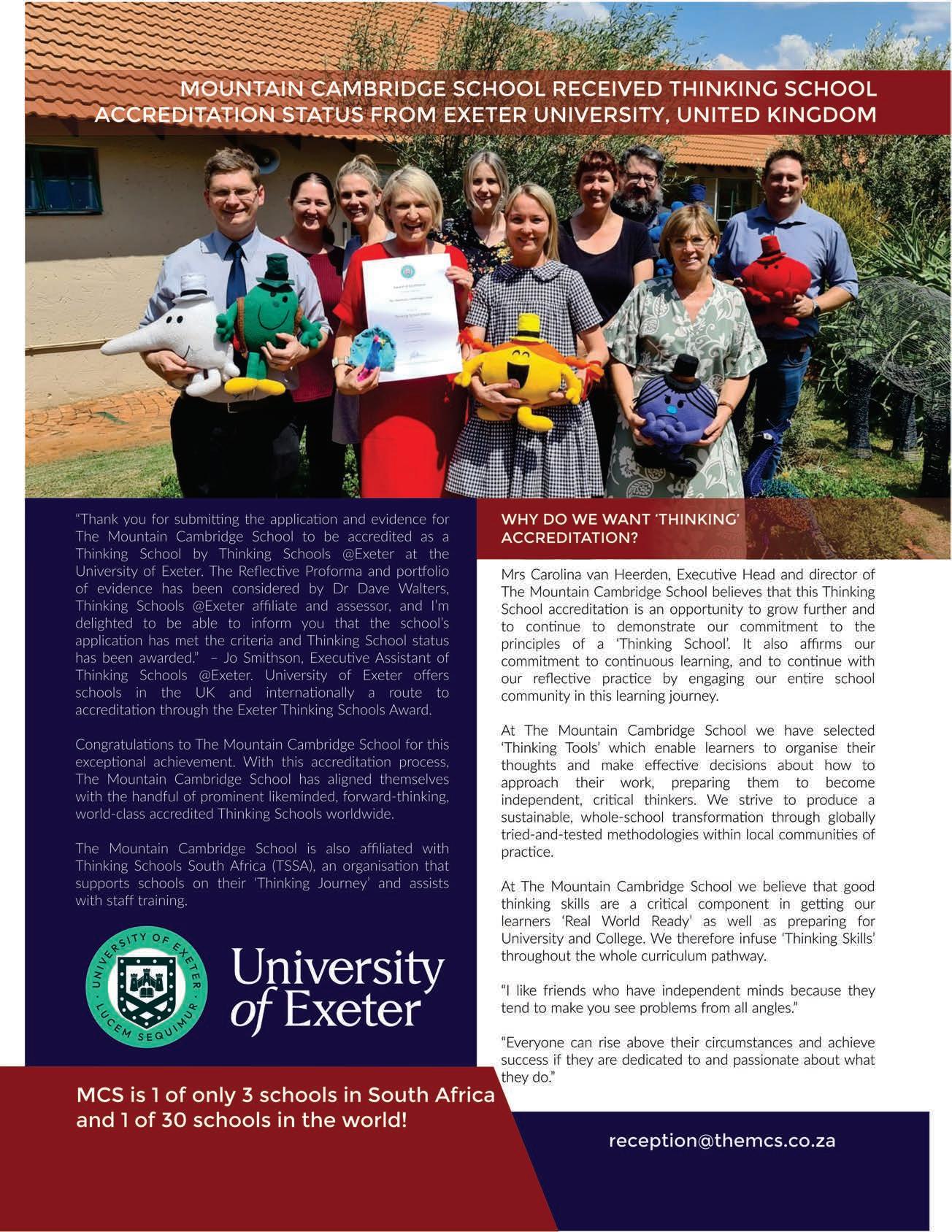
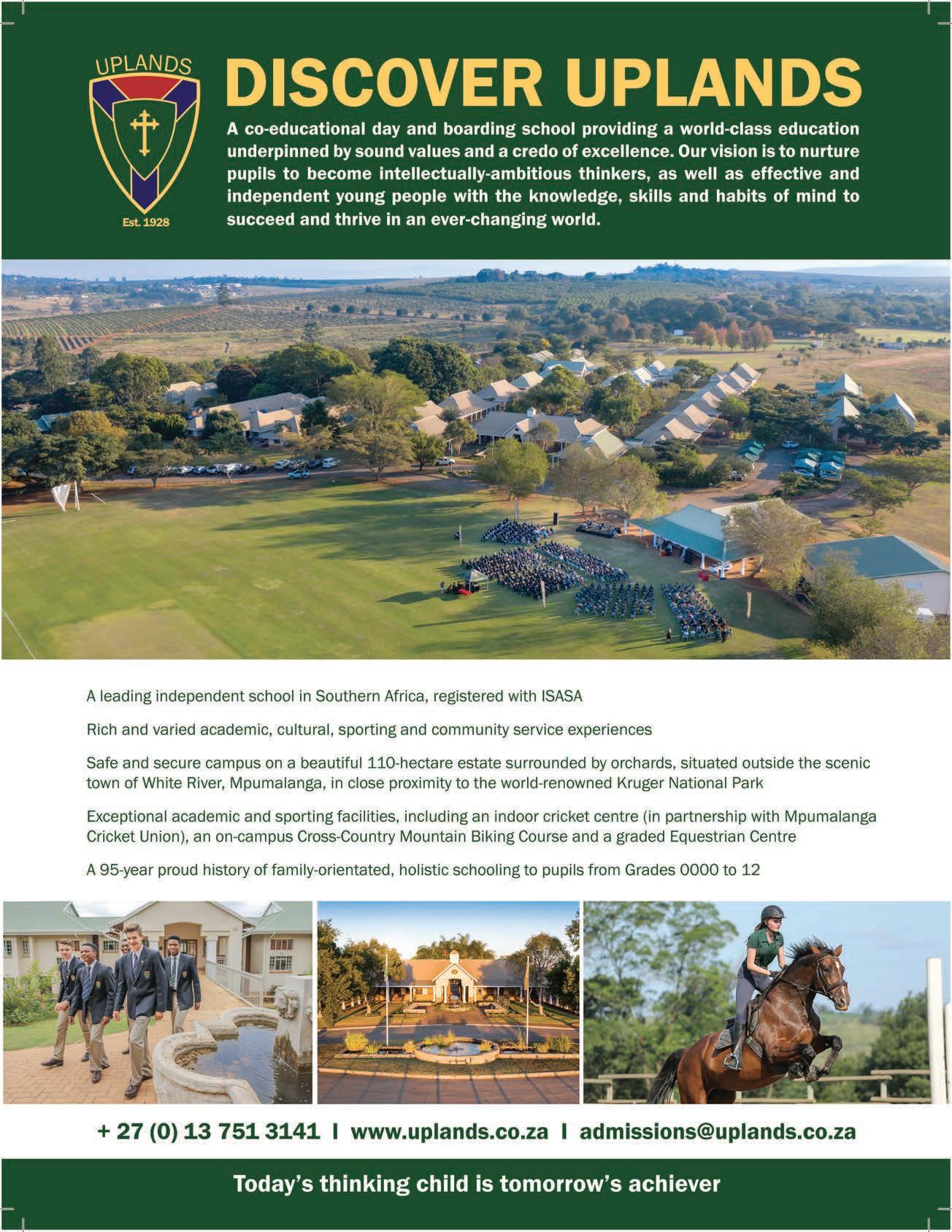
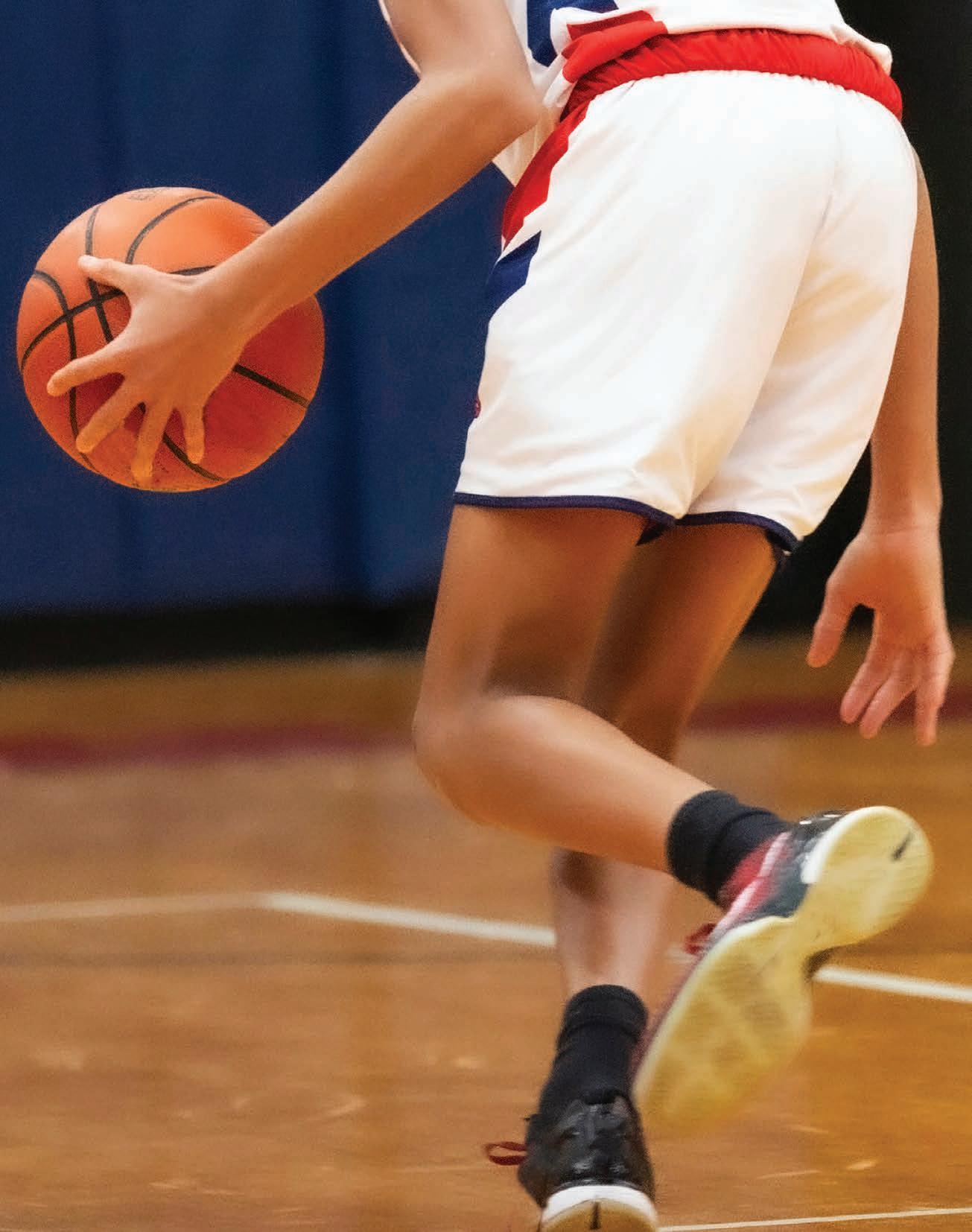
WESTERN CAPE SCHOOLS 200 The American International School of Cape Town, 202 Bridge House School, 203 Cannons Creek, 204 Christian Brother’s School St Johns, 205 Deutsche Internationale Schule Kapstadt, 206 EduBoost Cape Town, 207-209 Lycee Francais du Cap, 210 Micklefield School, 211 Oakhill School, 212 Rondebosch Boys’ High School, 213 Rustenburg Girls’ High School, 214 Rundel College, 215 South African College High School (SACS), 216 Tate International School 199 The South African Schools Collection 2023
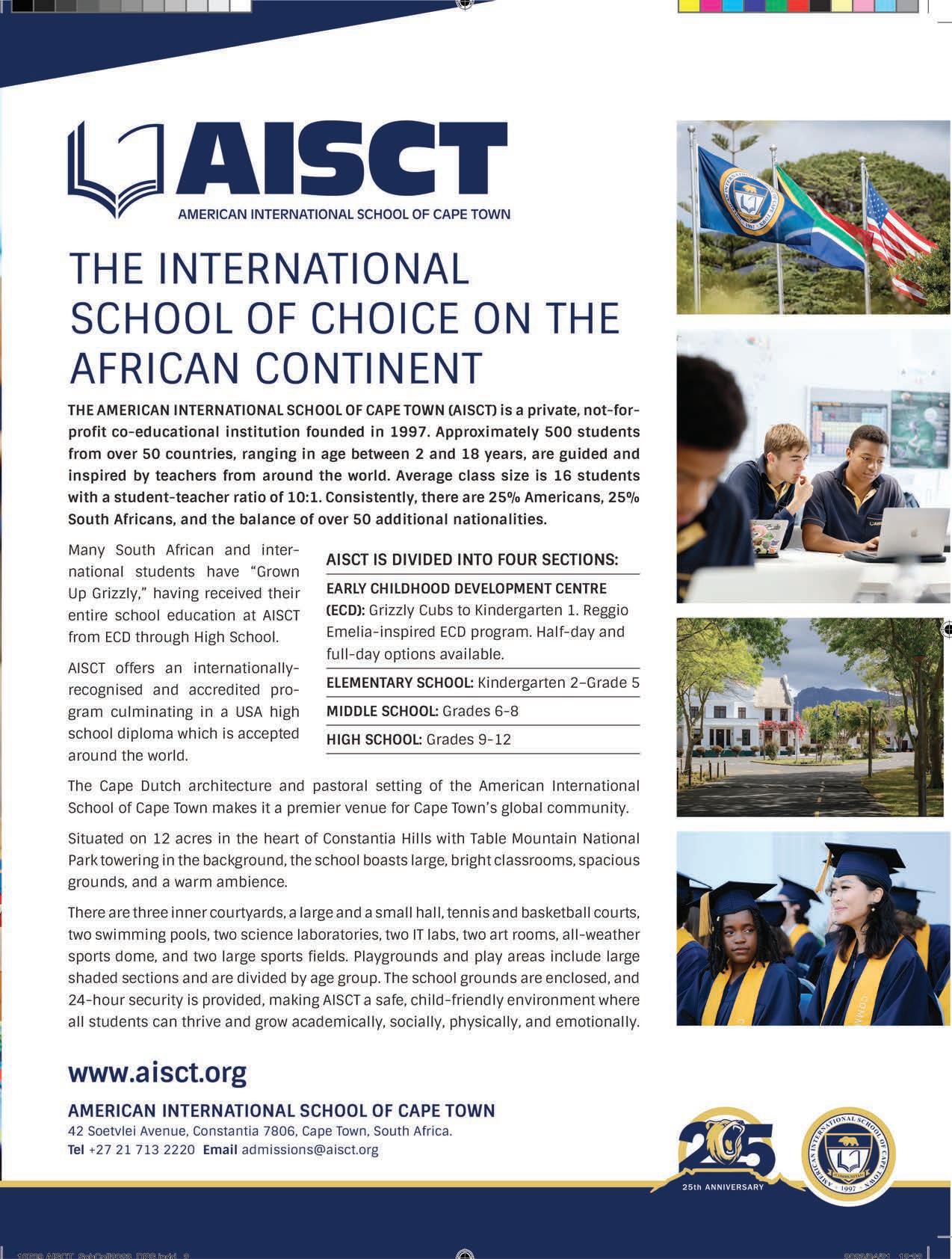
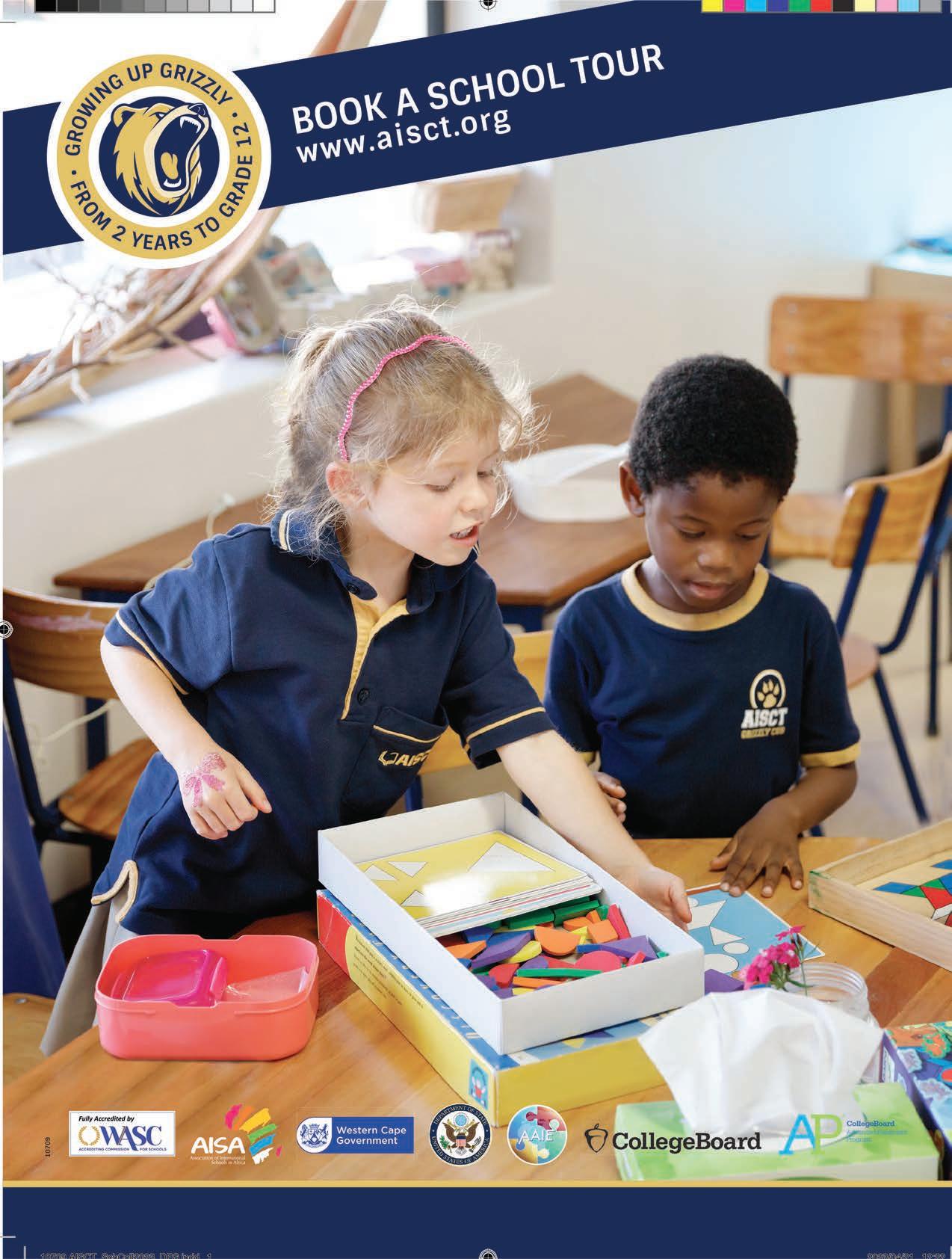



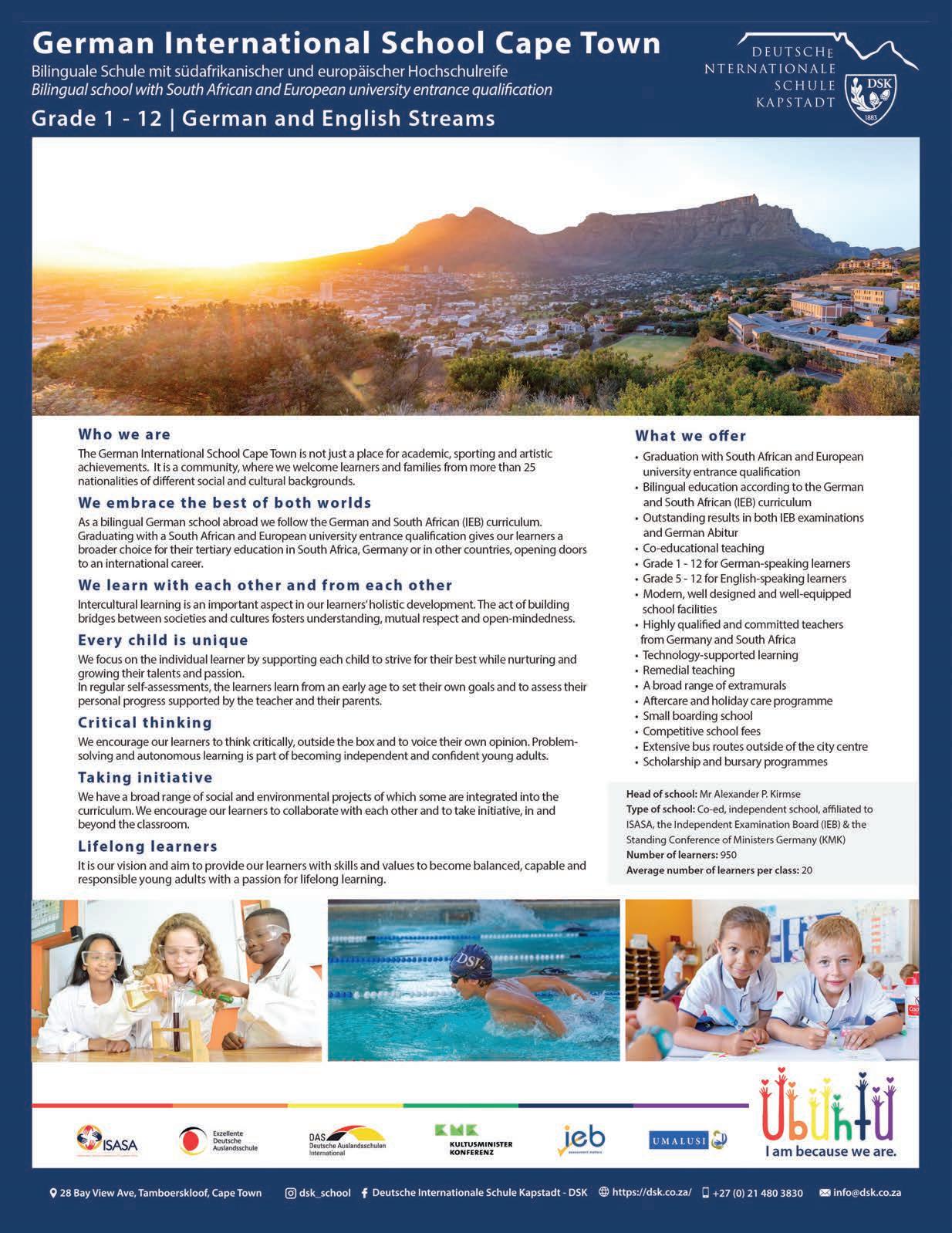

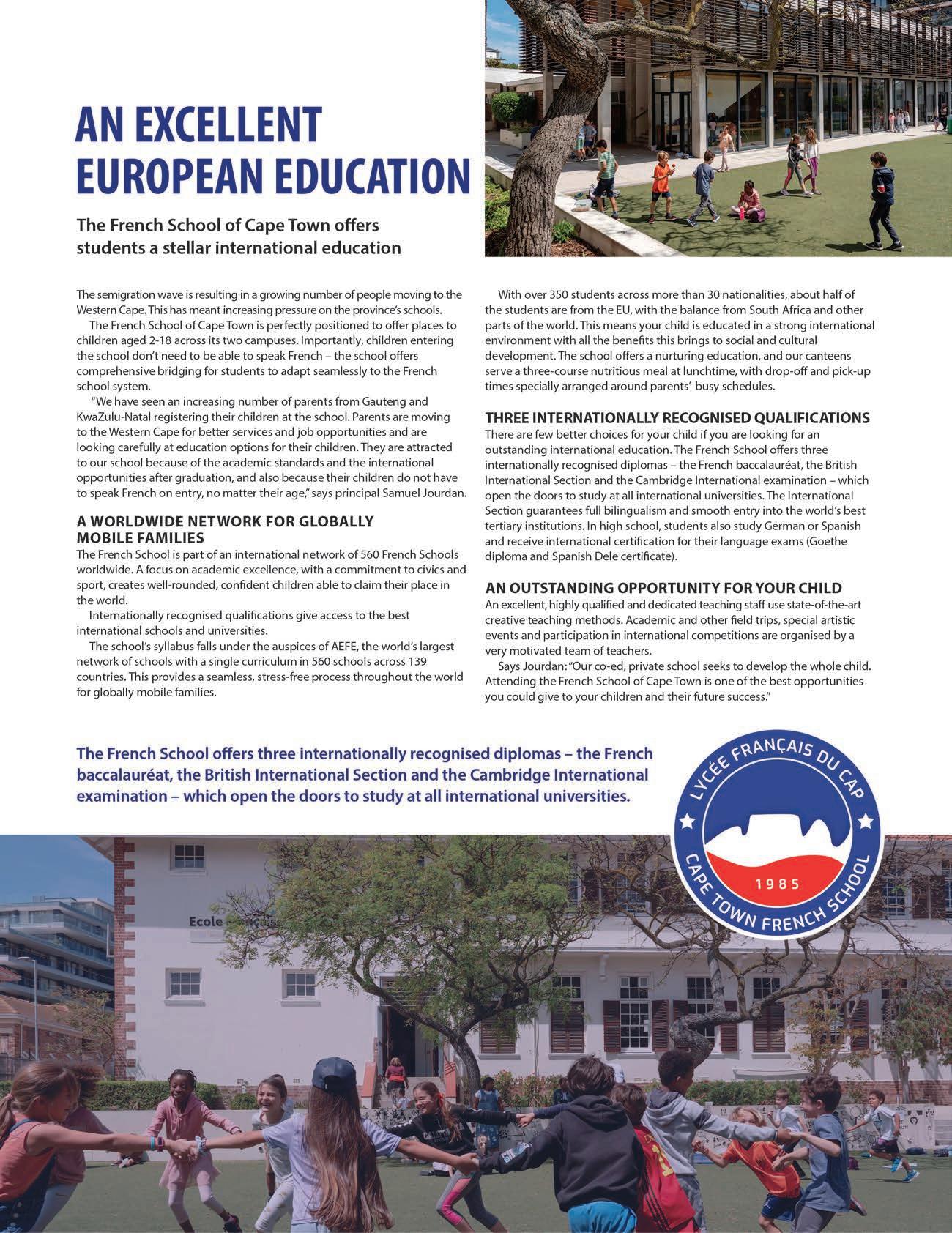
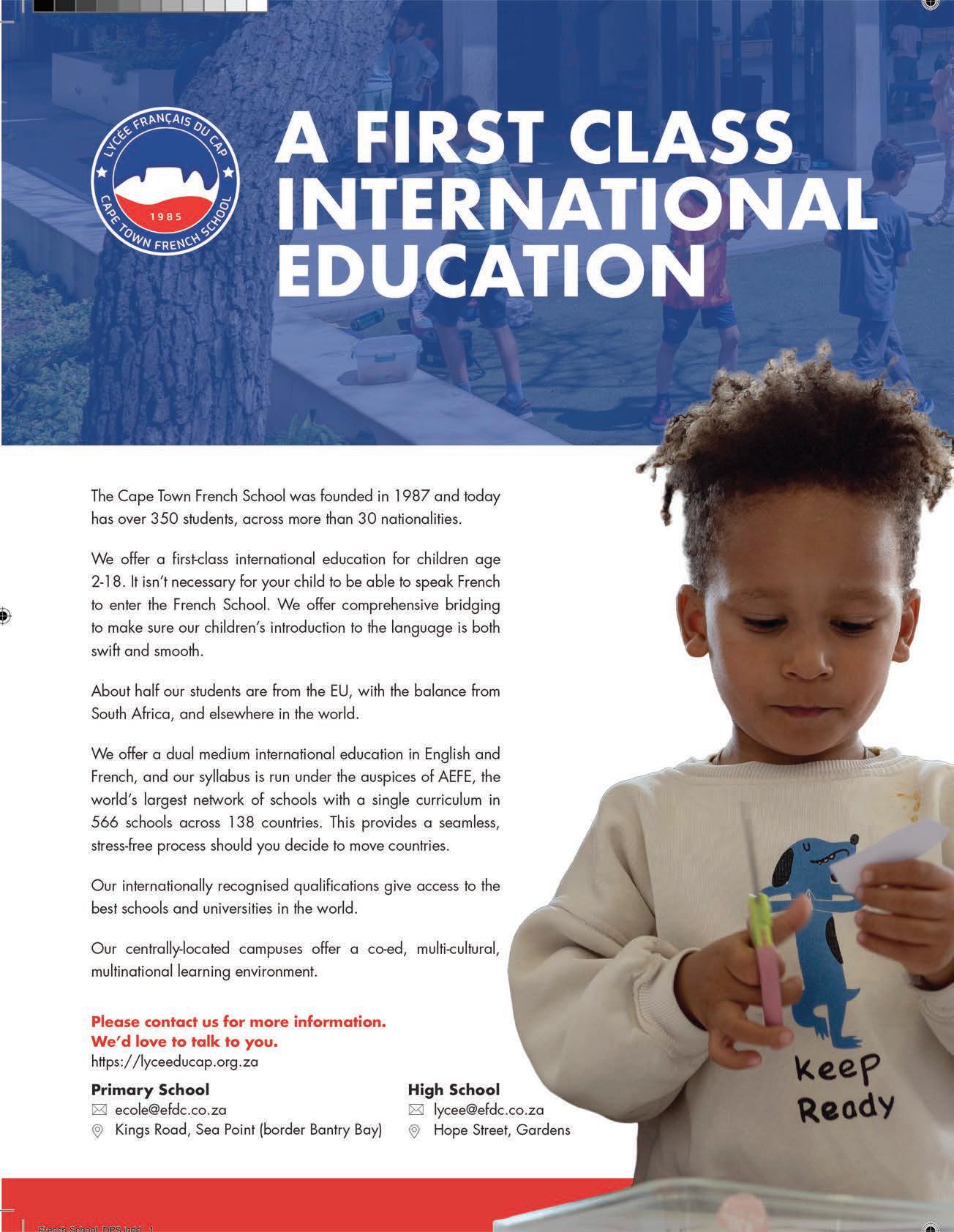
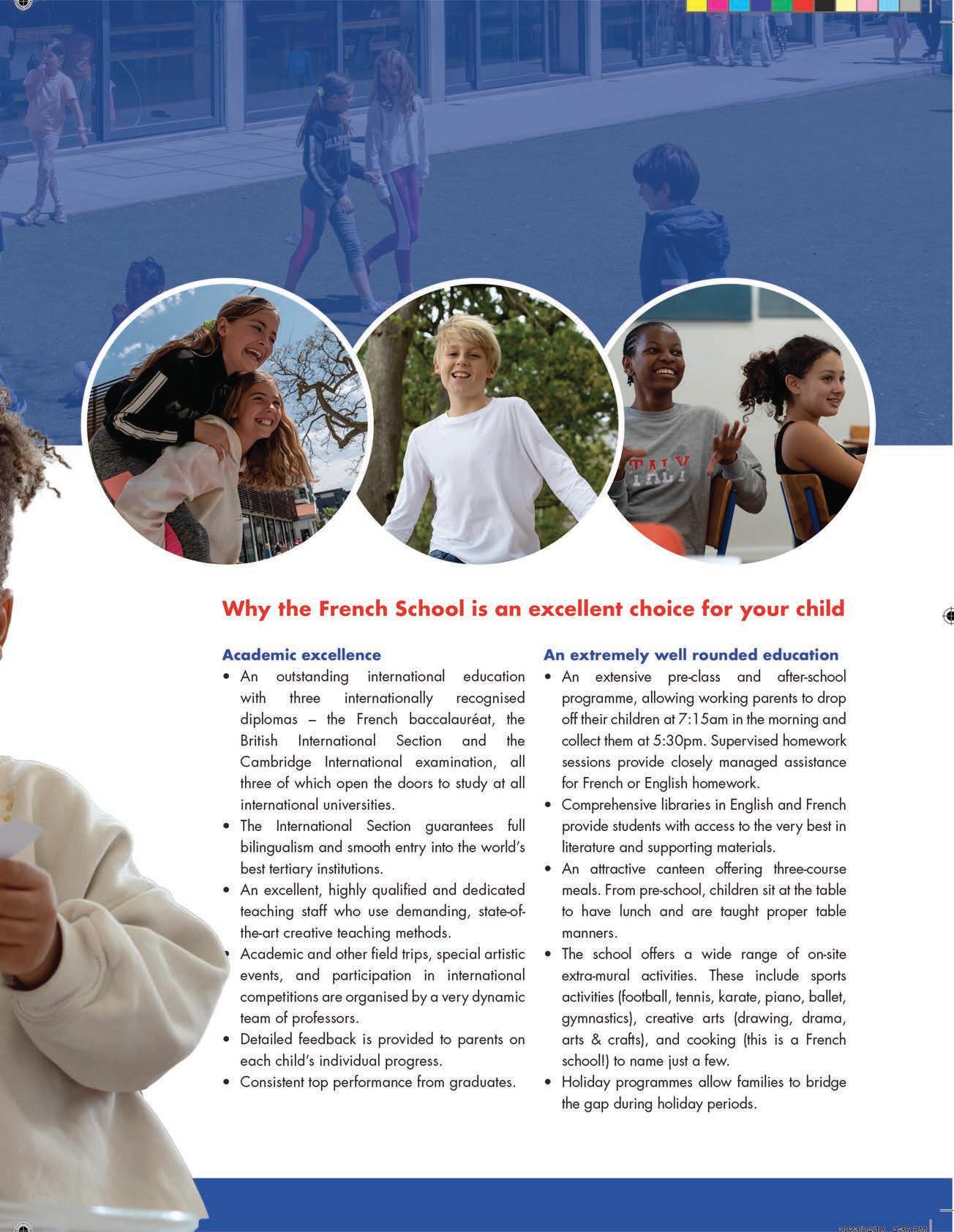
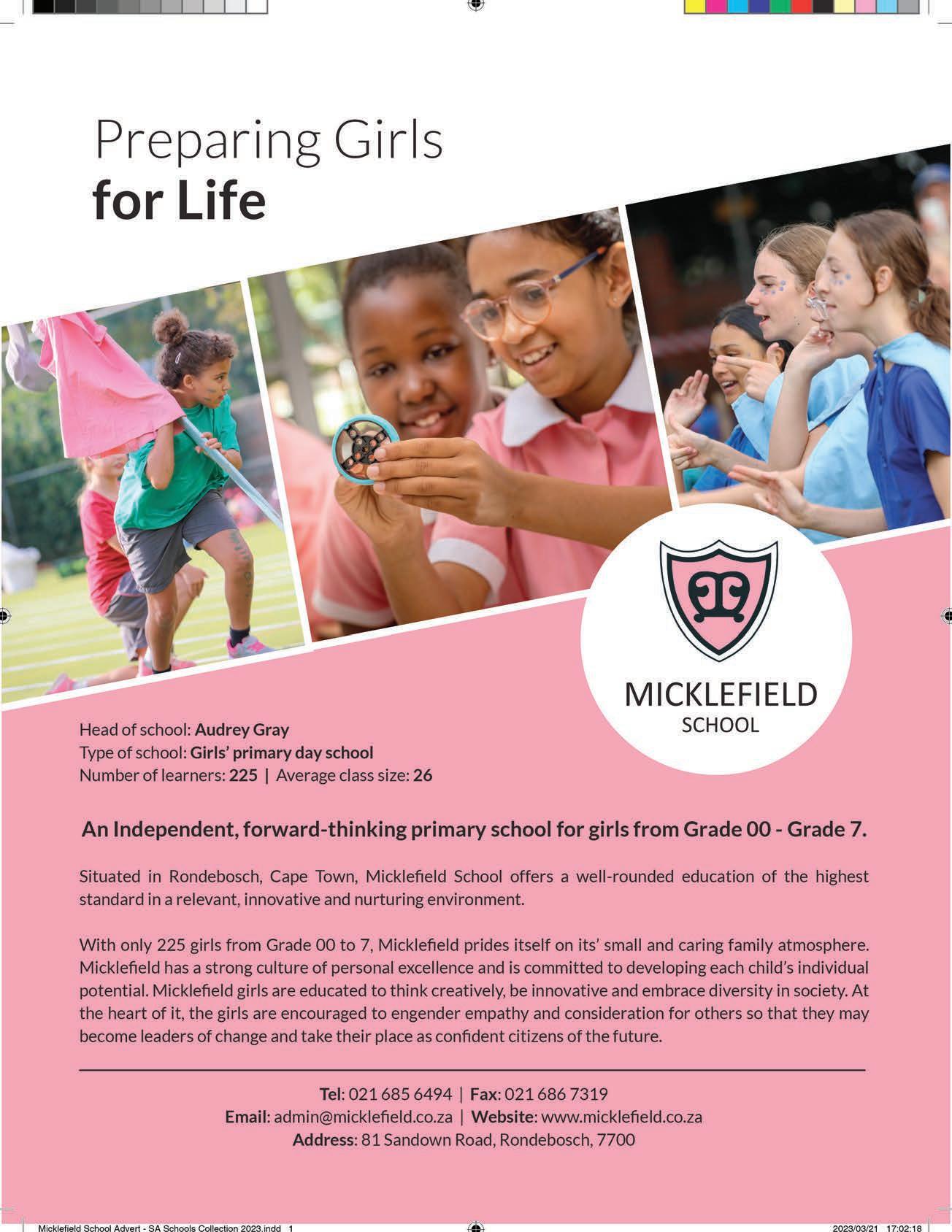
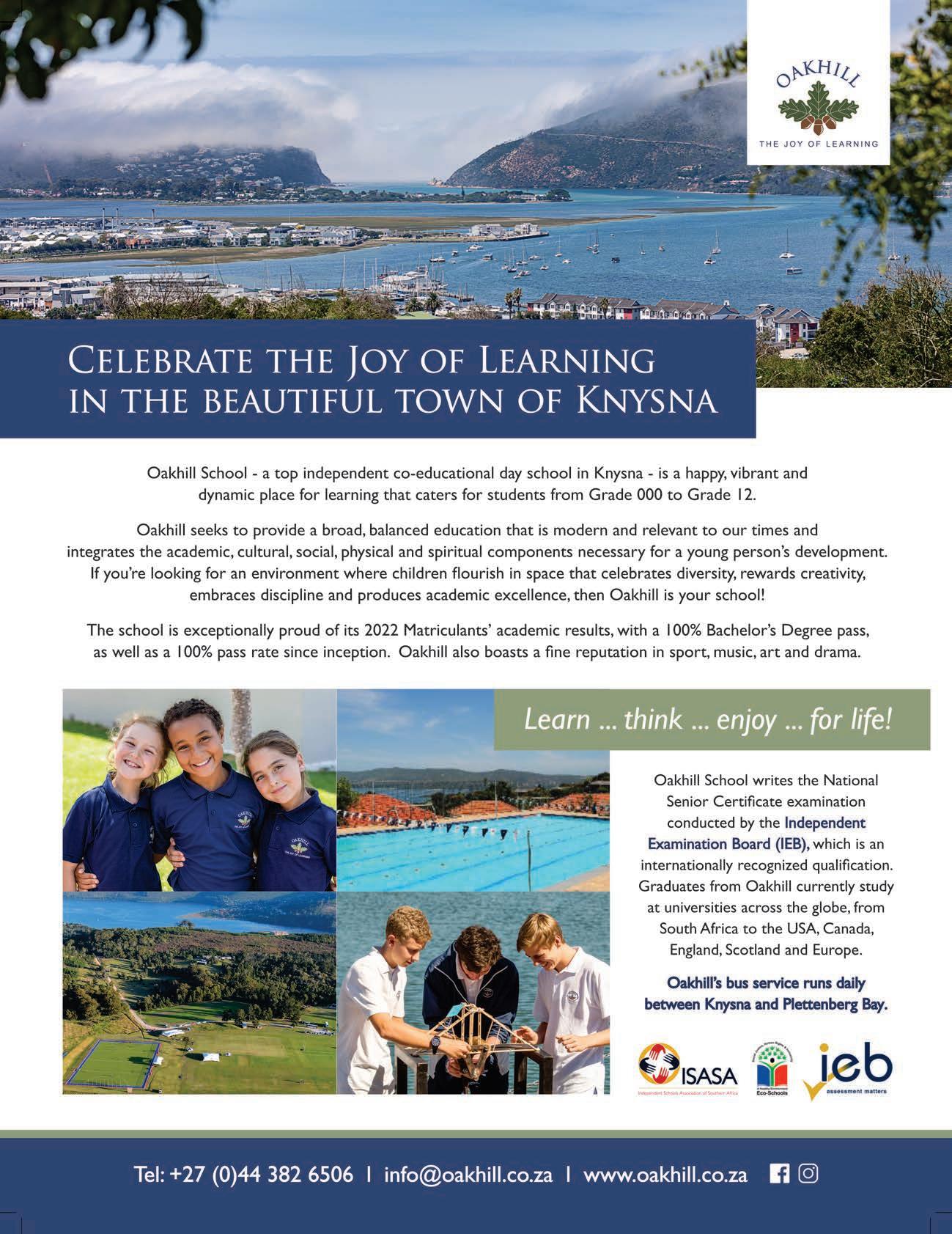


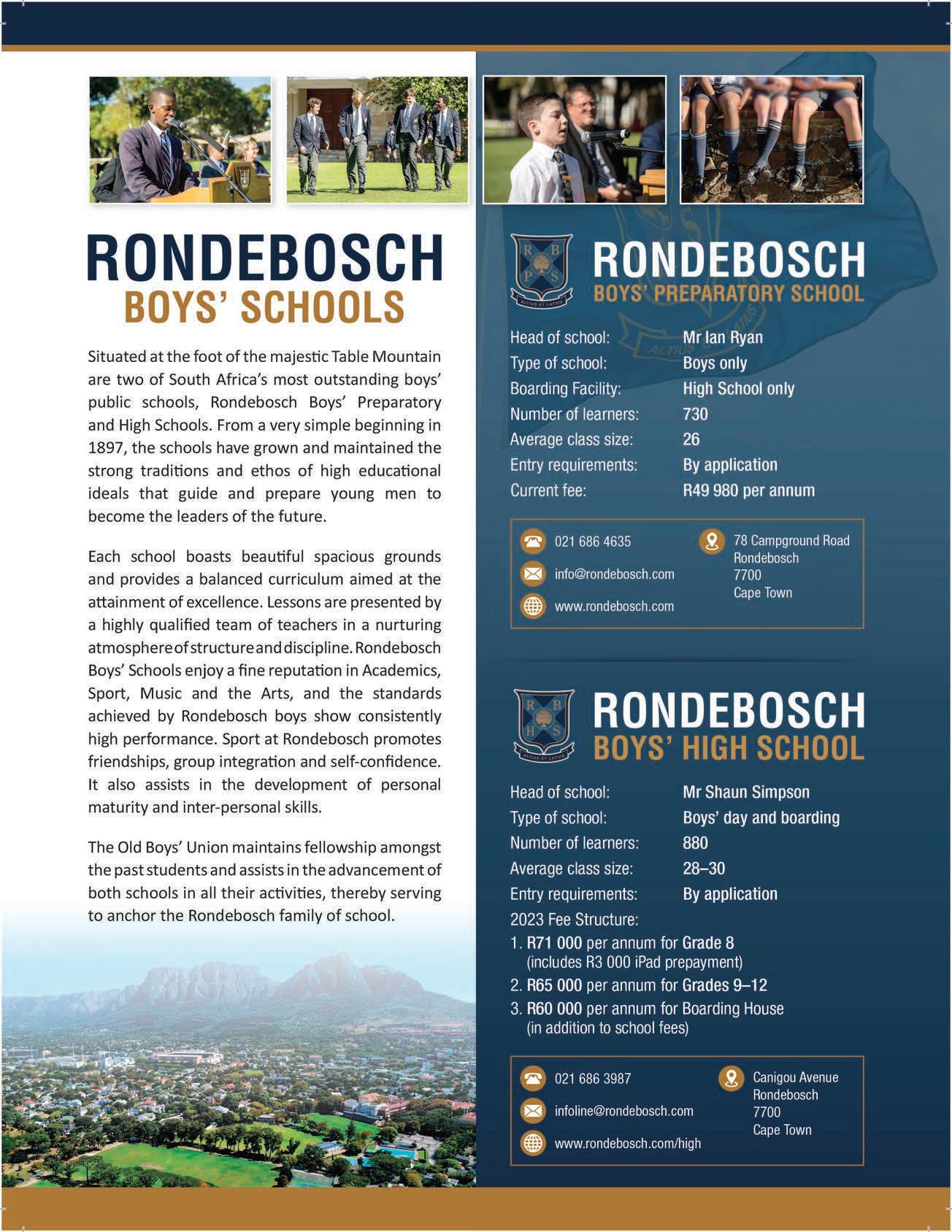
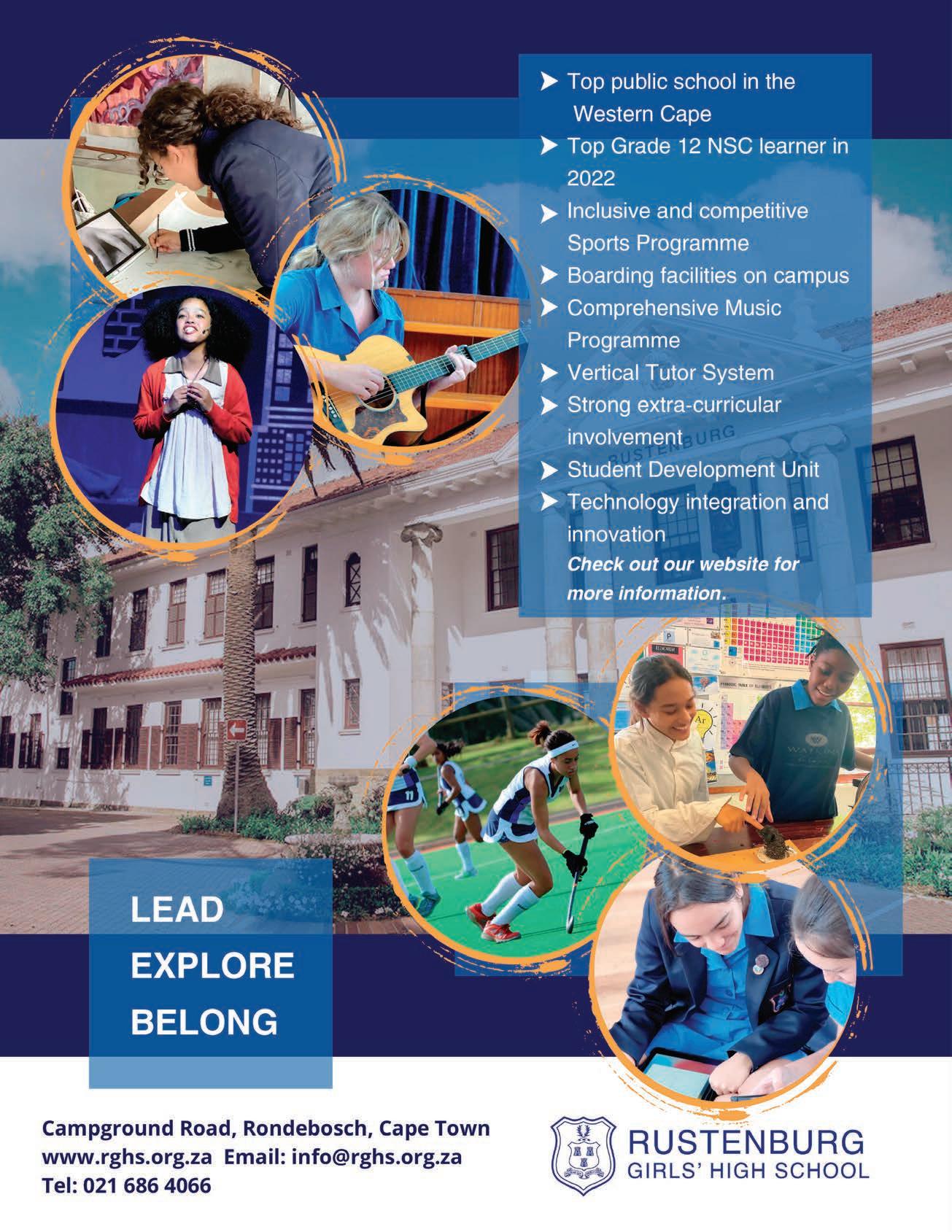



SOUTH AFRICAN COLLEGE HIGH SCHOOL (SACS)

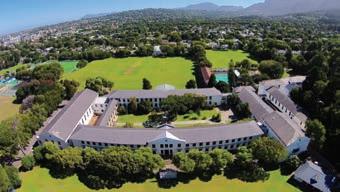
NEWLANDS GRADES 8 – 12
Description and history
South African College High School (SACS) is the oldest high school in South Africa, founded in September 1829. From humble beginnings in the Cape Town city centre, the modern campus was established in Newlands in the late 1950s, in arguably the most magnificent setting at the foot of Table Mountain and Devil’s Peak. The school prides itself on the balanced education it provides, the world-class facilities on offer, the fact that SACS men strive for excellence in all spheres of school life, and the strong emphasis placed on high moral values.
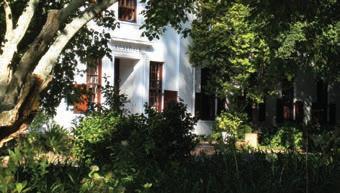

Scholarships and bursaries
The school offers several scholarships to boys entering Grade 8. SACS is one of only four schools worldwide to benefit from an annual Rhodes scholarship for postgraduate study at Oxford University in the UK. The Van Stavern Scholarship is awarded to an Old Boy to subsidise his studies at any university in the world. The Percy Montgomery Foundation offers part scholarships for rugby.
Academic facilities
The school’s top-class air-conditioned IT centre hosts 40 computers.
All classrooms are networked and have data projectors installed. The school has Wi-Fi connectivity around all its buildings. A lecture theatre, which can house 170 students, is fully equipped with the latest sound and media technology.
Extracurricular activities
The music department at SACS is nationally acclaimed and the Jazz Band, Concert Band, Choirs and Madrigal Ensemble bring great credit to the school. SACS offers GCSE in Maths and A levels in Biology, Chemistry, English and Maths. These are offered after hours and completed in the middle of the Grade 12 year.
The highest quality of sportsmanship is non-negotiable, and participation by the masses is the main aim. Every boy is encouraged to play a summer and a winter sport. There is a 400m2 gym facility, arguably one of the best school gyms in South Africa. Annual derbies against Bishops, Wynberg, Rondebosch, Paarl Gym, Paarl Boys, Paul Roos and Boland Agricultural College ensure the highest standard of sport in the country.

Boarding facilities
Forty-five Grade 8s and 9s are accommodated in Michaelis House, while the 90 senior boys are housed in Rosedale.
Head of school: Mr B Grant
Type of school: Senior boys’ school
Number of learners: 880
Average class size: 22
Entry requirements:
Fees per year:
School fees: R57 200
Hostel fees: 63 000
WC The South African Schools Collection 2023 215
Tel: 021 689 4164 | Fax: 021 685 2669 | admissions@sacollege.org.za | www.sacollege.org.za | Newlands Avenue, Newlands 7700
Application and interview process
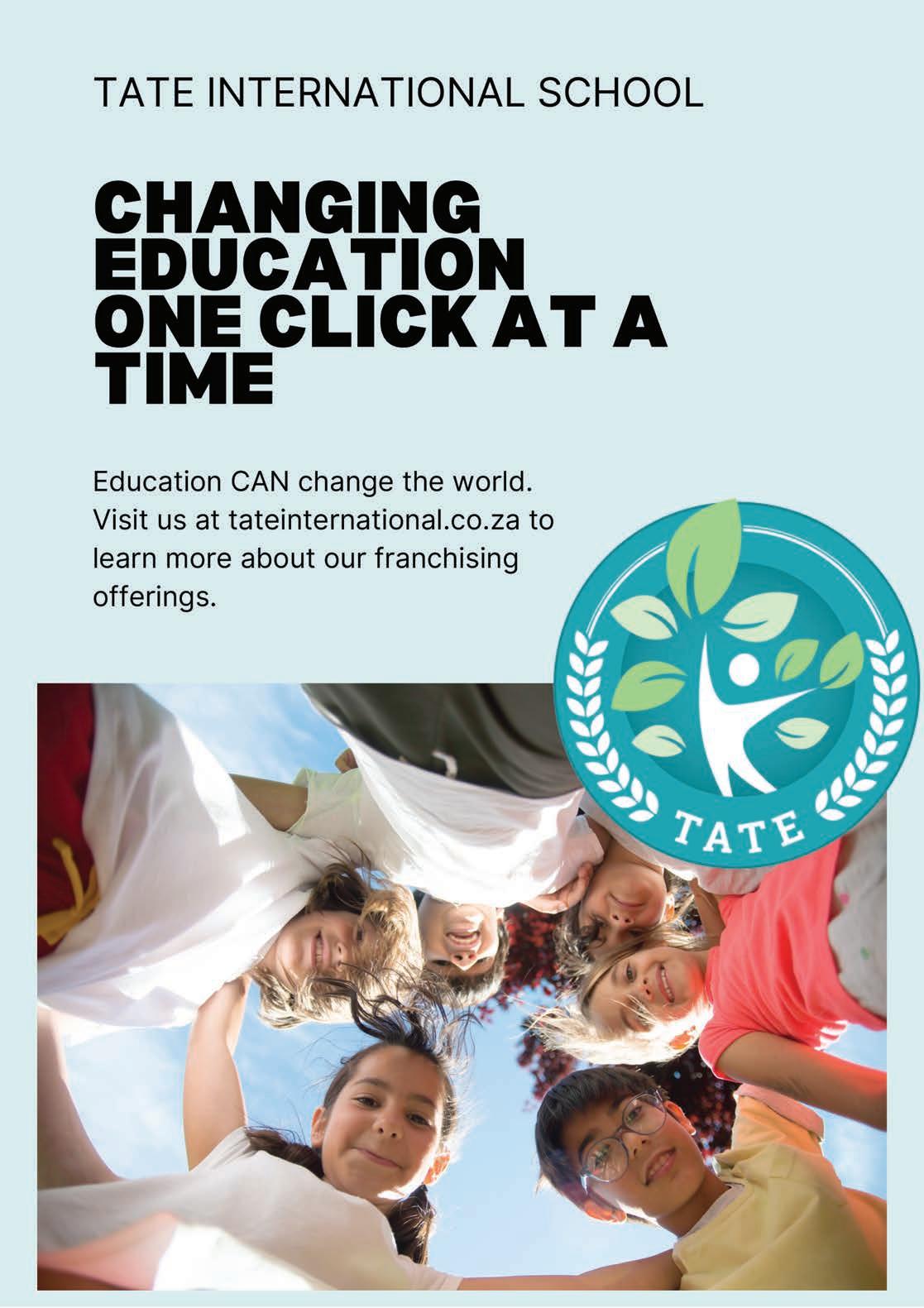
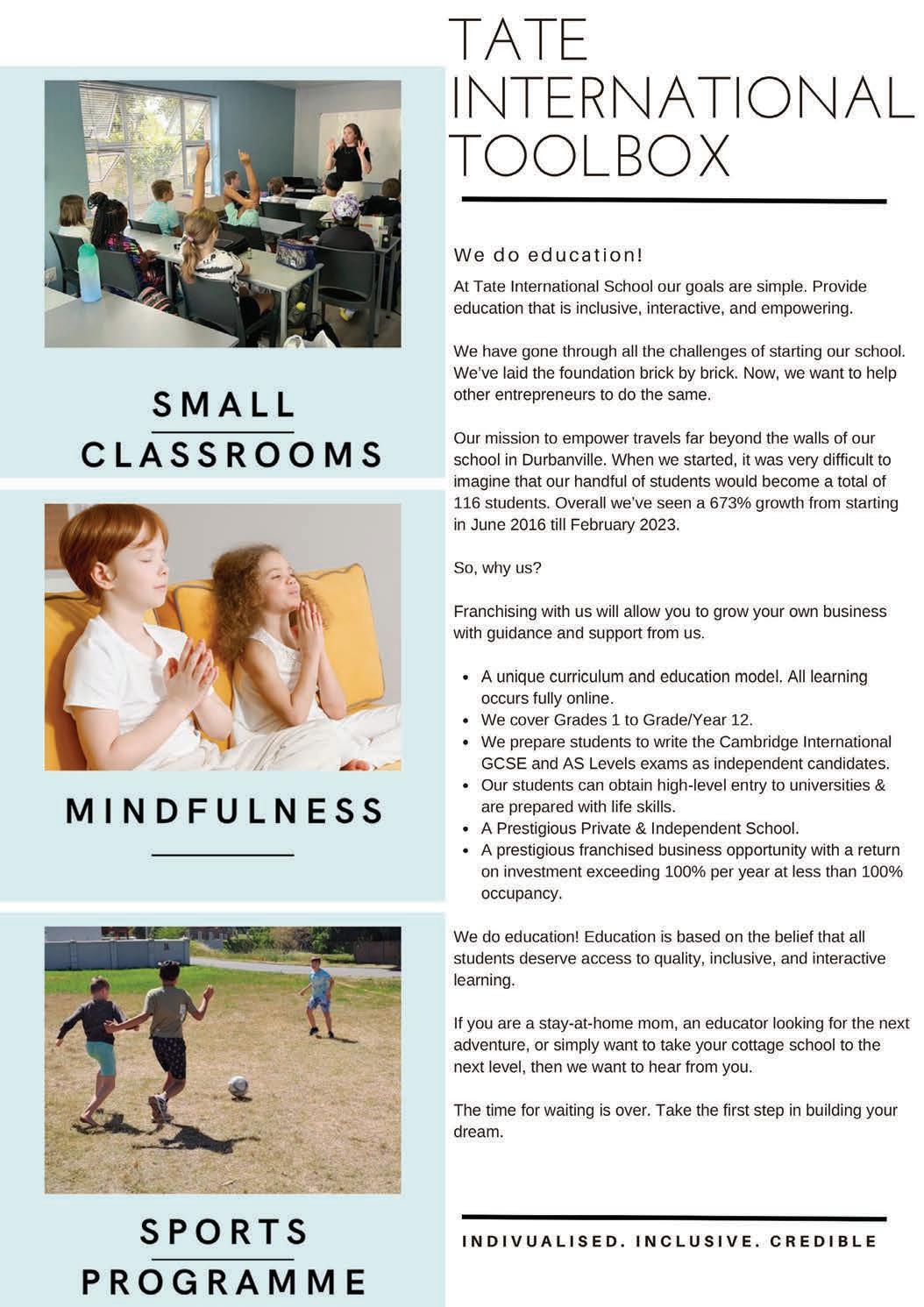

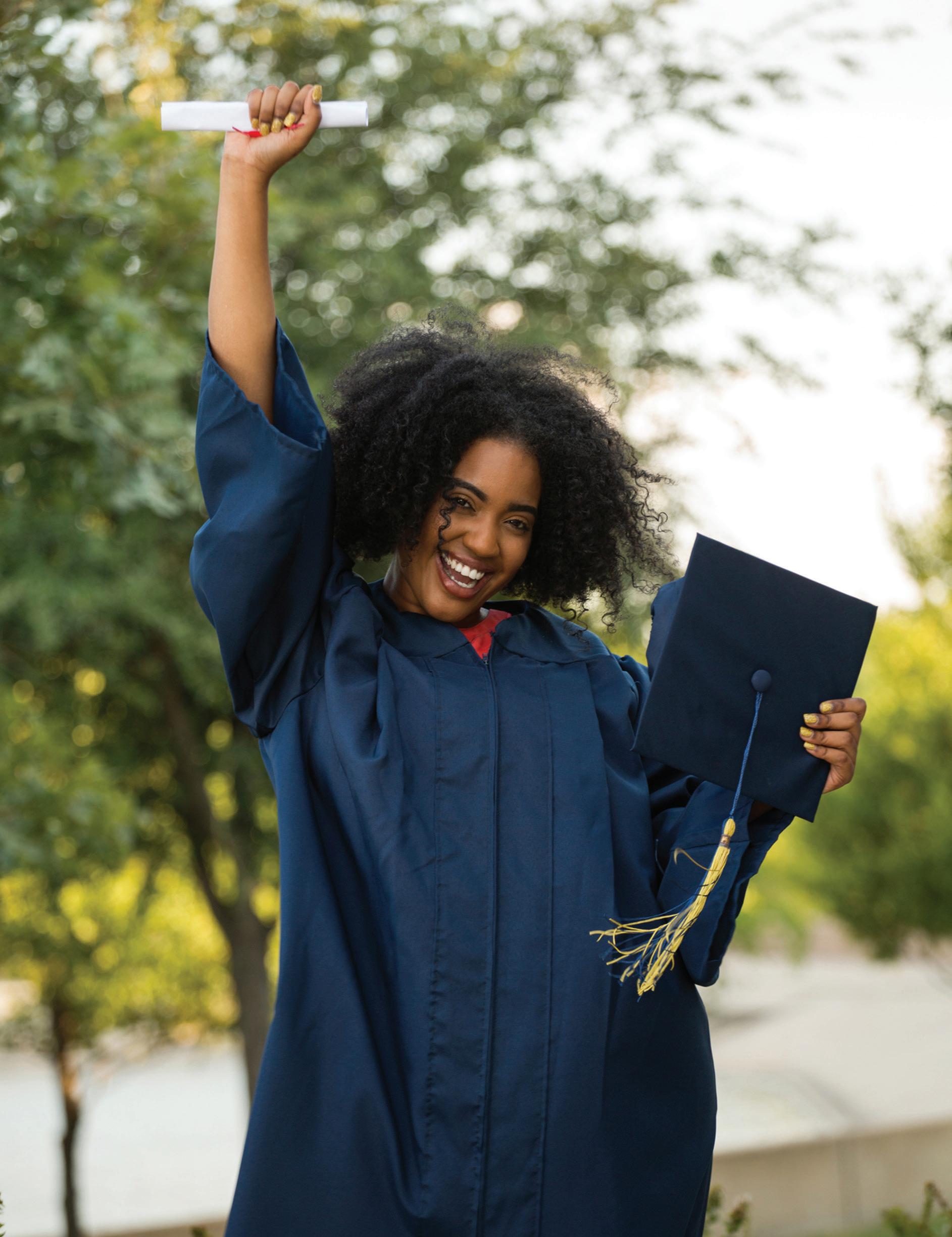
TERTIARY SECTION 220
219 The South African
2023
Boston City Campus, 222 South African Institute for Chartered Accountants (SAICA), 224 University of Pretoria
Schools Collection
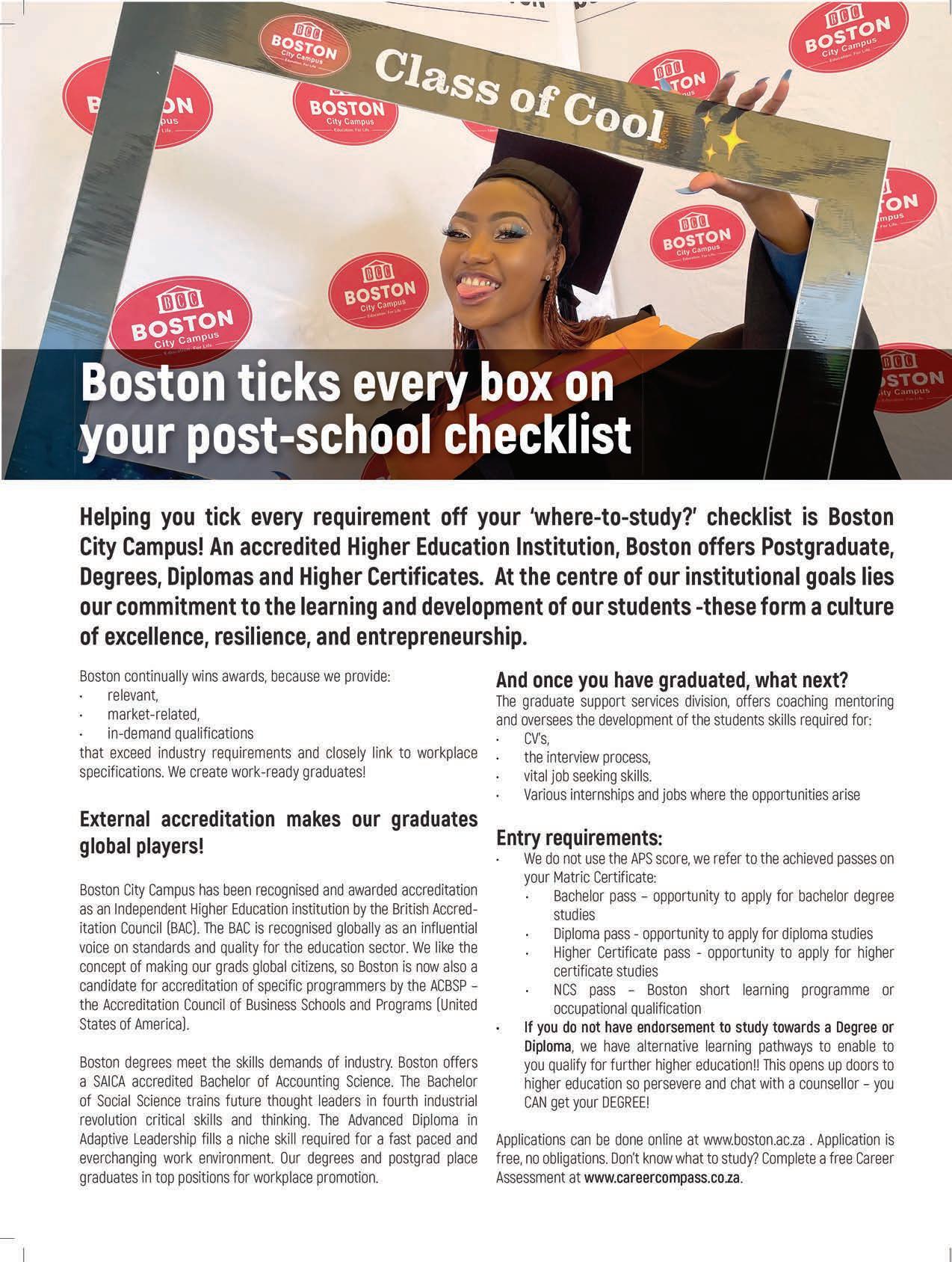
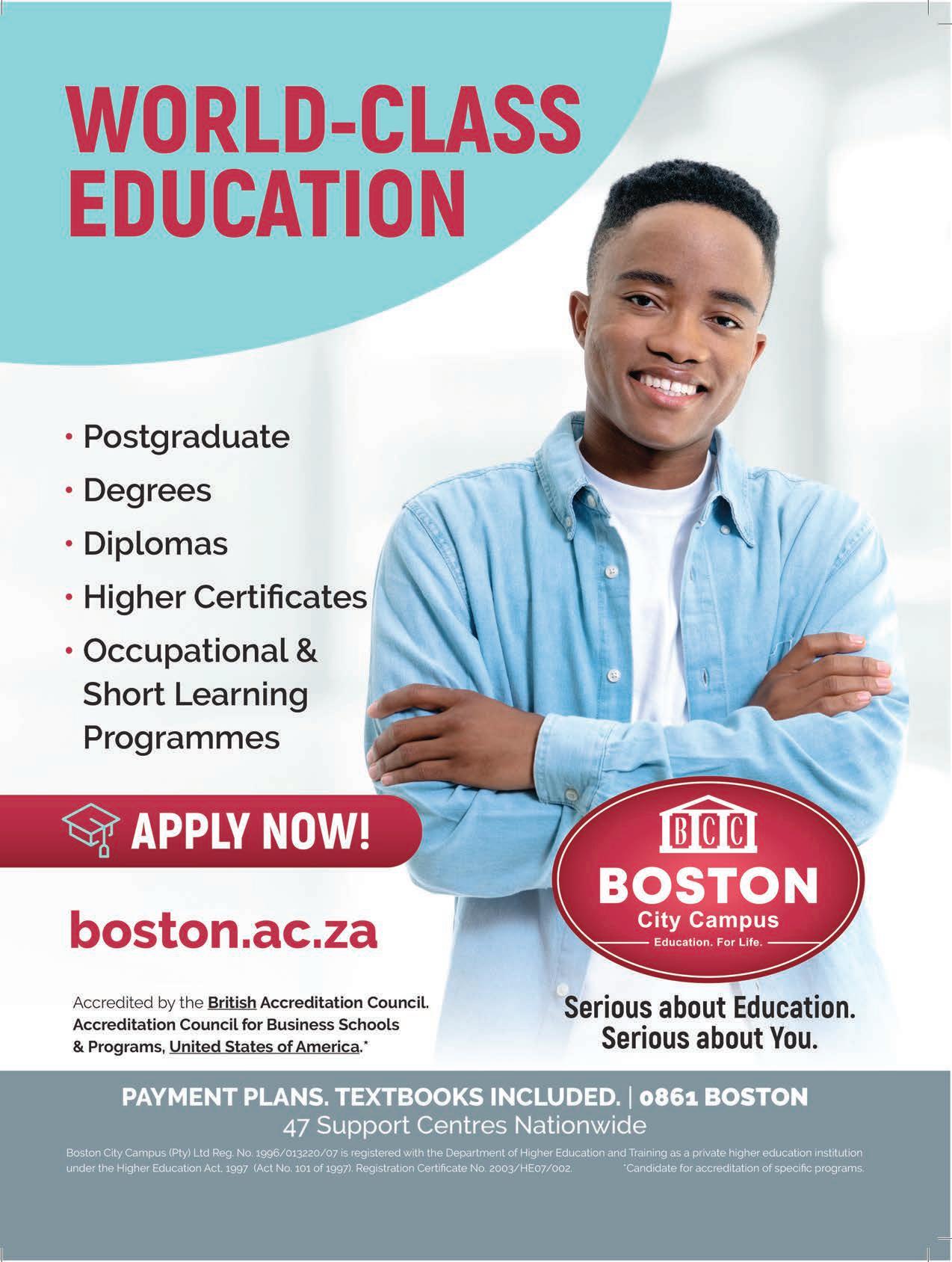
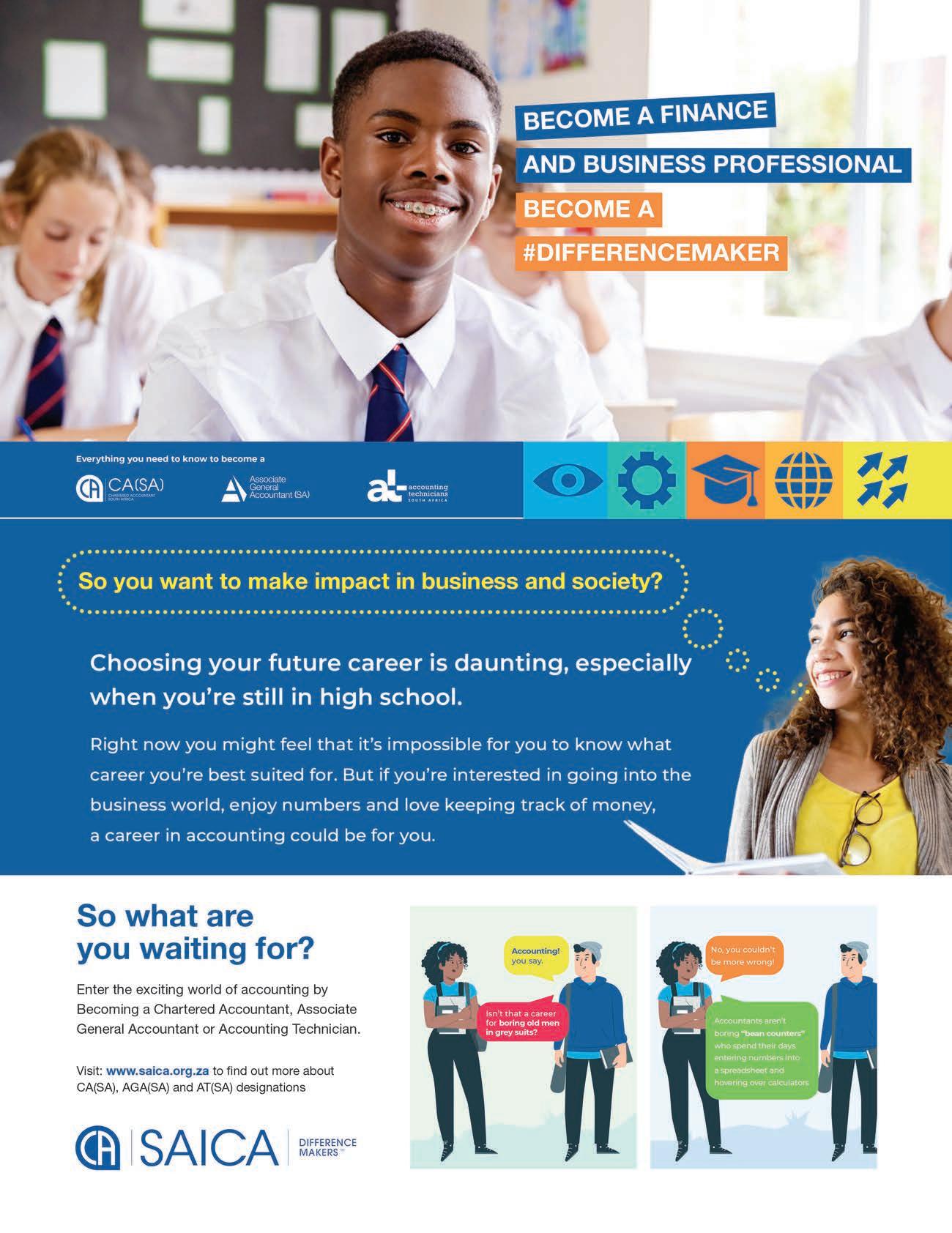
South African Institute Of Chartered Accountants

The three SAICA designations
The South African Institute of Chartered Accountants offers three designations for high school students interested in pursuing a career in accounting


The three designations offered by The South African Institute of Chartered Accountants (SAICA) are recognised and respected within the accounting profession in South Africa. Here’s an introduction to each designation.
CHARTERED ACCOUNTANT – CA(SA)
The CA(SA) designation is the most prestigious and sought-after designation offered by SAICA. Chartered accountants are highly skilled professionals that have completed a rigorous academic and practical training programme. They possess a broad range of financial and business knowledge, enabling them to provide expert advice on auditing, accounting, taxation and financial management. Chartered accountants often hold senior positions in accounting firms, corporations, government organisations, and nonprofit entities.
ASSOCIATE GENERAL ACCOUNTANT – AGA(SA)


The AGA(SA) designation is an intermediate-level designation offered by SAICA. It is designed for individuals that have completed the fi rst part of the CA(SA) qualifi cation but not yet completed the full programme. AGA(SA) professionals have a solid foundation in accounting principles and practices, making them valuable contributors in various accounting roles. They often work in positions such as junior accountants, assistant auditors or fi nancial analysts, gaining practical experience while working towards completing the CA(SA) qualifi cation.
ACCOUNTING TECHNICIAN – AT(SA)
The AT(SA) designation is an entry-level designation offered by SAICA. It is aimed


at individuals that are starting their careers in accounting but do not yet meet the requirements for the CA(SA) qualification. Accounting technician professionals have a strong understanding of basic accounting principles and are skilled in financial record-keeping, budgeting and tax compliance. They typically work under the supervision of CA(SA) or AGA(SA) professionals in roles such as junior bookkeepers, accounts assistants or tax clerks.

ADVERTORIAL The South African Schools Collection 2023 223
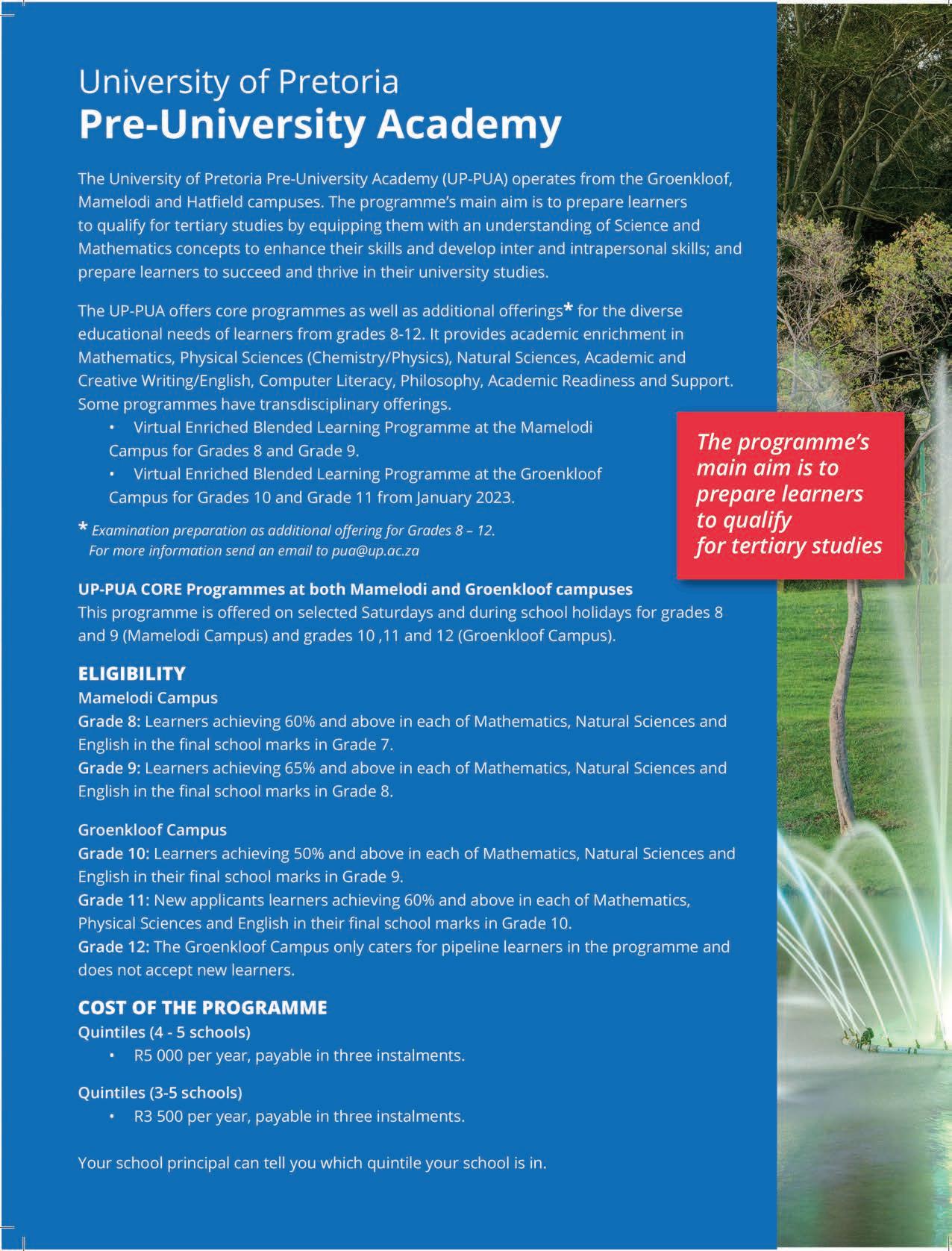

Opening the doors to overseas study
Agrowing number of South African students are showing interest in overseas study, says Nico Eleftheriades of Global Education. “South Africa has great tertiary institutions, but there aren’t enough places for students and the quota system may affect how many students are allowed into a programme,” he explains.
Many programmes aren’t available locally and, in other cases, it’s the structure of the course that’s the drawcard. In the United Kingdom, for example, “sandwich pack” degrees, which offer practical experience as a work component, are growing in popularity. This experience often leads to job offers, but even if it doesn’t, the student gains valuable insight into the international world of work – a valuable differentiator in a highly competitive job market.
This is all the more important given South Africa’s high unemployment rates, points out Amy Karabus, a student adviser at Sable International Study Abroad. She adds that Sable’s abroad department works closely with immigration departments in the United Kingdom (UK) and Australia to assist students wishing to stay in these countries after their studies.
EASY ENTRY
In many cases, university entry requirements are more flexible overseas. Karabus explains that students who don’t meet the direct entry requirements for university programmes still have the opportunity to complete foundation and pre-masters programmes. “Once the foundation programme has been completed, the student is granted direct access to the bachelor’s and master’s programmes. This translates into greater academic support as universities help bridge the gap between these programmes.”
Throw in the opportunity to forge an international network and access more internship opportunities, and it’s easy to see why local students are eager to head offshore. But how?

MAKE THE RIGHT CHOICE
This is where a university admissions company plays a role, but, says Eleftheriades, it’s vital to check the company’s credentials. “Several consultancies have sprung up in the wake of the #FeesMustFall movement because many students were suddenly unable to complete their studies here. However, not all of these companies have students’ best
interests at heart – it’s not unusual for them to recommend a university that might not be a good fit, doesn’t have the right accreditation, or where degrees carry little weight.”
He recommends spending time with several agencies to find one that fits your values. Ideally, look for one that has contacts within the universities, in case there is a problem. “For example,” says Eleftheriades, “our contracts with different universities mean we can be in touch if we think there has been a mistake on an assessment.”
It’s also important to gather as much information as possible, both about the university and the city where it is located. “The help of an agency is crucial here,” Eleftheriades says. “Many parents conducting their own research tend to focus on affordability, however, we also consider factors such as accreditation, the university’s ranking within its country, and general costs.”
It’s a good idea to visit exhibits, such as those hosted by Sable and Global Education. This enables face-to-face conversations with university representatives. If possible, visiting the university will also provide insight into the campus culture. An introvert may feel more comfortable on a smaller campus, while a student with natural curiosity may wish to spend time in a city with plenty of attractions to explore.
KEY CONSIDERATIONS
Other issues to think about, Karabus says, include programme options, budget and internship and postgraduate work opportunities.
Most international universities accept South African students based on their matric results, and no further tests are required. However, you will need to supply several documents, including:
• a copy of your passport (which must be valid for at least six months);
• a matric certificate;
• two reference letters;
• an up-to-date CV; and
• a personal statement.
Postgraduate students will also need to supply academic transcripts. Applicants will likely be asked to write an English proficiency test, even if they are English-speaking. Bank statements
226 The South African Schools Collection 2023
Career opportunities, travel and exposure to different styles of education and cultures are among the reasons many South Africans study abroad.
By Lisa Witepski
will also be requested, as you will have to prove that you can pay for tuition.
A student visa is also necessary, although the requirements vary between countries. Generally speaking, you can apply for the visa once you have completed the university’s documentation and received a conditional offer.
FINANCING
Finance is one of the major stumbling blocks for many aspirant students. It is possible to apply for a student loan from a South African bank, but few grant loans of more than R250 000 – the same amount you would receive if applying for a local university.
Study will, for the large part, be self-funded. Eleftheriades reveals that Global Education recently partnered with OMBA Capital Partners, a UK-based private equity firm, to make saving for this eventuality easier. The firm has a savings solution plan geared towards those wanting to study overseas, making it possible to invest with a minimum of R110 000. The firm also provides a calculator to help ascertain how much is needed for the specific degree their child wants to study.
Rebecca Pretorius, country manager at Crimson Education, says that different countries take a different approach to funding for South African students. For example, colleges in the United States offer financial aid, such as grants, work-study loans, and scholarships, although this varies between institutions. Merit- or need-based aid may also be granted. “Merit-based aid usually takes the form of a scholarship and is given regardless of financial status, while need-based aid is calculated against an expected family contribution,” she explains. That said, it is usually only private colleges that offer such assistance.
UK universities are less likely to provide scholarships and bursaries, and any scholarship programme would typically exclude a medical degree. However, Pretorius notes that students can apply for scholarships such as Oxford’s Read Scholarship, while Cambridge’s Cambridge Trust reserves around 20 per cent of its
funding (including medical studies) for international undergraduate students.
Students interested in European universities may have more options, as the European Union (EU) along with the European government states offers government-funded EU scholarships to attract international students to their universities. “Some European countries even offer free tuition for international students,” Pretorius informs.
TOP TRENDS
Pretorius says that Crimson Education has noted several key developments shaping the dynamics for students wishing to venture beyond South Africa’s borders. For example, many families are starting to prepare well ahead of matric, so they can boost their chances of admission. “We see students and their families begin their research as early as Grade 8, engaging academic support and taking part in leadership activities that span multiple years, so they can kick-start their goals and master their subjects,” she says.
Taking part in “super-curriculars” is part of this effort to create a stronger appeal for admissions officers. “This refers to activities that explore a student’s main area of interest or showcase subject mastery. Additionally, establishing or organising their own clubs or social movements aimed at solving a real-life problem can highlight leadership skills and a passion for making an impact,” Pretorius says. Competing in local and global competitions and summer programmes is another way to highlight dedication and passion in certain areas.
UNIVERSITY RANKINGS
Pretorius says it’s interesting to note that both Yale and Harvard Law Schools announced during the past year that they are withdrawing from the US News and World Report university rankings, citing their belief that the rankings are unscientific and discourage students from diverse backgrounds from applying. The issues around the calculation of financial aid are also particularly worrying. She explains that the ranking methodology incentivises law schools to favour academic results when calculating financial aid without considering
RESOURCES FOR OVERSEAS STUDY
Rebecca Pretorius, country manager at Crimson Education, says that the following websites contain valuable information for South African students seeking more details about financial aid:
• https://cssprofile.collegeboard.org/
• https://www.ucas.com/finance/ scholarships-grants-and-bursaries/ scholarships-grants-andbursaries-eu-and-internationalstudents
• https://www.ox.ac.uk/admissions/ undergraduate/fees-and-funding/ oxford-support/reach-oxfordscholarship
• https://www.cambridgetrust.org/
• For more information about OMBA’s fund, visit https://www. ombainvestments.com/funds/ global-education/
financial need. “As a result, 16 of the country’s top law schools boycotted the US News ranking. However, US News has indicated that Harvard, Yale and others will still be ranked using publicly available data.”
TEST-OPTIONAL ADMISSIONS
Another groundbreaking move in the US saw 600 universities (including the entire Ivy League) become test-optional following 2020’s COVID-19 pandemic. Pretorius explains that this was a response to offset the impact of the pandemic on admissions. It has been adopted as a permanent policy in many institutions. Forbes estimates that as many as 80 per cent of the US’s degree-granting universities will be test-optional by 2024, Pretorious says. This has significant implications for South African students, making US study more accessible as they will be assessed purely on their academic and extracurricular merit. “For now, though, admissions experts recommend taking SATs and ACTs, as they provide a common data point that can be used to compare applicants,” Pretorius explains. This, too, has become a simpler matter, thanks to the introduction of digital SATs in March 2023.
227 STUDYING ABROAD The South African Schools Collection 2023
Most international universities accept South Africa students based on their matric results.
A step up for student accommodation
of a safe environment with a range of security features, including CCTV cameras, 24-hour security and secure entry systems. Students will always feel protected and secure, thanks to this.
Karabo Malatji, a 19-year-old architecture student, and 18-year-old Lefa Kgasago, who is studying towards a transportation management diploma, attend the University of Johannesburg and live at The Campus Luxury Student Apartments in Auckland Park. They both agree that living off-campus is most enjoyable. “The facilities are more modern than those on campus, and we always have hot water, unlike our friends in residences,” says Malatji.
South Africa has a shortfall of at least 400 000 beds for students countrywide, according to the Minister of Higher Education, Science and Technology, Blade Nzimande. Many universities lack the infrastructure to house all qualifying students in official residences, which means they often have to consider private accommodation close to campus. This has created an opportunity for developers to offer purpose-built living spaces designed to meet the changing needs and lifestyle demands of the modern student.
The days of ramshackle house shares are over. Gone are the linoleum floors, grey walls, and minimal, antiquated furniture.
Instead, roomy, fully furnished student apartments with plush mattresses, private bathrooms, built-in cabinets, and functional kitchens are available. These facilities include flat-screen televisions, high-speed internet and smart home technologies. Other facilities include gyms and hangout spots where students can unwind, socialise, and exercise.
Located in major cities, these student apartments are situated close to universities, shopping malls and public transport routes. Students have quick access to everything they require to improve the convenience and enjoyment of their daily life.
The biggest selling point for many of these student apartments is the provision
“When something goes wrong in our room, such as a light that needs fixing, we simply log it on the Campus App connected via the complex’s free Wi-Fi, and it is attended to without us having to leave our room.” Malatji adds that they live in shared spaces with en suite bathrooms, and each floor has a communal kitchen for meal prep and cooking.
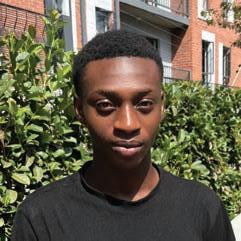
LUXURY STUDENT LIVING
For the discerning student with a taste for comfort and easy living, and the finances to support it, luxury developments are appearing around campuses countrywide, taking student living to the next level.
The EDGE in Stellenbosch is one such development. Marketed as elegant off-campus living apartments, the development offers 63 ergonomically designed apartments, ranging from 32m2 studio apartments to two-bedroom units between 45 and 59m2. Each apartment has
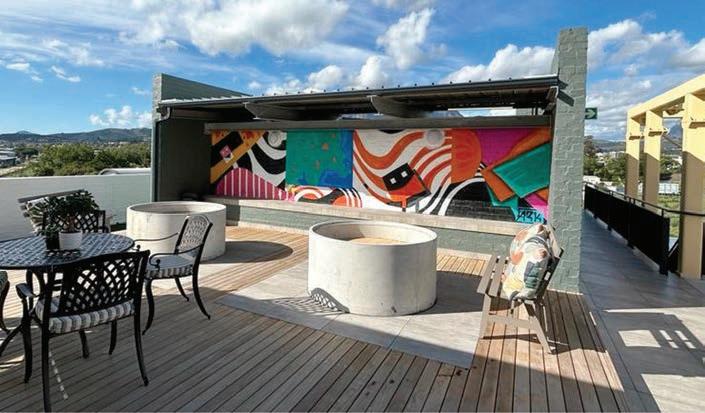
228 The South African Schools Collection 2023
Developers are responding to the growing demand for student accommodation by offering innovative, functional living spaces. Deidre Forbay takes a closer look at the changing face of “varsity digs”
KARABO MALATJI
“There’s always a need for student accommodation and the current market demand makes it a resilient asset class.” – Brad Morgan
a separate sleeping room, an open-concept living space with a workstation for working from home or studying, a balcony, and storage space. Not to mention the SMEG appliances that come as standard in each unit.
The One in Stellenbosch is another up-and-coming student development that will be complete by November 2024. Valued at R1-billion, it will boast high-end amenities, including a resort-style swimming pool.
Brad Morgan, co-founder of LaunchBase, the property development marketing and sales company for The One, says: “Each unit will be fitted with a kitchenette, bathroom, study desk, open-plan lounge and bedroom with premium fittings and fixtures throughout. Communal features include an expansive study centre fitted with solo study pods, multipurpose boardrooms for group work, meeting and conference spaces, and print and copy facilities. Renewable solar power
and generators ensure consistent and reliable electricity supply, even during load shedding.”
He adds that the development is an excellent investment option for parents looking to secure units for their children or for commercial investors looking to buy to rent.
“There’s always a need for student accommodation and the current market
FINDING THE RIGHT STUDENT ACCOMMODATION
Finding student accommodation that suits each student’s individual needs starts with research. Contact the tertiary institution’s student housing office for a list of accredited accommodation providers or search the property portals for student accommodation listings.
While the Department of Higher Education publishes standards and norms for off-campus housing, the tertiary institutions accredit off-campus housing. This is especially important when applying for bursaries, finance or student loans to cover the cost of the accommodation.
The term “accredited student housing” refers to housing that has received approval and certification for meeting specific requirements for housing for students. These requirements often cover things such as hygiene, comfort, safety and accessibility.
Off-campus student accommodation must be within 20 kilometres of the university, and frequent transportation must be available throughout the day. Single student accommodation rooms must be at least 9m2 and create an environment conducive to learning, so must have a bed, study desk, chair, study lamp, free Wi-Fi and a communal kitchen.
Living in accredited student accommodation can be beneficial for students as it provides a safe and supportive environment for living and studying. It can also be a great way to meet other students and build a sense of community.
While nonaccredited facilities may offer a range of housing options, including private apartments or shared living spaces, they may not provide the same amenities or level of services or safety measures as accredited providers.
Nonaccredited providers may also charge high rental fees or impose unfavourable rental terms, which could negatively impact students’ financial stability.
Before making a choice, students should conduct research and weigh-up the advantages and disadvantages of accredited versus nonaccredited student housing.
demand makes it a resilient asset class. The price point of units at The One Stellenbosch is also great. With most units selling for under R2-million and a return of between 6 and 10 per cent, it is a solid investment,” says Morgan.
But luxury comes at a price. Depending on whether you’re sharing or looking for a single space, apartment rental can set you back between R4 500 and R10 000 a month, but it still beats many other student accommodation offerings.
TIPS FOR OFF-CAMPUS LIVING
For many students, private or off-campus student accommodation is the only option. AFDA, a leading film school with campuses in Durban, Cape Town, Gqeberha, and Johannesburg, relies solely on off-campus accommodation and has the following advice for students:
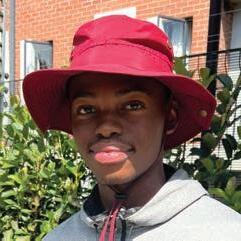
• You will have to sign a lease agreement, so always read and understand the contract you’re signing.
• It is not advisable to settle the entire contract period’s lease payments upfront. Only pay the required deposits and the first month’s lease.
• Look out for additional costs such as water, electricity, parking, cleaning services, garden services and administrative fees.
• Check the campus location online and confirm the distance from the location to your campus.
• It is illegal to sublet – do not consider this an option.
• Ask questions about furnishings, crockery, cutlery and facilities, for example, how many students per house and how many bathrooms per student.
• Bedding is normally not provided – check this before arrival.
• Communicate and plan arrival and key handover with the landlord in advance.
229 STUDENT ACCOMMODATION The South African Schools Collection 2023
LEFA KGASAGO
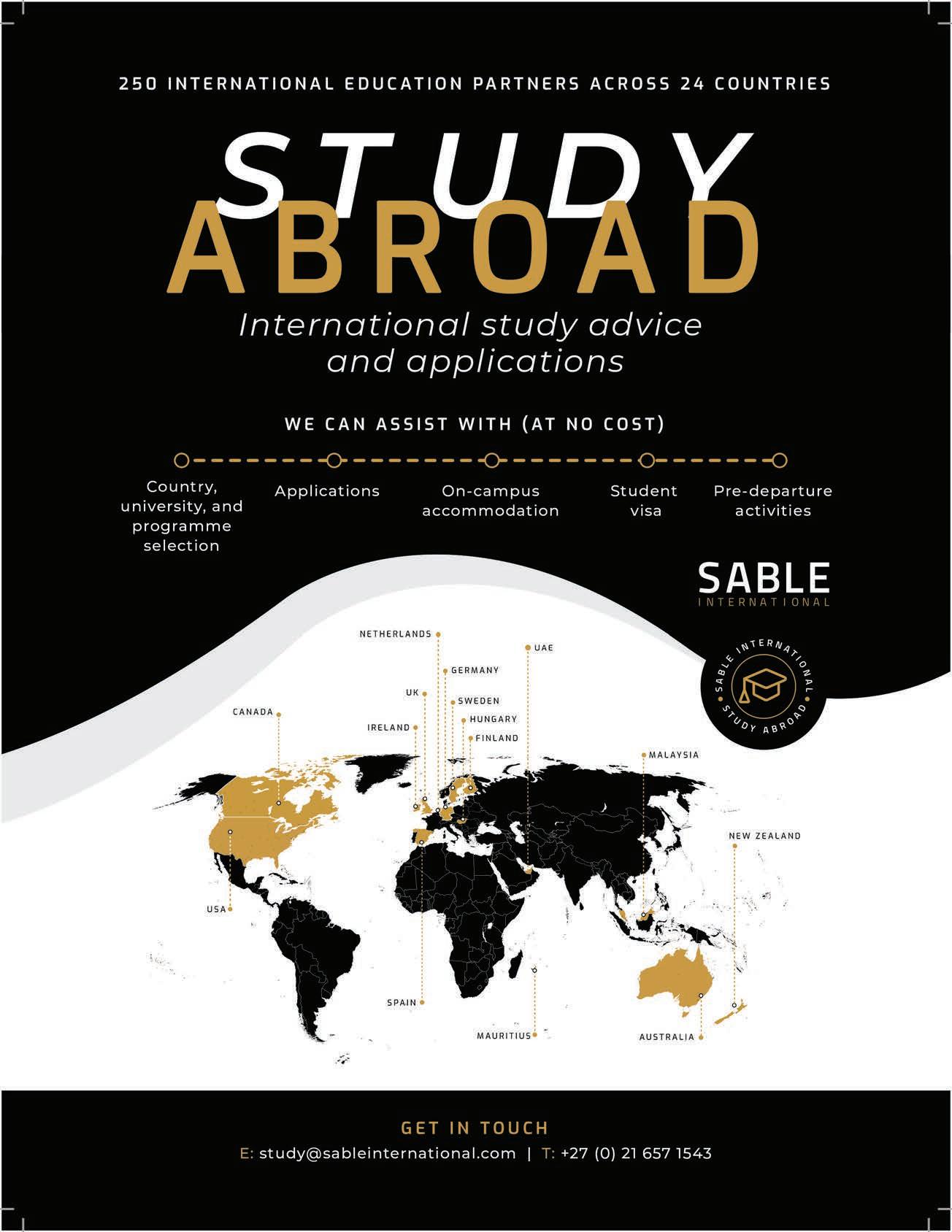

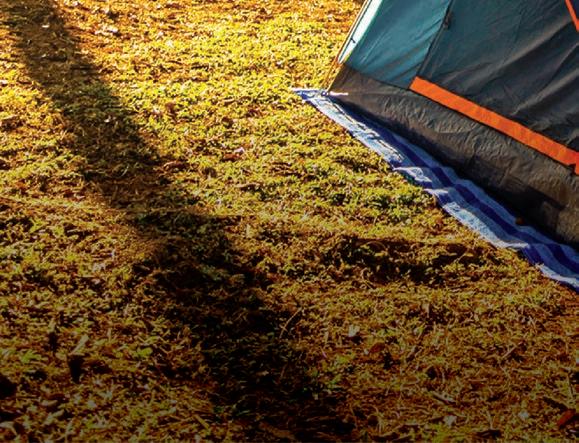


OUTDOOR EDUCATION & ADVENTURE 231 The South African Schools Collection 2023 235 Camp Councillors, 236 GZ Adventures, 238 HeronBridge Retreat, 239 Outward Bound, 240 The President’s Award for Youth Empowerment, 241 STEDT, 242-244 South African Adventure Industry Association (SA AIA), 245 Woodridge College, 246 Warriors Academy, 247-264 ALLES
International outdoor adventure experiences
learning
ABOUT THE ADVENTURE INSTITUTE
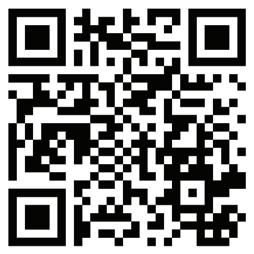
What I’ve realised through my passion for outdoor adventure and my doctoral research around outdoor activities of high schools in South Africa is that adventure activities in our country are widely presented without proper programming. This means that the educational principles of true adventure experiences are often neglected and, without a well-thought-out programme, there is greater risk for participants “freaking out” when asked to do difficult activities or tasks. This type of reaction is largely due to the outdoor practitioner not taking the individual diversity of the group into account. Laughing off a participant’s stress reaction by saying, “get over it”, will neutralise the educational value of the activity.
HOW TO ENSURE OPTIMAL EXPERENTIAL LEARNING
This behaviour occurs more often than we would like to acknowledge during our outdoor programmes. But sometimes, practitioners are simply not trained or sensitive enough to notice it.
Where this is the case, it is obvious that the programme design is not developmentally appropriate or something in the design is not ideal. The reality is that learning takes place whether intended or not. If the programme triggers a “freak out” reaction, the question should be, how will it be managed?
To ensure that outdoor learning is an optimal and educational experience, several factors must be in place:
1. The participant must be willing to take part in the programme.
2. Be mindful that the learning environment, while new and exciting for some, could also be threatening or intimidating for others.
3. Keep an eye on the group culture. Is the prescribed social environment showing signs of group pressure and judgement?
4. Opt for activities that are physically, emotionally and socially appropriate. If these factors are neglected, the programme risks exposing participants to unintended trauma. Unfortunately, outdoor and adventure programmes meant for education, development

The Adventure Institute supports initiatives or processes where young people are encouraged to calculate risk, explore new alternatives, step outside their comfort zones, take responsibility and be accountable for their choices. They are encouraged to take ownership of the results and implications, reflect on their decisions and consider their communities in their journey. Then repeat the learning process by re-addressing challenges until the desired outcomes are facilitated; outcomes that change thinking and behaviour to influence not only themselves, but their families and communities as well.
and even therapeutic interventions, are sometimes the reason for new trauma or retraumatisation. This means a scenario could resemble a previous traumatic experience that triggers feelings and reactions associated with the original trauma. This results in the opposite outcome of what these programmes intend to accomplish.
5. Although physical safety is always paramount, there also needs to be an emphasis on educational soundness and emotional safety of outdoor and adventure programmes.
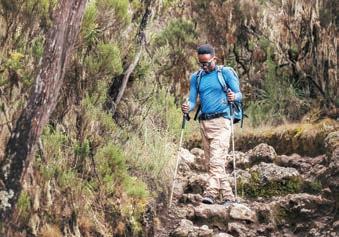
WANT TO BE AN OUTDOOR PRACTITIONER?
Watch this introductory video:
232 SPONSORED CONTENT: OUTDOOR EDUCATION The South African Schools Collection 2023
Dr Pieter Snyman, co-founder of the Adventure Institute, shares that while outdoor adventure seems more popular post-COVID-19, what’s critical now is ensuring adventure-related experiential
Get outdoors and learn
Mona Preller of ALLES Centre for Excellence reflects on the ongoing efforts to increase awareness of outdoor learning
Young people have seven developmental needs, according to the Minneapolis-based Search Institute, an evidence-based foundation to help children thrive. These are:
1. Physical activity.
2. Competence and achievement.
3. Self-definition.
4. Creative self-expression.
5. Positive social interactions.
6. Structure and clear limits.
7. Meaningful participation.
Each of these developmental needs is fully activated and included during events that have been designed to incorporate what a learner needs for enrichment.
This is known as the ALLES (Adventure, Leadership, Life skills, Experiential Education and Sport) Model.
ABOUT ALLES
Children have responded to the ALLES programme saying: “I was more confident, wanted to know everything, was excited to be in school and experience new things”, and “my experience helped me look at challenging situations differently and instead of giving up, finding a way around them”.
THE BENEFITS OF OUTDOOR LEARNING
New research published internationally by the British Department for Environment, Food and Rural Affairs review, What Works in School-based Nature Interventions, has some significant confirmation of the impact these programmes have on the lives of learners.
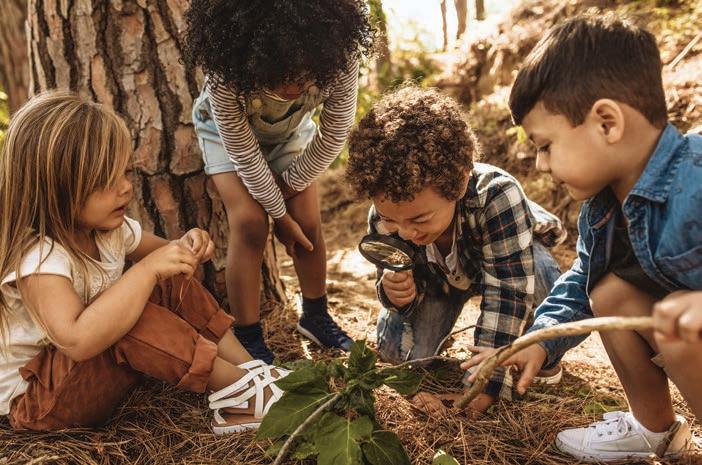
• Outdoor learning is directly associated with the increased academic progress of learners.
• Positive outcomes for learners, such as self-confidence and increased physical participation.
• It has specific emotional wellness benefits for disadvantaged and remote learners, as well as children with special needs.
In the words of Nick O’Loughlin, a teacher in the United States: “The role of the educational visit, hopefully, will be seen as more important in the coming years as it can re-engage students with their learning. The ‘why’ of learning has never been more important as students, now more than ever, are responsible for their own learning habits. The educational visit can be seen in such a way, as re-energising the ‘why’ of education.
“To visit and experience the outdoors, the indoors, the journeys we take, will be crucial in ensuring this generation understands the why of education. To share an experience again with other young people will restore inter-relationships and promote the benefits of a healthy intra-relationship with oneself. Residentials should play a large part in allowing young people to play together, socialise together, learn and fail together to become better people consequently and realise they are most definitely not the ‘lost generation’ as some media outlets would have us believe. Young people have shown, overall, remarkable resilience and ingenuity over the last year, and the residential and educational visit can utilise this learning as never before.”
Evident in the way the reopening of school-based excursions has been activated is that outdoor learning experiences need to be well planned, well taught, and effectively followed up. There is a renewed interest in acquiring skills and information about more services and venues that add value to a curriculum and the execution of lesson plans, making educators much more ambitious in planning a variety of activities with clearly defined outcomes.
233 OUTDOOR EDUCATION The South African Schools Collection 2023
“The role of the educational visit, hopefully, will be seen as more important in the coming years as it can re-engage students with their learning.” – Nick O’Loughlin
Outdoor classrooms can change lives
LEGAL REQUIREMENTS
Participating in outdoor education and adventure tourism activities in South Africa is regulated by the Adventure Tourism Regulations (ATR) under the National Environmental Management: Protected Areas Act, 2003. The ATR sets out requirements for adventure tourism operators, including the need for registration with the relevant authorities, risk assessments and safety management plans. It also outlines requirements for the training and qualifications of adventure tourism guides and instructors.
With South Africa’s stunning natural beauty, diverse wildlife and abundance of outdoor activities such as hiking, kloofing, camping and canoeing, we have, on our doorstep, an outdoor classroom renowned for its amazing life-changing opportunities. Experiential learning is the best choice when facilitating learning outdoors. It engages the heart, mind and hands of those who participate.
BENEFITS OF OUTDOOR EXPERIENTIAL LEARNING
Personal
Research published in Scientifi c Reports showing that spending at least two hours in nature can boost a student’s wellbeing by:

• improving their mental energy;
• reducing symptoms of depression;
• fostering a sense of emotional wellness; and
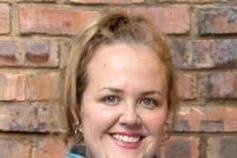
• boosting immune health. Time in nature provides the motivation and means to be physically active and

healthier, encourages better breathing, helps prevent myopia in youth, and improves sleep.
Cultural
Culture refers to the way we do things. One cannot deny that students are exposed to an explosion of diverse cultures through their caregivers, friends and social media. This emphasises the importance of fostering a sense of understanding, respect and celebration of other cultures other than their own.
In addition, the National Road Traffic Act, 1996, sets out regulations for the transportation of passengers, equipment, and vehicles used for adventure tourism activities. All transport operators must hold a valid operating licence, and vehicles must comply with safety regulations and be properly maintained.
Outdoor education achieves this by tasking students with working in groups to achieve a given objective, such as directing blindfolded teammates around obstacles. Furthermore, educators are granted the opportunity to work together with outdoor education practitioners to develop and foster an appreciation for the school’s culture in their students.
Economic
South Africa houses the largest number of UNESCO World Heritage Sites in Africa and ranks as one of the most popularly visited African countries, according to Statista. This exposes students to an exciting career path in the tourism industry. Considering the economic trends that demonstrate a global shift to the “experience economy” as the “ …primary driver of economic activity …”; the emergence of a new type of consumer
234 The South African Schools Collection 2023
Jessi Sunkel, executive director at the South African Adventure Industry Association, shares the benefits of experiential learning
JESSI SUNKEL
that views the outdoors as a place to learn, grow and relax, has the potential to double in the next decade, according to Francois Nel, an entrepreneur in the outdoor recreation industry. It’s evident that the outdoor education and tourism sectors have room for budding entrepreneurs and jobseekers to make a living as tour guides, adventure-based learning facilitators, instructors, hospitality staff and more.
Social
A study conducted by the Team Building Institute shows team-building activities foster an optimism and desire to improve communication, a sense of camaraderie, a culture of sharing ideas in a safe environment, the development of trust among teammates, and a perception that change is an opportunity for growth, notes Dr Chris Heunis in “The Science of Team Building: A Case Study”.
Educational philosopher Robert Hutchins once said: “The object of education is to prepare the young to educate themselves throughout their lives.” Outdoor education is a tool to be used in pursuit of this goal.
ABOUT THE SOUTH AFRICAN ADVENTURE INDUSTRY ASSOCIATION

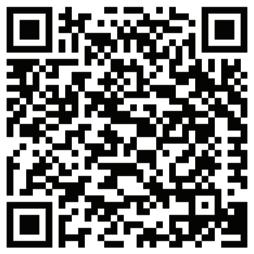
The South African Adventure Industry Association (SAAIA) and its members, as experienced and qualified adventure activity providers, can provide expert guidance and training to teachers, students and other outdoor educational practitioners.
The association offers advice on risk management, safety protocols and equipment requirements to ensure that outdoor activities are conducted in a safe and responsible manner.
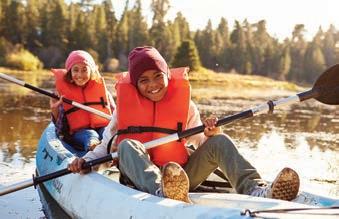
By working with SAAIA’s members, schools and other educational organisations can have peace of mind that they are partnering with reputable providers who follow industry standards and best practices. This can help to minimise risks associated with outdoor activities and ensure that students and participants have a positive and rewarding experience.

OUTDOOR EDUCATION
DR HEUNIS’ CASE STUDY ON TEAM BUILDING
REPORT ON SPENDING TIME IN NATURE
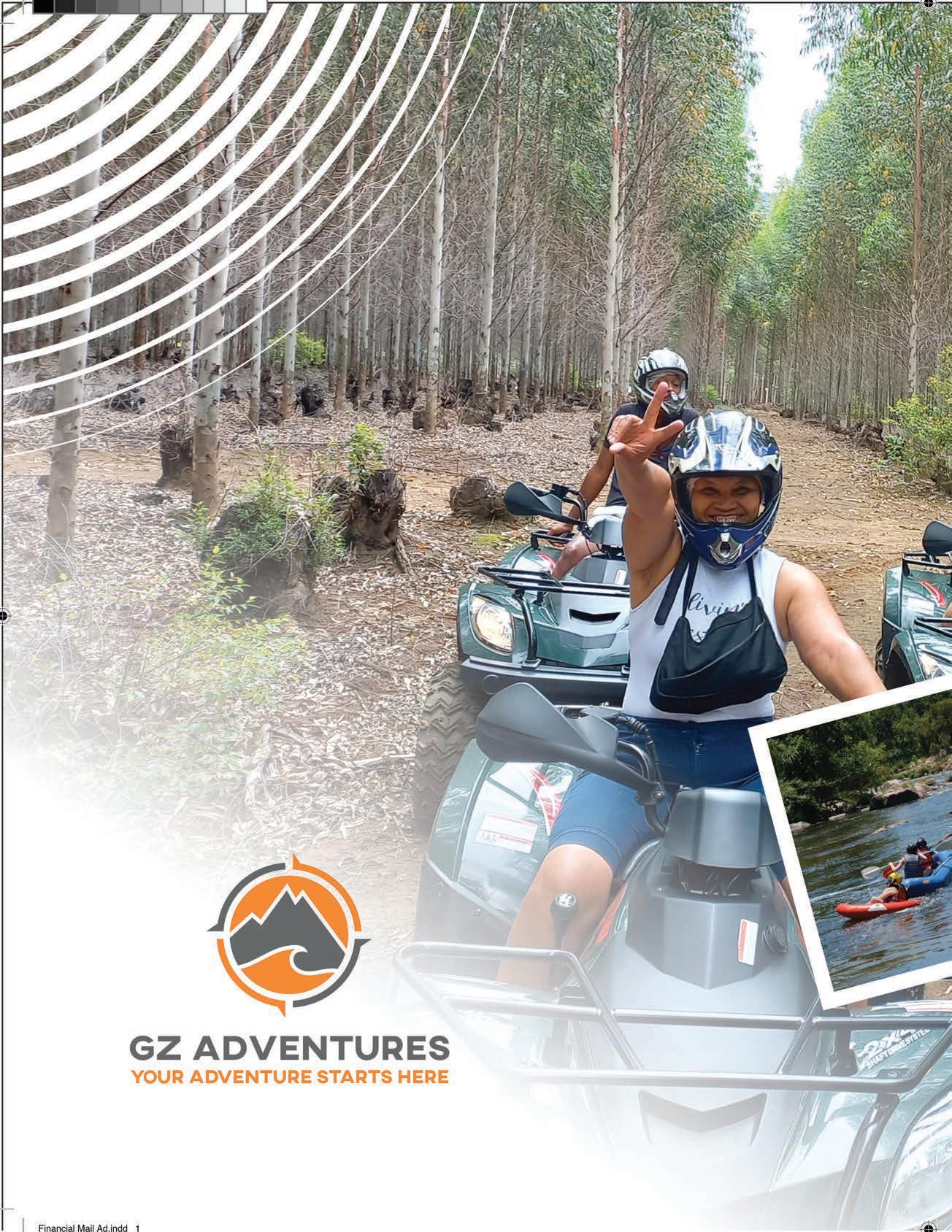
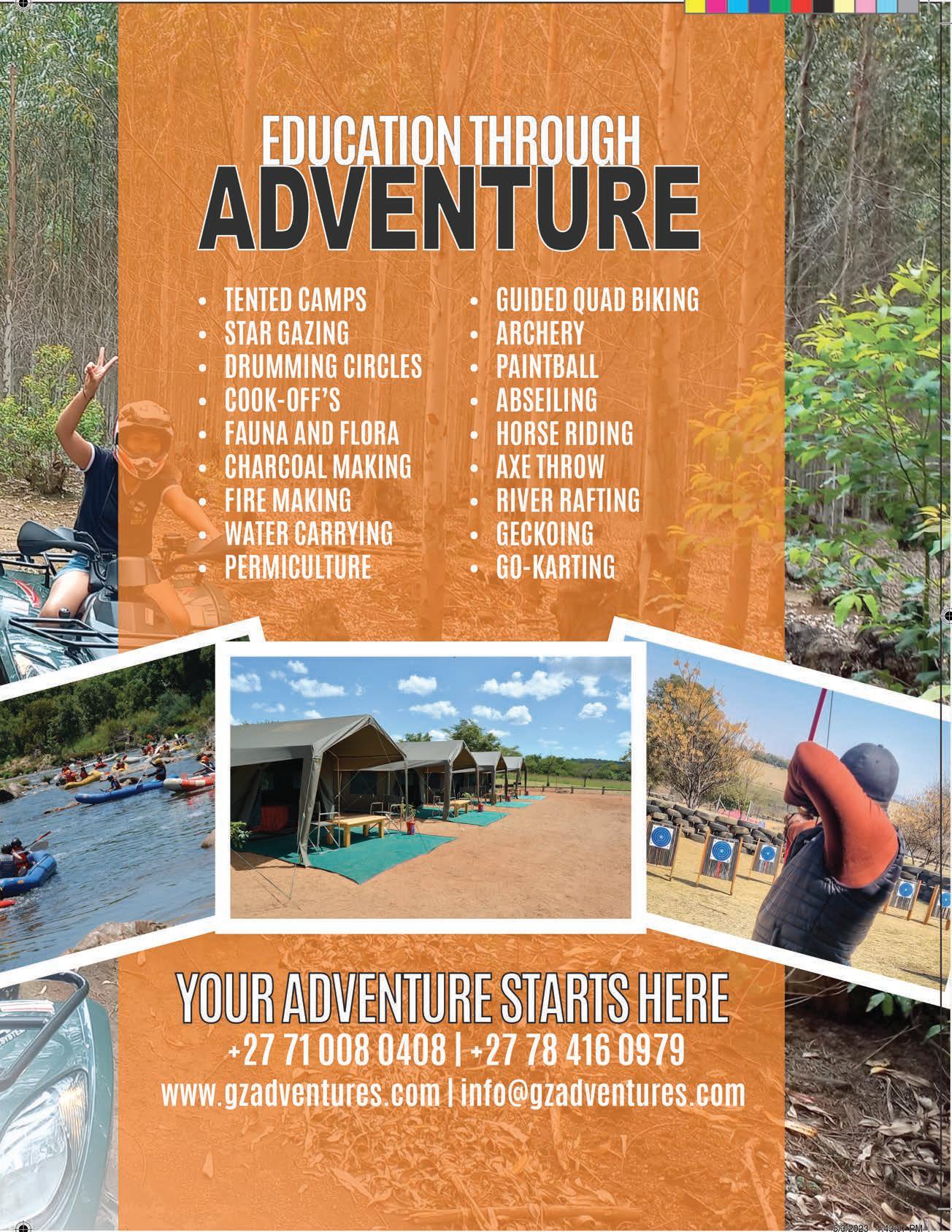
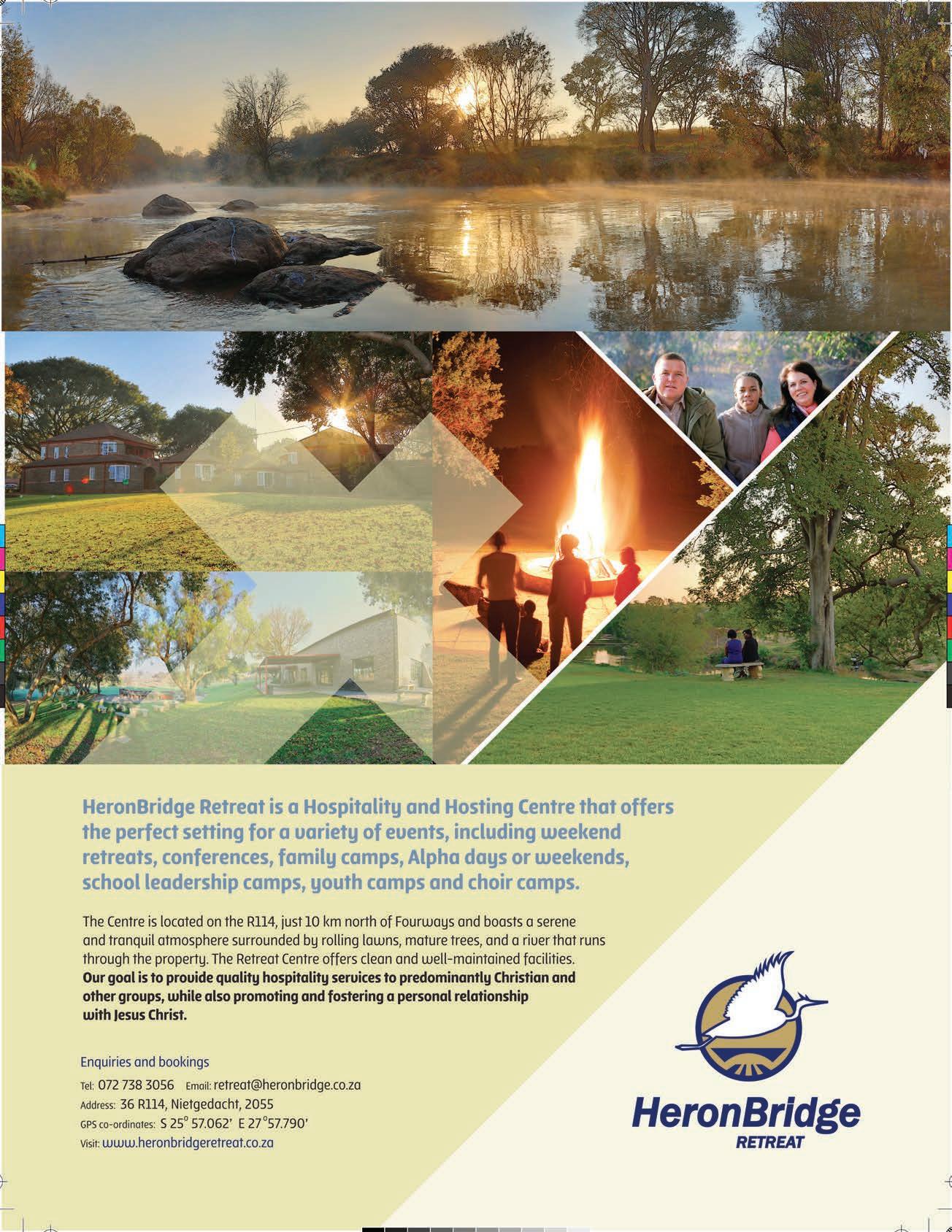
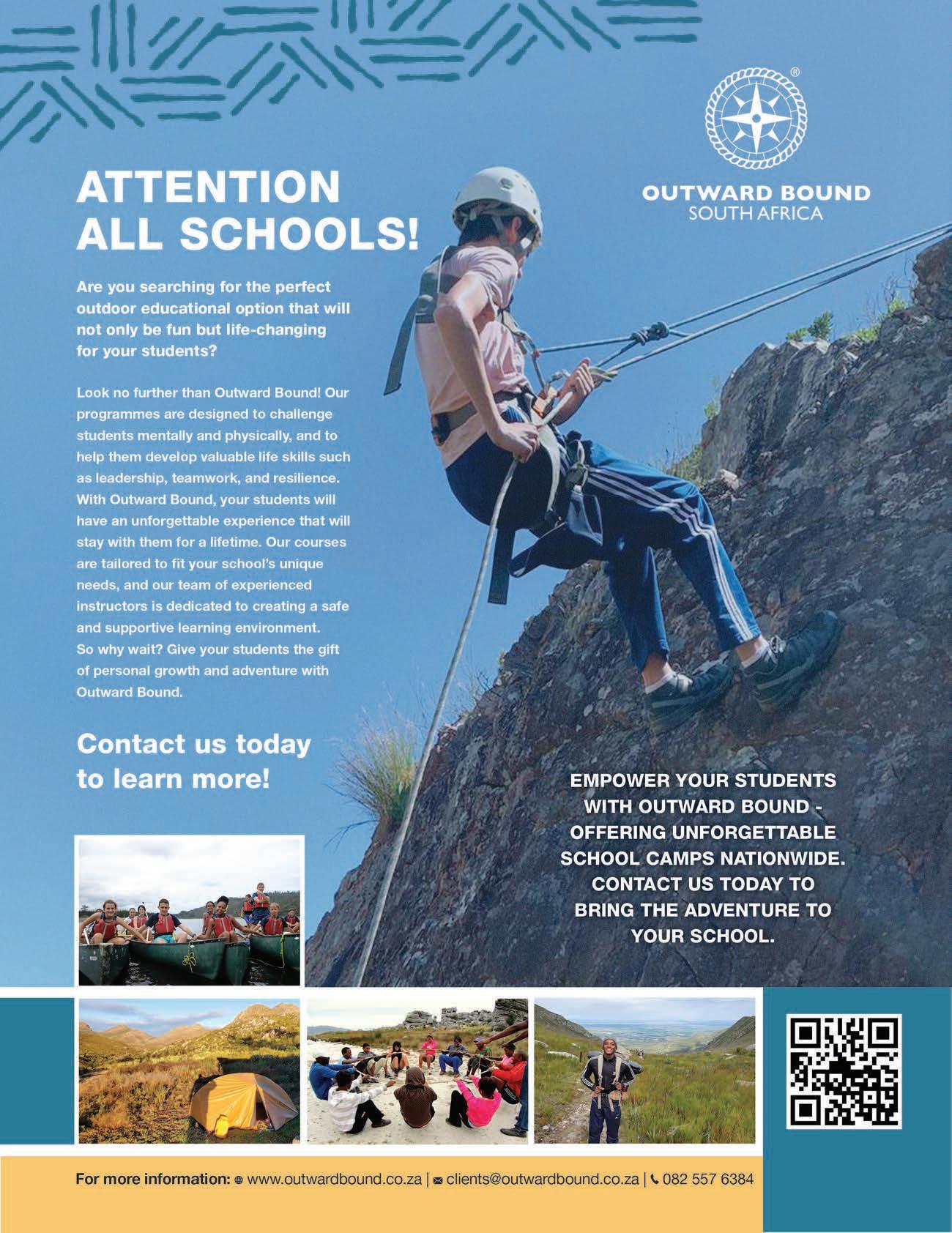
The President’s Award
What is The President’s Award all about?
The President’s Award began in 1956 in the United Kingdom, where it is known as The Duke of Edinburgh’s International Award. The Award was introduced in South Africa in 1983 and has been known as The President’s Award for Youth Empowerment since 1994 with Nelson Mandela as the first patron-in-chief.
It is an internationally recognised programme that exists to equip the youth to succeed in life and work. It offers young people aged 14–24 the opportunity to develop their character, discover their purpose and determine their future to contribute to building a better South Africa for all.
WHY YOU SHOULD DO IT?
The Award programme is a great way to develop new skills and broaden your career prospects while having fun.
The Award can also count towards high school leaving certificates, as well as points for admission to tertiary institutions. Many Award-holders report having received discounts when applying to university. However, this depends on the tertiary institution and particular faculties.
Achieving an Award means the participant has developed many skills, behaviours and attitudes valued by employers globally.
The President’s Award is all about going the extra mile – gaining new skills, pushing yourself physically, helping others and exploring new territories. At the same time, you’ll build friendships, experiences and memories that will last a lifetime.
The President’s Award for Youth Empowerment is proud to deliver the Duke of Edinburgh’s International Award in South Africa
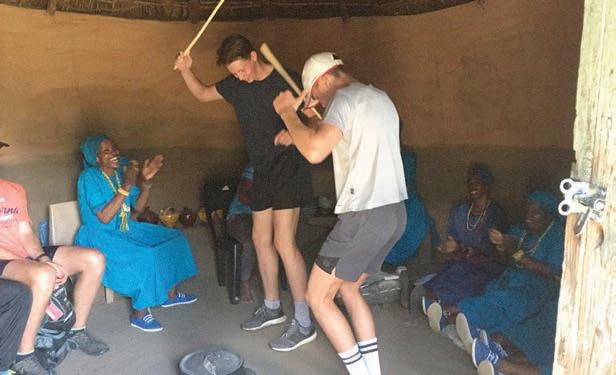
DID YOU KNOW?
• The Duke of Edinburgh’s International Award is the world’s leading youth achievement Award.

• To date, over eight million young people worldwide have started their Award and begun their journey to a brighter future.
• In the past 10 years, over 56 000 young South Africans enrolled and more than 17 000 youth participate annually in South Africa.

• Of the Award participants interviewed for a national research study in 2014, 97 per cent said they would recommend the Award to all young people.
• Every year, selected Award participants are recognised nationally and, at times, internationally for the contribution they make to their communities.
It doesn’t matter who you are or where you are from, but you must fall in the 14–24 year qualifying age group, you can choose the activities that motivate you and go on a personal journey.
Pushing yourself to do new things will help you develop confidence and useful skills. Meeting new people will inspire you and lead to lasting friendships – these are just a few of the benefits. Based on the feedback from participants, doing the Award is “lifechanging” and will make you stand out from the crowd. It will set you on the path to a meaningful life and a prosperous future!
To get started, complete an enrolment form on our website, submit proof of payment, then register as an Award participant on the Online Record Book to record your activities: www.onlinerecordbook.org
For more information:
info@presidentsaward.co.za
www.presidentsaward.co.za

@ThePresidentsAwardSA
@thepresidentsawardsa
ADVERTORIAL The South African Schools Collection 2023 240
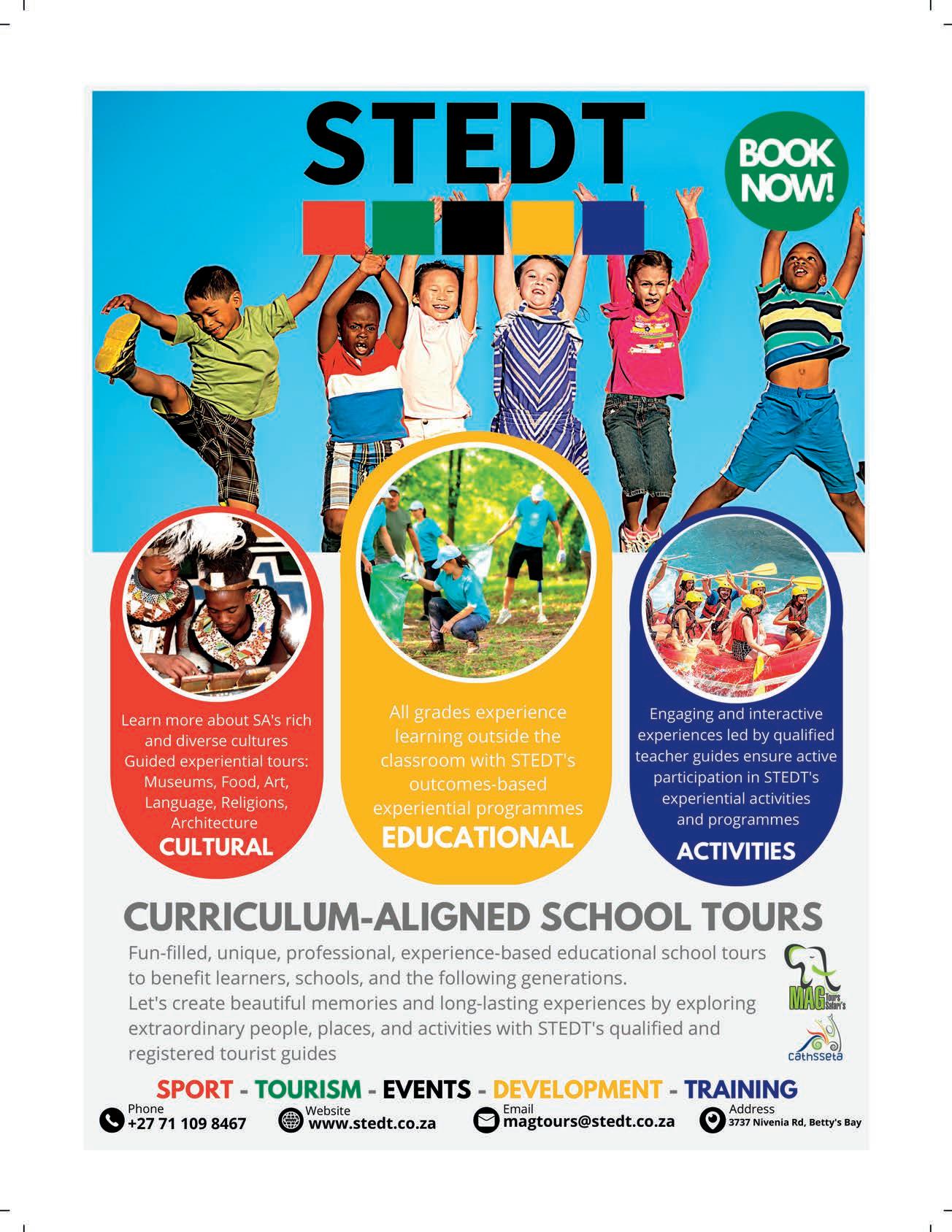
The South African Adventure Industry Association
Adventurous learning
With life-changing experiences at adventurous experiential learning events and heart-racing experiences such as bungee jumping, white water rafting, and shark cage diving, the adventure industry in South Africa offers a rush like no other. While it may be daunting to think of venturing outdoors for a learning experience, the South African Adventure Industry Association (SAAIA) is the perfect place to get started. We’ll provide you with knowledge, insight and inside information on how to enjoy the outoors safely and learn from your experience..
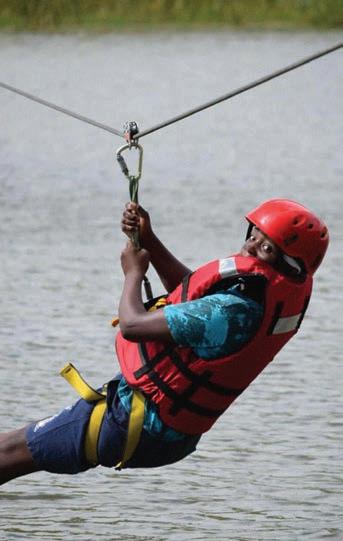
A PLATFORM FOR SHARING KNOWLEDGE AND ASSISTANCE
SAAIA is a nonprofit organisation serving as the voice of the outdoor education and adventure tourism industries in South Africa. With a growing membership, SAAIA is the backbone of the adventure industry in the country. As a member, you’ll have access to a network of industry professionals and a forum to connect and collaborate with fellow operators and stakeholders. This allows you to share best practices, learn from one another, and work together to promote the industry and ensure its sustainability.
SAAIA’s mission is to promote and develop the adventure industry in South Africa while ensuring safety, professionalism and sustainability. SAAIA’s code of conduct sets high standards for safety, customer service and environmental responsibility to ensure that all members provide top-quality experiences that
exceed industry standards, promoting a high-level of customer satisfaction.
The adventure tourism industry is a significant contributor to the South African economy. It provides job opportunities for thousands of people and attracts millions of tourists annually. SAAIA’s advocacy
efforts ensure that the industry continues to grow and thrive by advocating for industry-friendly policies, such as streamlined regulations and funding for tourism development initiatives.
SAAIA works closely with the adventure experiential learning industry. This innovative approach to education uses adventure activities as a tool for personal and social development. Adventure experiences teach life skills such as leadership, teamwork, communication, and problem-solving. SAAIA provides a platform for organisations that offer adventurous experiential learning programmes to connect and share best practices. The association also provides resources and support to these organisations (and the public), helping them improve the quality of their programmes and ensure they are safe and effective.
BENEFITS OF OUTDOOR EXPERIENTAL LEARNING
South Africa’s stunning natural beauty, diverse wildlife and abundance of outdoor activities make it an ideal destination for outdoor education and adventure tourism. In addition to offering health and mental wellbeing benefits, outdoor education and adventure tourism contribute significantly to the country’s economy and offer many employment opportunities.
Health bene ts
Engaging in outdoor activities, such as hiking, rock climbing, or wildlife safaris, can have a range of health benefits. Exposure to fresh air and natural light can
The South African Schools Collection 2023 242
adventure
no further than the adventure industry in South
Are you ready for an
of a lifetime and a learning experience? Look
Africa
Adventure experiences teach life skills such as leadership, teamwork, communication, and problem-solving.
be benefi cial for both physical and mental health. In addition, outdoor activities offer opportunities for exercise and physical activity, which can improve overall physical health, reduce stress, and improve mood.
Mental health bene ts
Outdoor education and adventure tourism can also have a positive impact on mental health. Engaging with nature can have a calming effect on the mind, reducing stress and anxiety. Many outdoor activities require teamwork, communication, and problem-solving, which can help to develop cognitive and social skills. In addition, outdoor education and adventure tourism can provide a sense of achievement and personal growth, which, in turn, can contribute to greater self-esteem and overall wellbeing.
SOCIOECONOMIC BENEFITS
Outdoor education and adventure tourism contribute signifi cantly to the South African economy. According to South African Tourism, adventure tourism generated more than R12-billion in revenue in 2019. This revenue supports local businesses, creates jobs, and contributes to the country’s overall economic growth.
The outdoor education and adventure tourism sector offers many employment opportunities, particularly for young people. Many types of jobs are available in the sector, from tour guides and instructors to support staff and hospitality workers. Furthermore, jobs in the outdoor education and adventure tourism sector
offer opportunities for professional development and career growth.
SAFETY FIRST
But it’s not just about the thrill of the experience. While outdoor education and adventure tourism offer many benefits for individuals, local communities and the economy, it is important to remember that participating in these activities comes with legal requirements to ensure safety and responsible tourism. By following these regulations, we can all enjoy the benefits of outdoor education and adventure tourism while protecting the environment and ensuring a sustainable future for the sector.
SAAIA also play a critical role in promoting public safety in the adventure industry. The association supports the public and its members in accessing training and certifi cation programmes to ensure they are equipped to handle any situation that may arise while providing adventurous experiences. This helps to educate the public and hold service providers in the industry accountable.
Legal Requirements
Participating in outdoor education and adventure tourism activities in South Africa is regulated by the Adventure Tourism Regulations (ATR) under the National Environmental Management: Protected Areas Act, 2003. The ATR sets out requirements for adventure tourism operators, including the need for registration with the relevant authorities, risk assessments and safety management

plans. It also outlines requirements for the training and qualifi cations of adventure tourism guides and instructors.
In addition, the National Road Traffi c Act of 1996 sets out regulations for the transportation of passengers, equipment, and vehicles used for adventure tourism activities. All transport operators must hold a valid operating licence, and vehicles must comply with safety regulations and be properly maintained.
Join SAAIA today to be a part of the excitement and help promote and develop the adventure tourism industry in South Africa.
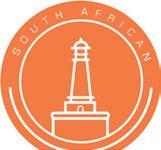
Using a SAAIA member provides peace of mind for those who seek to do business with credible adventure-based learning, adventure tourism and training partners. For a comprehensive list of members, please visit the directory on our website.
For more information: +27 76 601 4997 info@adventureassociation.co.za www.adventureassociation.co.za

The South African Schools Collection 2023
243

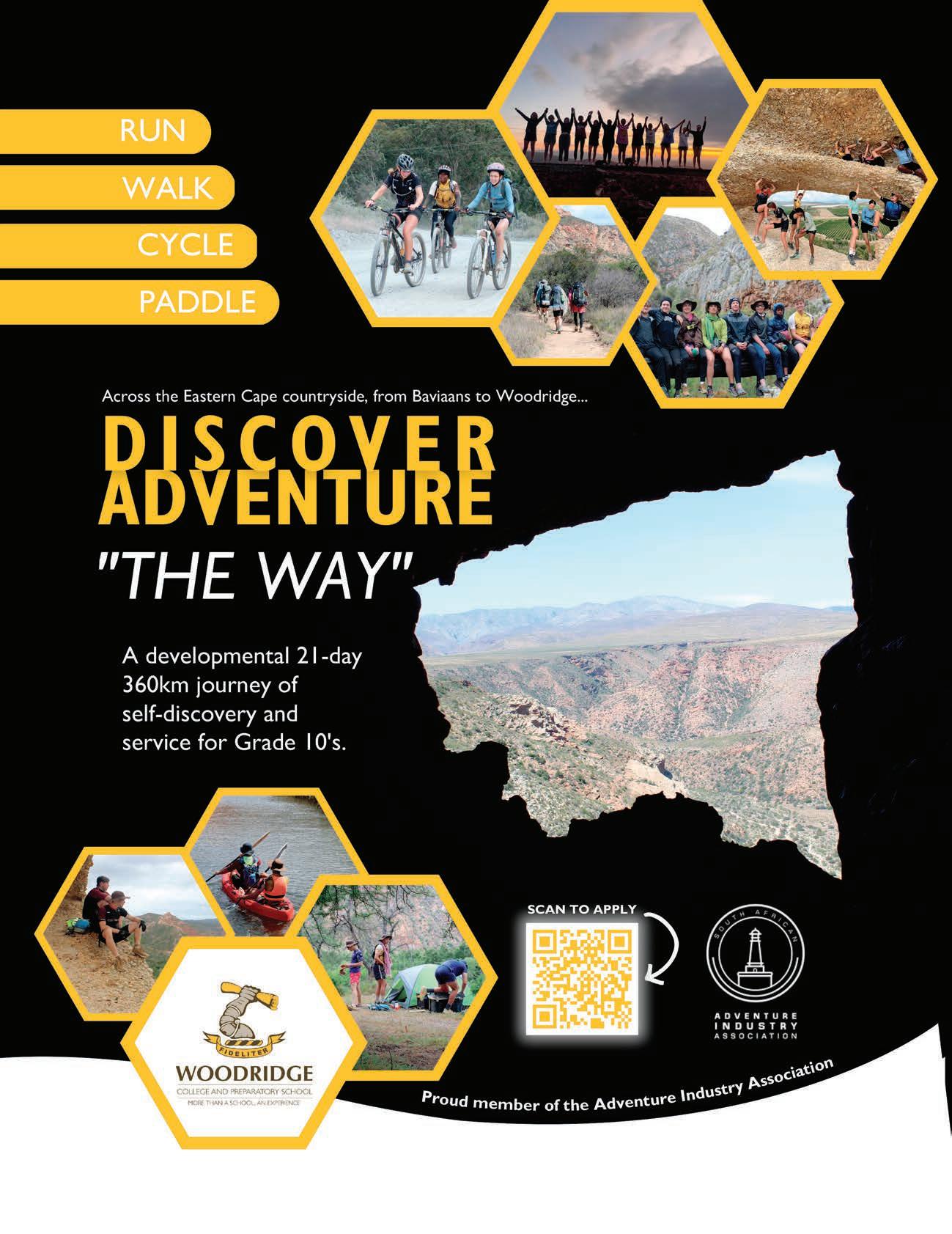
The Warriors Academy
Time for adventure and growth
A well-structured gap year brings many benefits, including developing maturity, learning new skills and personal growth, writes
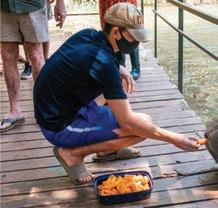

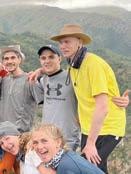 Rudi Viljoen, founder of the Warriors Academy
Rudi Viljoen, founder of the Warriors Academy
Many parents think a gap year is just an excuse to party and have fun. Although we love to have fun, this is not the case in the structured Warriors Academy Gap Year programme. For us, a gap year is a time-out taken by a student from studies or starting a career after school or further studies. It can be many things for different people, but ultimately it is an investment in a person’s future.
WHY TAKE A GAP YEAR?
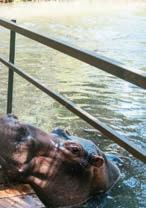
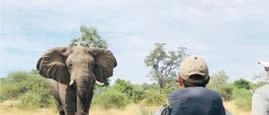
A well-structured gap year programme is an opportunity for a person to learn more about themselves, gain confidence, step out of their comfort zone and ultimately help them find their path, personally and professionally.
From our experience at the Warriors Academy, the real benefit of a structured gap year is developing a student’s emotional maturity and the ability to adapt and deal with challenges. Our primary focus is helping students develop mental and emotional strength to cope with their studies, future career and life. We aim to help students take responsibility for their thoughts and actions in the hope of helping them to achieve their dreams.
THE WARRIORS ACADEMY PROGRAMME

The Warriors Academy programme is accredited by the International Gap Year Association. The Warriors Academy has had thousands of students come through the programme over the past 20 years. Our programme specifically focuses on experiential learning through adventure activities, personal mentoring and coaching.
We understand the connection between the physical, emotional and mental elements and tackle each of these with different activities and workshops during our quests. We focus on health, happiness and taking responsibility for your emotions and actions. Many students who come through our programme have struggled with low self-esteem, anxiety, no direction, and more, but as a team, we work hard to bring them out of their shells and explore their potential.
WARRIORS ACADEMY GAP YEAR PROGRAMME STRUCTURE




Our Gap Year programme is structured to include four seven-week seasonal quests. Each quest has its own set of adventure activities, soft-skill workshops and personal mentoring sessions. These focus on equipping young adults with emotional intelligence, time, stress and

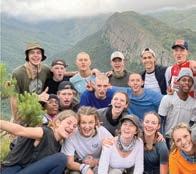
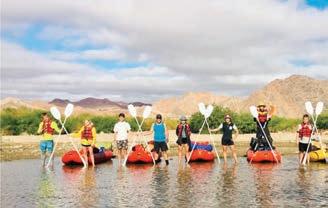
conflict management, leadership, teamwork, problem-solving skills, and more.
Students can take part in any number of quests depending on their schedules or studies. This provides more flexibility and allows those who cannot take a full gap year to still have an experience over a shorter period of time.
If you are searching for a safe, adventurous, professional environment for personal and leadership growth, look no further.

For more information: +27 83 737 2892 rowena@warriors.co.za

www.warriors.co.za


ADVERTORIAL The South African Schools Collection 2023 246
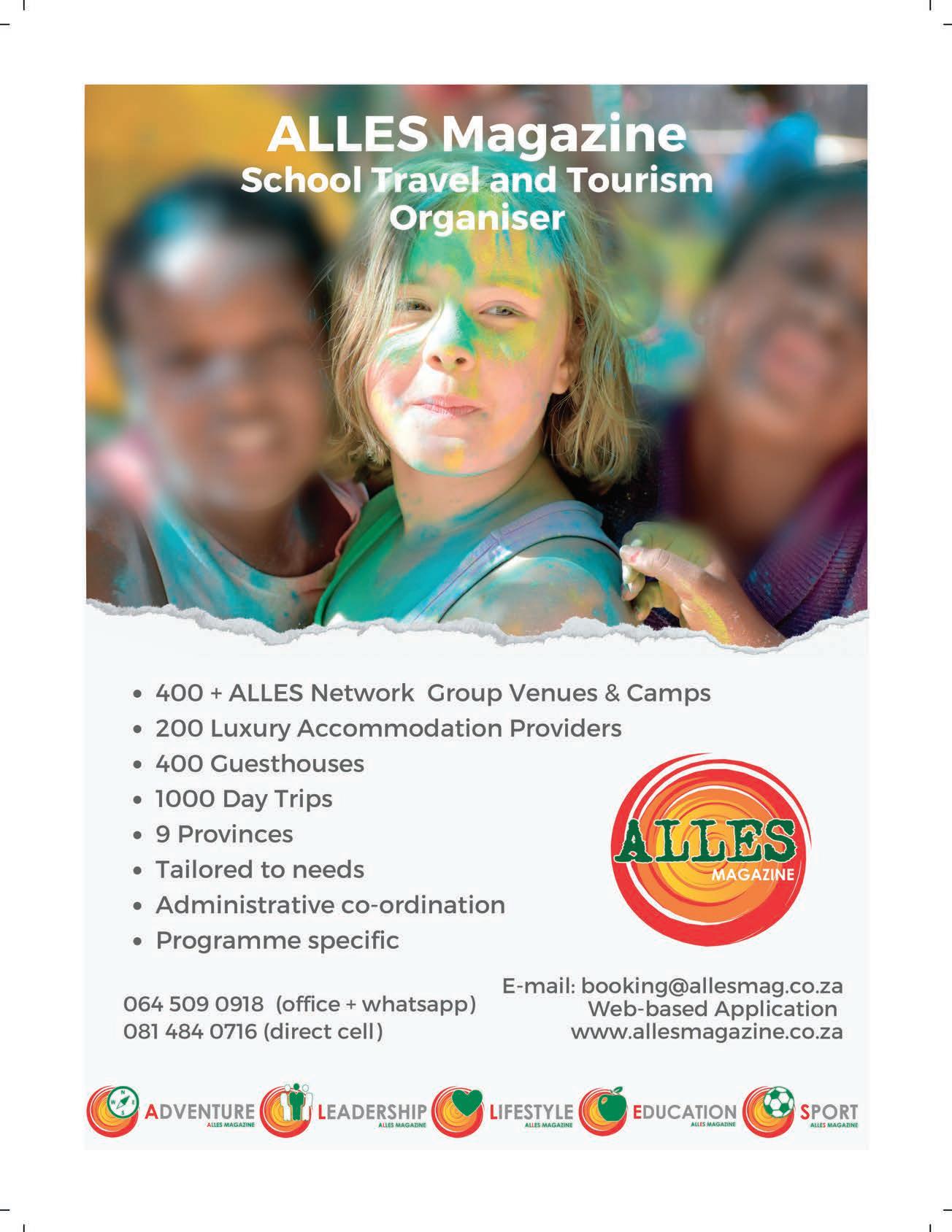
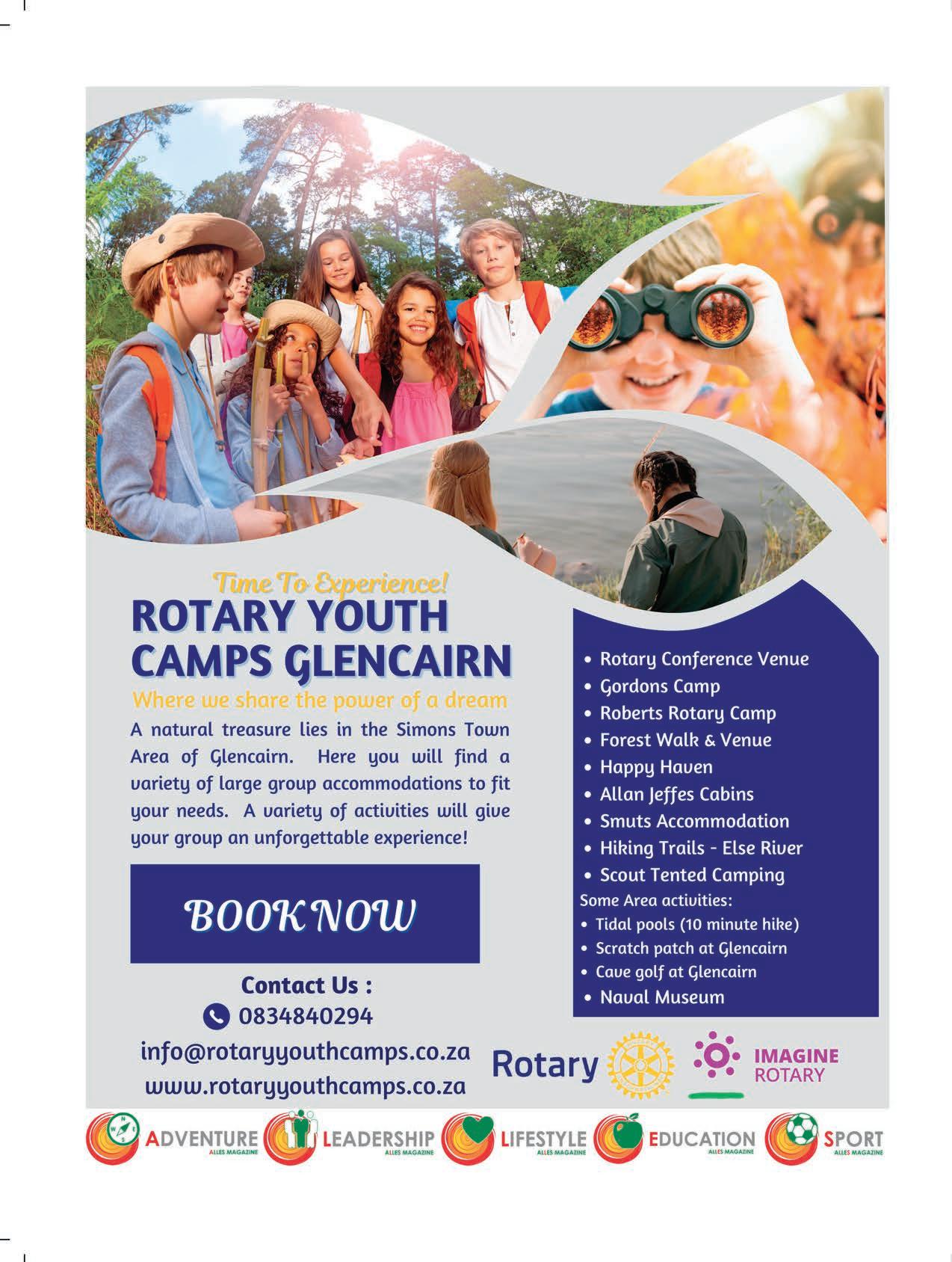
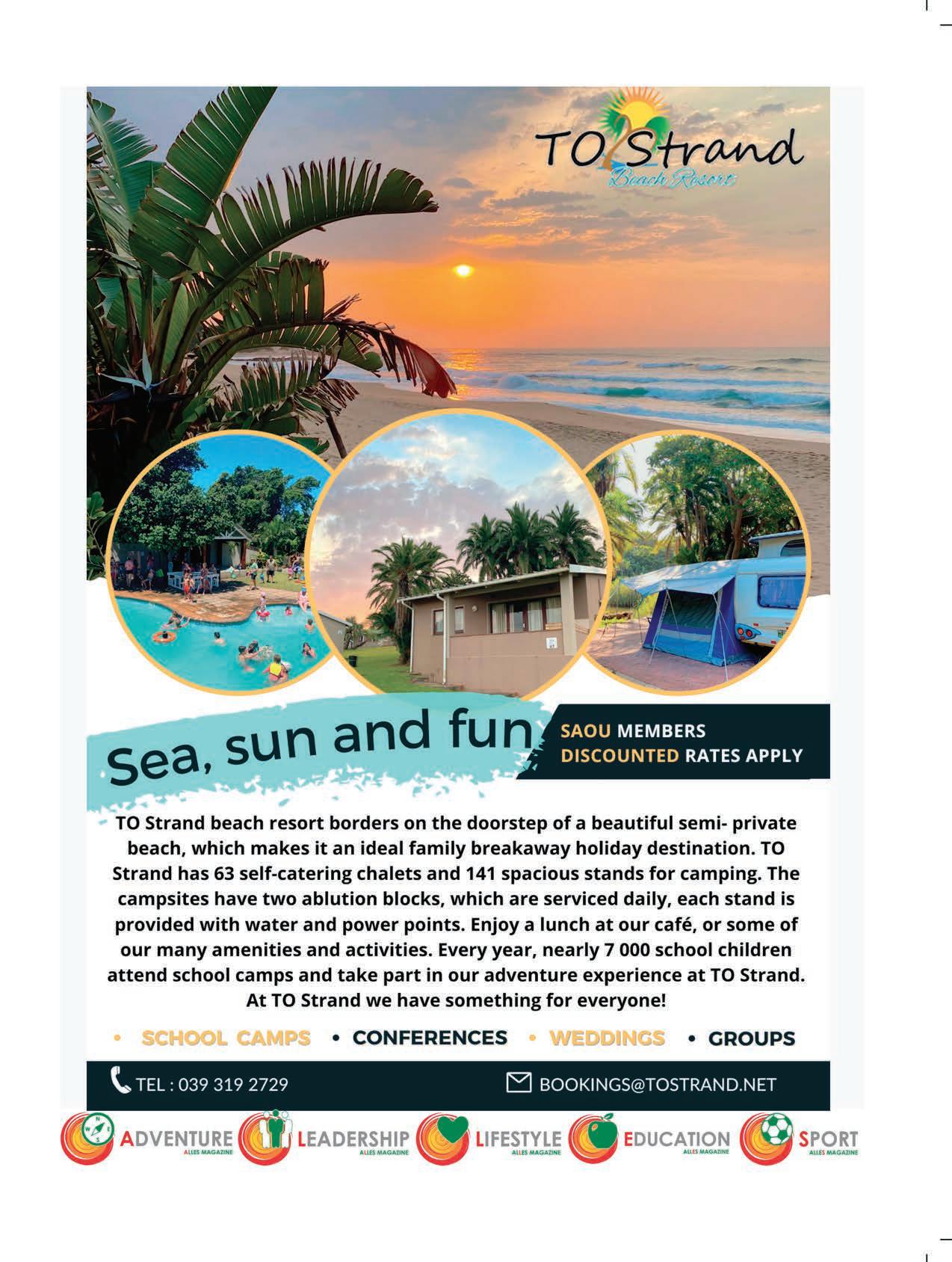
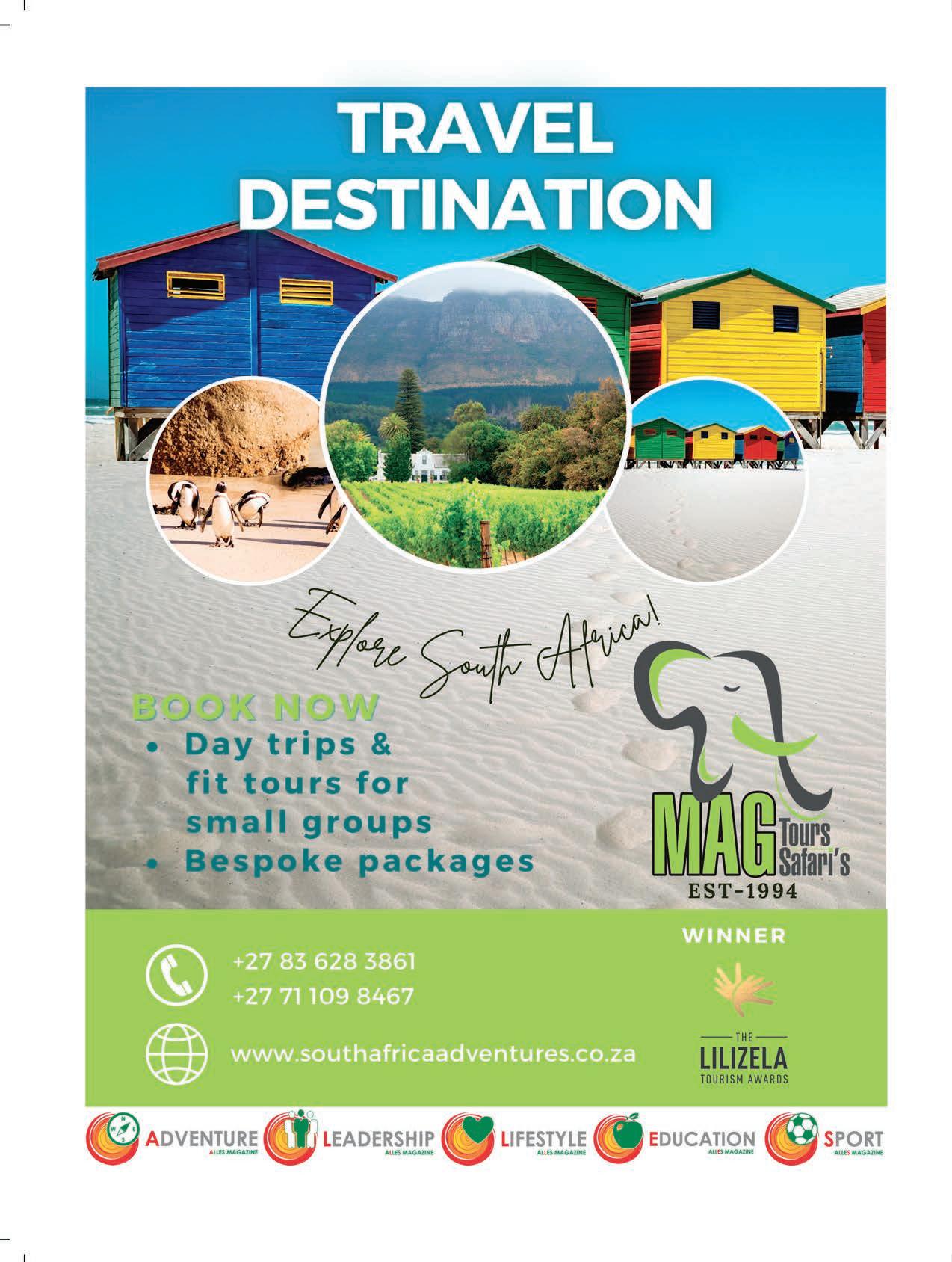




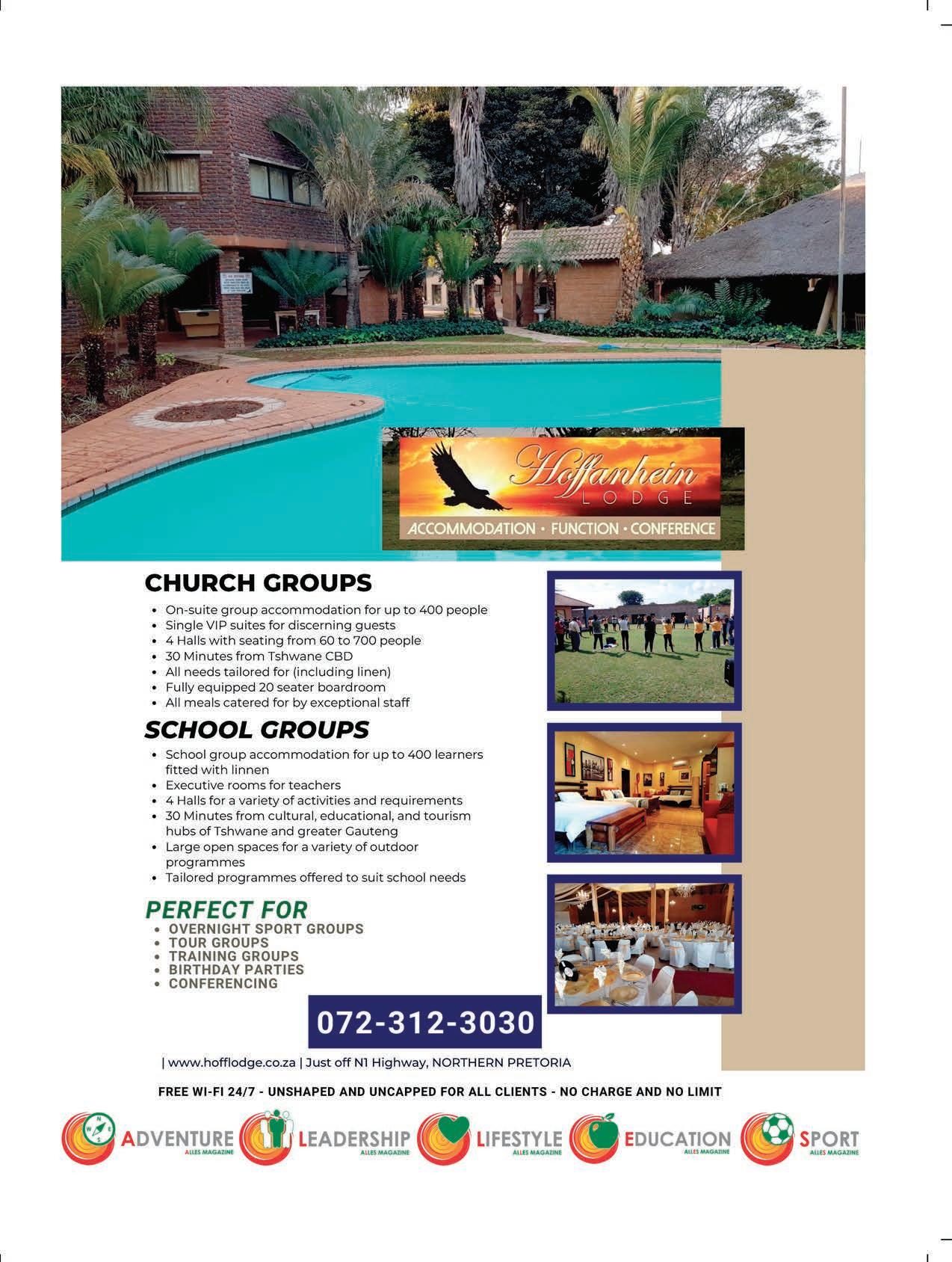
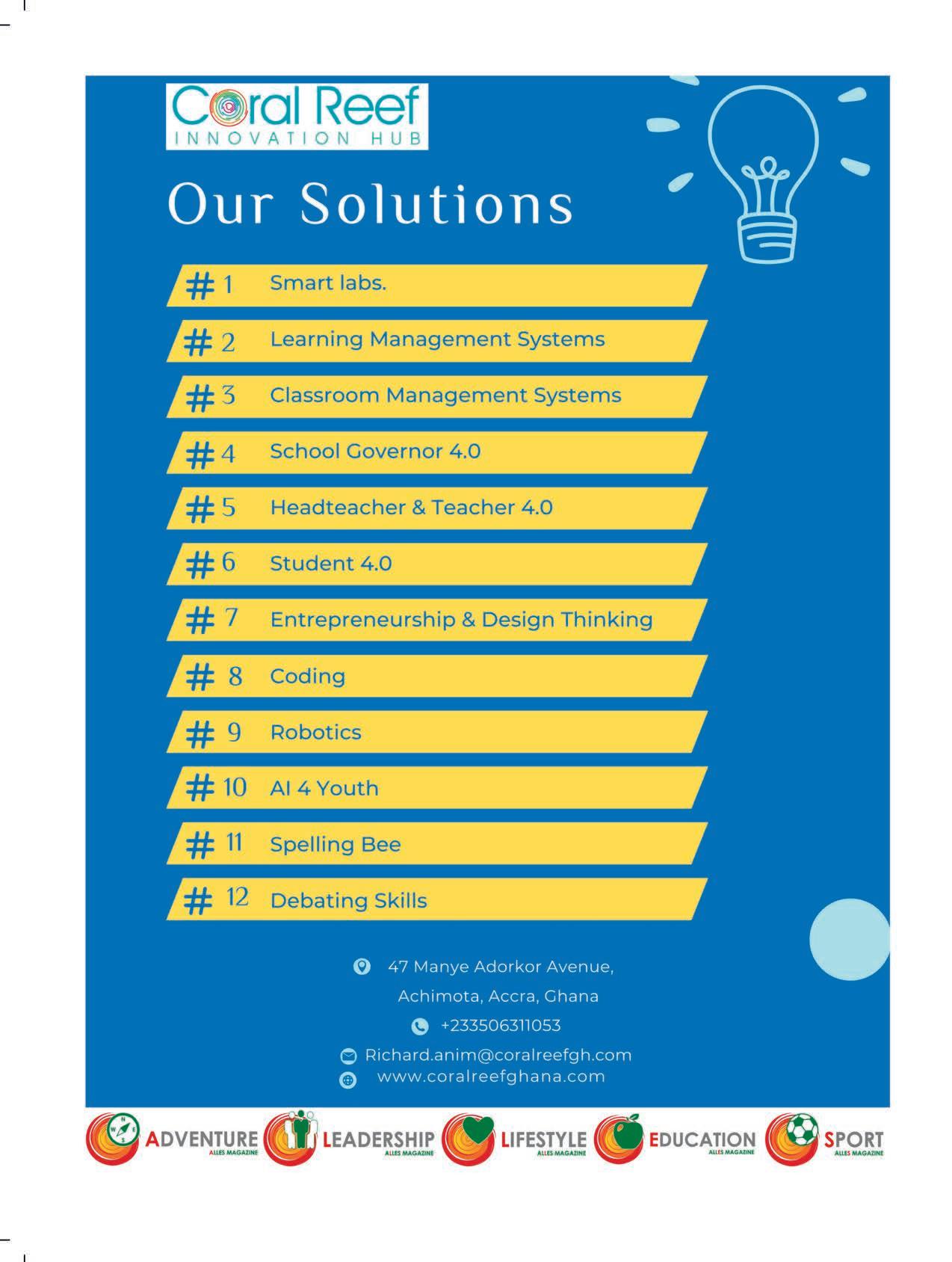
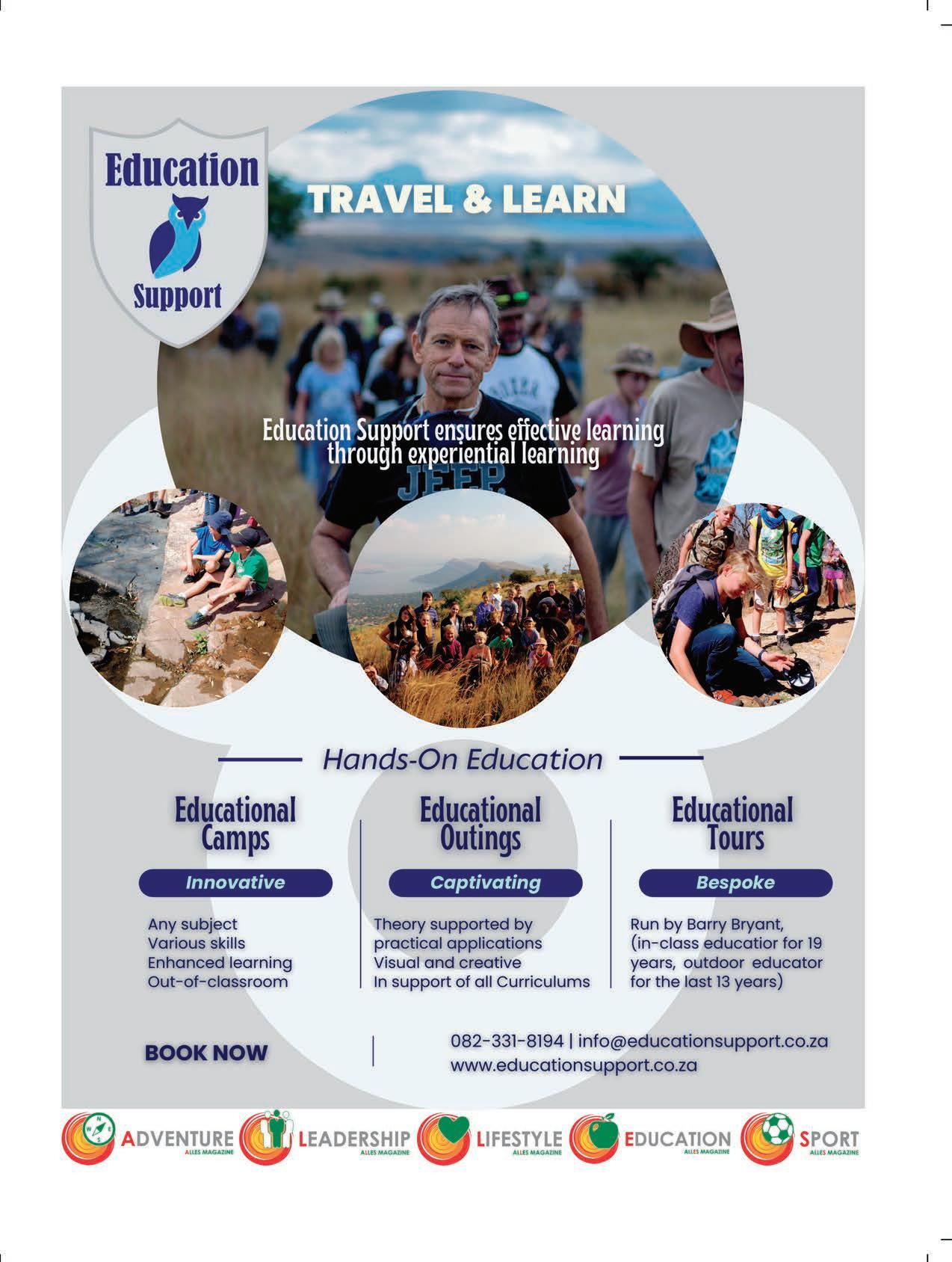
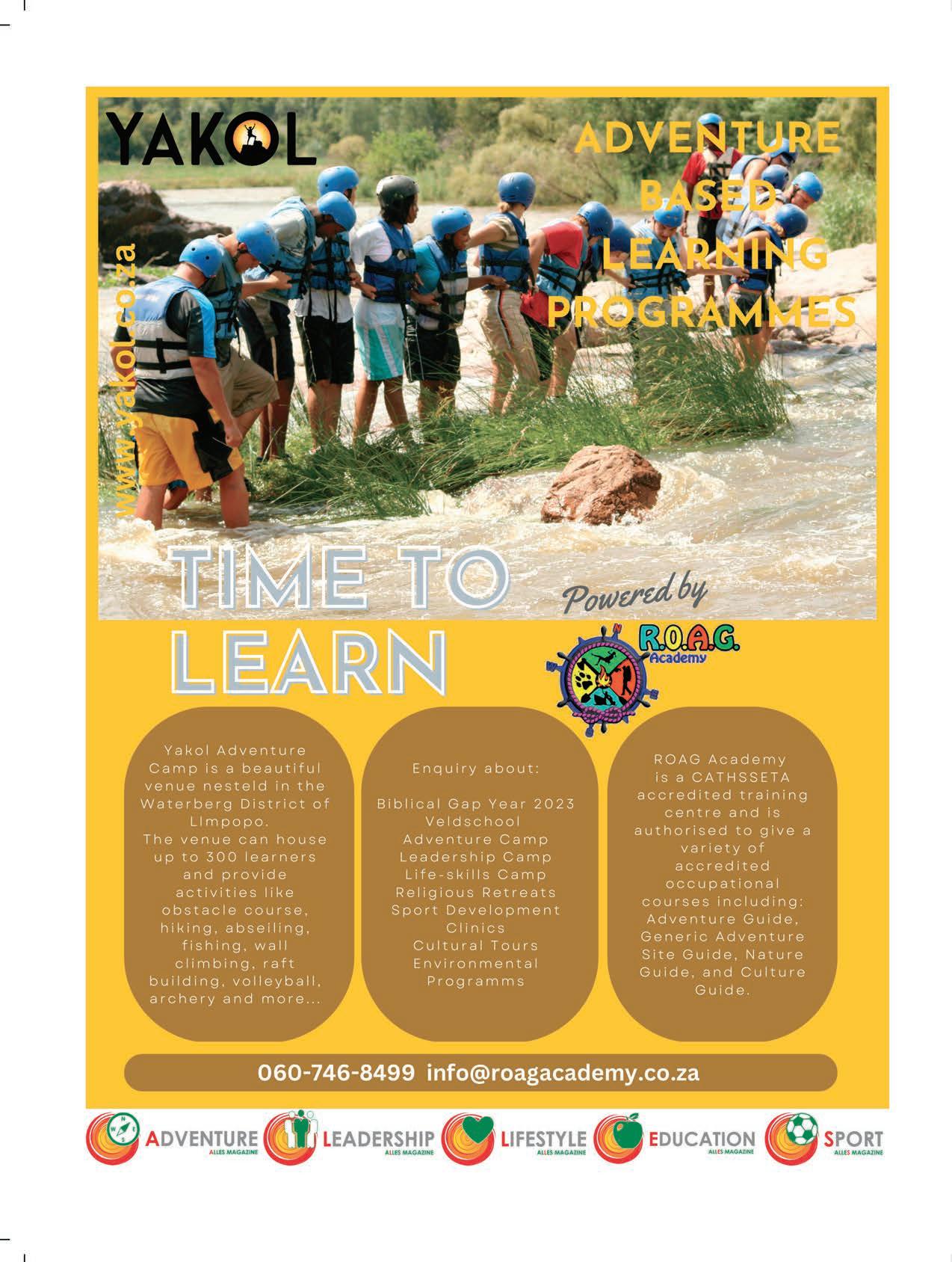


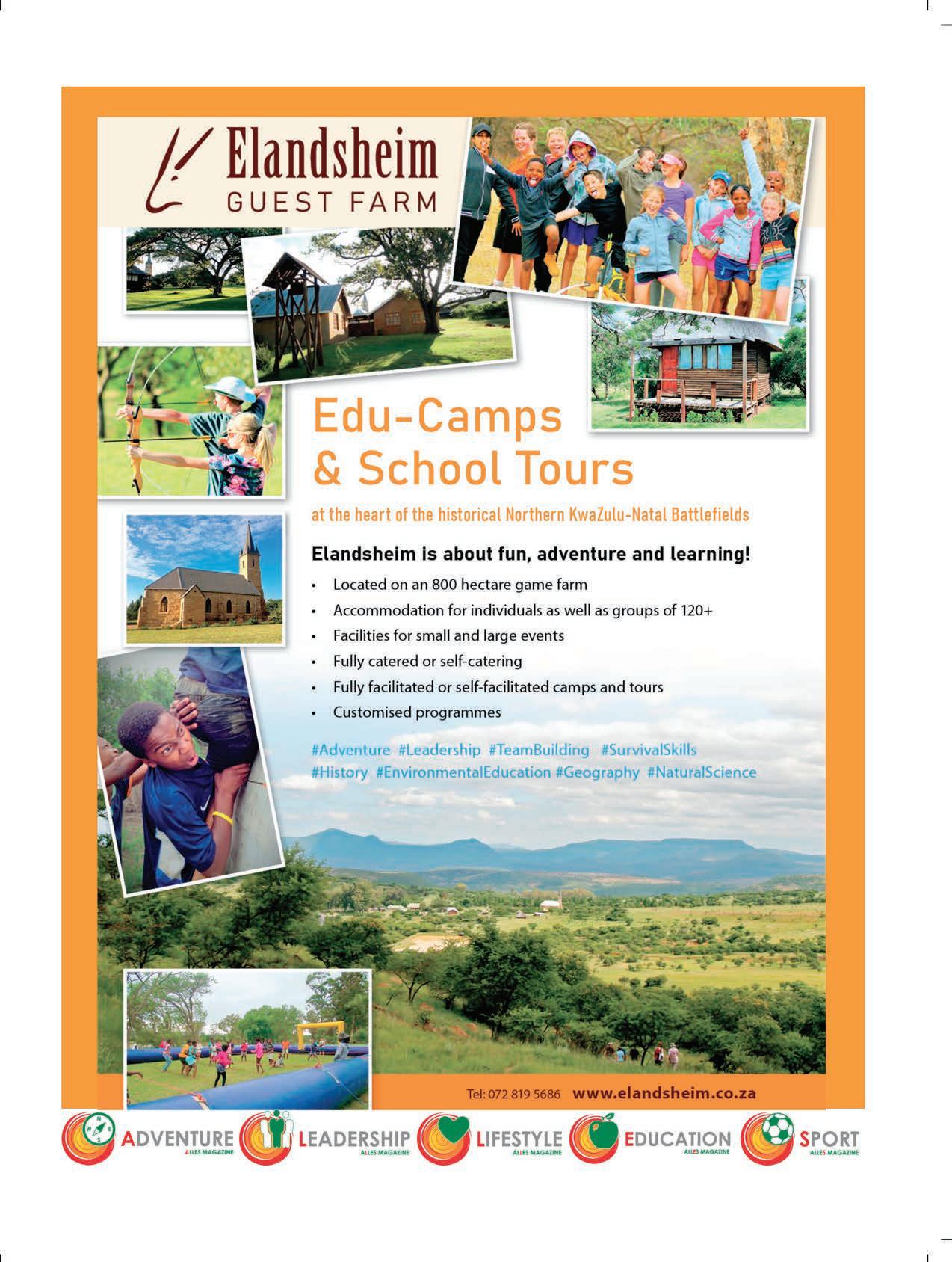



Communicating the opportunities and bene ts of experiential education
ALLES has embarked on a comprehensive communication strategy to inform educators about and promote the benefits of activities beyond the classroom
In 2012, ALLES Magazine publication was launched. It was aimed at informing parents and teachers about activities beyond the classroom. It has grown into a publication with credible content that today influences the decision-makers and promotes the broad-based experiential education industry as a professional and growing network of exceptional service providers.

ALLES formed part of the initial work team that activated the start of the South African Adventure Association and continues to promote experiential learning opportunities.
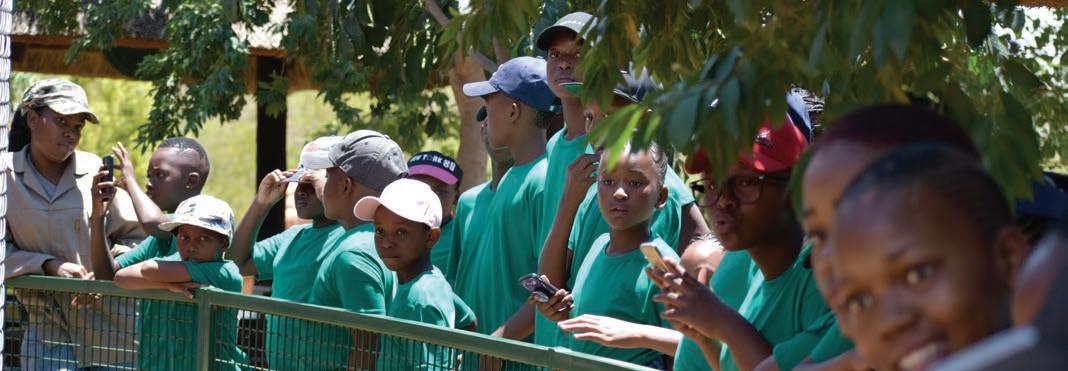
The ALLES team has been out and about engaging with teachers at various events and research projects in 2023. The focus for this year is to advocate and inform all stakeholders in education about the school
travel and tourism industry. With most of the service providers and destinations providing various curriculum-aligned programmes, there are great opportunities for experiences beyond a classroom, which should be included in an annual learning plan.
The resilience showcased by the ALLES Group during the COVID-19 pandemic activated positive growth and opportunities for the experiential education community. This resilience has seen the ALLES Group focus on more targeted communication channels with more offerings to suit specific needs.
ALLES Magazine focuses on achievements and contributions. The ALLES team also compiled The Guide to School Camp Safety & Implementation – COVID-19 in 2020, with a revised edition published in 2022.
The ALLES platform has received several accolades and awards, including:
• Certified South African Specialist (Action adventure, scenic beauty, the lap of luxury, wildlife plus, culture and lifestyle plus, deep blue plus, roots and culture).
• Media Representative in South Africa for ‘’2019 Year of Indigenous Languages – an UNESCO Initiative’’.
• Corporate Travel Awards Winner 2018, 2020, 2022, 2023
• Best Advertising Company Youth Tourism and Development – South Africa).
• Finalist in Tourism South Africa Awards, 2022.
• ILO Resilience in Tourism Participant. ALLES looks forward to a year with many more events where it can connect in person and share its values and dreams with many more teachers.
Follow us on Facebook @allesmagazine and share your experiences with our readers and share the free online publication with other teachers. For more information & your free copy contact us at info@allesmag.co.za.
ADVERTORIAL
ALLES
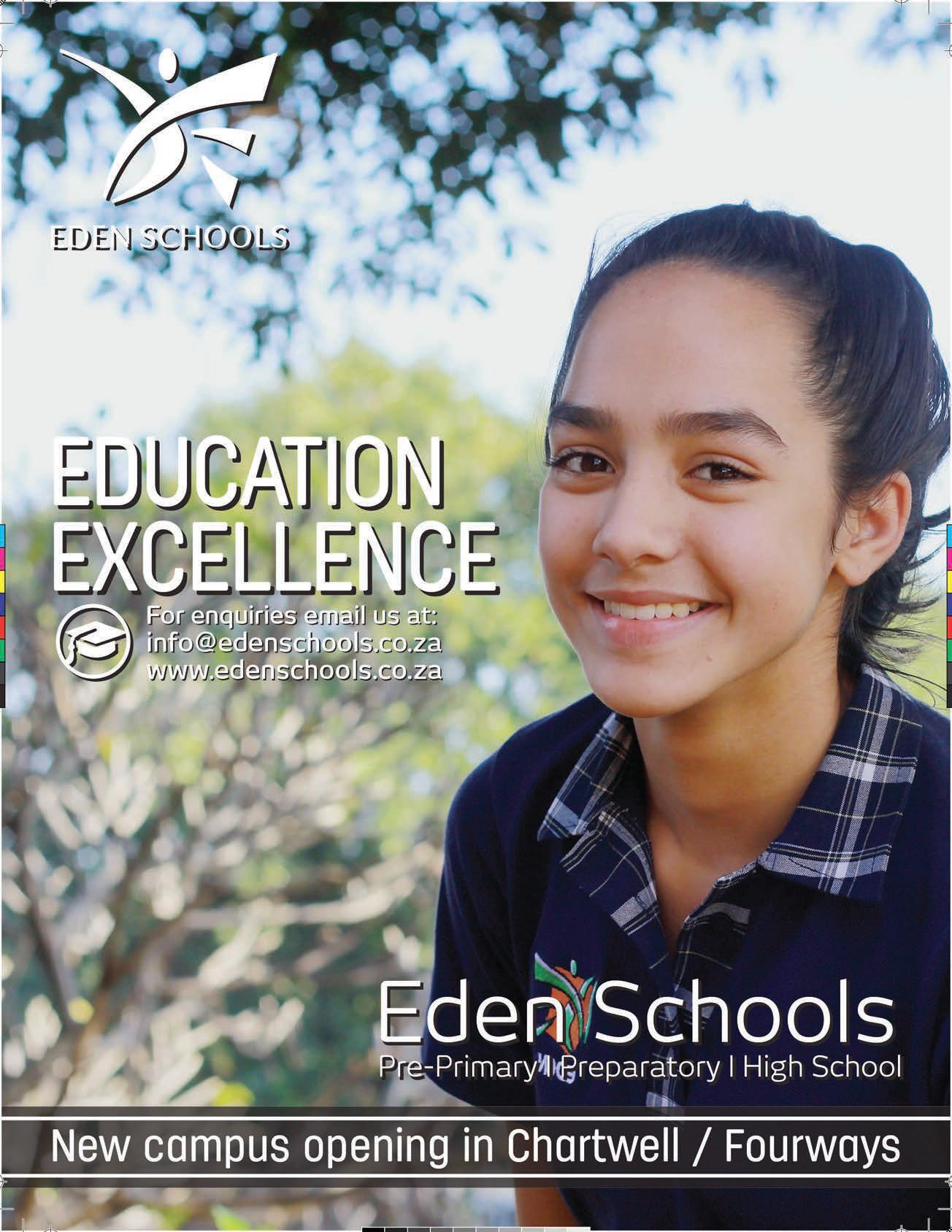
































































































































































































































































































































































































 Rudi Viljoen, founder of the Warriors Academy
Rudi Viljoen, founder of the Warriors Academy


































